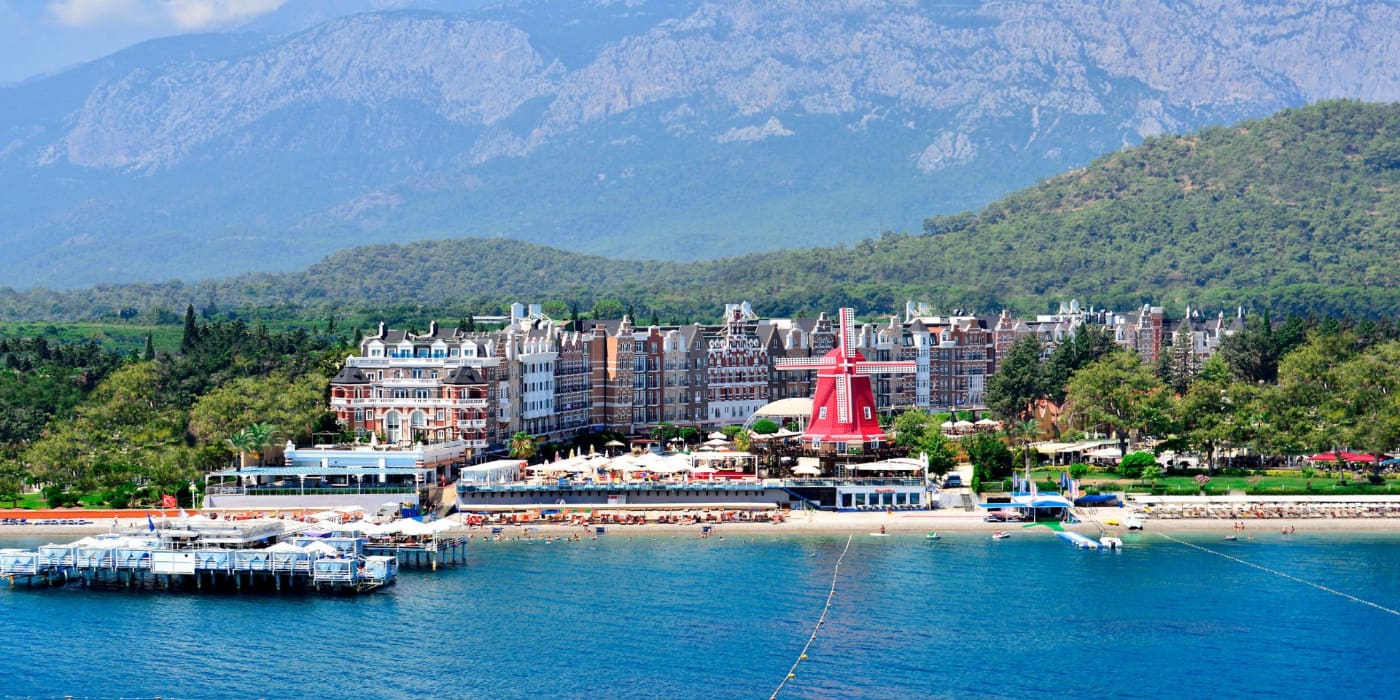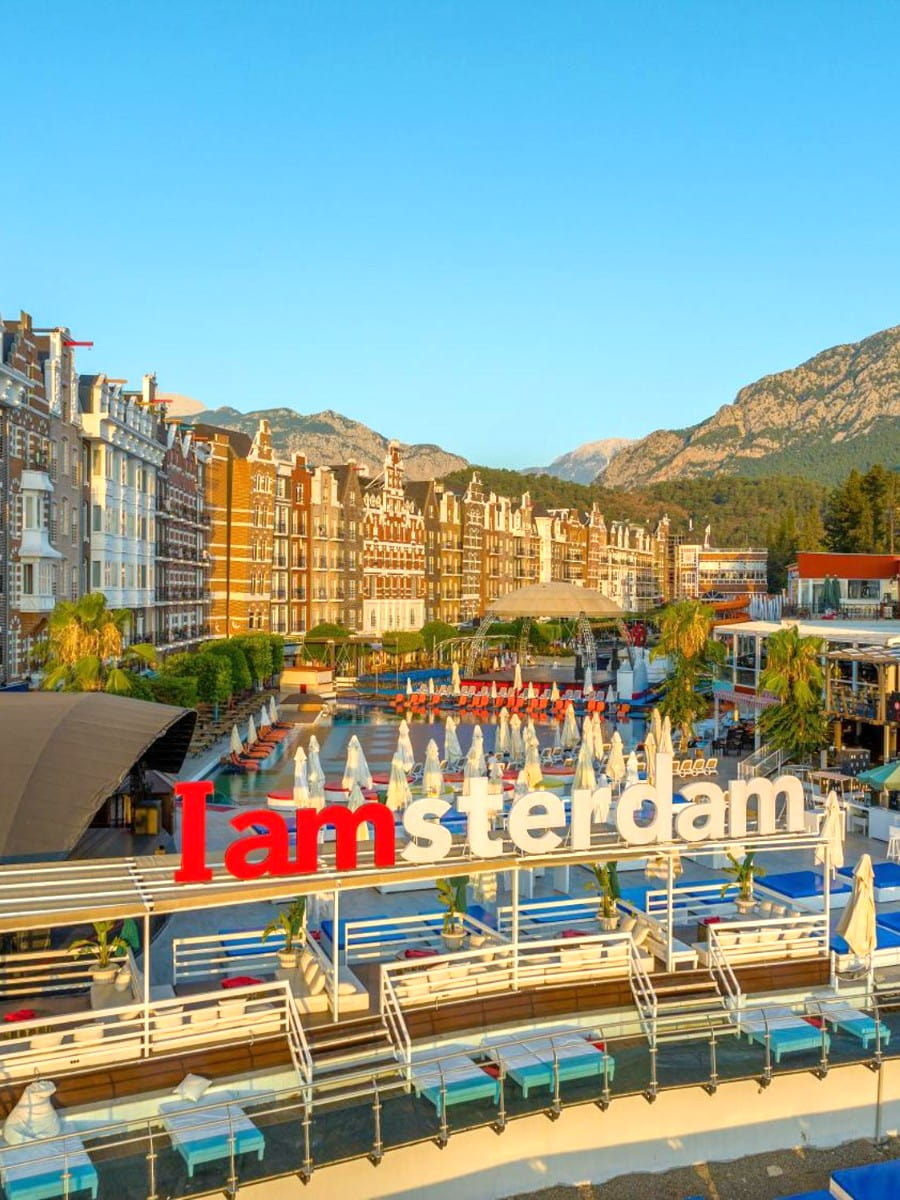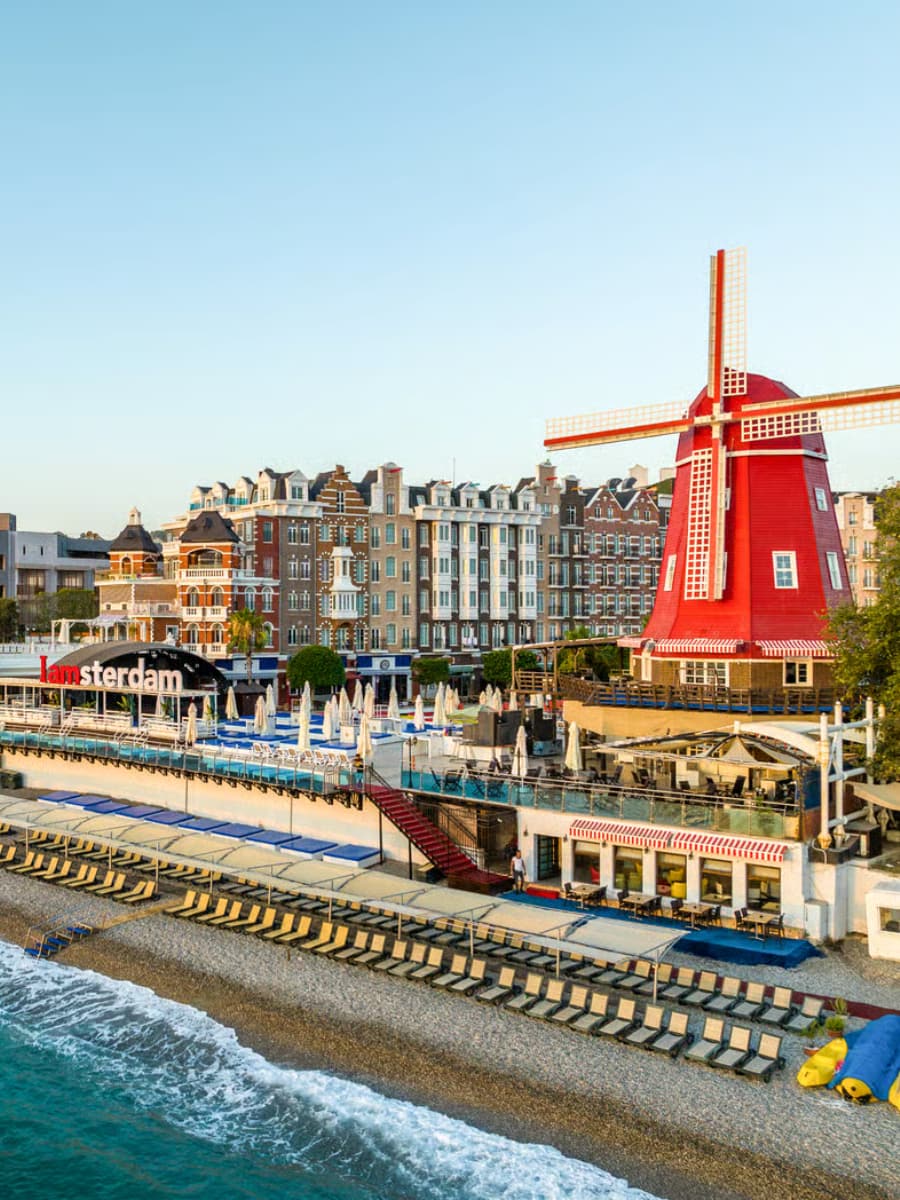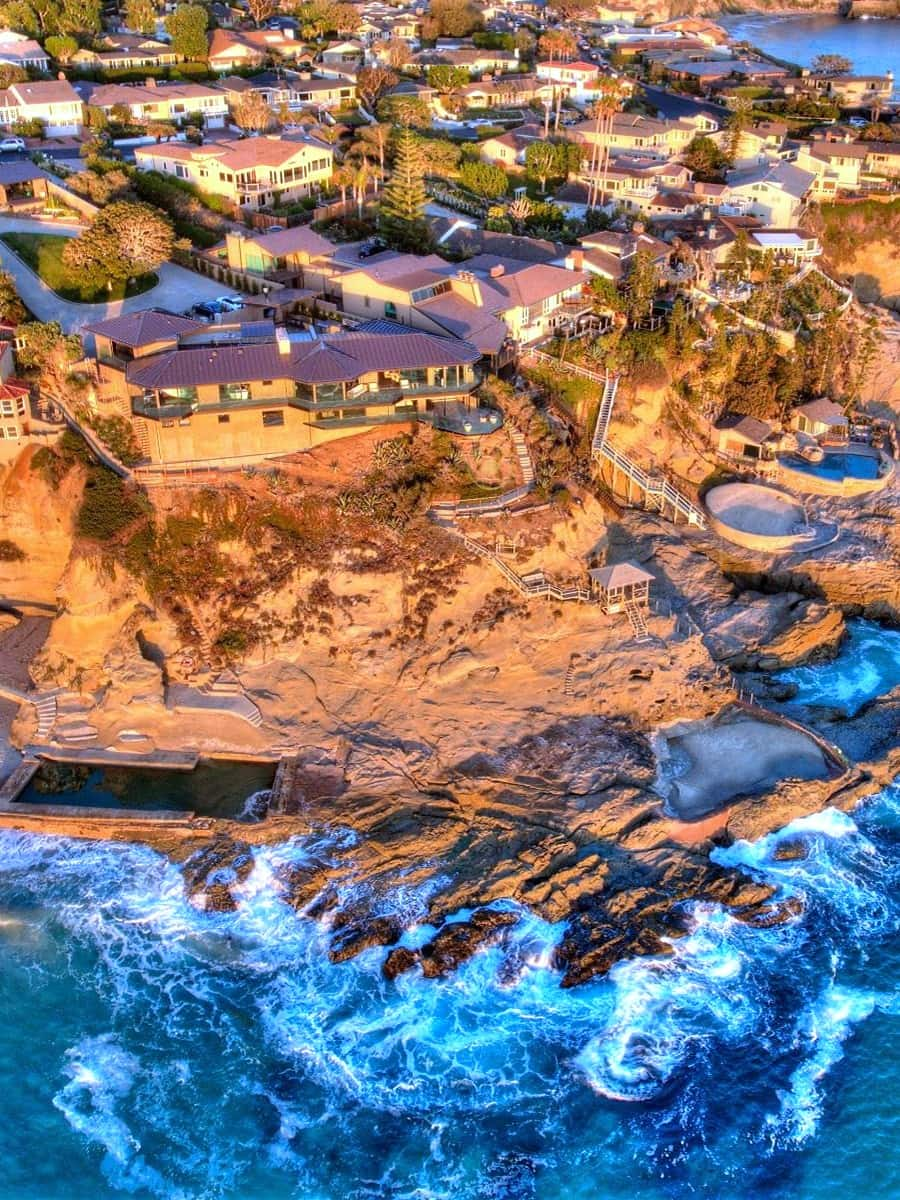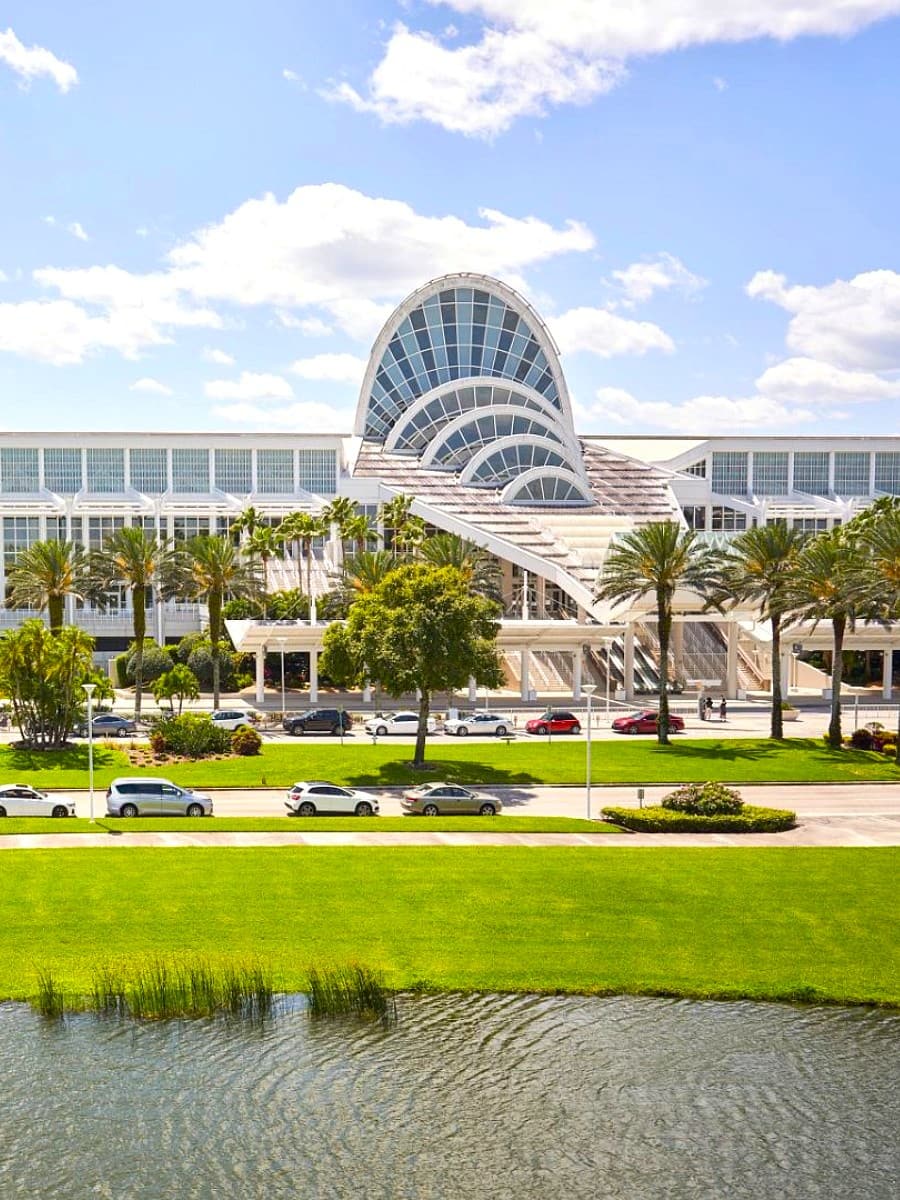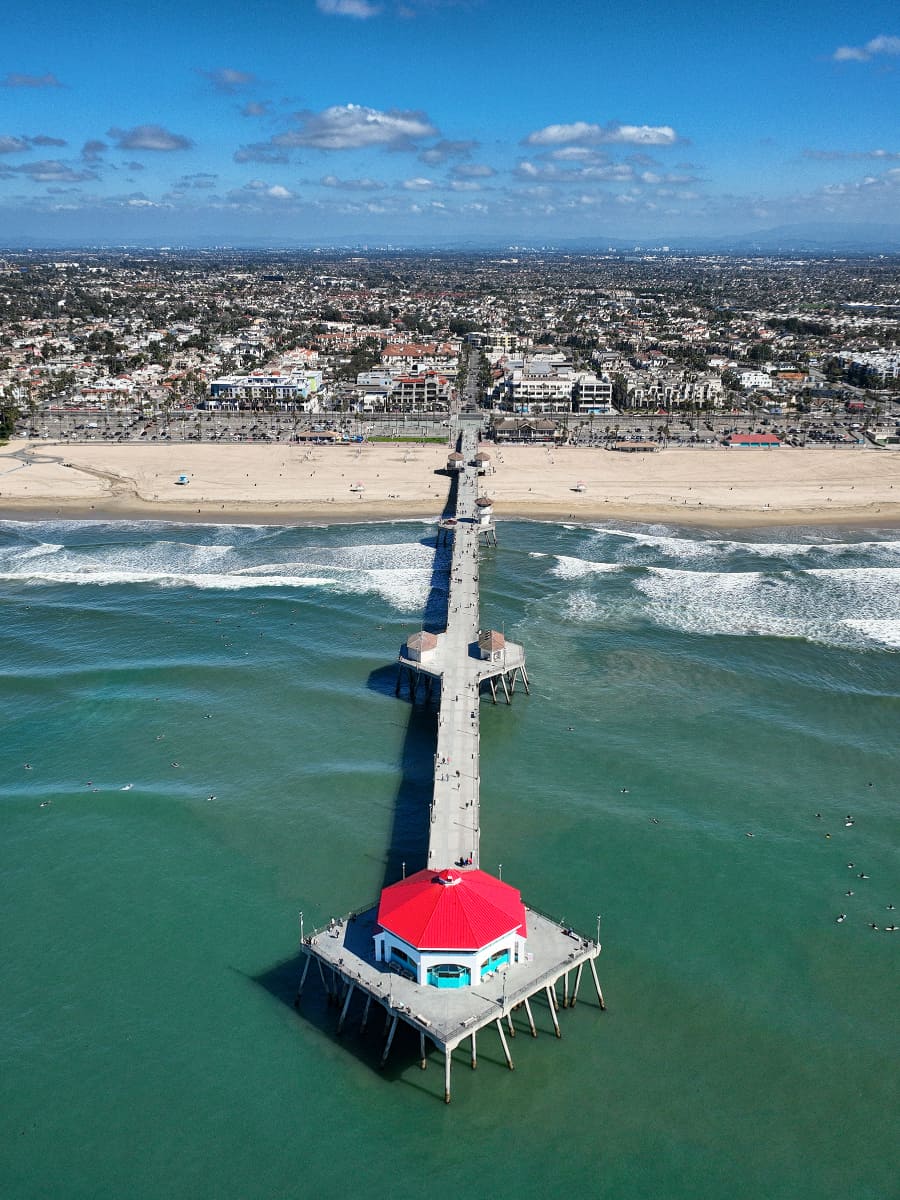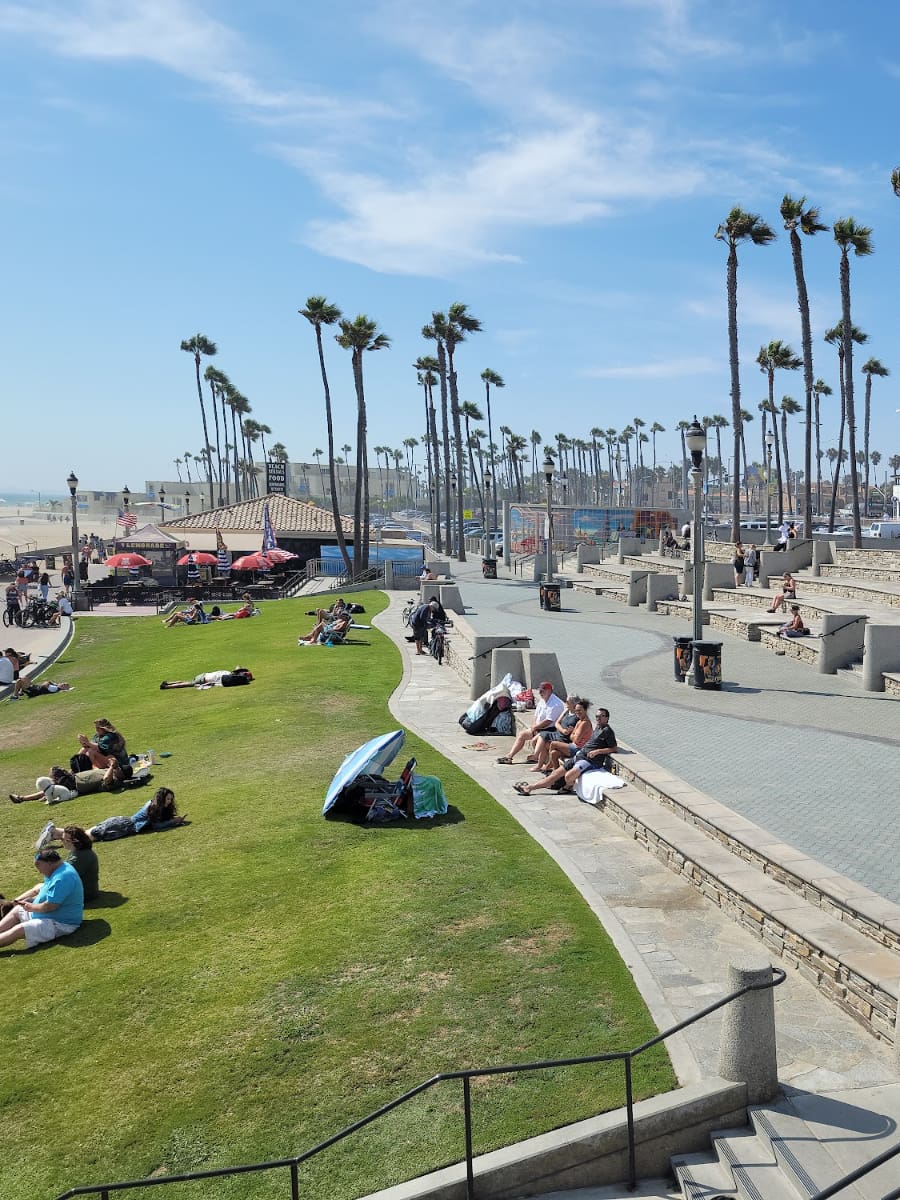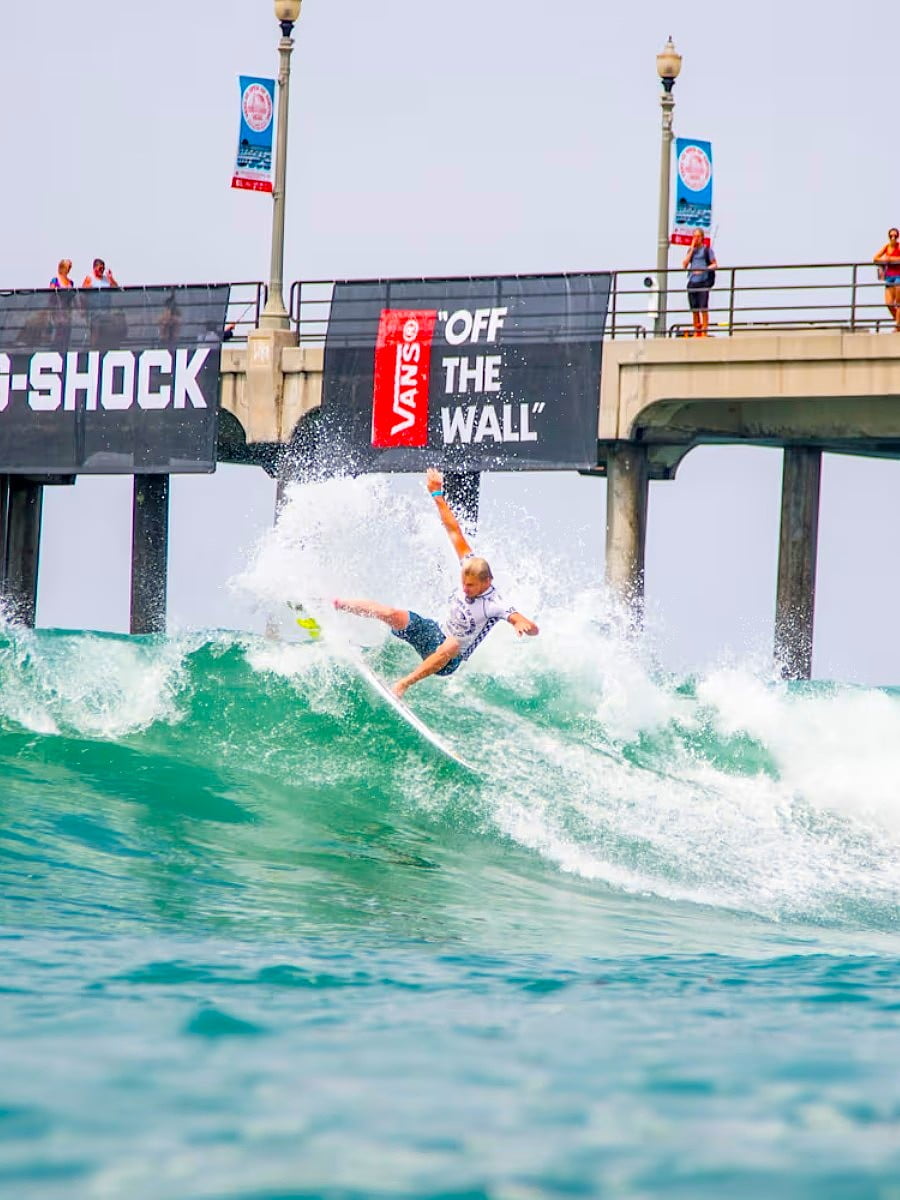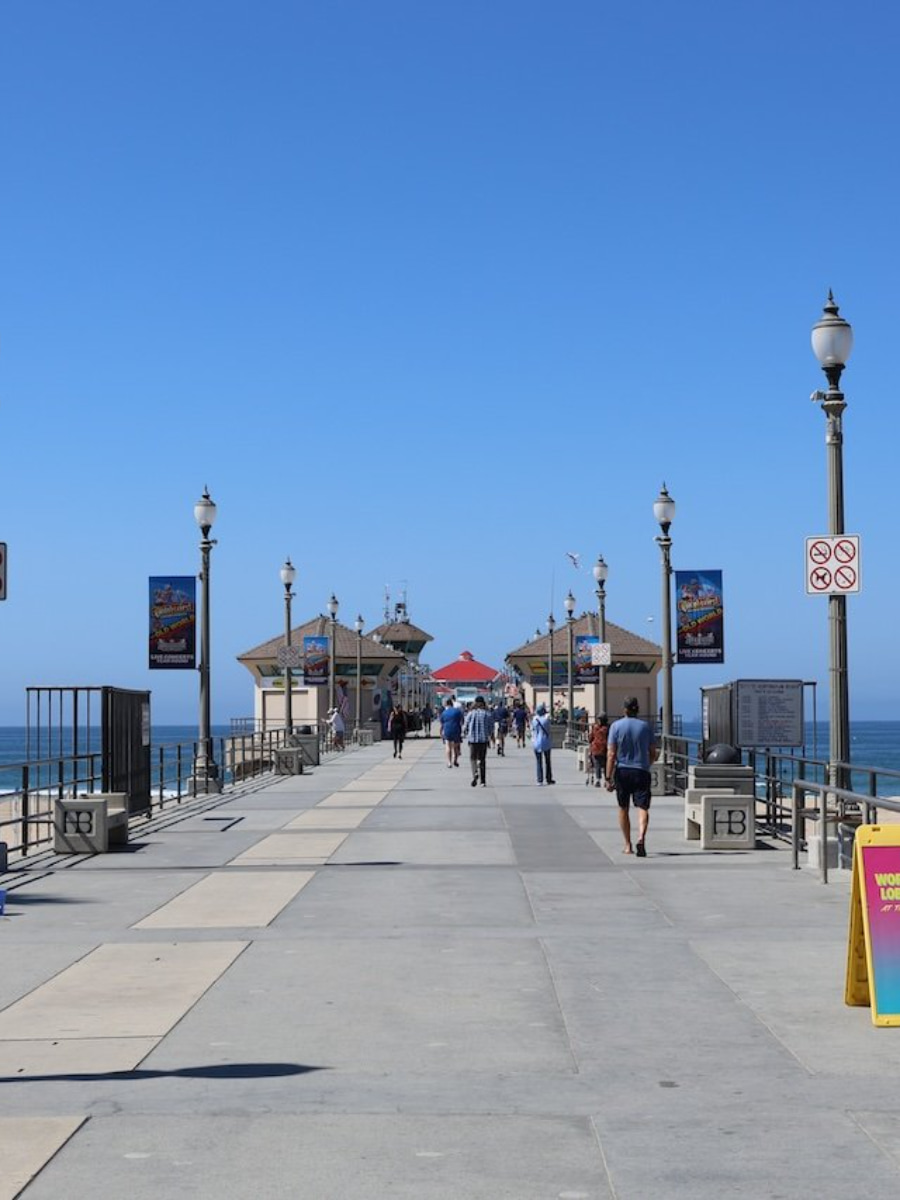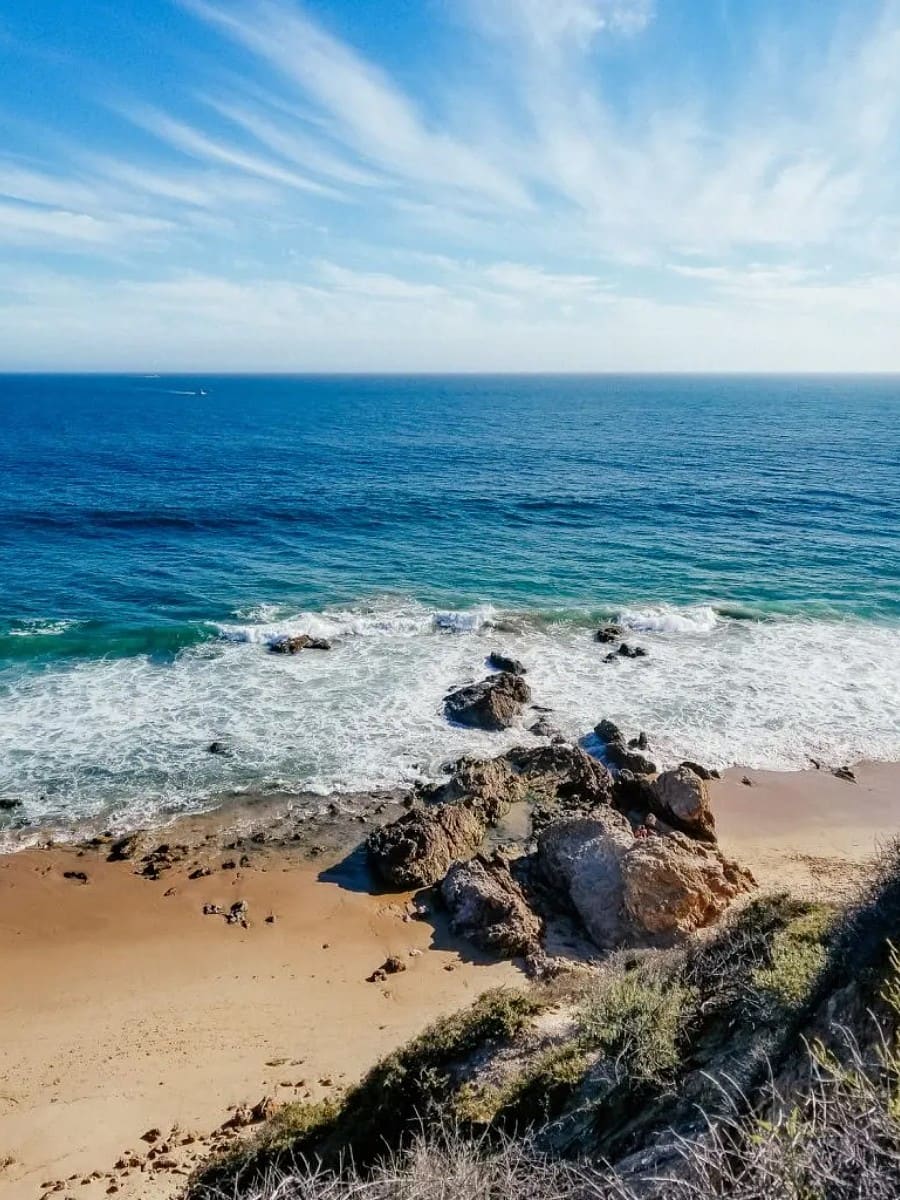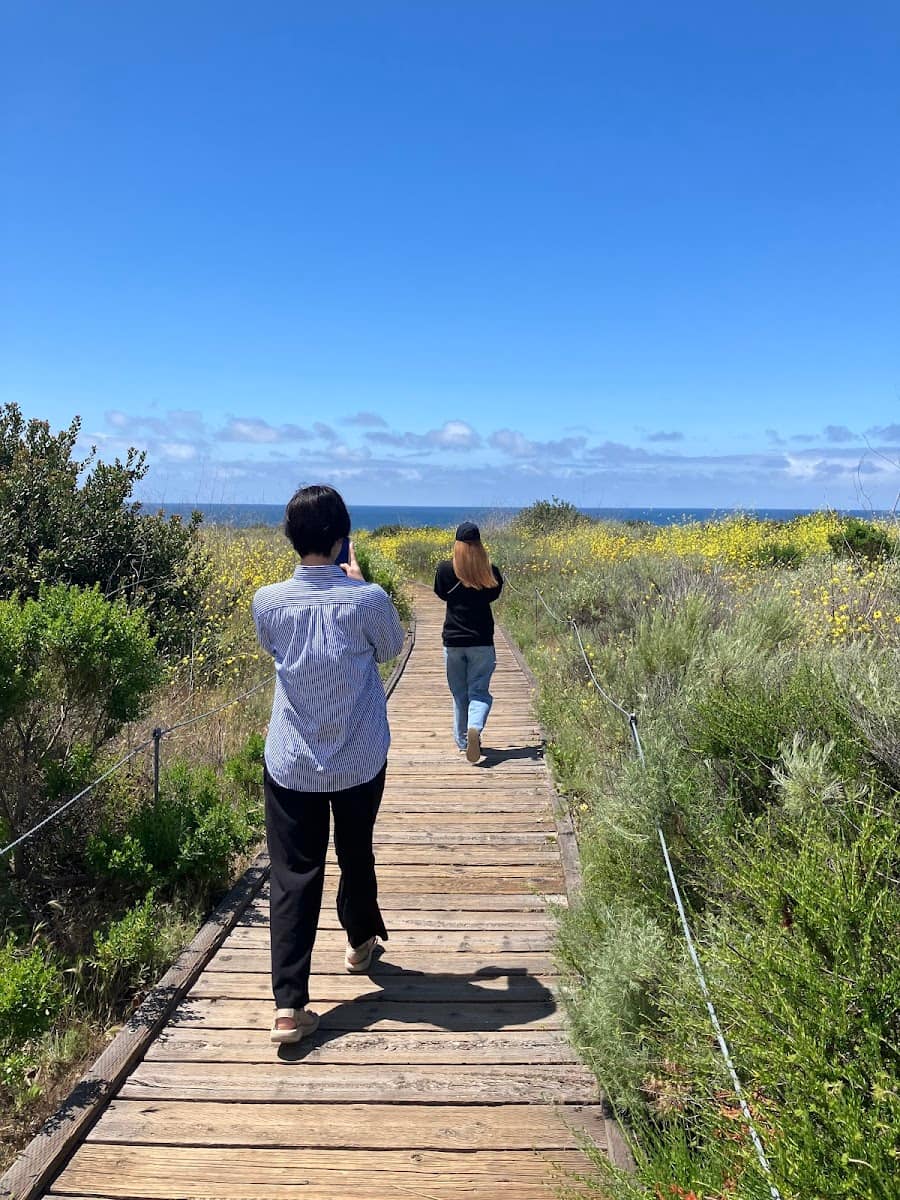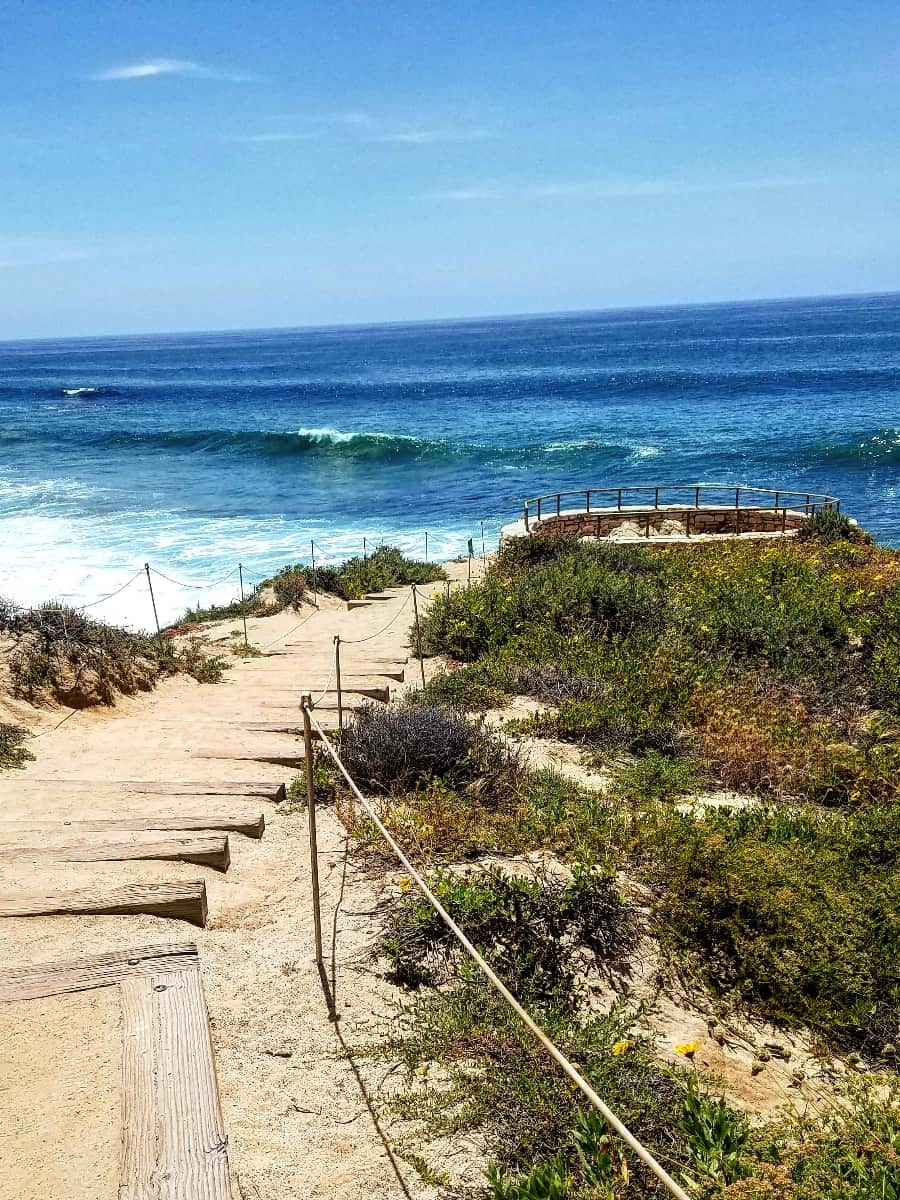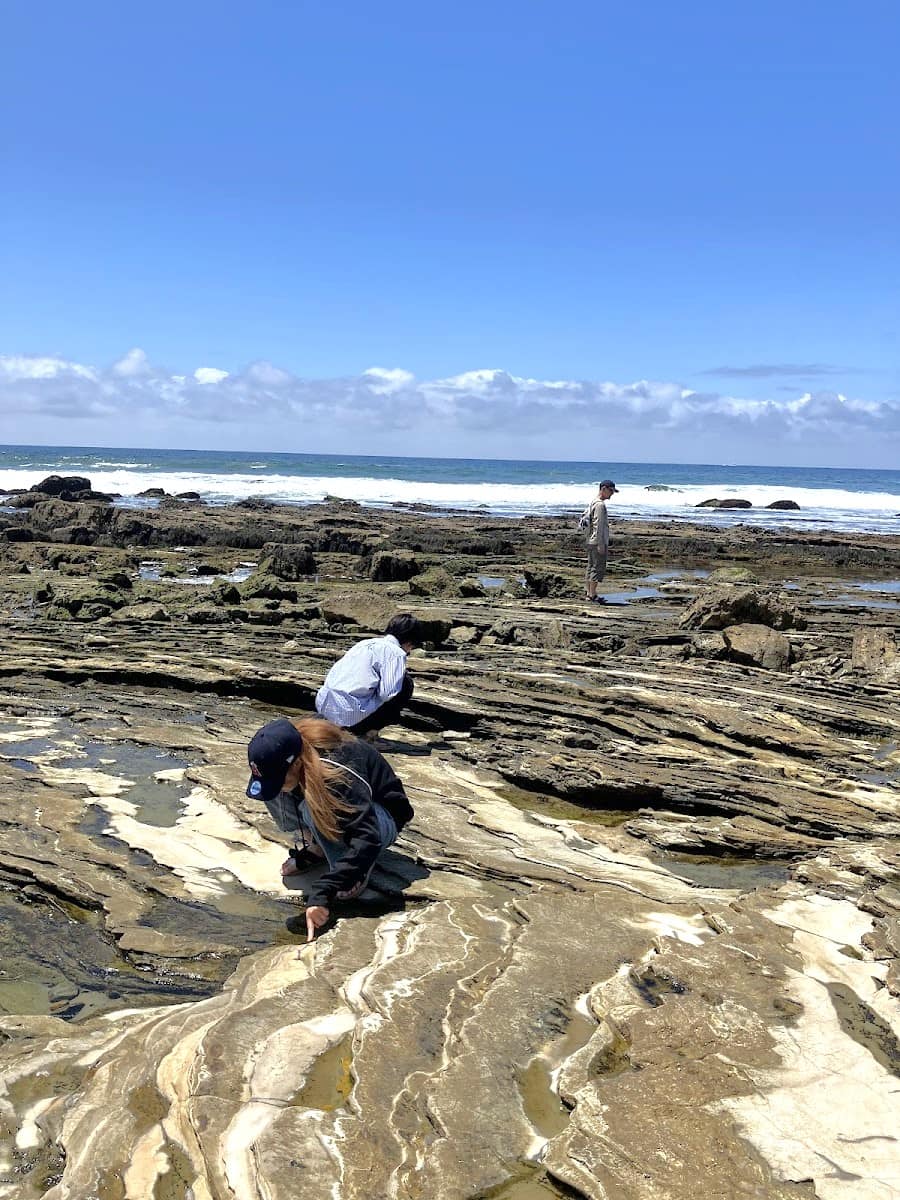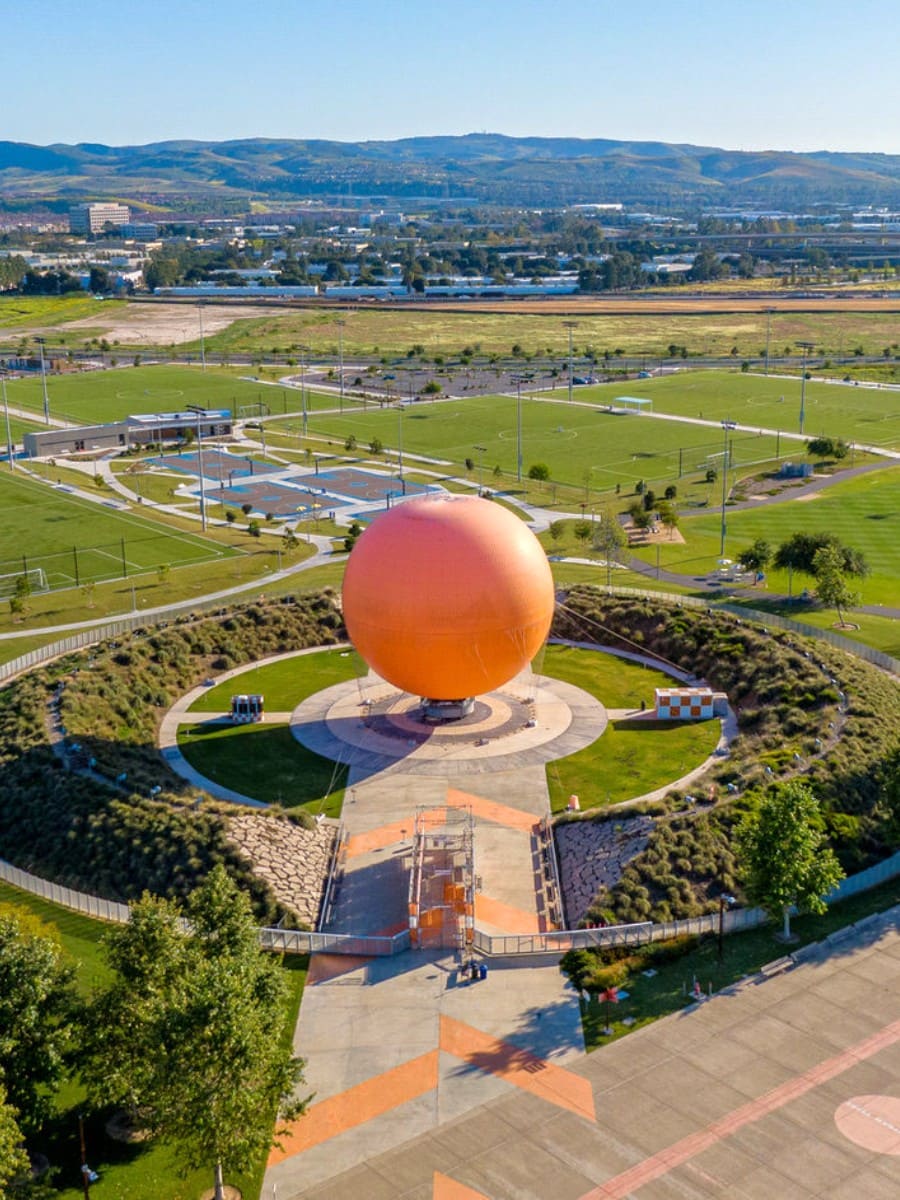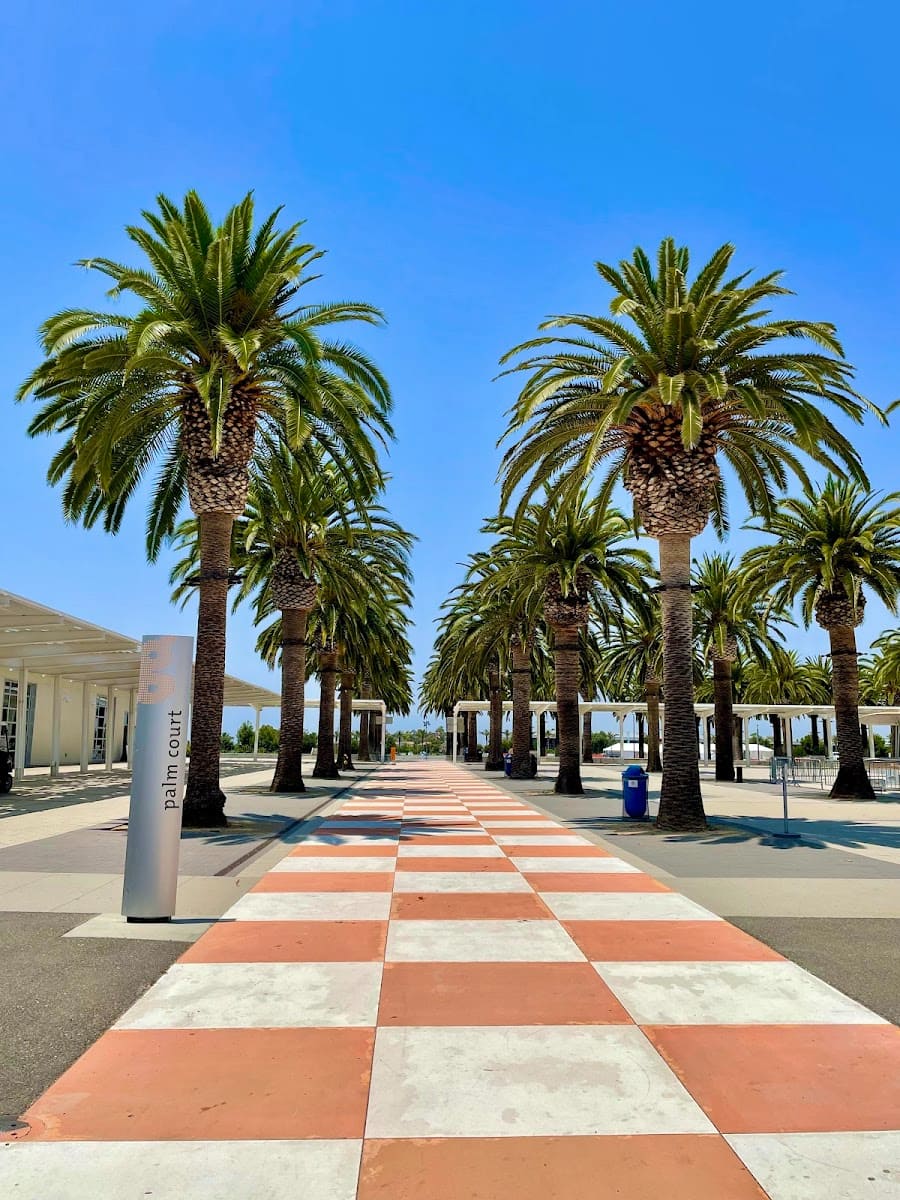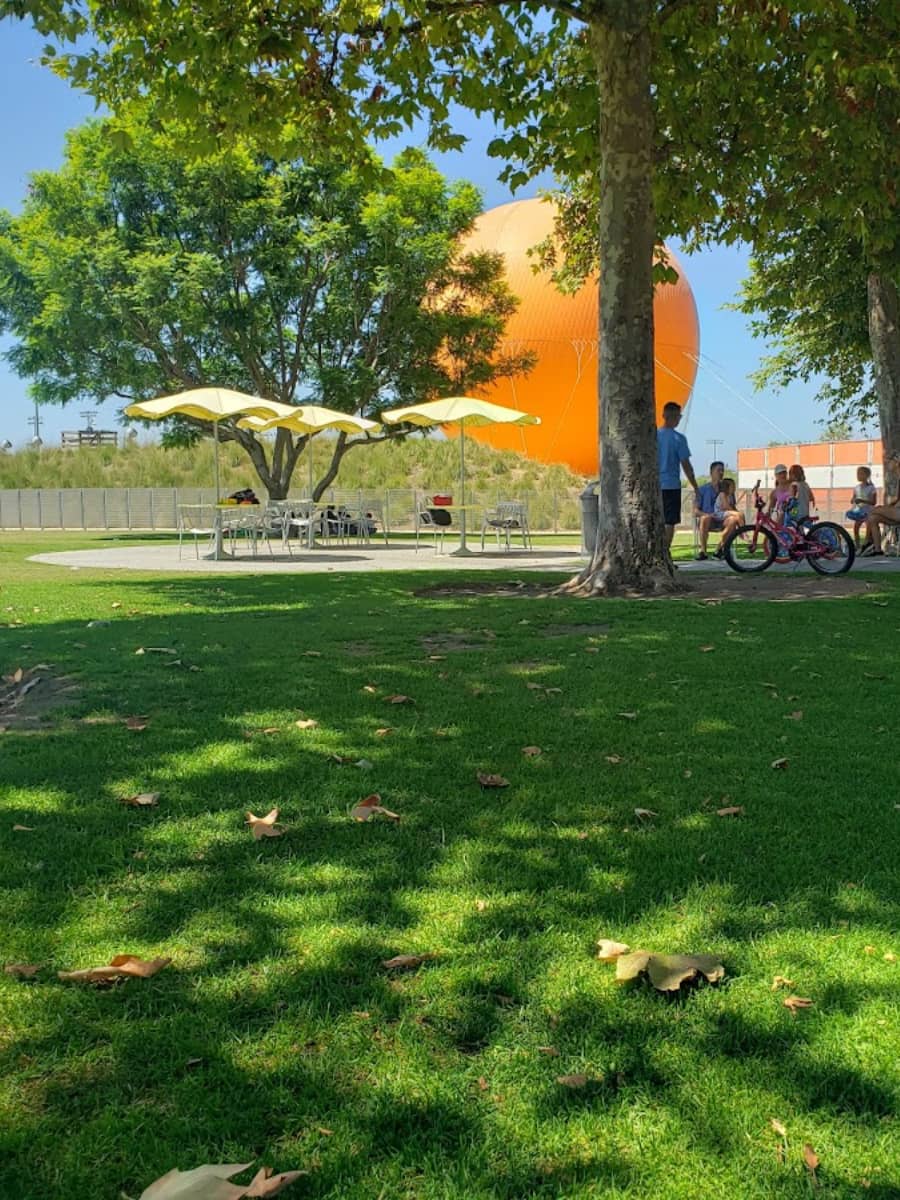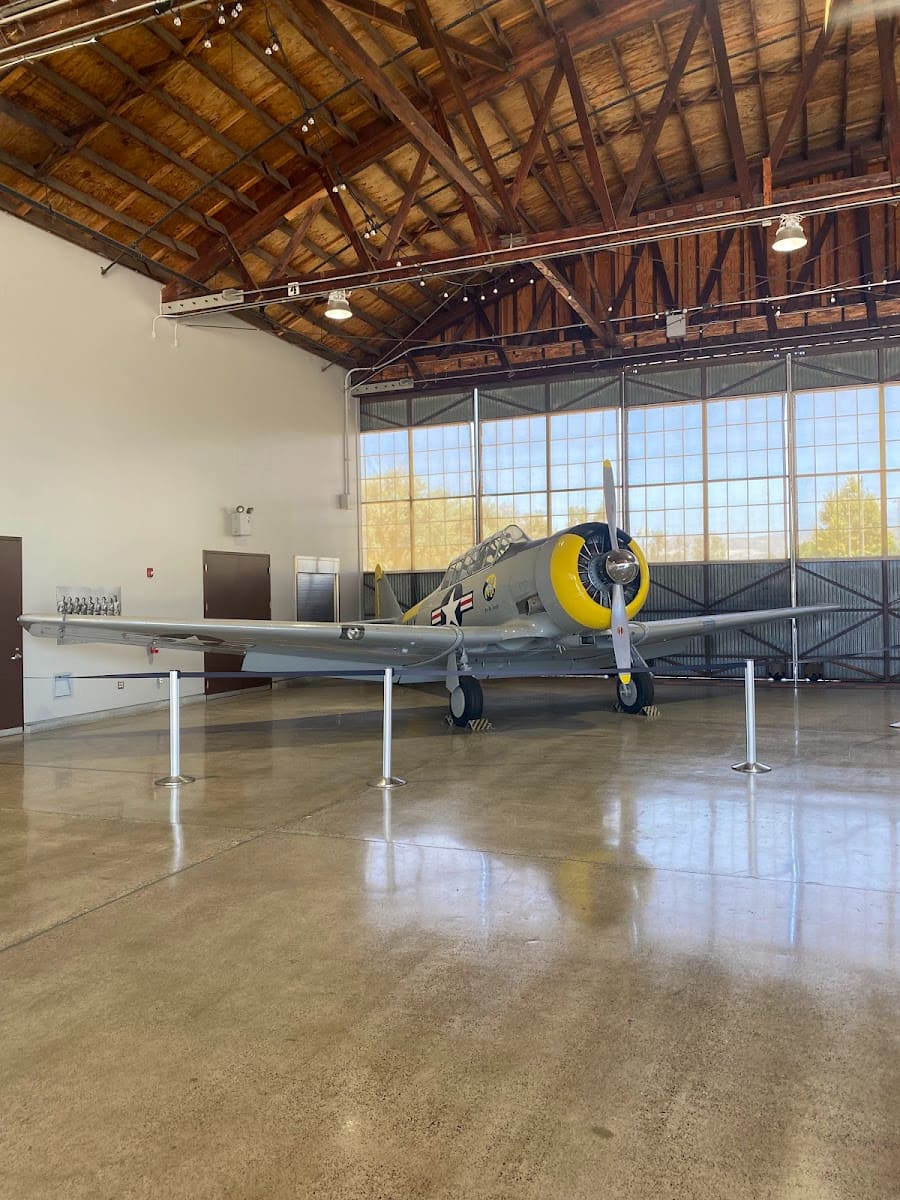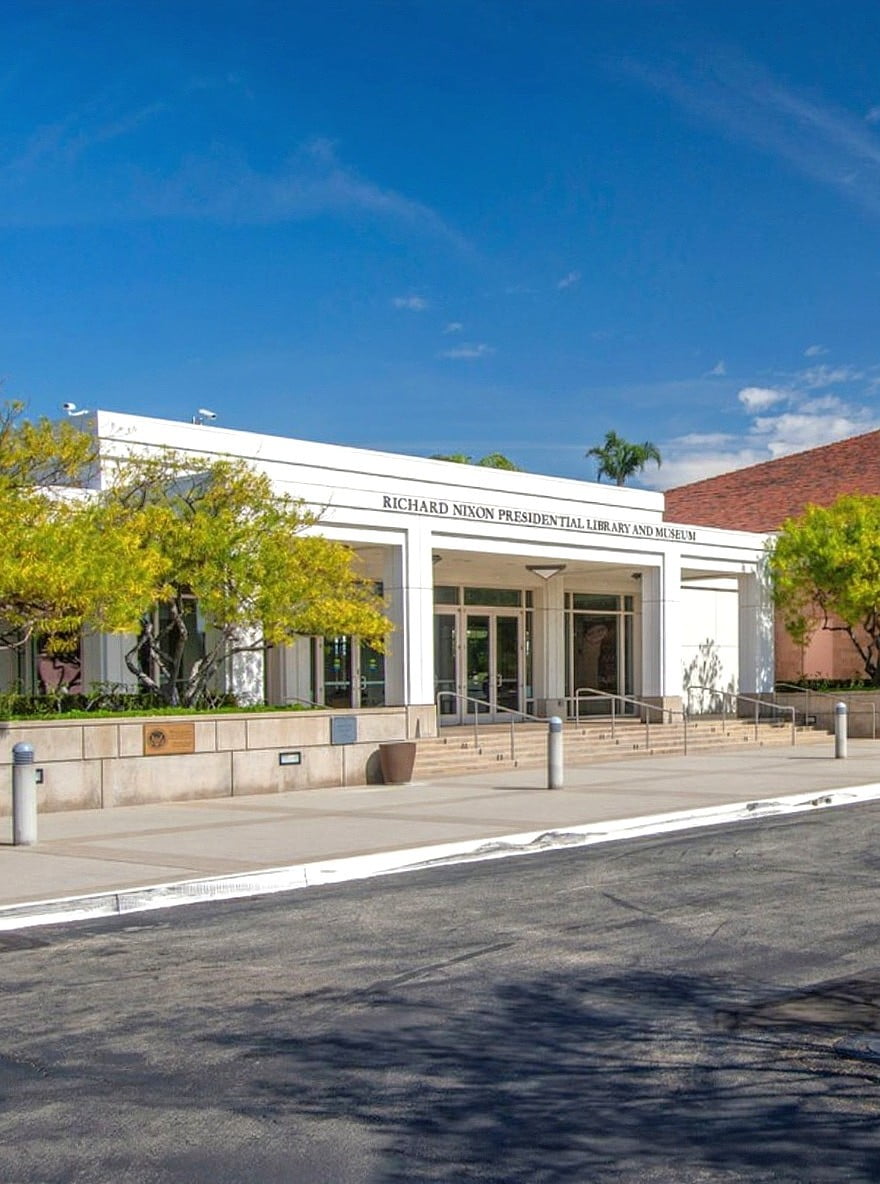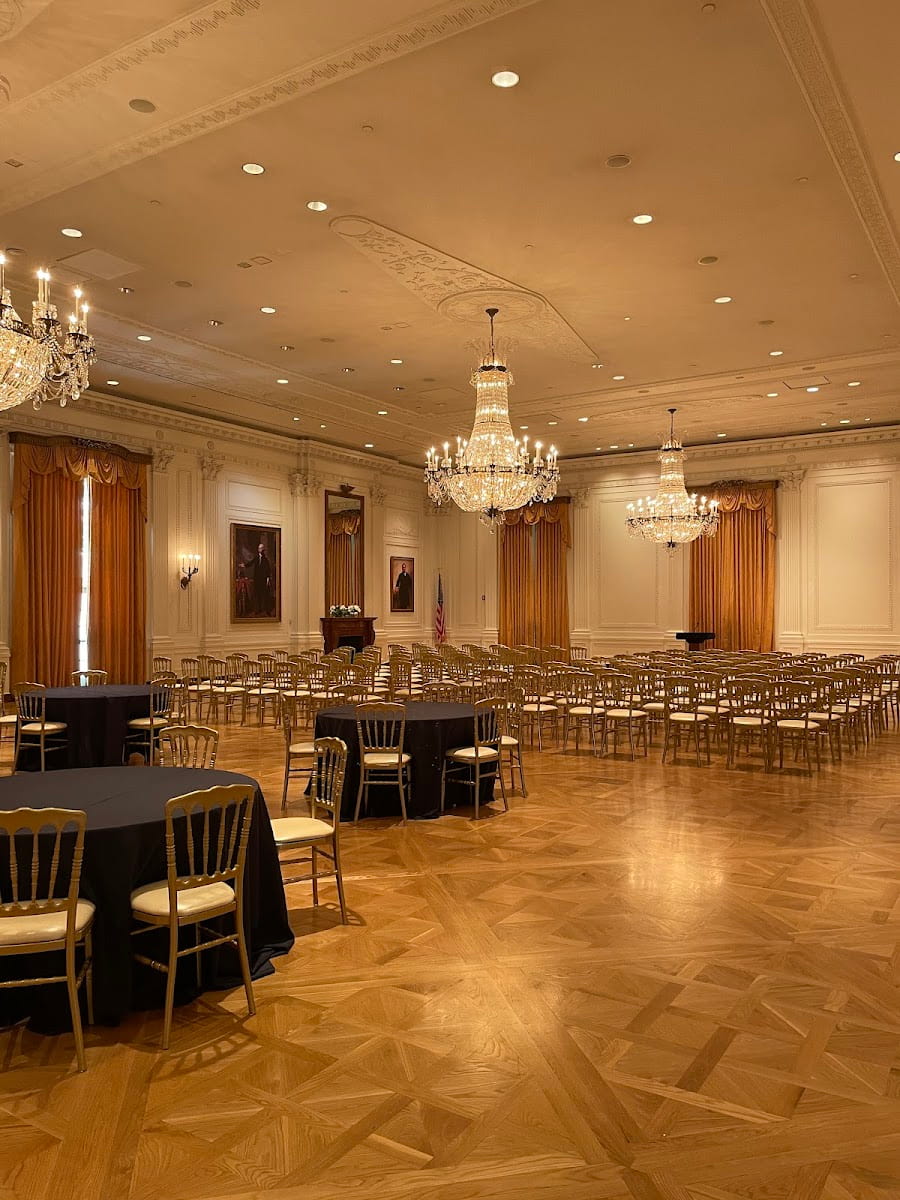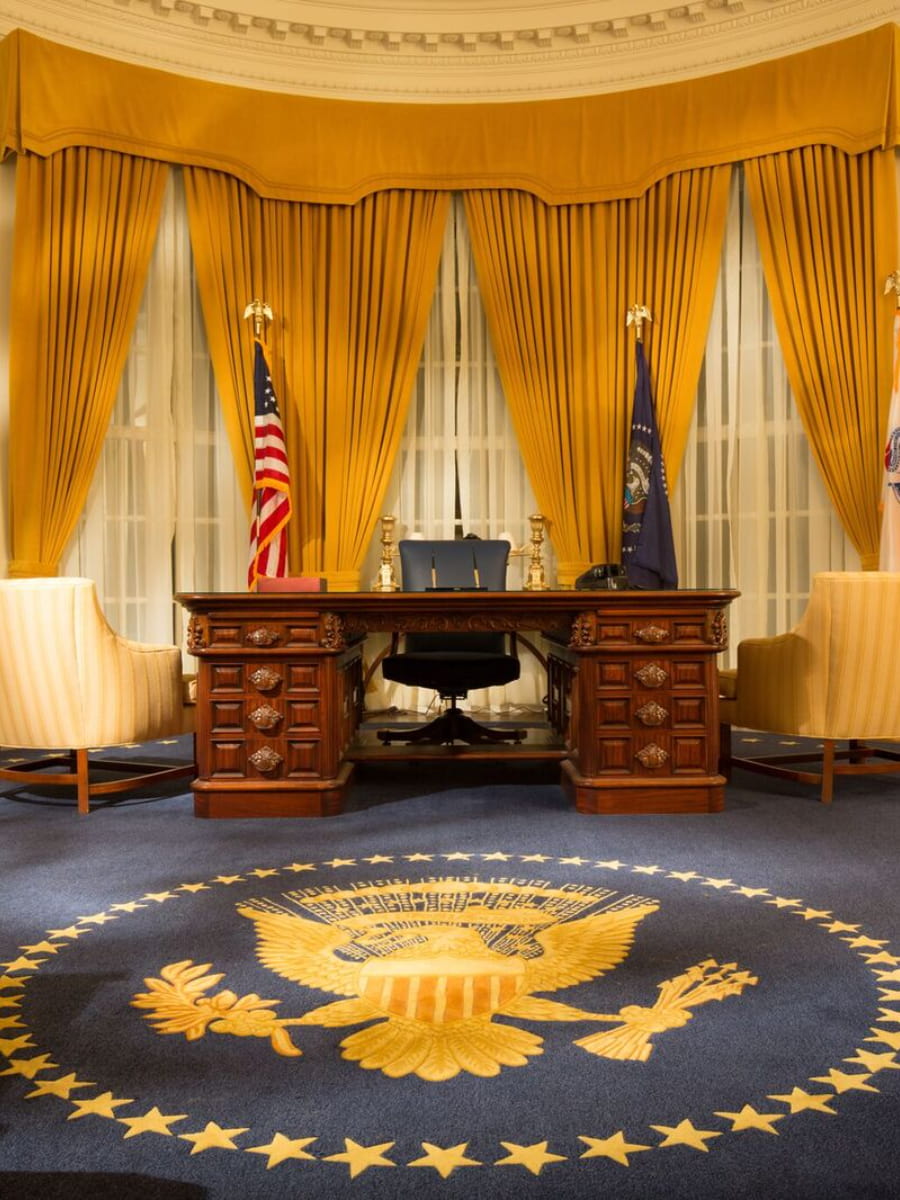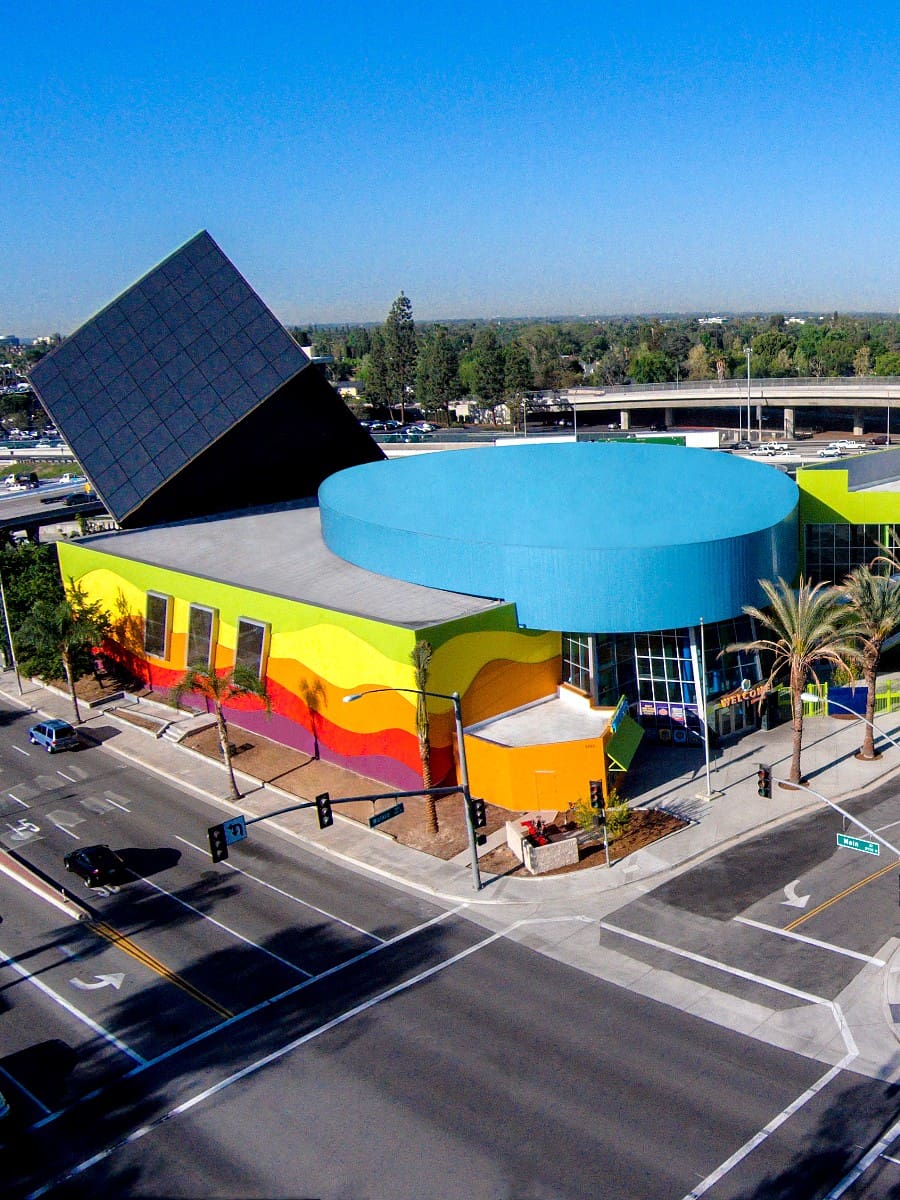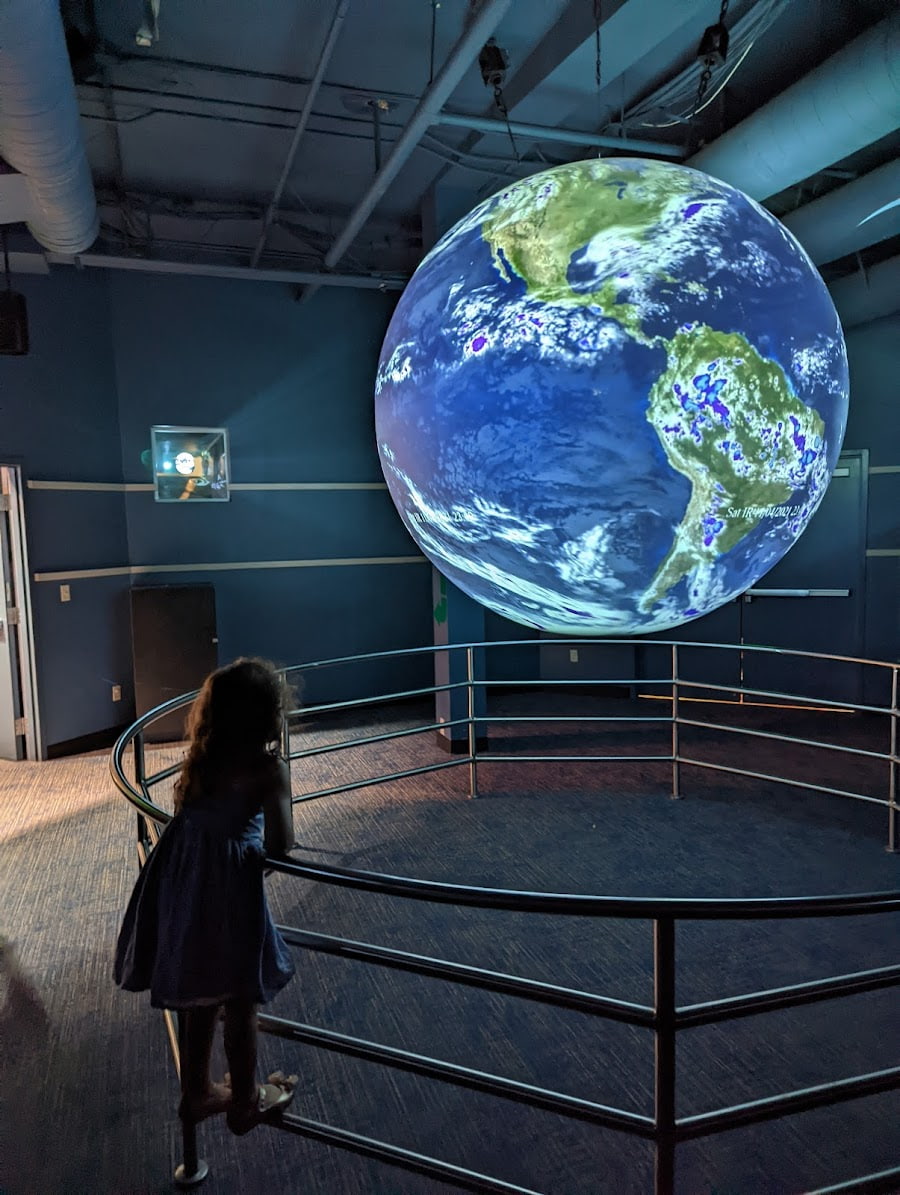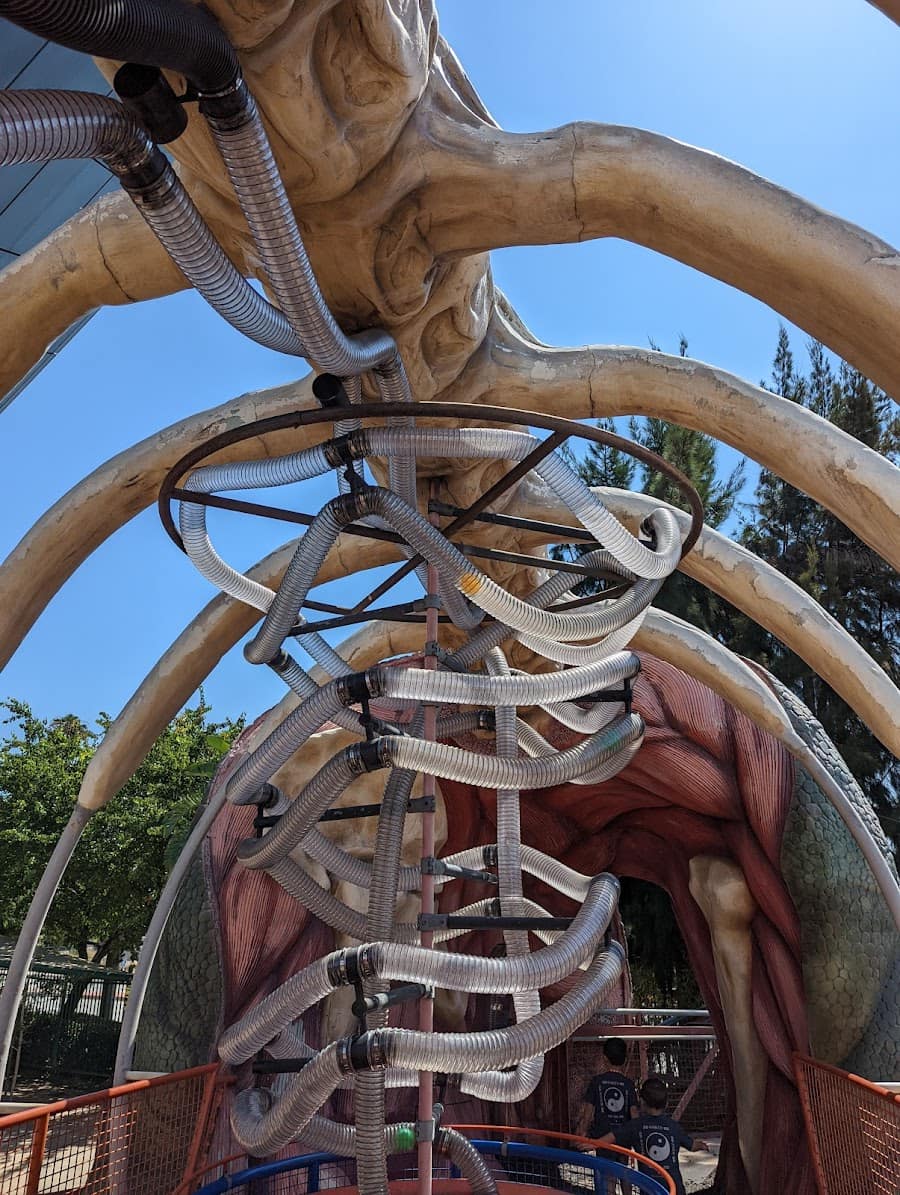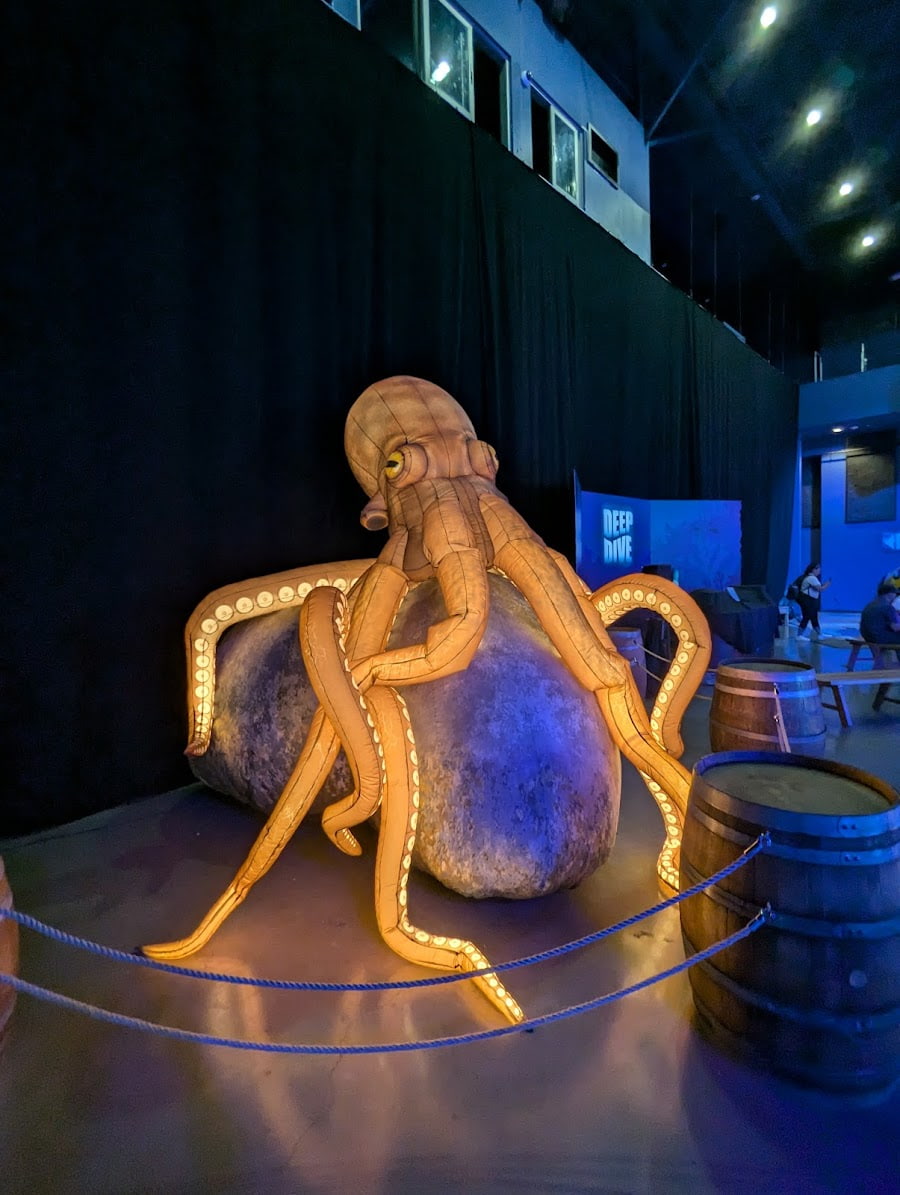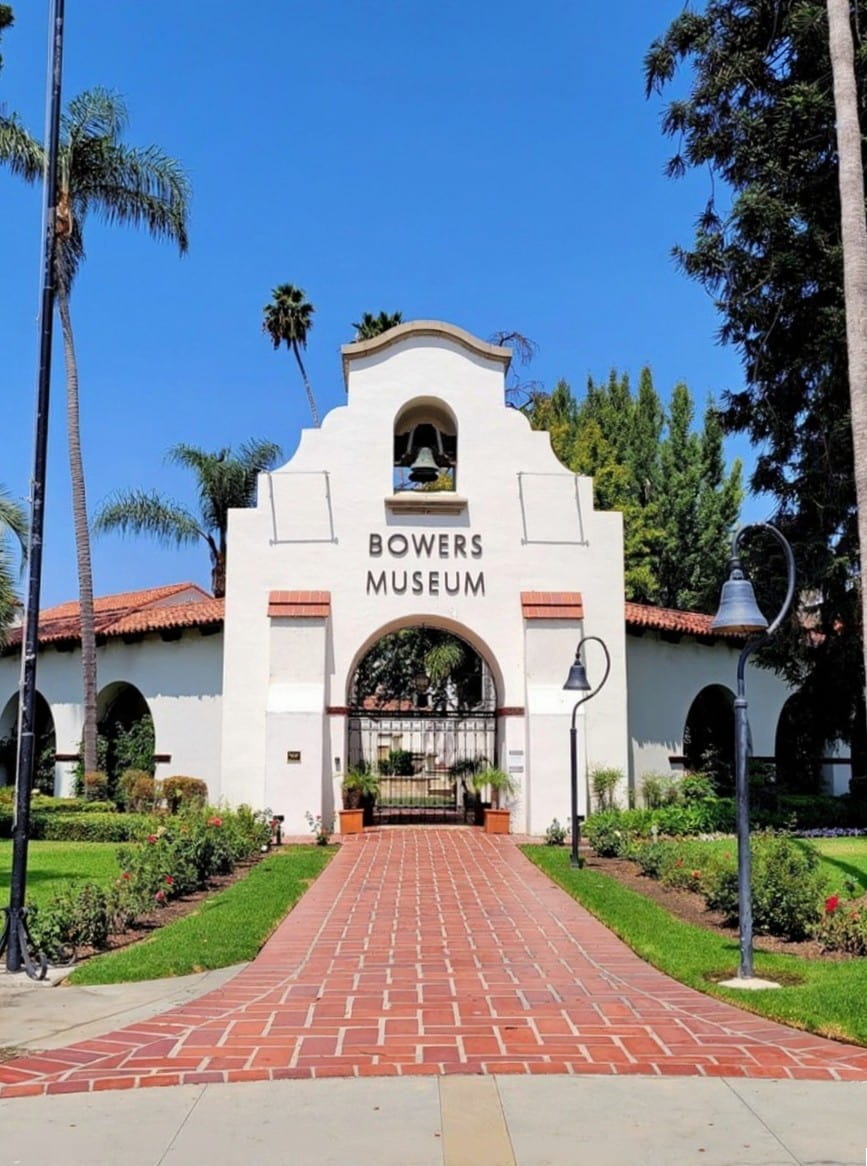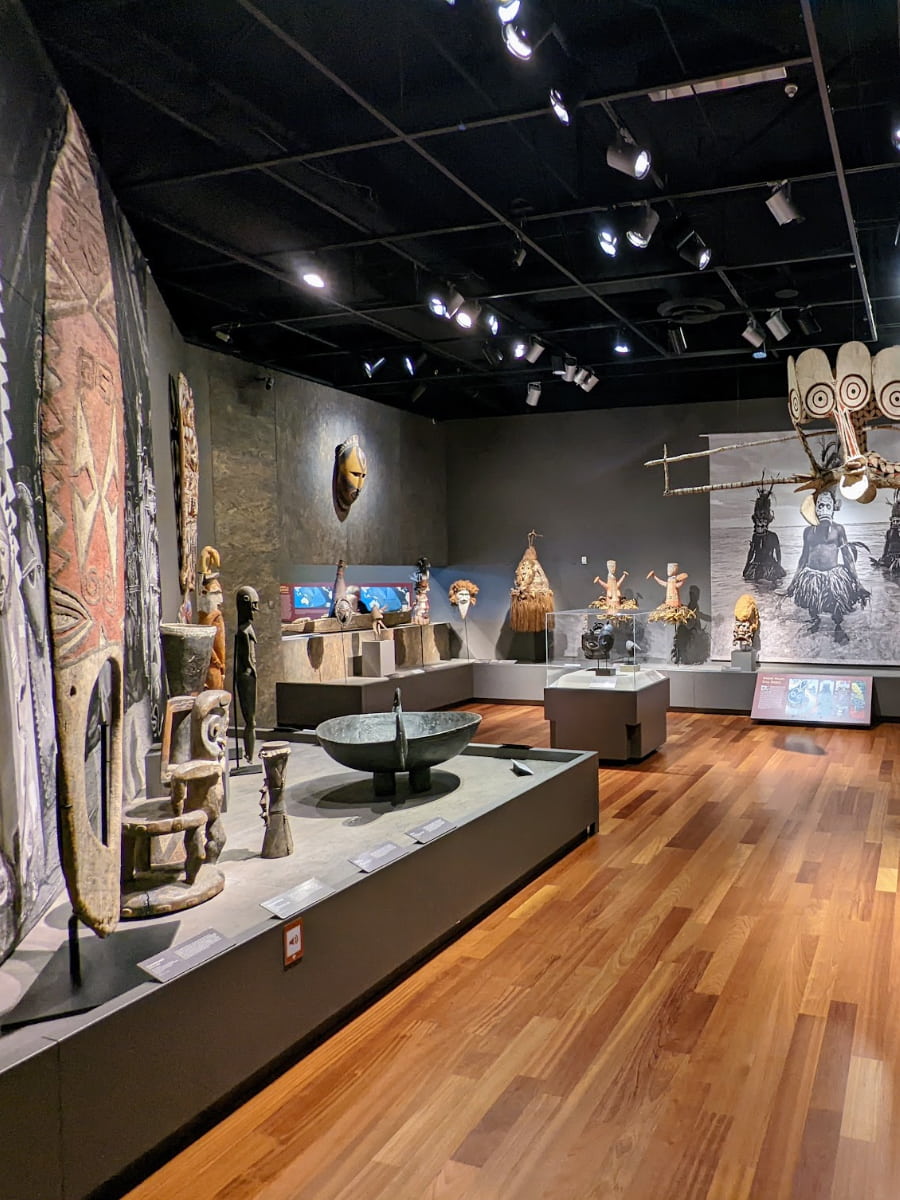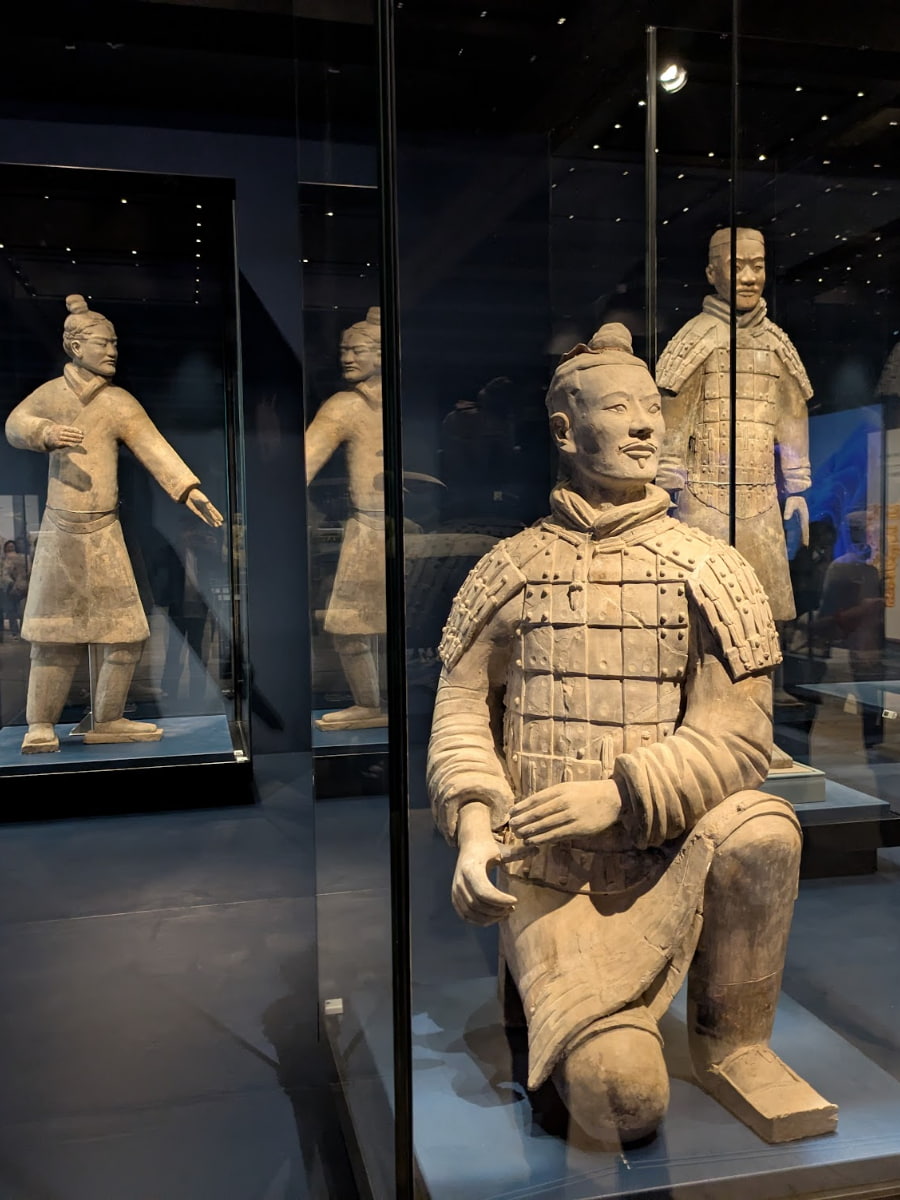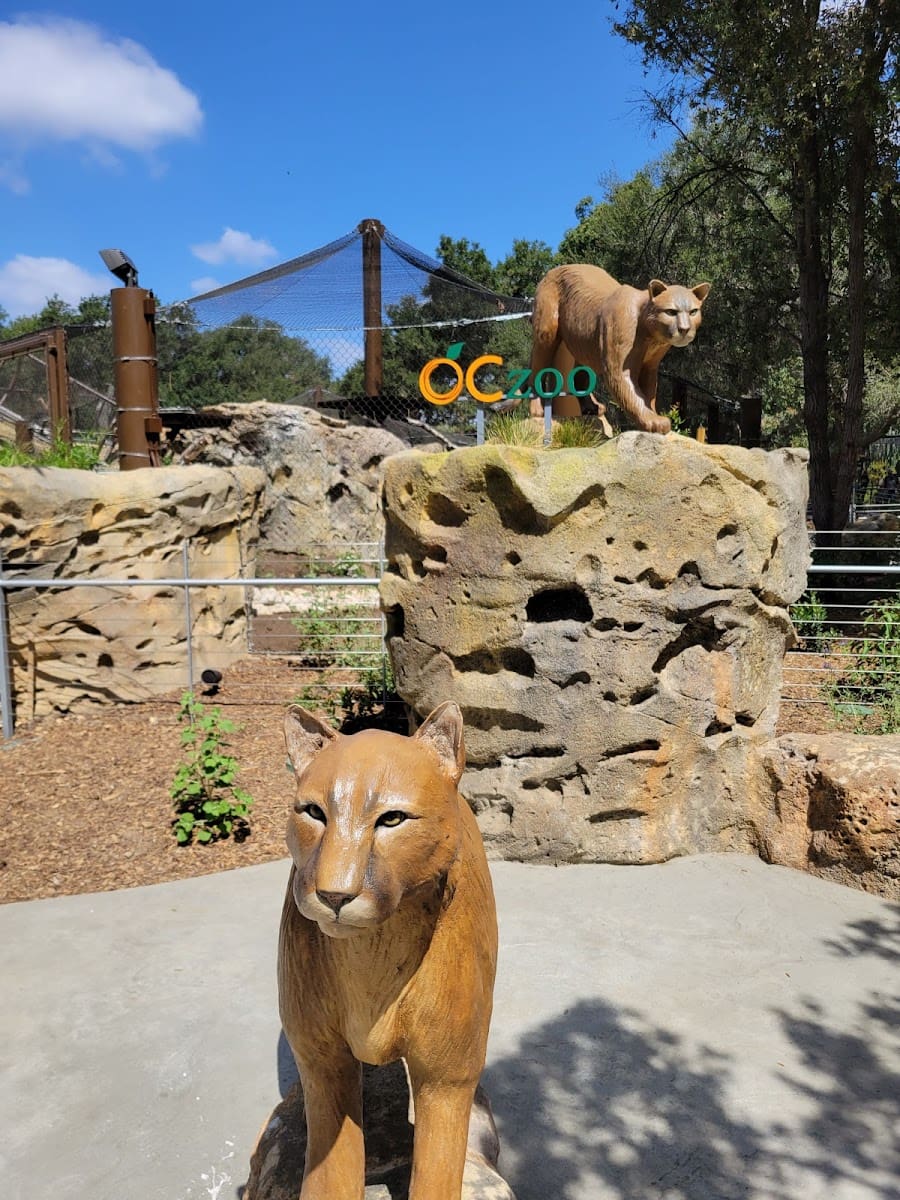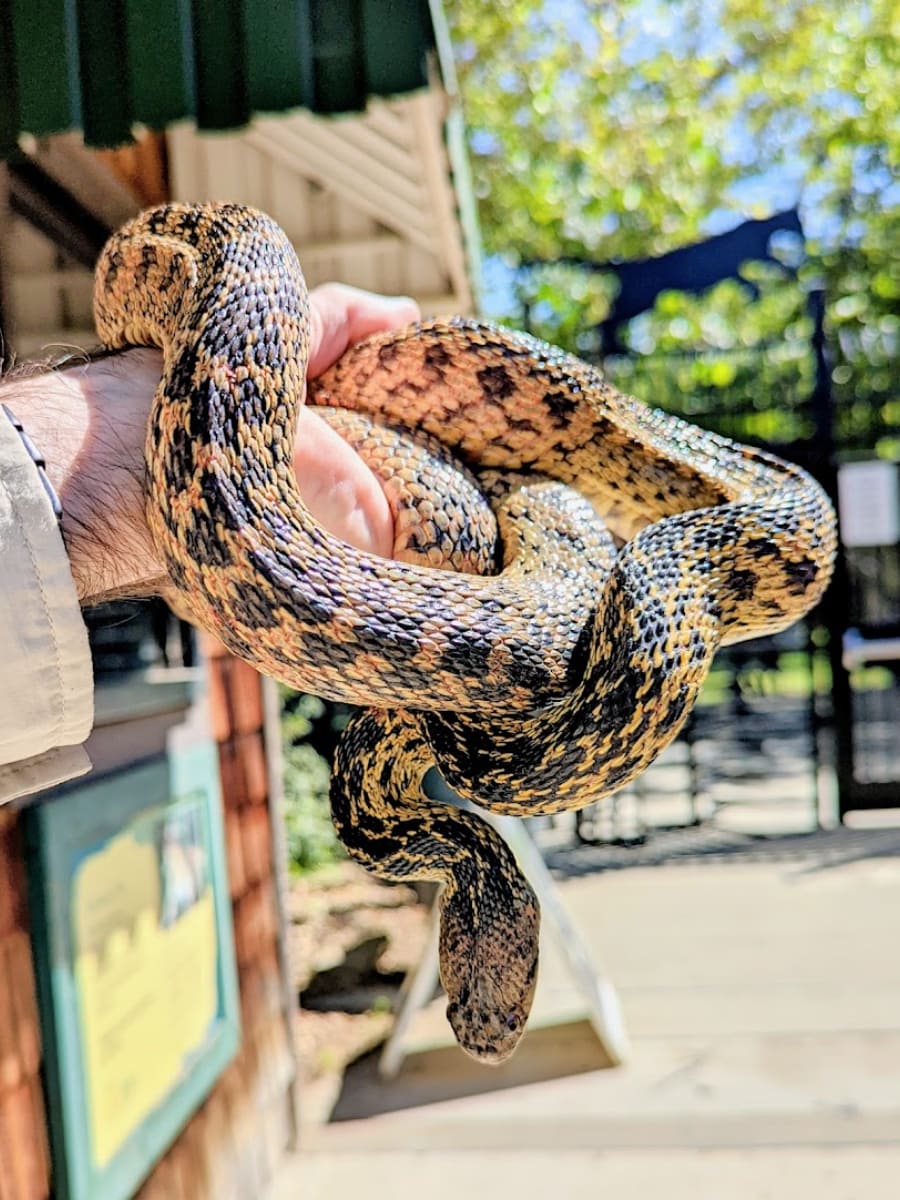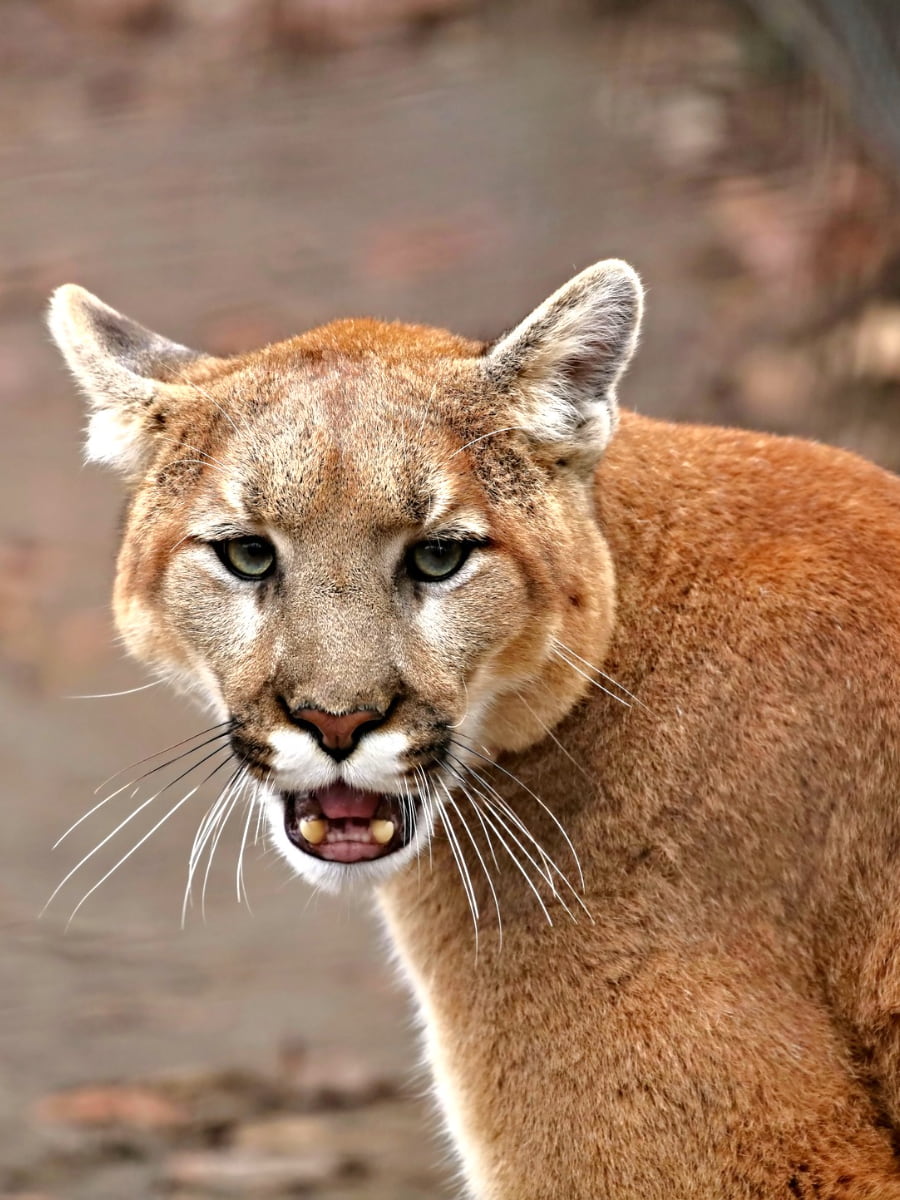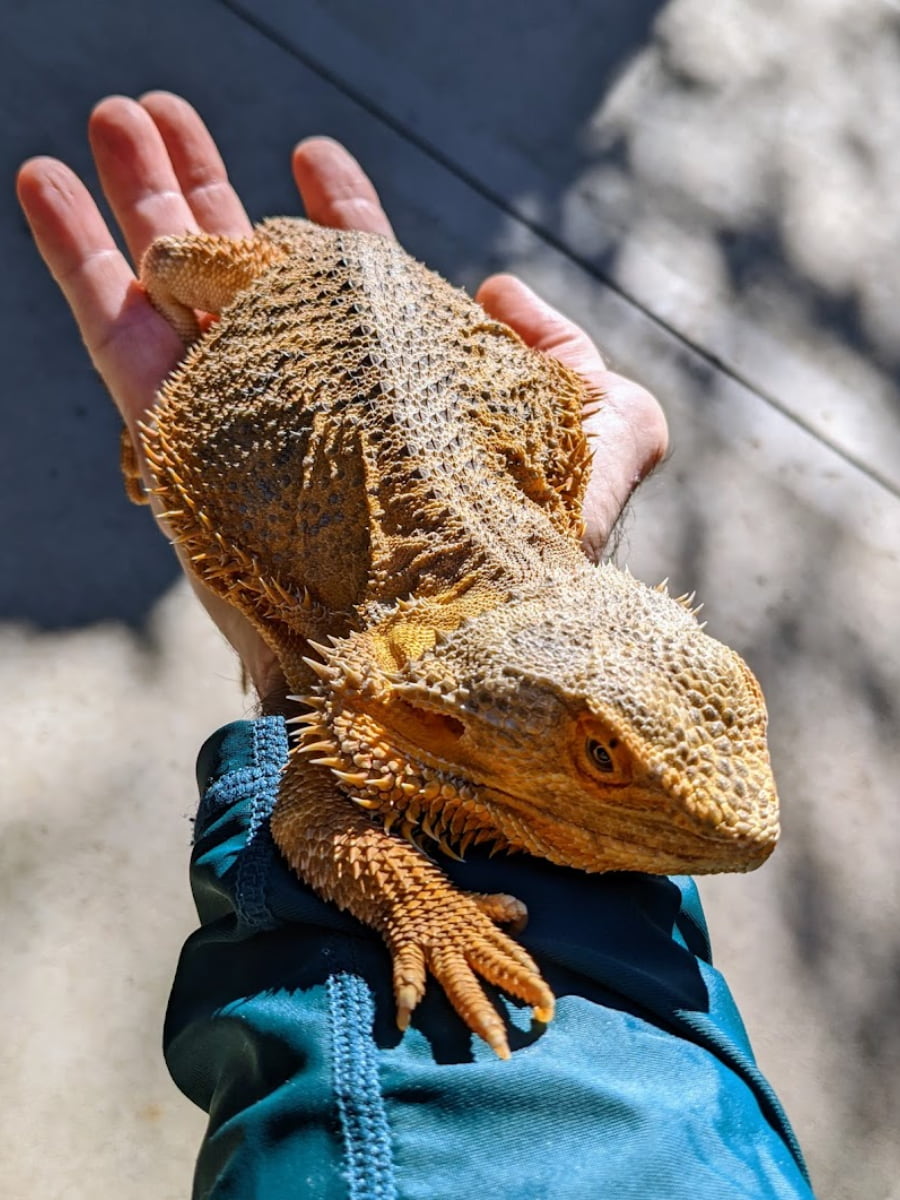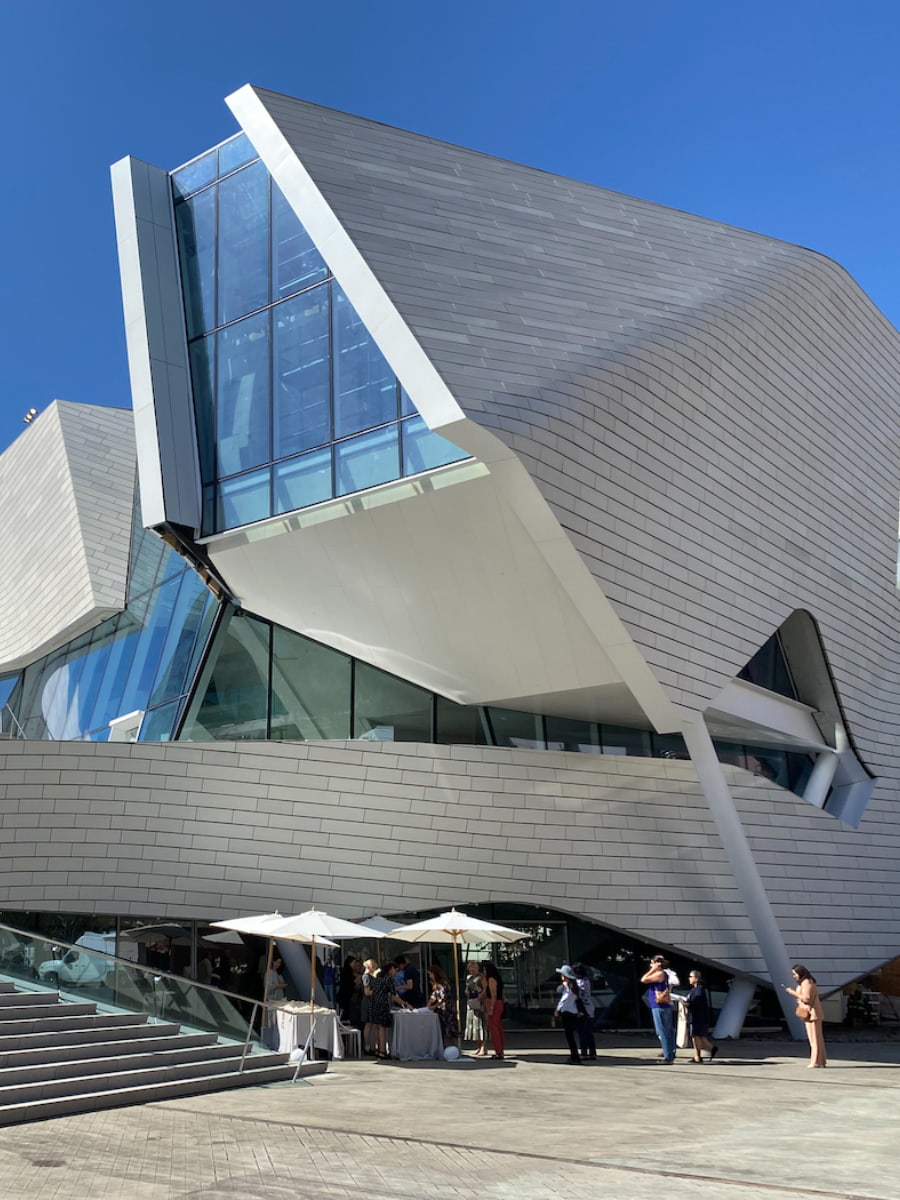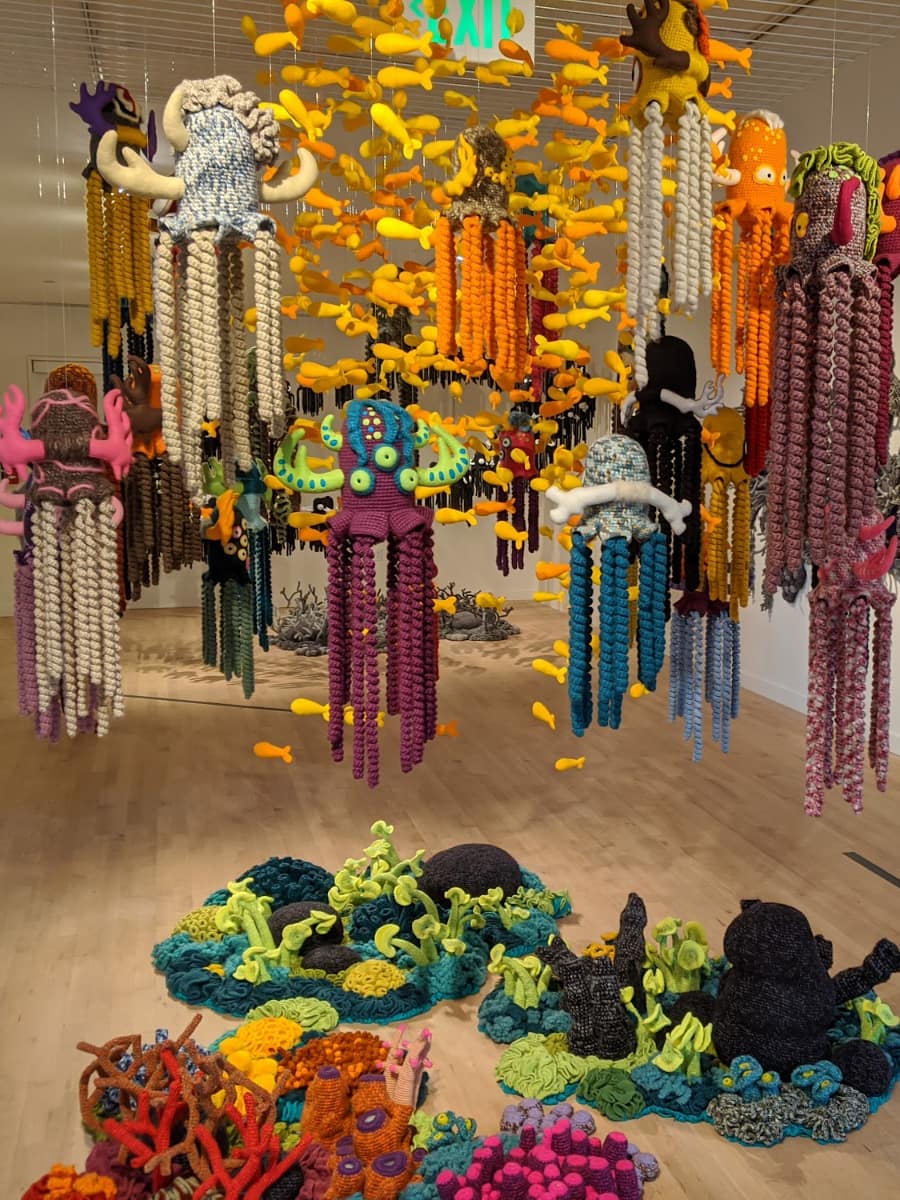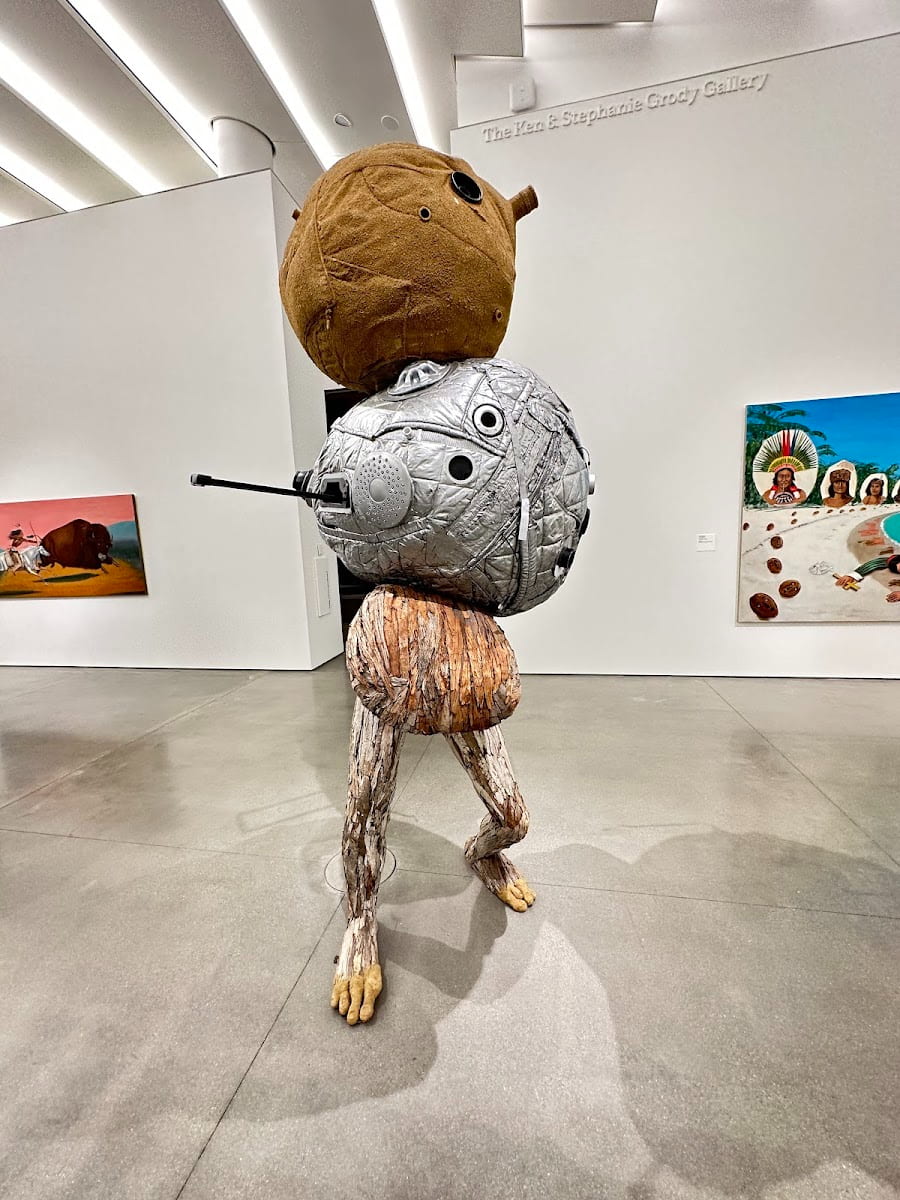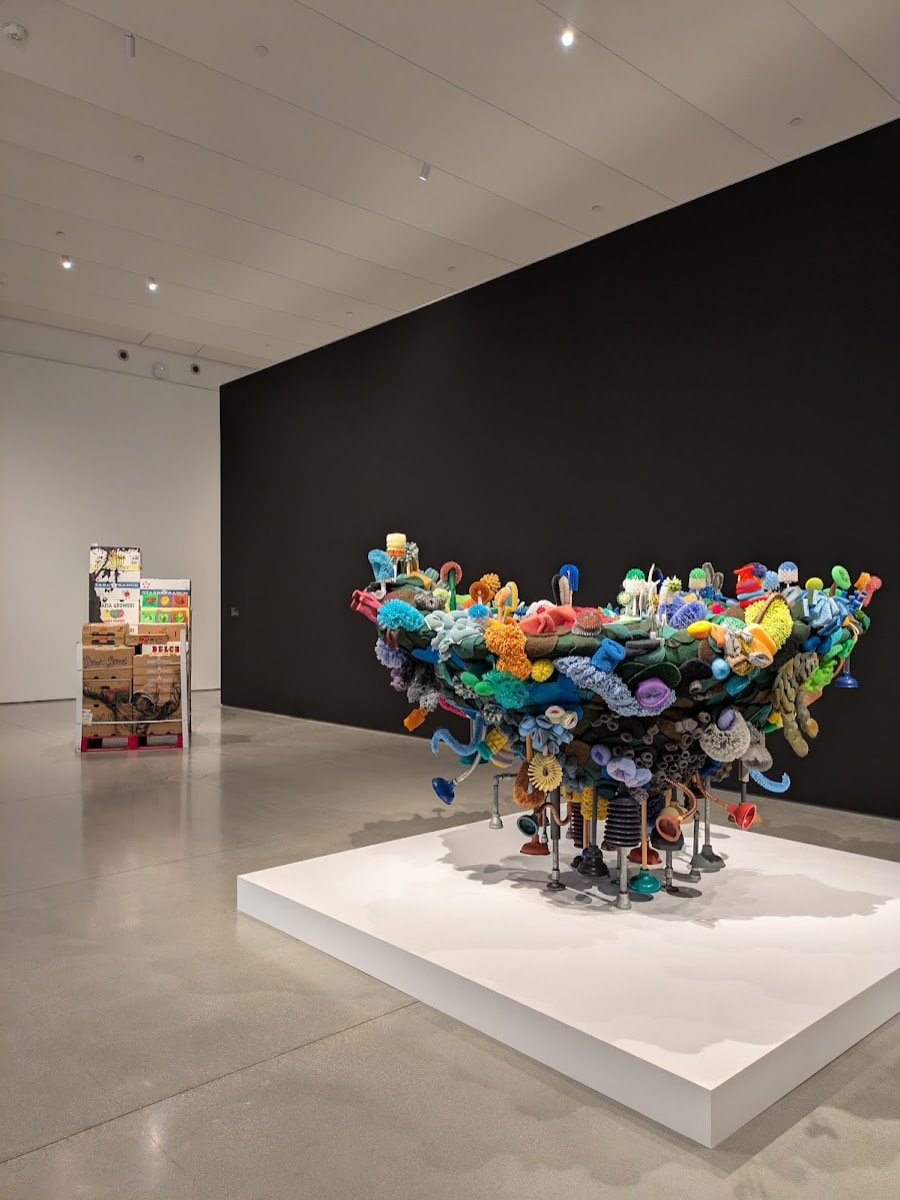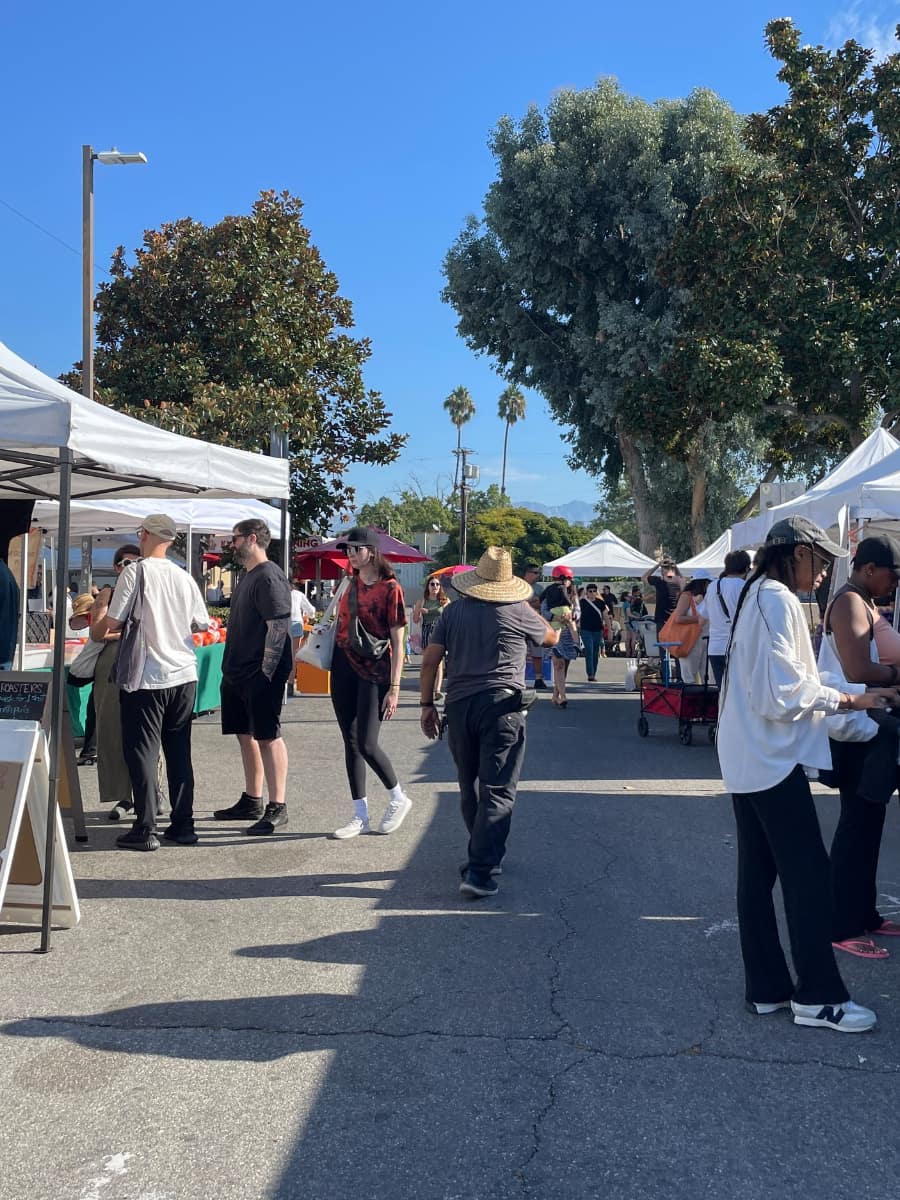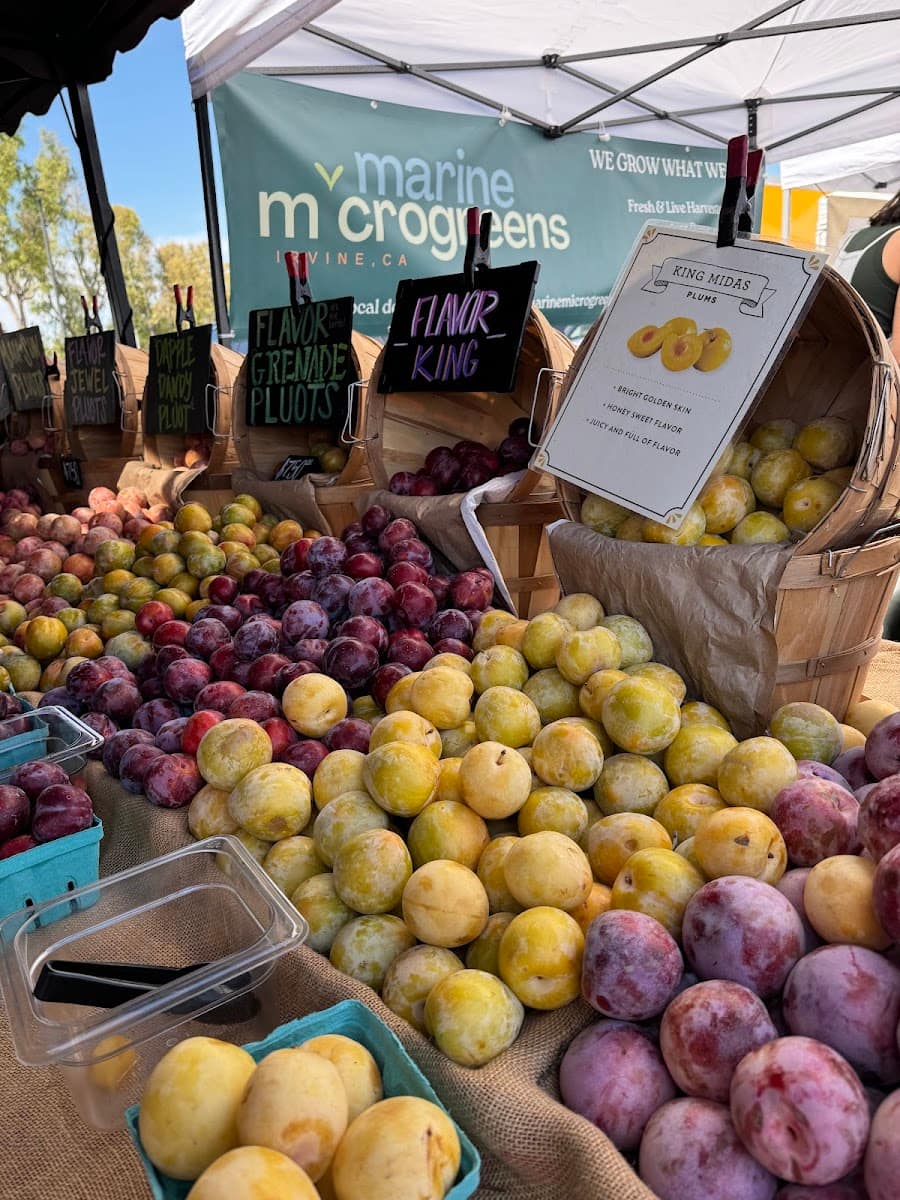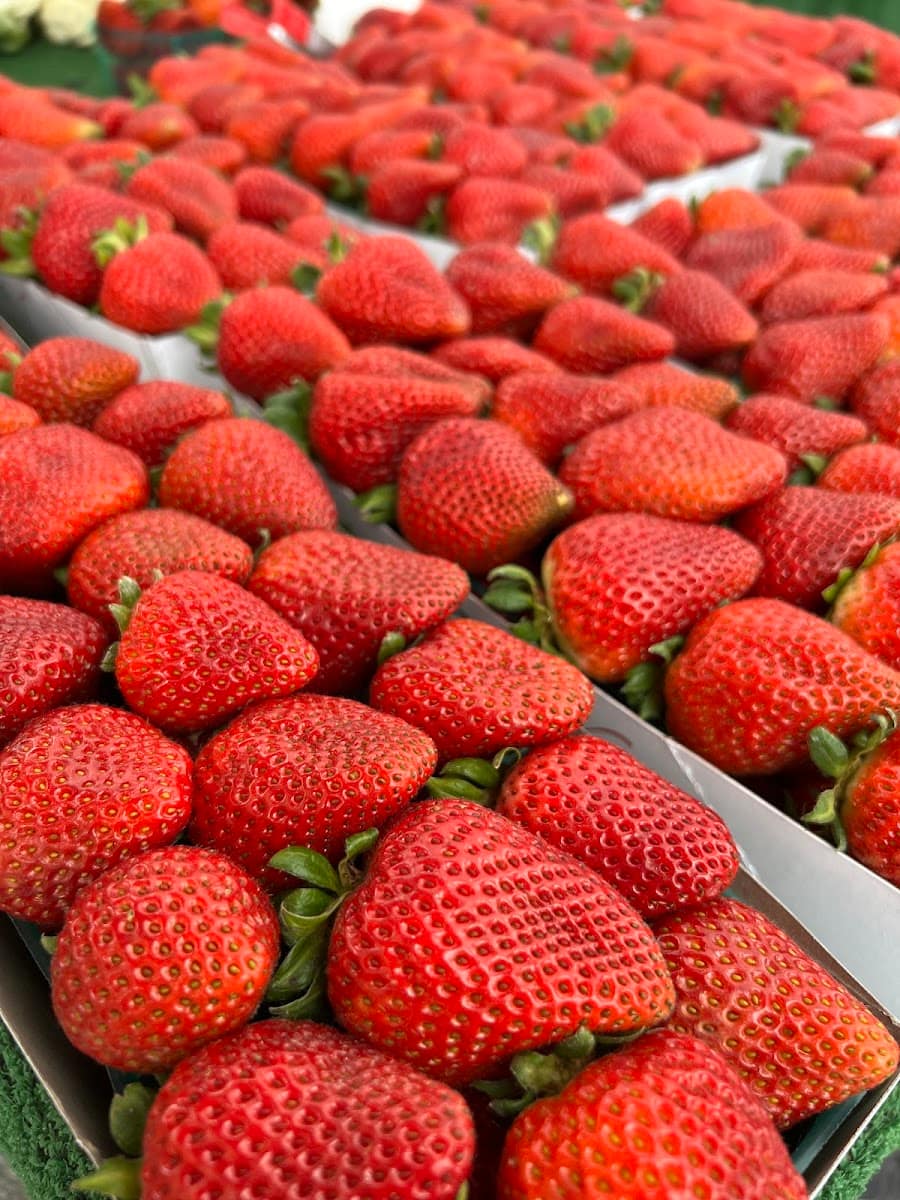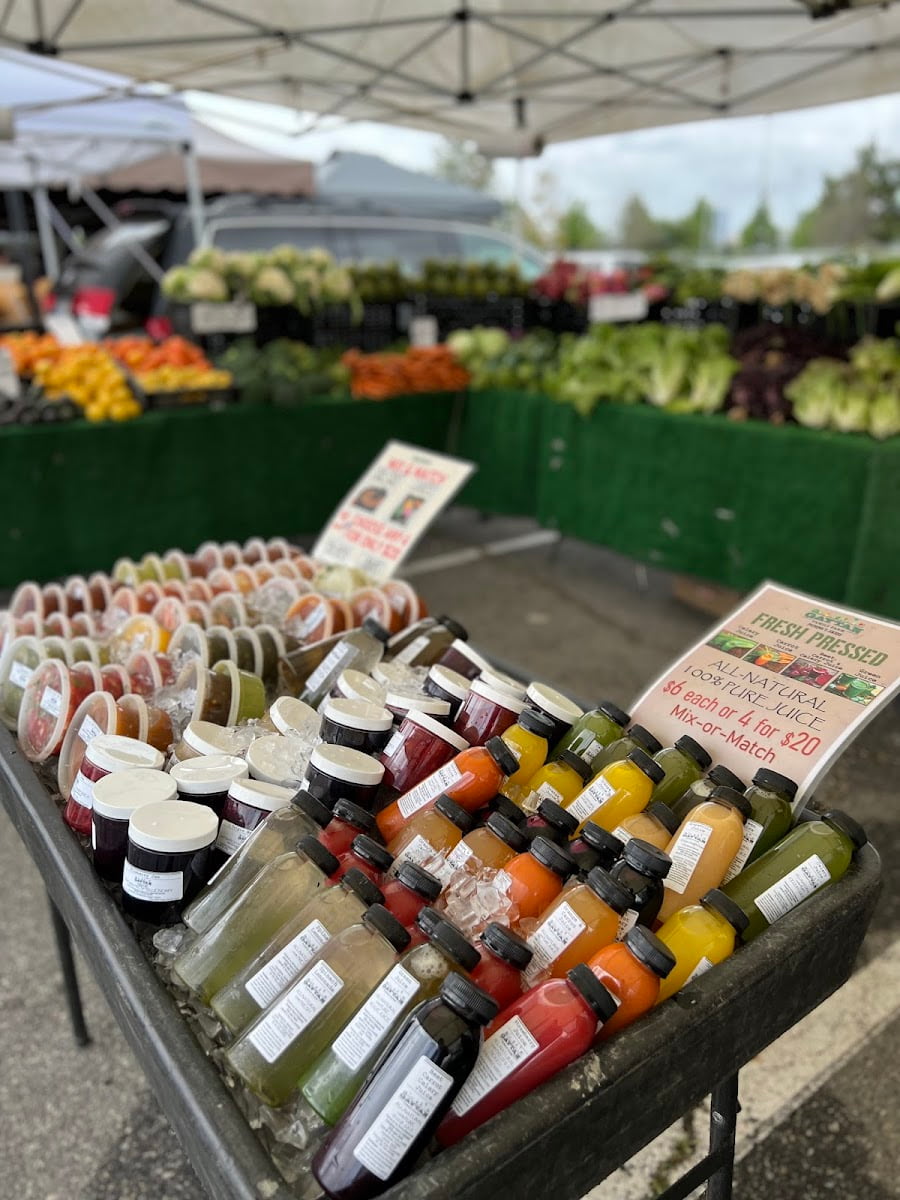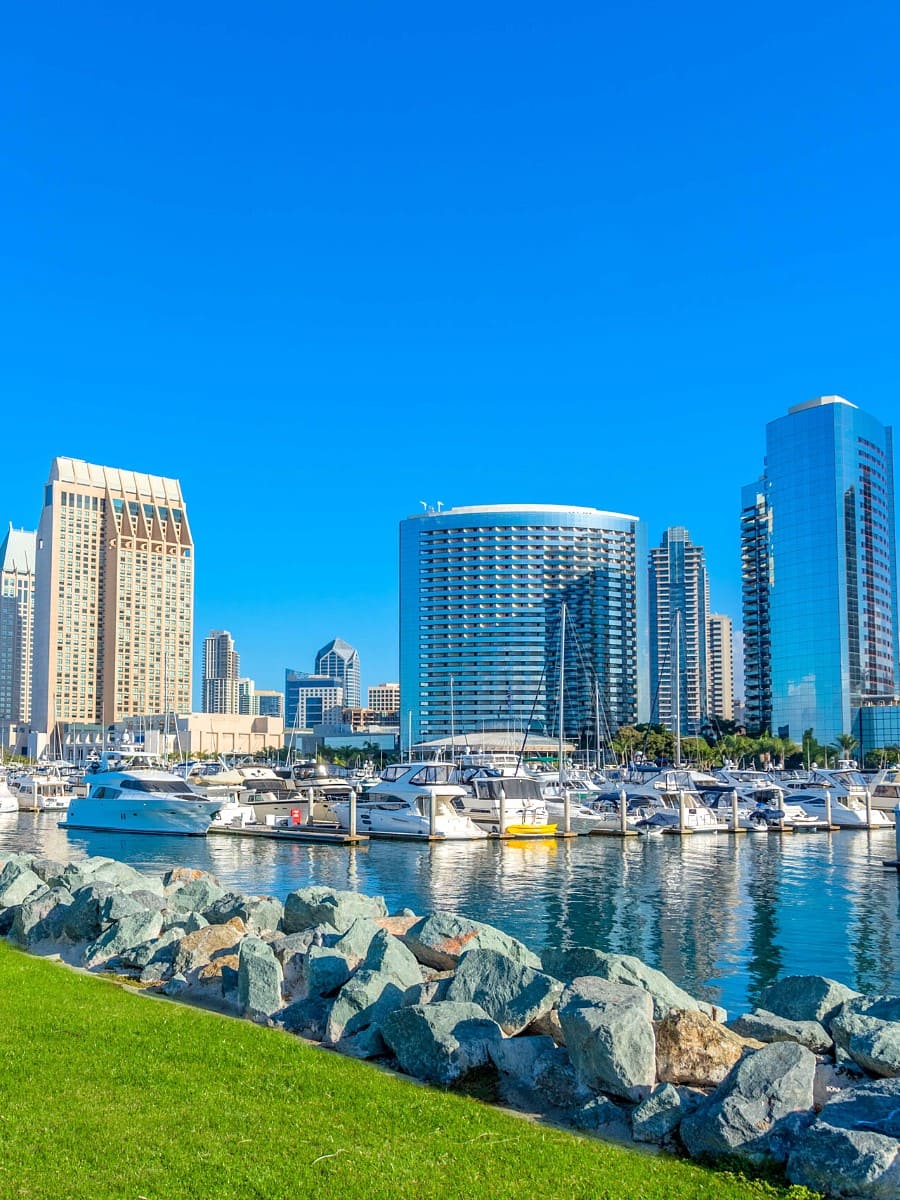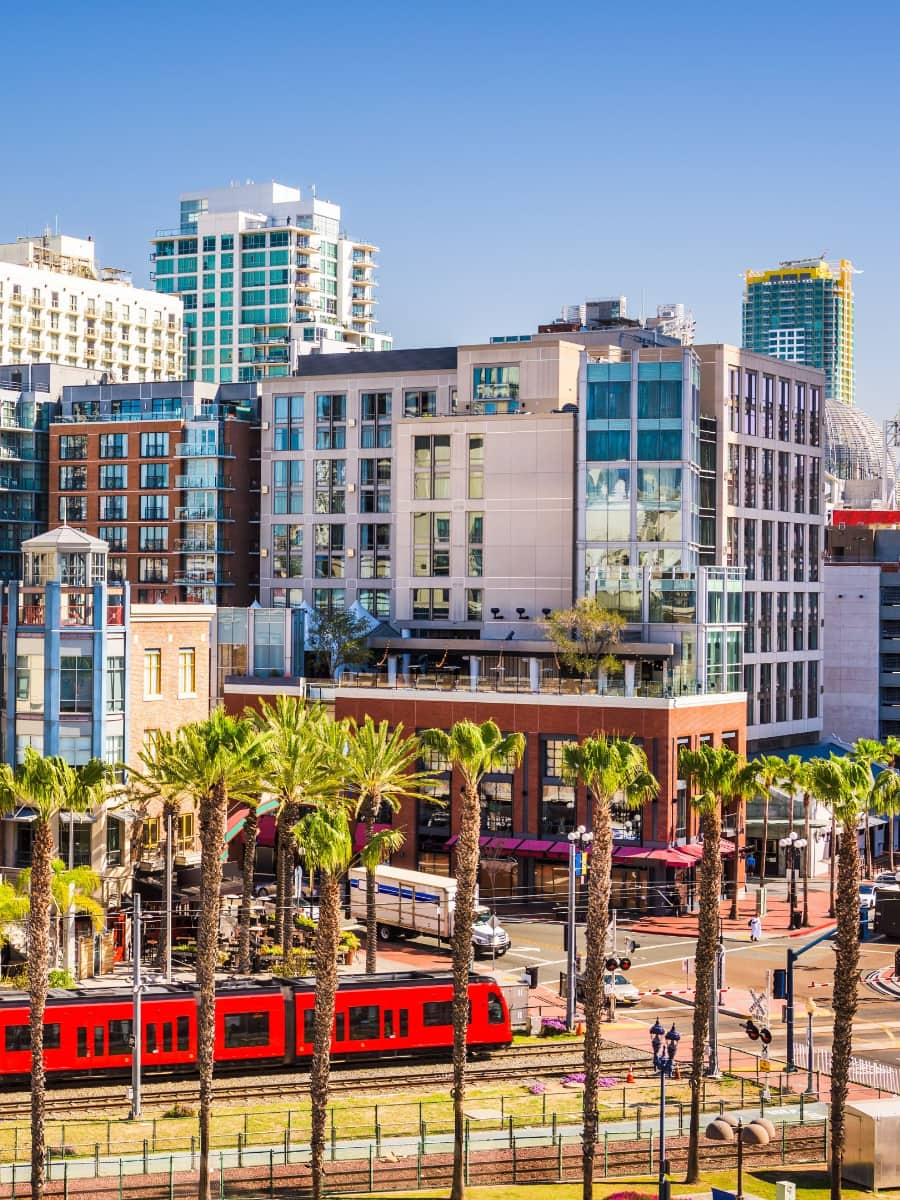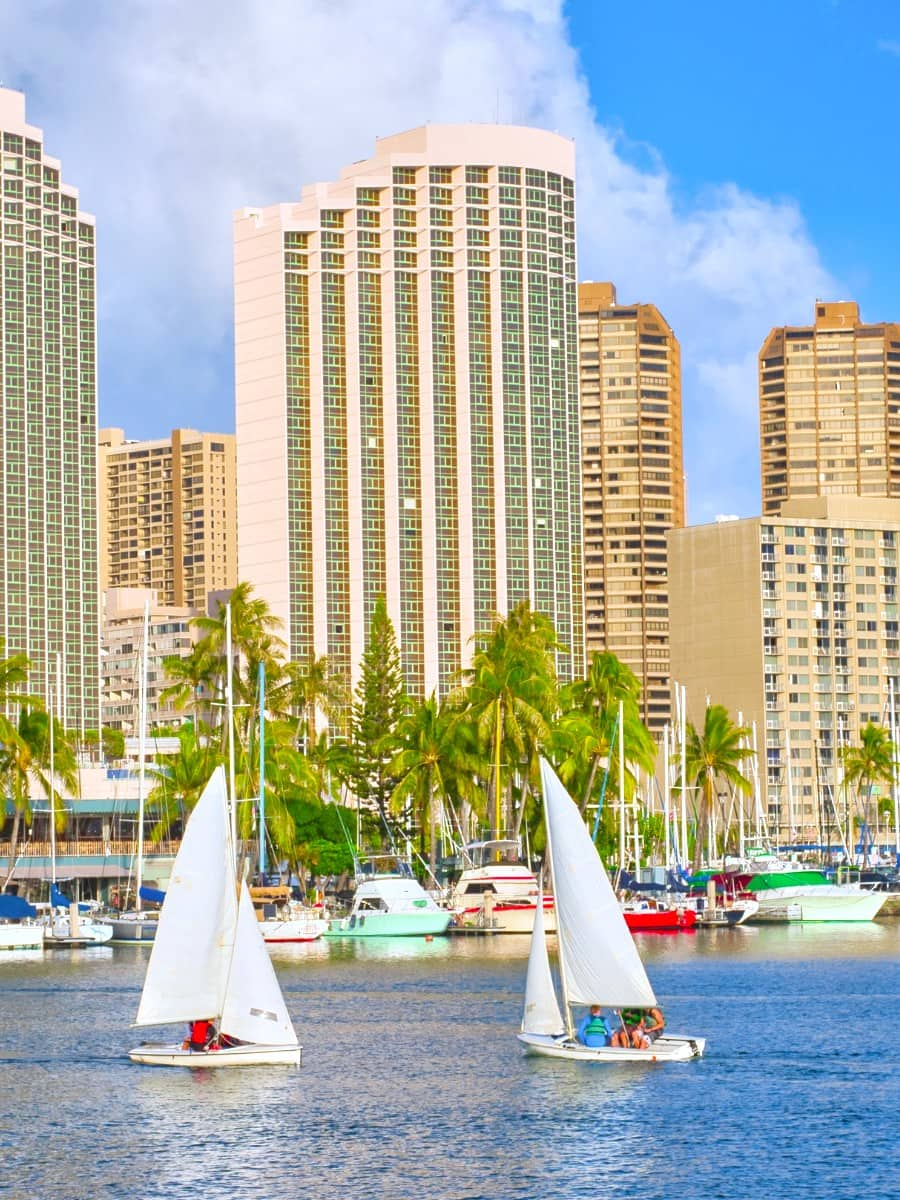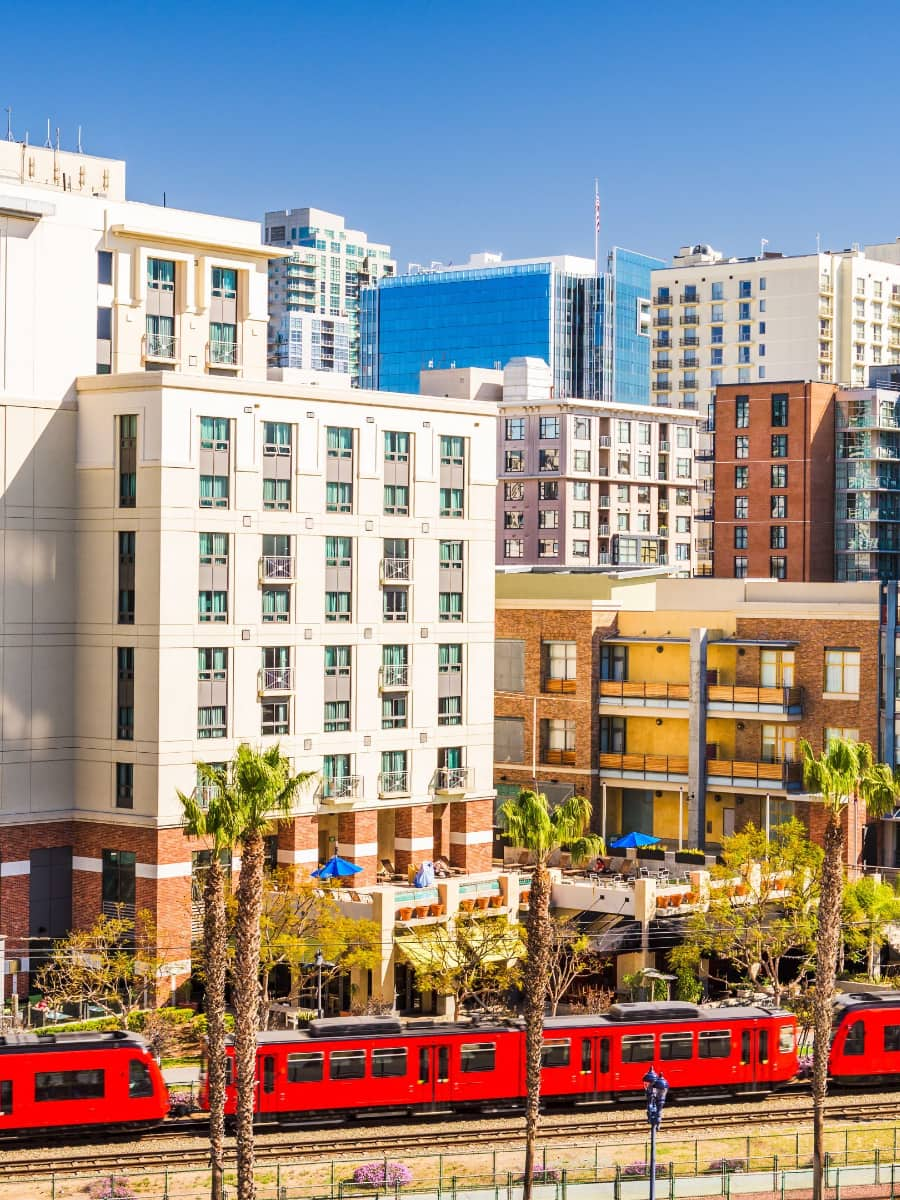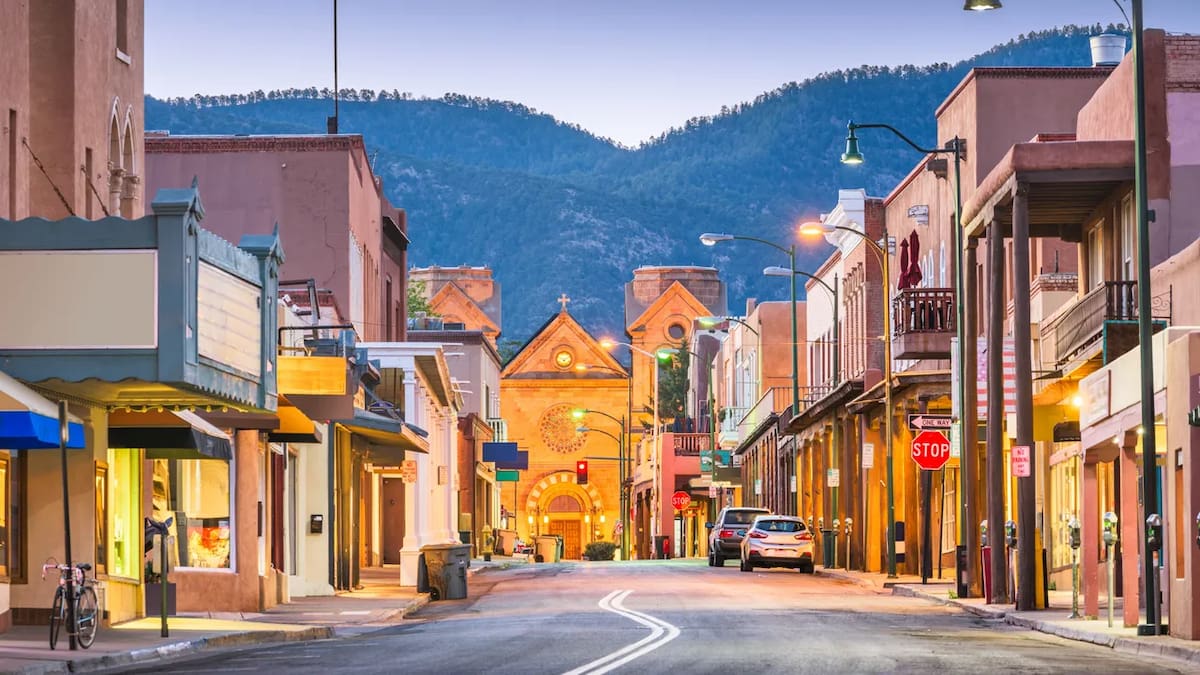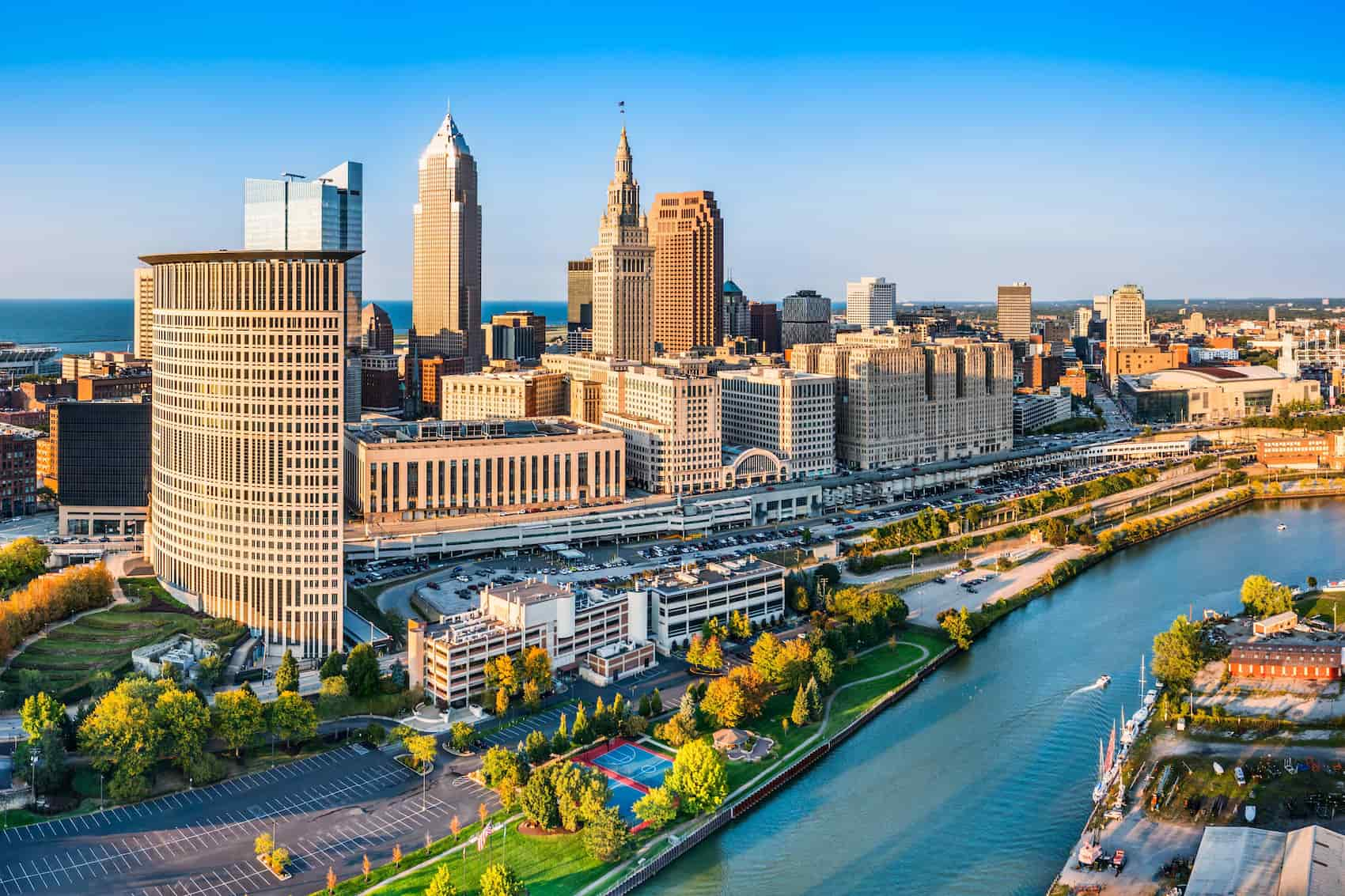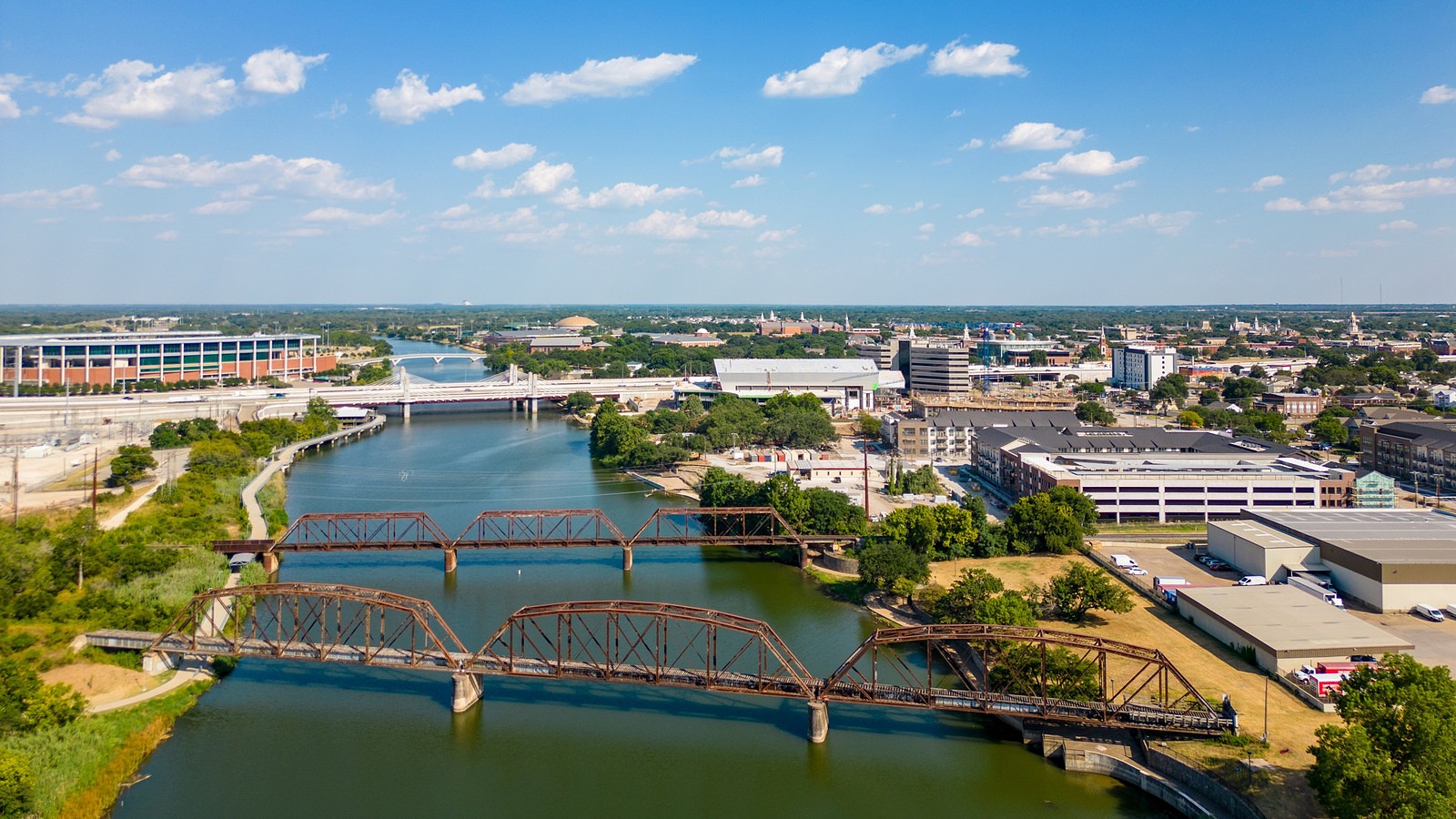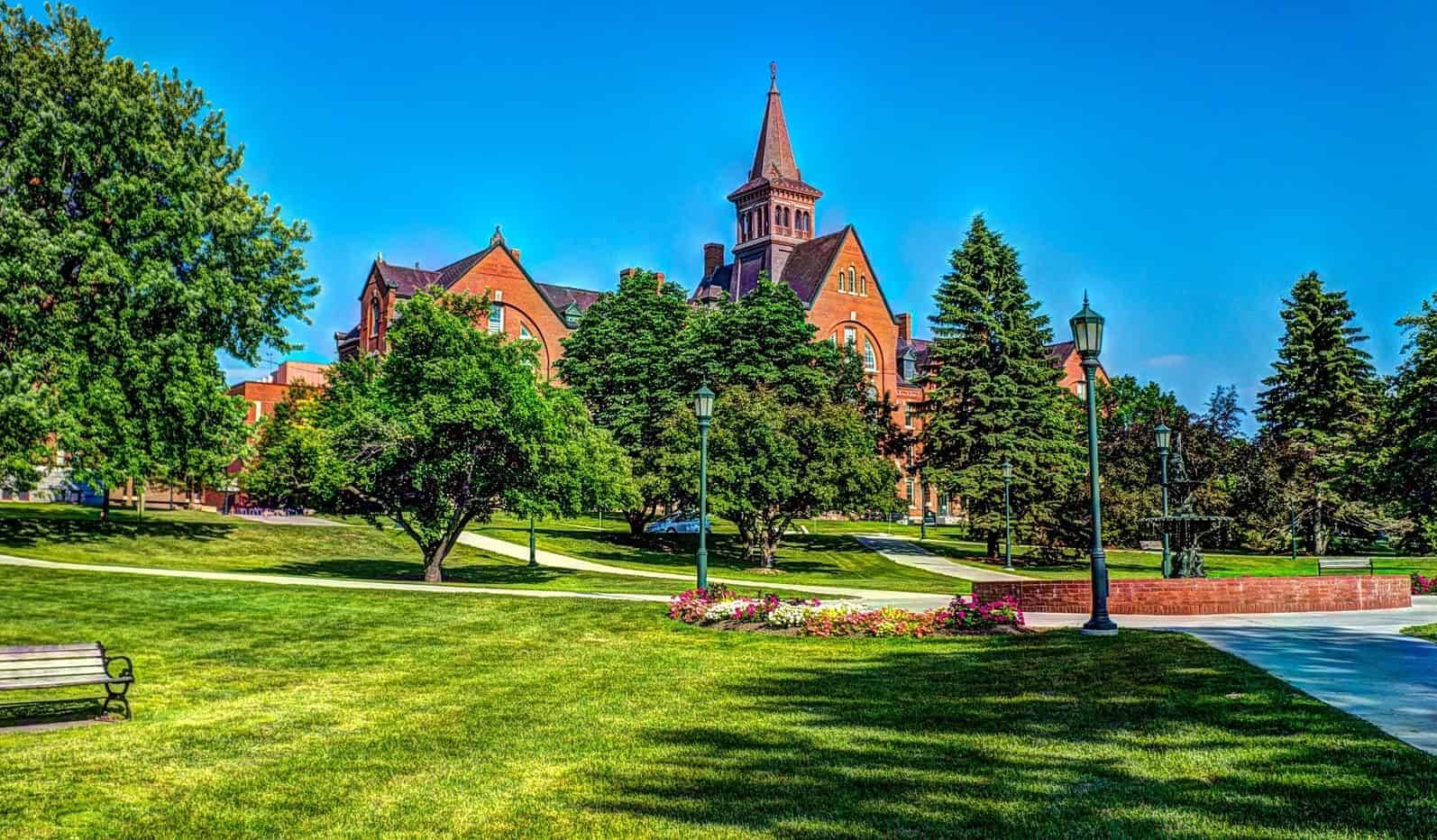Welcome to your ultimate travel guide to Orange County! Whether you’re a first-timer or a seasoned explorer, I’m here to help you make the most of your trip with everything you need to know before you go. In this article, you’ll find the best places to visit, top activities, tasty restaurants, local tips, fun things to do, and even a handy map to guide your adventures—including must-see locations in Orange.
Orange County is where laid-back beach vibes meet world-famous attractions—think sunny days at Huntington or Newport Beach, the magic of Disneyland, and the charm of coastal towns like Laguna Beach and San Juan Capistrano. The mix of natural beauty, buzzing culture, friendly locals, and the occasional outdoor mall in OC makes every visit special. If you’re dreaming of classic California surf and sand, you’ll find it here in abundance, along with a fantastic variety of shops and restaurants to explore during your stay.
🏠 Where to Stay in Orange County
- 💎 Luxury Hotel: Surf & Sand Resort Laguna Beach
- ✨ 5-Star: Hyatt Regency Huntington Beach Resort and Spa
- 🏨 4-Star: Hilton Buena Park Anaheim
- 🛏️ 3-Star: Capri Laguna on the Beach - A Boutique Hotel
- 💸 Cheap: Days Inn by Wyndham Buena Park
- 🏢 Apartment: Hyatt House Irvine/John Wayne Airport
- 👨👩👧👦 For Families: Alpine Inn near Convention Center and the Park
- 🏩 For Couples: Sea Horse Resort
💁 Best Guided Tours
- Mosaic Art Classes Orange County: Turkish Lamp Workshop from $89 (⭐4.9/5)
- Hike and Bike through Orange County from $75 (⭐4.8/5)
- Orange County Coastal Sightseeing Tour With Pickup from $154 (⭐4.9/5)
- Orange Beach Islands Small-Group Tiki Boat Tour from $94 (⭐4.9/5)
- Orange County Beaches Small-Group Tour from $89 (⭐4.7/5)
Best Things to Do in Orange County
1. Disney California Adventure Park (Disneyland)
Magic at Every Turn. Stepping into Disneyland Park in Anaheim, I felt like I’d entered a world where every corner bursts with color, music, and excitement. The park is divided into nine themed “lands”—from the nostalgia of Main Street, USA to the futuristic fun of Tomorrowland and the wild adventures of Frontierland. My favorite? Fantasyland, where the smell of popcorn drifts past the Sleeping Beauty Castle and classic rides like Peter Pan’s Flight and the Matterhorn Bobsleds keep the magic alive. Don’t miss Star Wars: Galaxy’s Edge for a taste of intergalactic adventure or Mickey’s Toontown for cartoon-like fun.
Ticket Prices and Planning. Disneyland tickets aren’t cheap, but the memories are priceless. A 1-day adult ticket costs between $104 and $206 (about €95–€188), depending on the day and season. Kids’ tickets (ages 3–9) range from $98 to $196 (€89–€178). If you want to hop between Disneyland Park and Disney California Adventure, a Park Hopper ticket adds about $65 (€59) per day. Multi-day passes offer better value if you plan to explore more than one day. For shopping fans, pairing your visit with a trip to South Coast Plaza can make for a perfect Southern California day.
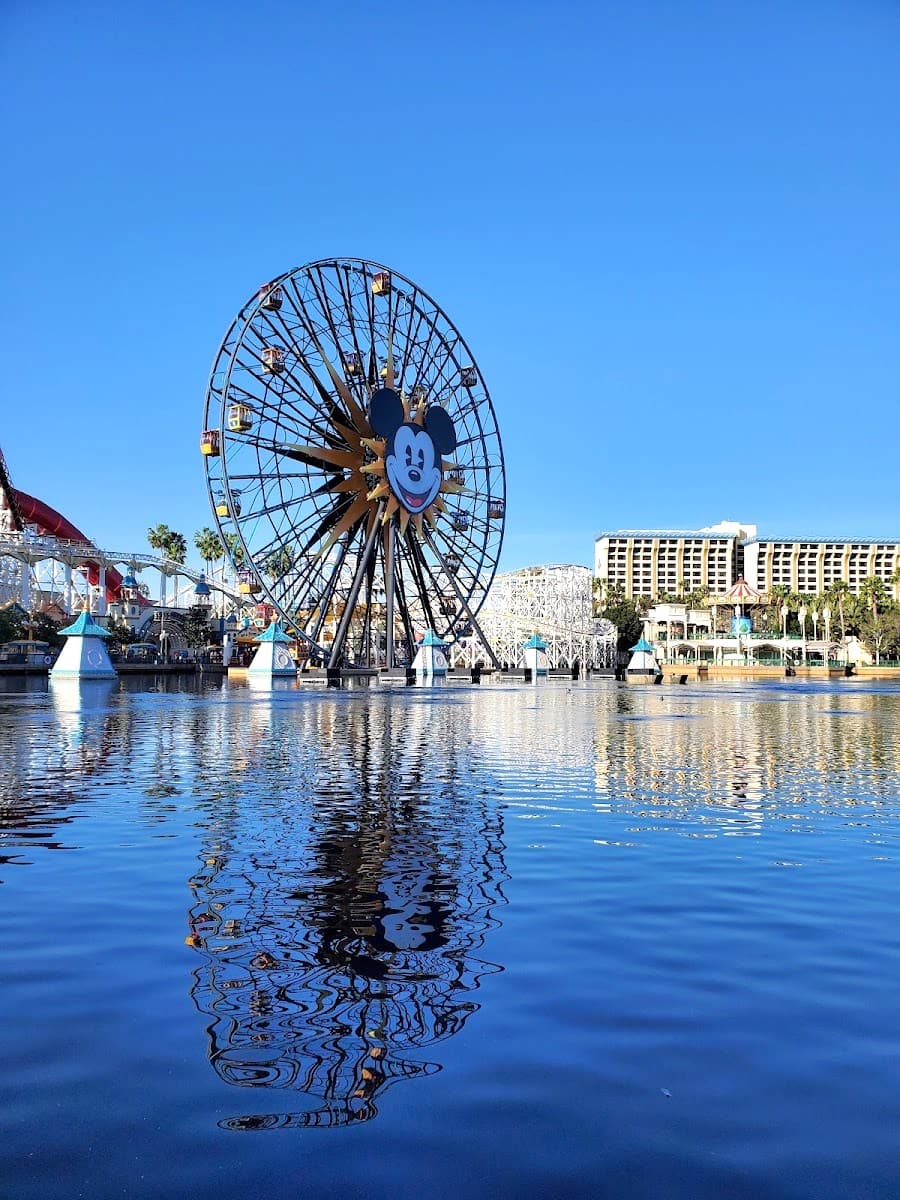
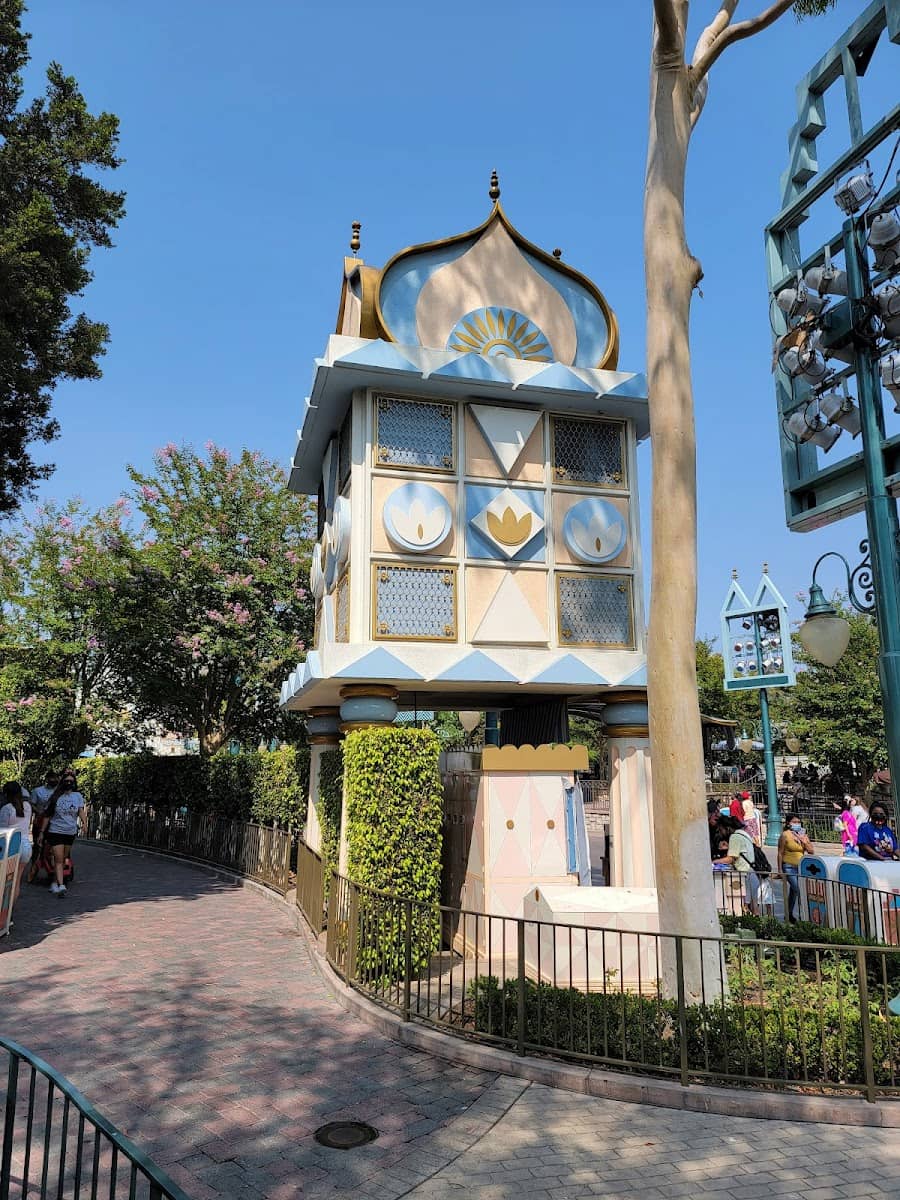
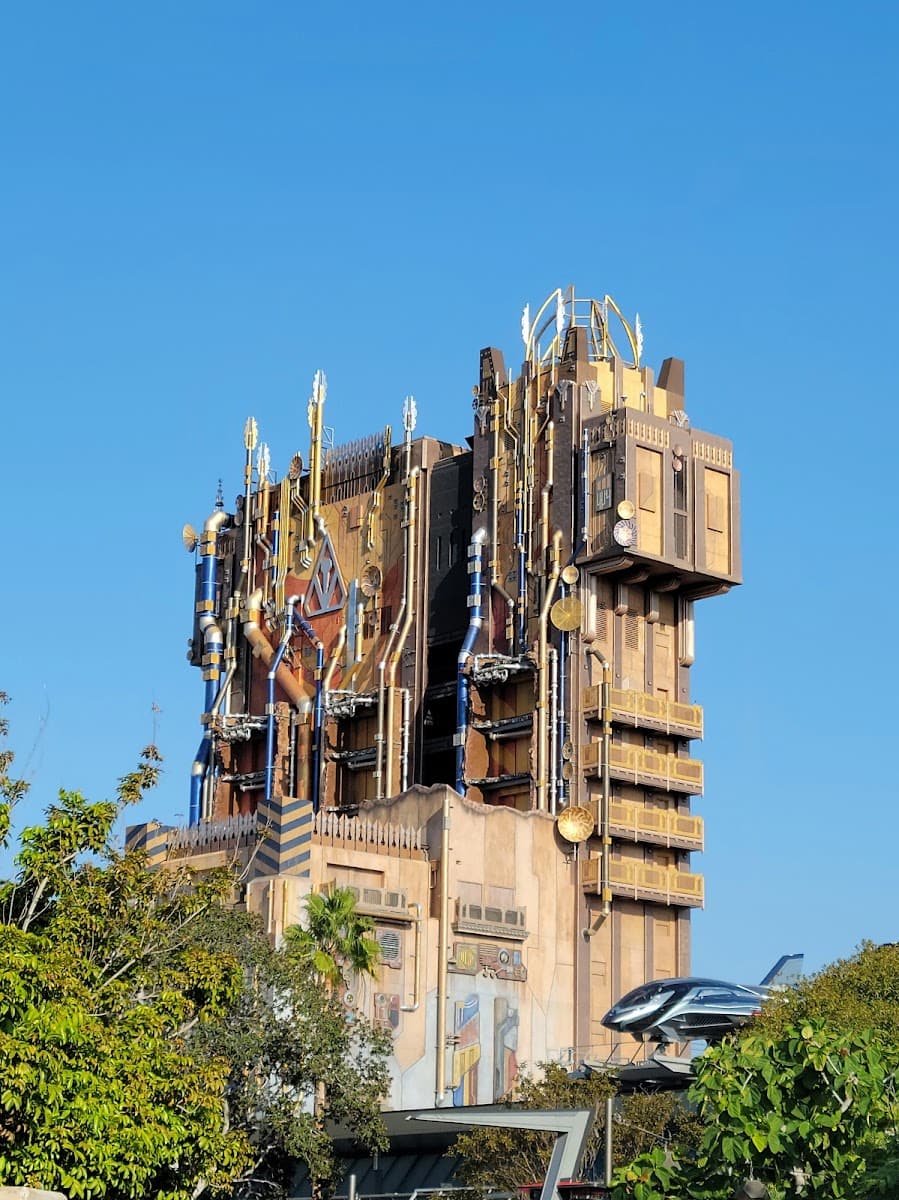
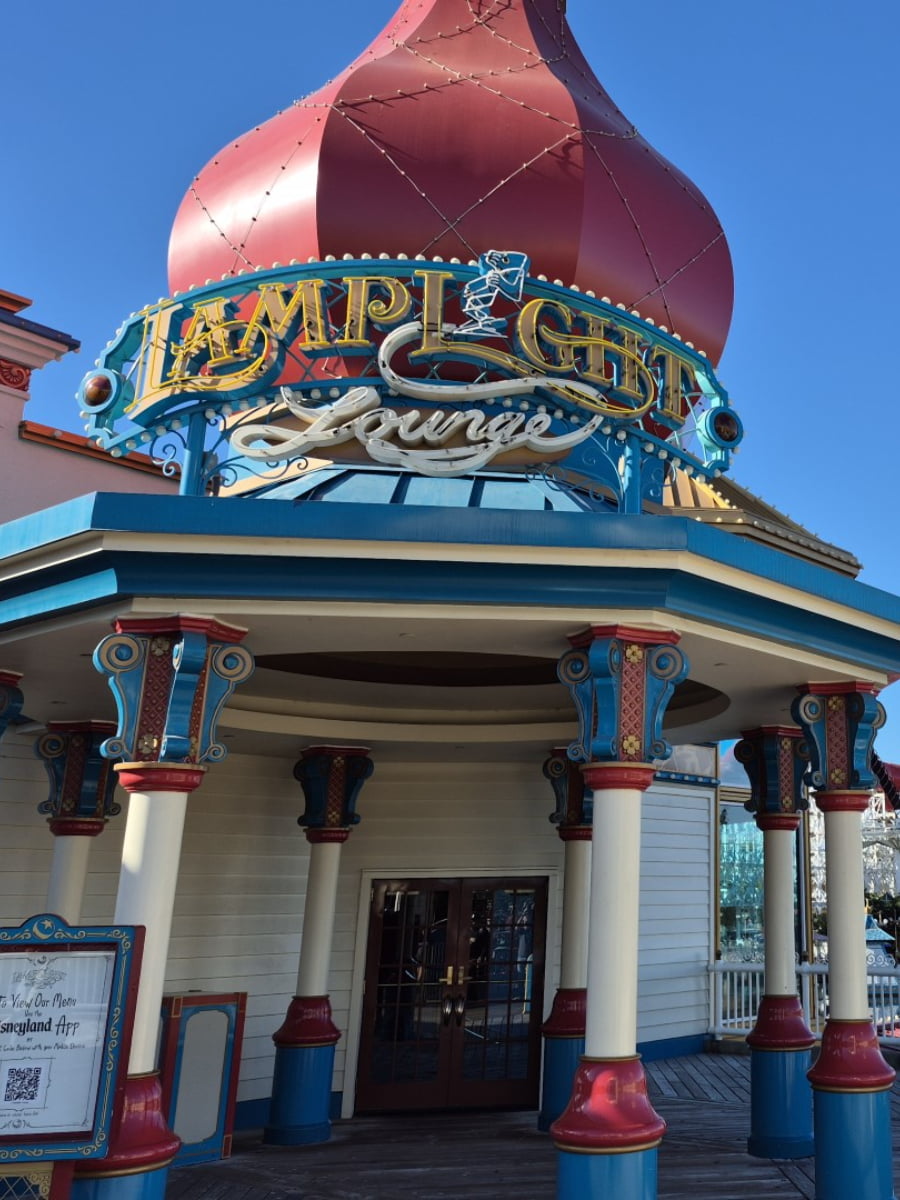
New Attractions and Upgrades. Disneyland is always evolving, and this year is no exception. The entrance gates are getting a high-tech upgrade, making them more accessible for families and visitors with strollers. On July, you’ll be able to meet the very first Walt Disney audio-animatronics figure at the Main Street Opera House—a must-see for Disney fans. The Opera House is also hosting a new exhibit with rare artifacts and memorabilia from the park’s earliest days, giving you a peek into the history and innovation that built Disneyland. And for fans of Pixar, expect a few fun surprises sprinkled throughout the park this season.
Making the Most of Your Day. I always start early—arriving before the gates open means shorter lines for top attractions like Space Mountain or Indiana Jones Adventure. Don’t forget to reserve your entry date online; Disneyland still requires advance reservations, even with a ticket. I use the Disneyland app to check wait times, map out my route, and grab Genie+ (the paid skip-the-line service) for the busiest rides. For meals, I recommend booking dining reservations in advance, especially if you want to try themed restaurants in New Orleans Square or grab a Dole Whip near Adventureland. And if you’re planning a date night, Disneyland’s evening lights and fireworks make it extra special.
| Ticket Type | Adult (10+) | Child (3–9) |
|---|---|---|
| 1-Day, 1 Park | $104–$206 | $98–$196 |
| 1-Day, Park Hopper | $169–$281 | $163–$271 |
| 2-Day, 1 Park | $330 | $310 |
| 2-Day, Park Hopper | $415 | $395 |
Common Mistake: Many visitors rush only to the big rides and miss magical moments—parades, character meet-and-greets, and hidden Mickeys are just as memorable.
⭐ Best Activities
- Disneyland California: 3-Day Park Hopper Ticket + Optional Lightning Lane Pass – Experience the magic at The Happiest Place on Earth with access to both Disneyland Park and Disney California Adventure Park, plus optional Lightning Lane Pass for skip-the-line access.
2. Huntington Beach (Surf City USA)
Surf Culture. Huntington Beach, known as Surf City USA, is the heart of Orange County’s beach life. I felt the laid-back vibe as soon as I walked the ten-mile stretch of golden sand lined with palm trees and watched people riding waves near the iconic landmark that extends 1,850 feet into the Pacific. This spot is the most photographed in town and a great place to watch the sunset or spot local anglers. If you’re into wave riding, don’t miss the Hall of Fame, the International Museum, or the Walk of Fame—all celebrating over a century of local history.
Active Days. There’s always something happening on the sand. I joined a game of beach volleyball, watched a yoga class with the ocean as a backdrop, and saw families flying kites and building sandcastles. The beach is also home to dog-friendly areas, like Dog Beach, where pups ride the waves and play in the sand. For nature lovers, the Bolsa Chica Ecological Reserve is a peaceful spot for birdwatching and walking trails. If you want to explore further, rent a cruiser bike for $10/day (about €9) from Bargain Bike Rentals and ride the paved path connecting Huntington State Beach, City Beach, and Bolsa Chica.
Downtown & Dining. Downtown Huntington Beach is full of energy, especially on Main Street and Fifth Street. I browsed board shops like Jack’s Surfboards, picked up a souvenir at Model Citizen, and grabbed a bite at local favorites. Pacific City, right by the ocean, is an open-air mall with trendy shops and restaurants—perfect for people-watching or enjoying ocean views with your meal. On Tuesday evenings, Surf City Nights brings live music, a farmers market, and street food to downtown, making it a lively spot for locals and visitors alike.
Events and Festivals. Huntington Beach is famous for its lively calendar of events all year round. I’ve seen everything from the legendary US Open in late July and early August—where top athletes from around the world compete right by the water—to the vibrant Summer Concert Series, which fills the air with music and energy. Foodies love the Taste of Huntington Beach, a festival showcasing local flavors, while art fans can stroll the Huntington Beach Art Walk or join the creative buzz at City Nights every Tuesday. For families, the 4th of July Parade is a must—this is the biggest Independence Day celebration west of the Mississippi, with more than 500,000 people, floats, classic cars, and fireworks over the ocean.
| Parking Option | Price (USD/EUR) | Notes |
|---|---|---|
| Beach Parking Lot | $15–$20 (€14–€18) | Closest to sand and fire pits |
| Metered Parking | $1.50/hr | Max $12/day (€11) |
| Pacific City Garage | Free with purchase | Good for shopping/dining visits |
Budget Tip: Many events are free—bring your own snacks and drinks, and use public parking for the best value.
3. Knott’s Berry Farm
Old West Thrills. This classic Buena Park theme park is packed with wild rides, live shows, and five themed areas. I started my day in the old western streets, where wooden boardwalks, quirky characters, and the legendary GhostRider roller coaster set the mood. The Boardwalk is home to Xcelerator, a high-speed launch coaster that had my heart racing, while Fiesta Village brings bright colors, music, and Mexican street food. For families, Camp Snoopy is a highlight—kids can meet Peanuts characters and enjoy gentle rides in a forest setting.
Seasonal Events and Festivals. This park is a year-round celebration in south Orange County. I always plan my visits around their unique festivals—my favorite is the Boysenberry Festival each spring, where you can try wild treats like boysenberry-glazed chicken wings and purple berry quesadillas. During the PEANUTS Celebration (late January to March), the park comes alive with Peanuts characters, themed shows, and comic-strip fun. Summer means Wild West Alive!—an interactive experience with bandits, hoedowns, and live-action drama. Autumn brings Spooky Farm for families and the legendary Scary Farm for thrill-seekers, while winter transforms the park into Merry Farm, complete with holiday shows and festive food.
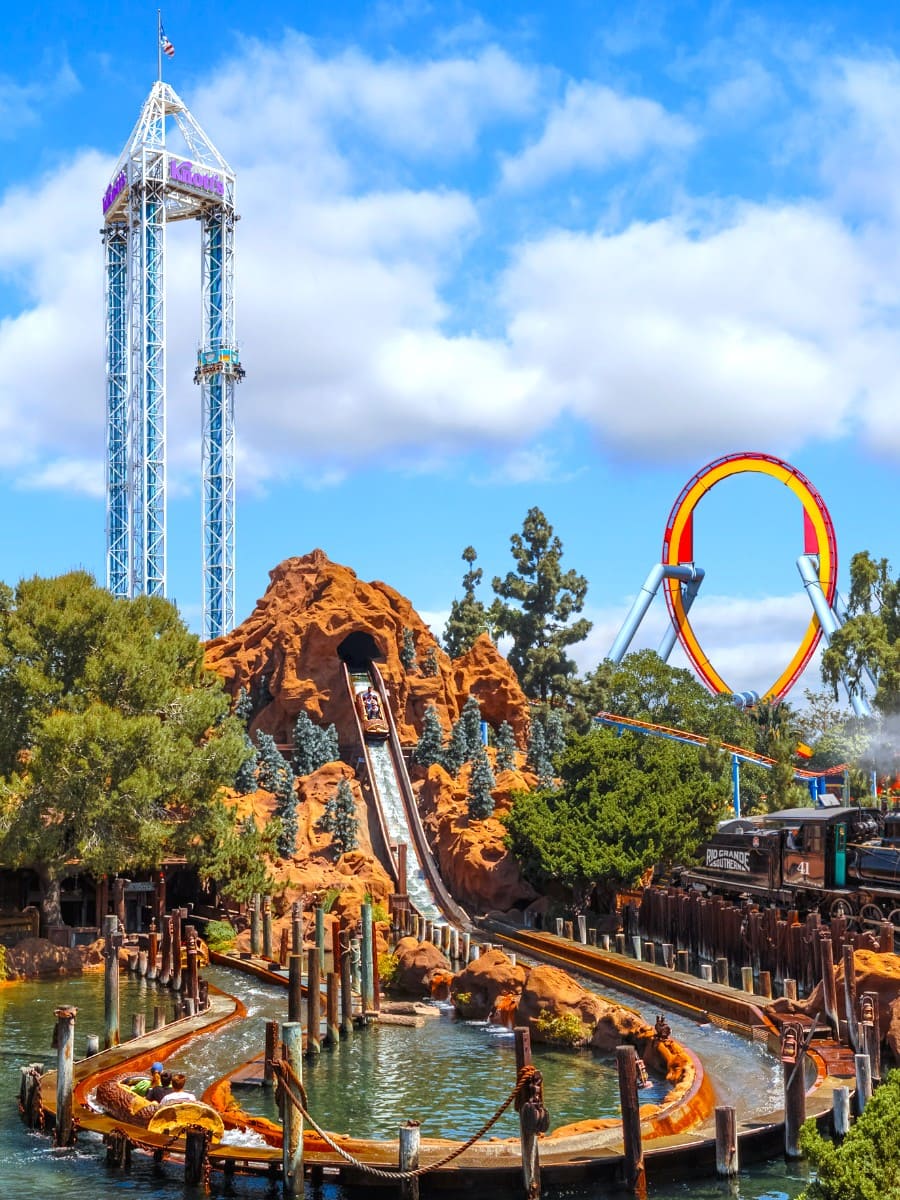
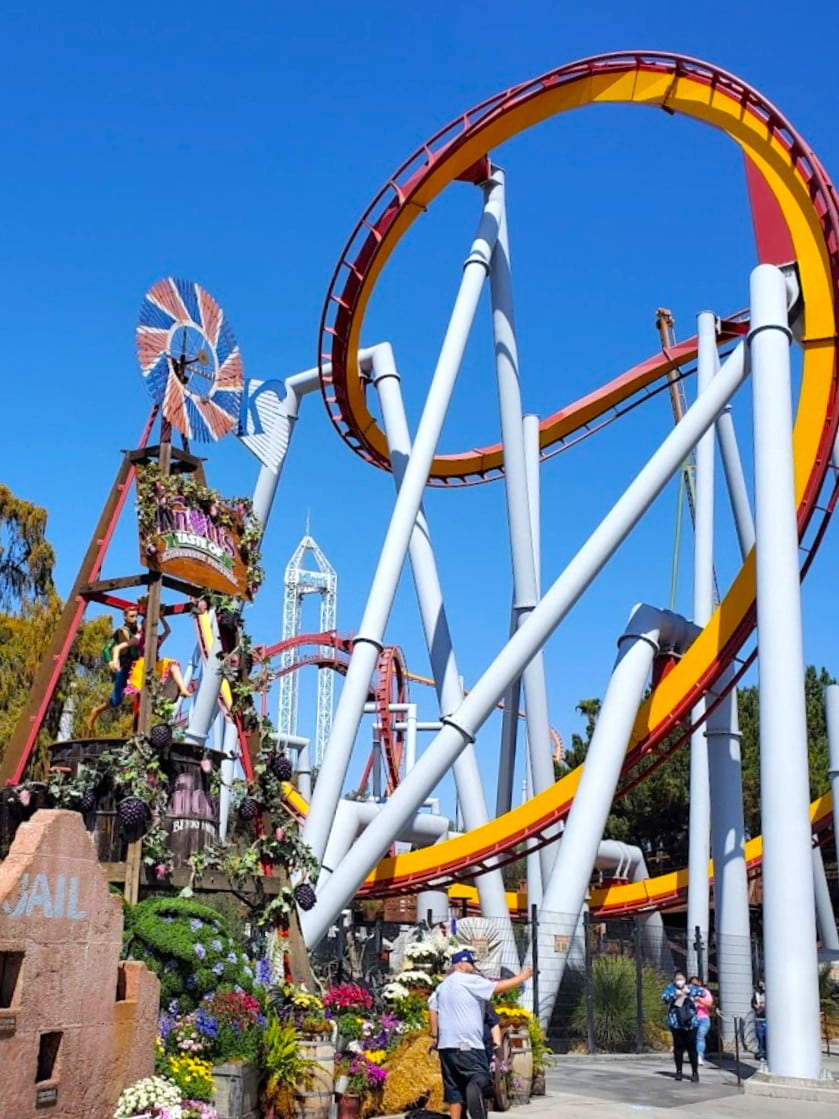
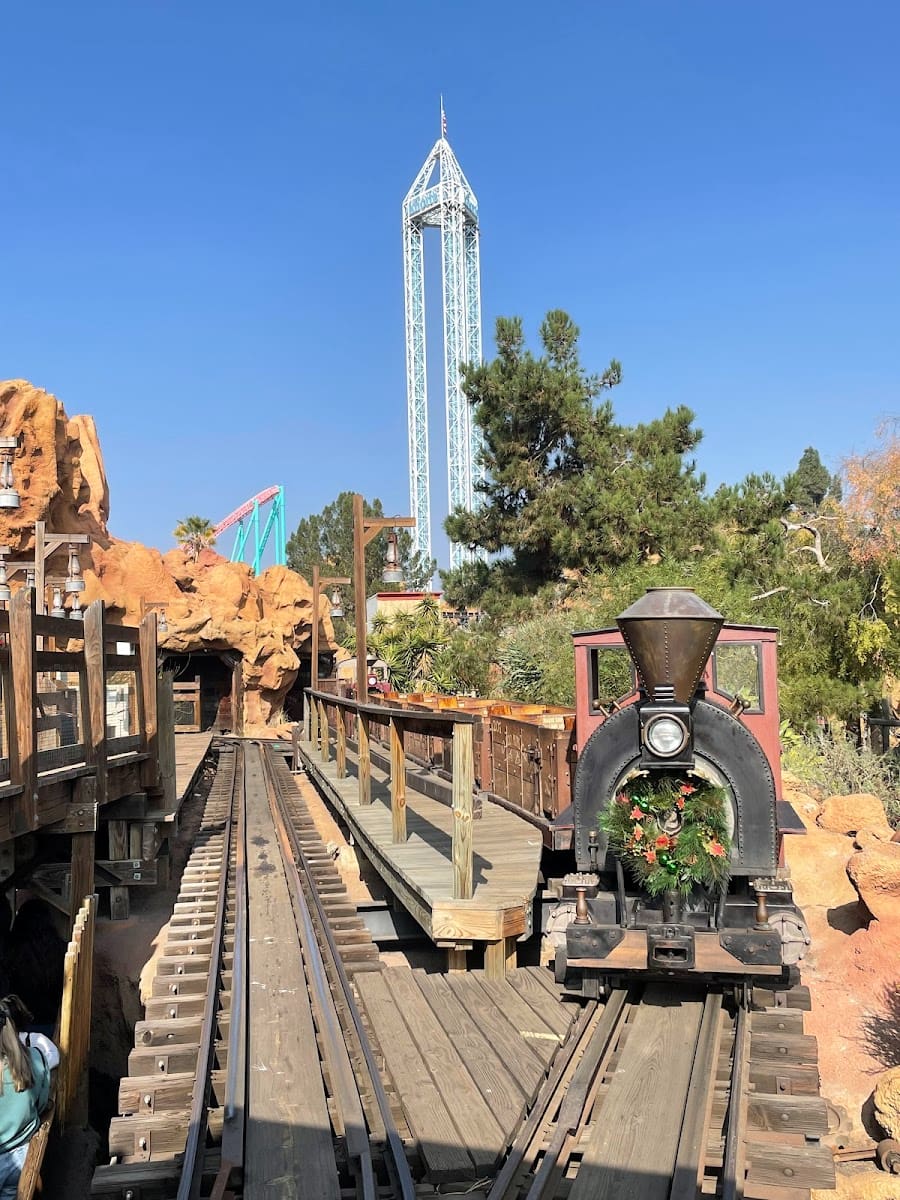
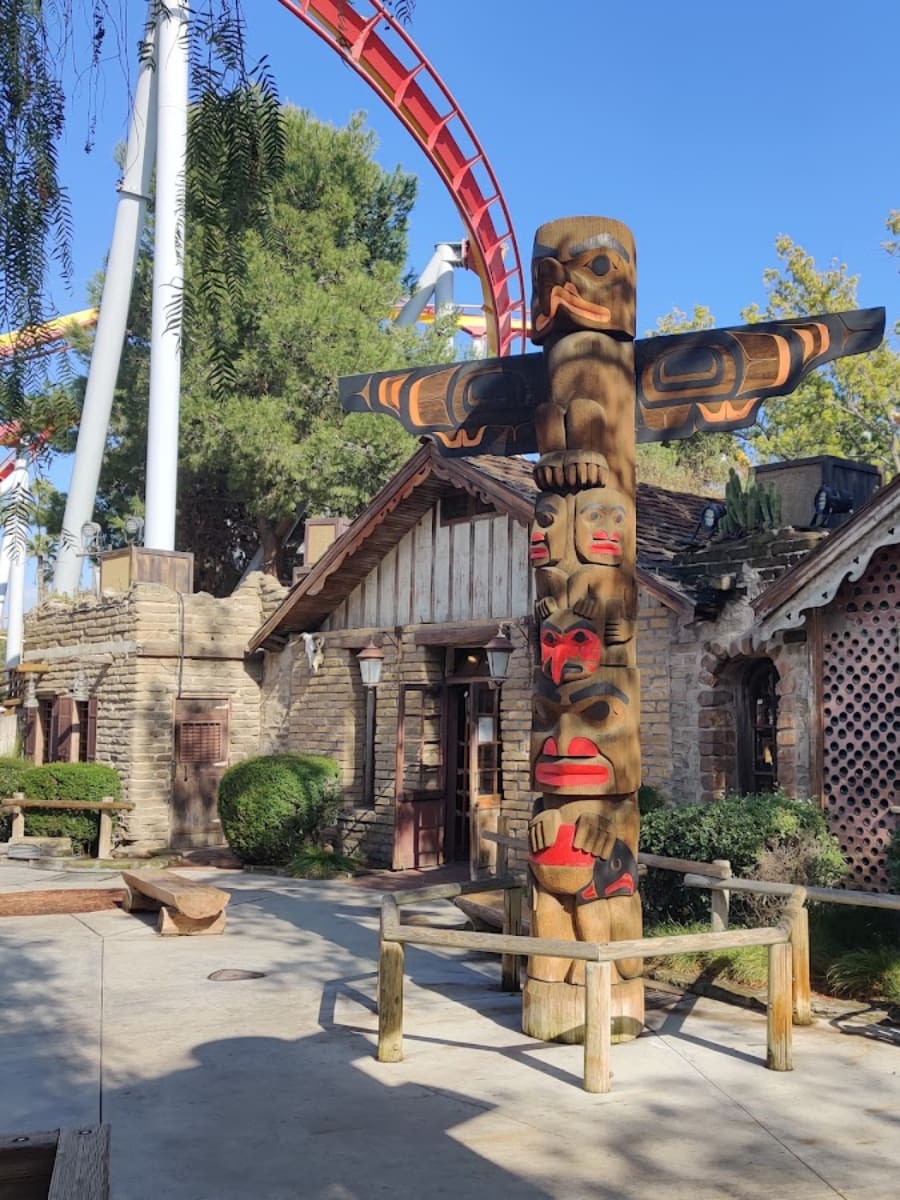
New Rides and Revamps. Big changes are happening at this park. I recently saw the newly refurbished Coast Rider and Rally Cars, and the park is buzzing about the major renovation of MonteZOOMa: The Forbidden Fortress—this classic coaster is getting a full upgrade but will keep its iconic launch and shuttle design. Over in Camp Snoopy, there are four new rides for kids: Snoopy’s Tenderpaw Twister Coaster, Sally’s Swing Along, Camp Snoopy’s Off-Road Rally, and a refreshed Beagle Express Railroad. These updates mean there’s always something fresh to try, whether you’re a roller coaster fan or visiting with little ones.
Food and Flavors. This place is famous for its boysenberry treats, and I always make time for boysenberry punch and soft serve ice cream. The park’s dining options range from Boardwalk BBQ and Fireman’s BBQ in the western area to Casa California Restaurante and Baja Taqueria in Fiesta Village. Vegan and allergy-friendly choices are clearly marked, and you can find everything from burgers and pizza to loaded baked potatoes and tacos. For a real treat, try Mrs. Knott’s Chicken Dinner Restaurant just outside the park gates.
| Ticket Type | Price (USD/EUR) | Notes |
|---|---|---|
| Adult (Gate) | $72 (€66) | Ages 12+ |
| Child/Senior | $42 (€39) | Ages 3–11/62+ |
| Season Pass | $130–$399 | Unlimited visits, perks vary |
| Parking | $30 (€27) | Cars and motorcycles |
Budget Tip: Buy tickets online for the best price, and visit during festivals for bonus food tastings and entertainment.
⭐ Best Activities
- Knott's Berry Farm: Pirates Dinner Adventure with Transportation – Enjoy an interactive dinner show featuring swashbuckling pirates, delicious food, and thrilling entertainment at America’s first theme park.
4. Crystal Cove State Park
Natural Beauty. This state park is one of the region’s true gems, stretching along 3.2 miles of coastline between two popular coastal towns. I love how the park’s sandy coves and rugged cliffs give you a wild, untouched feeling even though you’re close to the city. Early mornings are misty and cool, but by midday, the sun warms the sand and the water sparkles. The ocean here is clear and perfect for swimming, bodyboarding, and exploring shallow pools filled with anemones, crabs, and tiny fish. Dolphins and sea lions are often spotted just offshore, adding to the magic of the place.
Hiking and Wilderness. If you’re into hiking, Crystal Cove offers 18 miles of trails through 2,400 acres of wilderness. I tackled the El Moro Loop, a 4.9-mile circuit with some steep climbs and stunning views of the Pacific. For a bigger challenge, the 9.4-mile grand loop takes you through canyons and up to ridgelines with sweeping ocean vistas. The backcountry is quiet, filled with native plants and birds—you might spot a hawk or even a deer. Trails start at the El Moro Visitor Center, and you can pick up a map or join a guided hike with a park ranger.
Camping and the Historic District. Camping here is a real treat. I stayed at Moro Campground, perched on a bluff with panoramic views of the coast. There are 58 sites for tents, vans, and RVs, plus 21 backcountry sites for those who want a true wilderness experience. The Historic District is a highlight—forty vintage cottages from the 1930s, restored and available for overnight stays. Walking among these pastel-colored bungalows feels like stepping back in time. The Beachcomber Café, set in a restored cottage, serves breakfast, lunch, and dinner right on the sand.
Conservation and Restoration. Crystal Cove State Park stands out not just for its beauty, but for its deep commitment to conservation. I was impressed by the ongoing habitat restoration projects—teams of staff and volunteers work year-round to remove invasive plants, replant native species, and protect coastal sage scrub and oak woodlands. These efforts help keep the park’s ecosystems healthy, supporting wildlife like birds, lizards, and even deer. The park also uses sustainable practices, from recycling and waste reduction to eco-friendly facilities powered by solar panels and water-saving systems.
| Service | Price (USD/EUR) | Notes |
|---|---|---|
| Parking | $15 (€14) | Day use |
| Campsite | $55–$85 (€51–€78) | Per night, reservation needed |
| Cottage Rental | $45–$275 (€42–€253) | Per night, varies by size |
Budget Tip: Volunteer for a stewardship event—some offer free parking or special access as a thank you.
⭐ Best Activities
- Private 10-Hour Tour of Orange County – Discover Orange County’s highlights on this comprehensive private tour covering beaches, attractions, and scenic coastal drives with personalized attention.
5. Laguna Beach
Art and Local Culture. This creative hub in Southern California is famous for its vibrant art scene and welcoming atmosphere. I spent my morning at the Laguna Art Museum, right by Main Beach, where you can see works from local artists and rotating displays that capture the spirit of this sunny region. The town is filled with galleries—just stroll along Forest Avenue to discover everything from modern sculpture to classic landscape paintings. Every summer, the Sawdust Art Festival and Festival of Arts Pageant of the Masters bring the whole community together, with live art demonstrations and performances that make you feel like part of the creative process.
Beaches and Outdoor Fun. This coastal town is home to some of the best sandy stretches in the area, truly earning its reputation for having some of the best beaches around. Main Beach is lively and perfect for families, with volleyball courts and a retro lifeguard tower. For a quieter spot, I love Shaw’s Cove and Thousand Steps Beach—both are great for exploring marine life and snorkeling. Victoria Beach is famous for its “Pirate Tower,” a mysterious stone structure right on the sand. If you’re up for a hike, the Laguna Coast Wilderness Park has miles of scenic trails with ocean views and wildflowers, especially beautiful in spring.
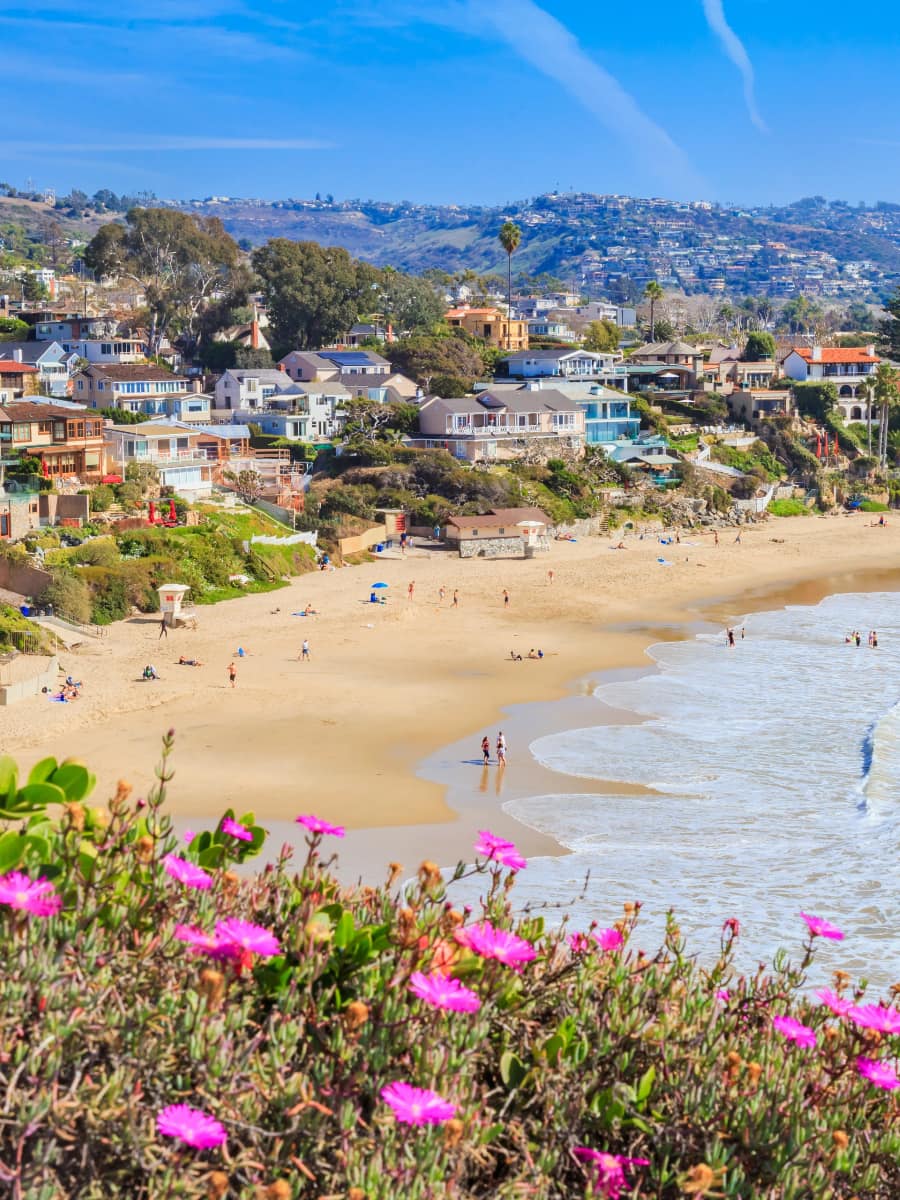
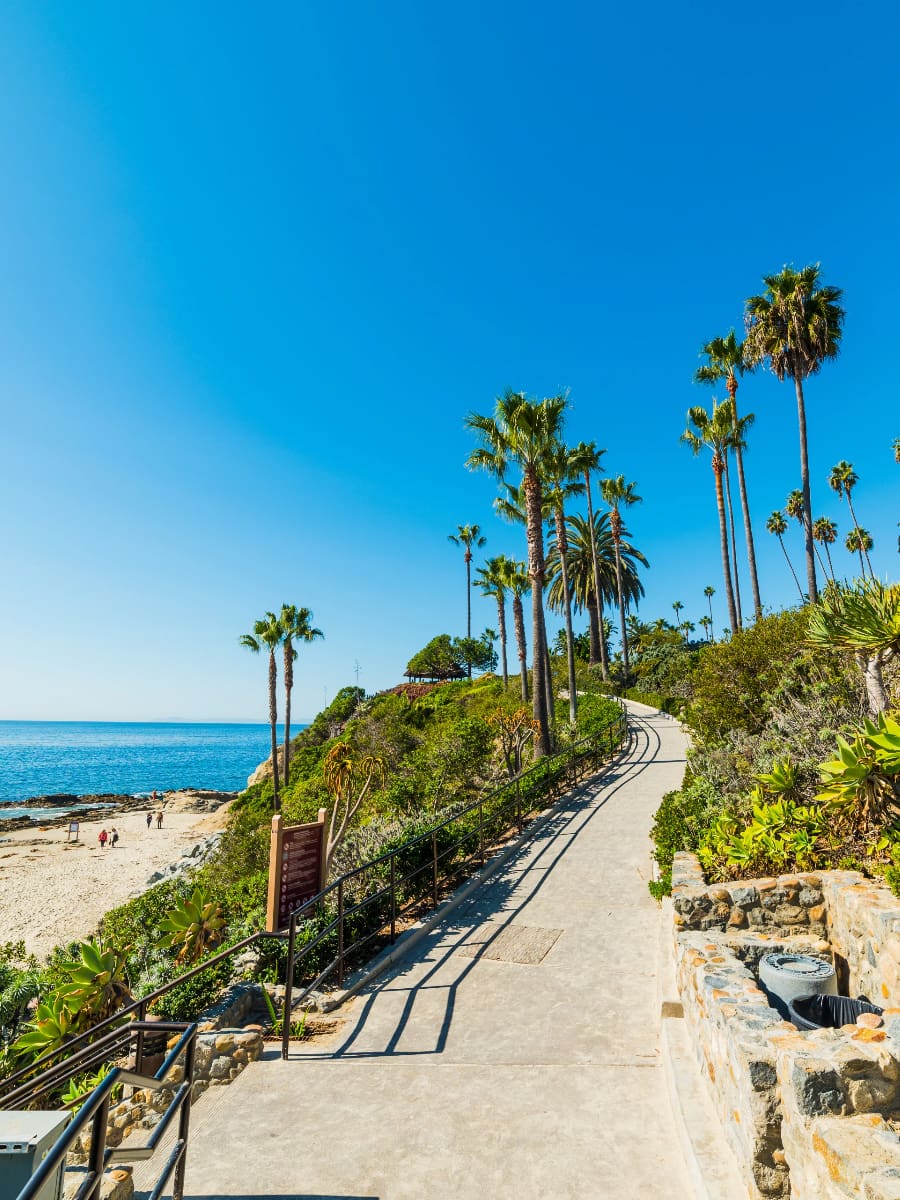
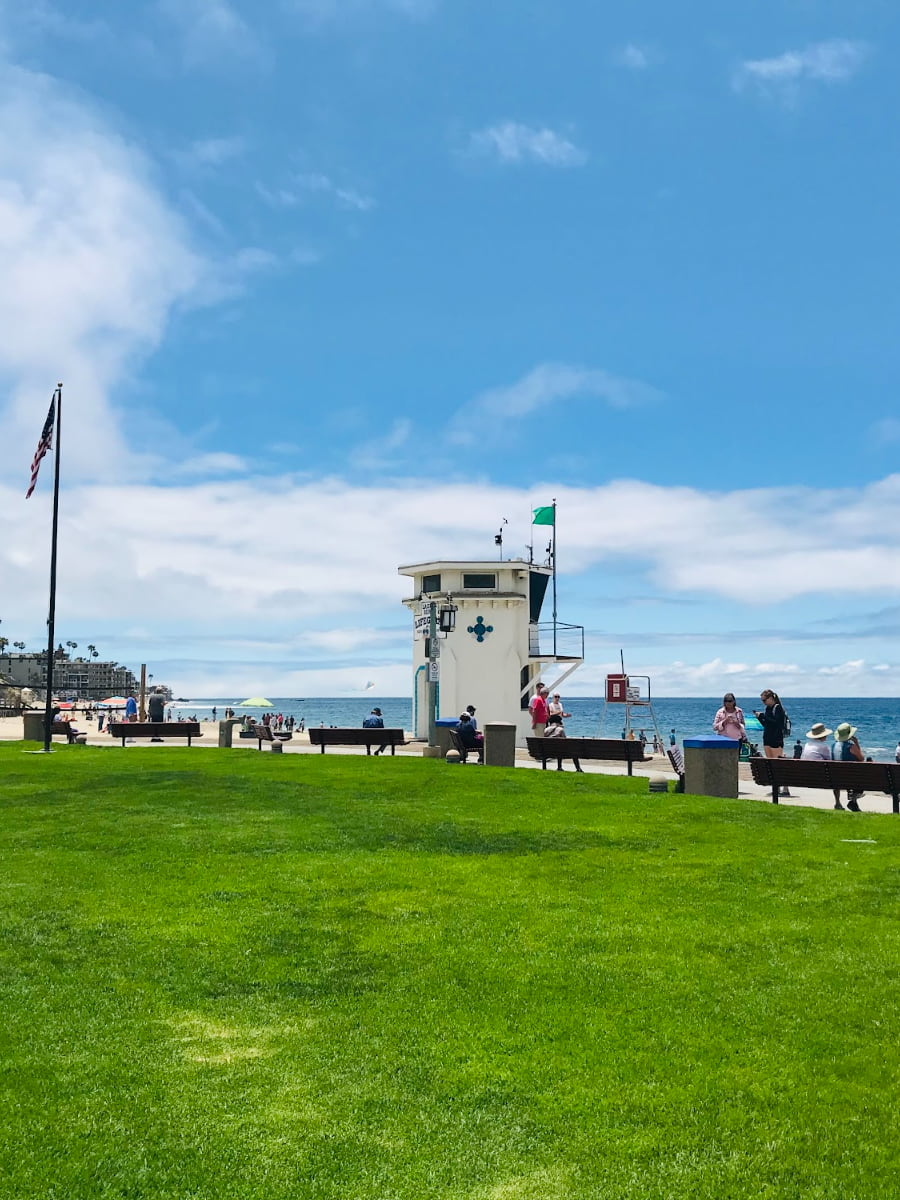
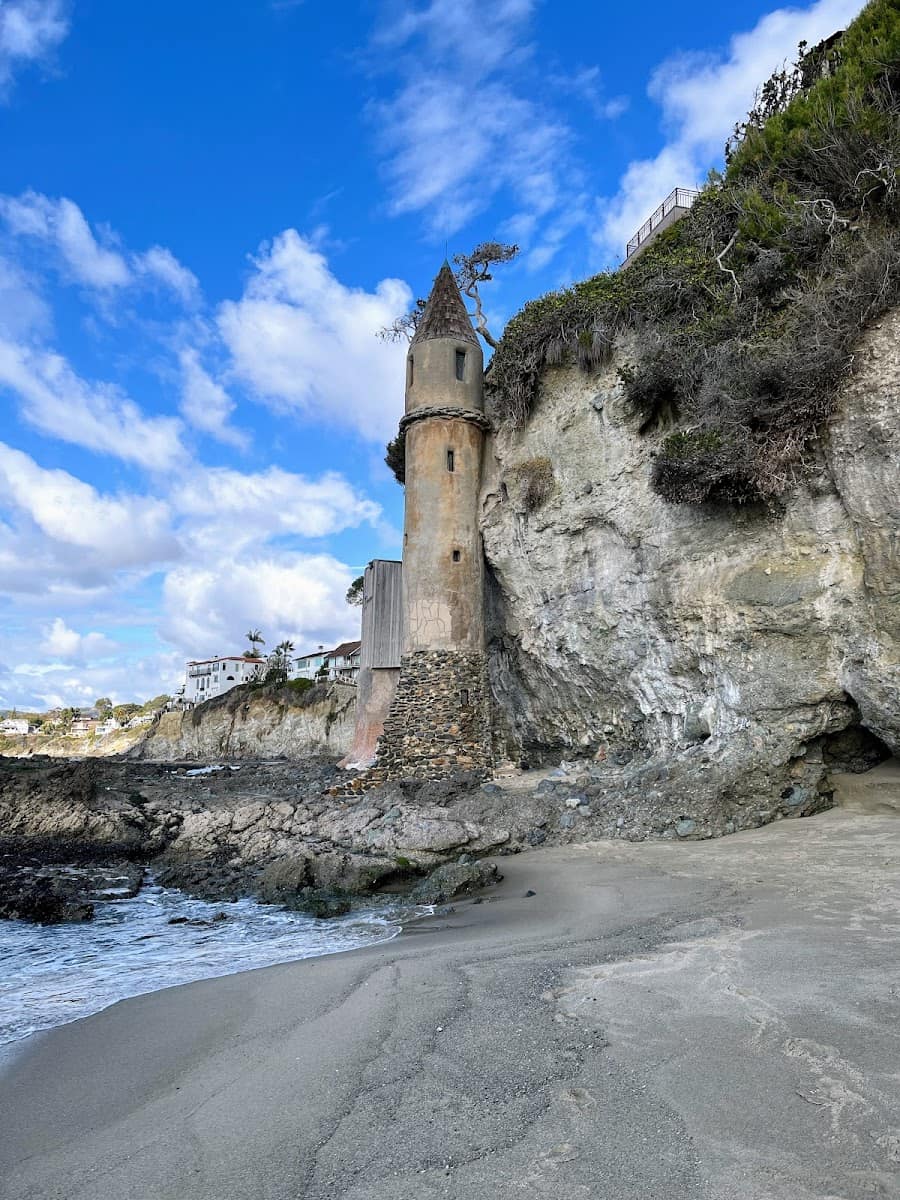
Food, Coffee, and Nightlife. The food scene here is as diverse as its art. For breakfast, I grabbed a bagel at Shirley’s or a healthy bowl at Banzai Bowls. Lunch at La Sirena Grill is a must—fresh Mexican food in a casual setting. For dinner, Nick’s and South of Nick’s are local favorites, while Starfish is perfect for happy hour. Coffee lovers should try Endless Quest or Bear Coast for a morning pick-me-up before heading out for a beach day. After sunset, Driftwood Kitchen and Rooftop Lounge are my go-tos for a cocktail with ocean views.
Hidden Gems and Outdoor Fun. Beyond the main beaches, I discovered Crescent Bay Point Park—a peaceful spot with sweeping ocean views and fewer crowds. It’s perfect for a quiet coffee or a sunset picnic. Shaw’s Cove is a favorite for exploring marine life, where you can spot starfish and sea anemones at low tide. For something different, I tried kayaking with La Vida Laguna and saw dolphins and sea lions up close along the rugged, beachfront coastline. If you’re into golf, Ben Brown’s Golf Course offers nine scenic holes tucked into a canyon, just minutes from the ocean.
| Beach/Trail | Highlight | Notes |
|---|---|---|
| Main Beach | Volleyball, marine life | Central, family spot |
| Shaw’s Cove | Marine life, snorkeling | Quieter, local gem |
| Victoria Beach | Pirate Tower, marine life | Iconic photo spot |
| Thousand Steps Beach | Secluded, dramatic cliffs | Many stairs! |
| Laguna Coast Wilderness | Hiking, wildflowers | Multiple trailheads |
⭐ Best Activities
- Self-Guided Orange County Drive from Long Beach to Laguna Beach – Take a scenic coastal drive through Orange County’s most beautiful beaches and charming seaside towns at your own pace.
6. Newport Beach & Balboa Island
Coastal Adventures. The heart of classic seaside life in this part of Southern California is truly something special. I started my day with a walk along the Back Bay Look Trail, surrounded by birds and wildflowers, before heading to the Environmental Nature Center—perfect for families who want to learn about local wildlife. Out on the water, the harbor buzzes with sailboats, paddleboarders, and kayaks. Renting a Duffy boat is my favorite way to explore the bay; prices start at about $140 (€130) for two hours. For a real treat, I took the local ferry ($1.50/€1.40 per adult, $0.50/€0.45 per child, $2.50/€2.30 per car), a five-minute ride with great harbor views and a cool breeze.
Island Life and Local Flavor. This little community feels like a small town with a big heart. I wandered Marine Avenue, popping into candy shops, beach boutiques, and bakeries. Don’t miss the famous Balboa Bar—a vanilla ice cream bar dipped in chocolate and your choice of toppings. Dad’s Donut & Bakery Shop and Sugar ‘n Spice are the top spots for this treat. For lunch, I grabbed a fish taco at a waterside café and watched boats pass by. Walking the Bay Front path is a must, especially during the holidays when waterfront homes sparkle with decorations.
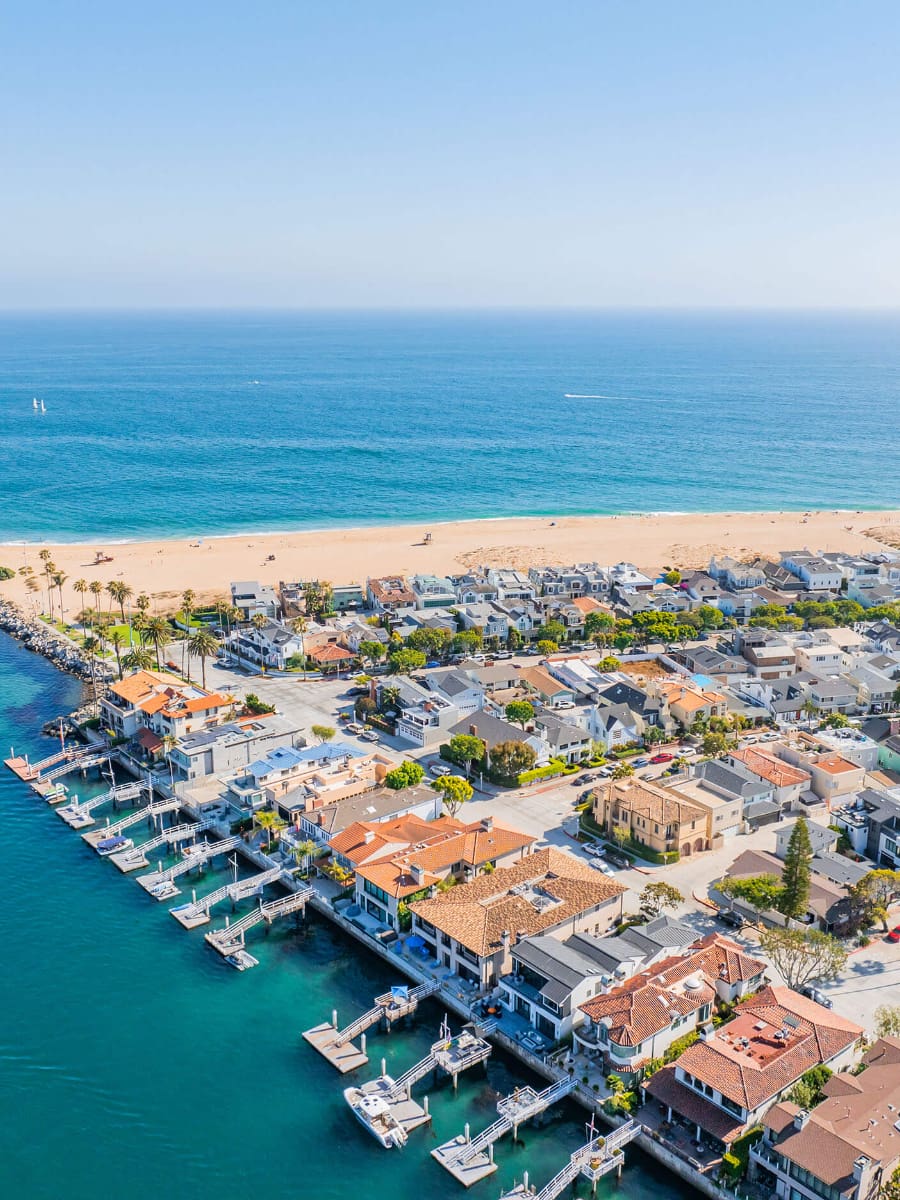
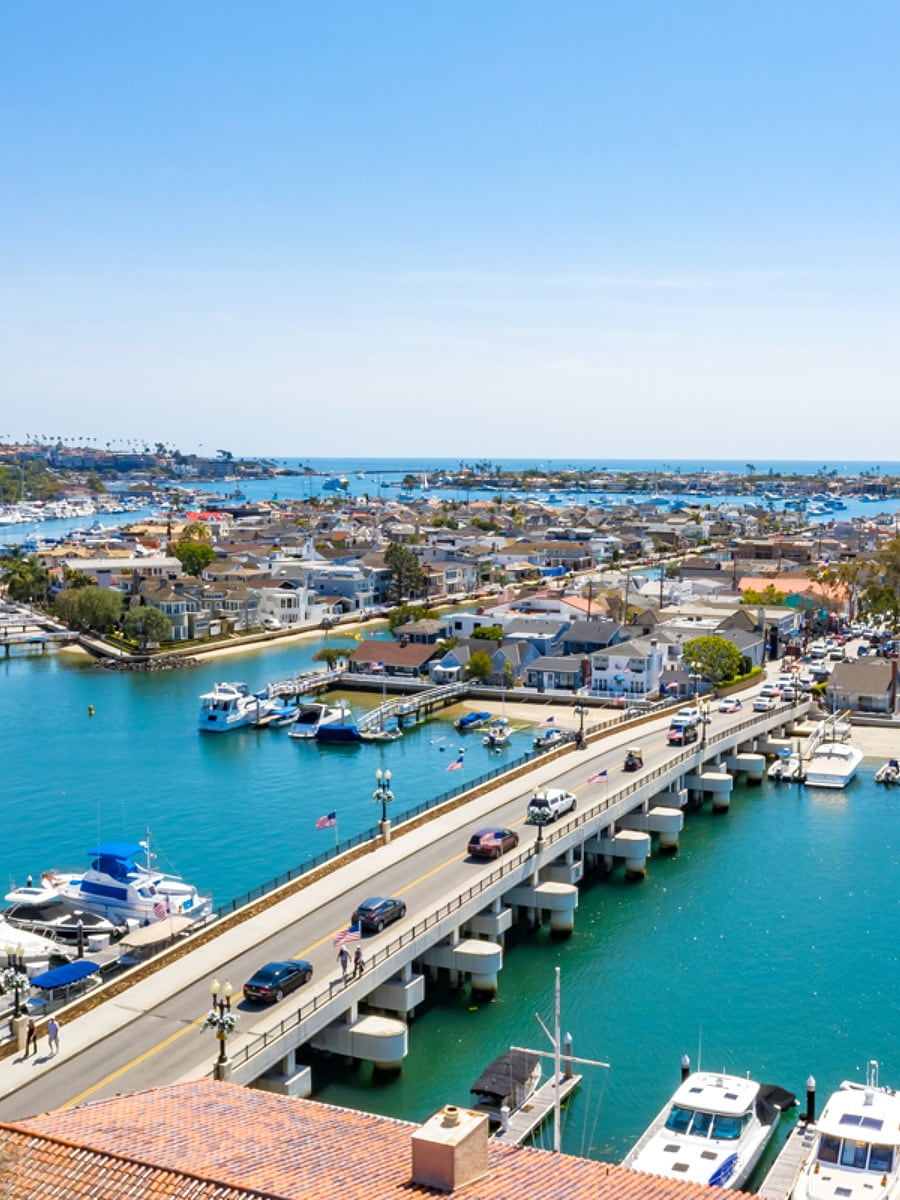
Fun Zone and Family Activities. Across the water, the Fun Zone is packed with classic amusements. I played old-school arcade games and watched kids try their luck at the ring toss. Boat rentals and parasailing are popular—parasailing costs about $70–$90 (€65–€84) per person for a thrilling ride above the ocean. The beach near the Fun Zone is great for swimming and sandcastles, and the peninsula’s Ruby’s Diner is a favorite for burgers and milkshakes with a view.
Getting Around and Unique Experiences. Getting Around and Unique Experiences. Access is easy by car, bike, or on foot via a short bridge, but my favorite way is taking the local ferry—a fleet of three small boats that shuttle people, bikes, and even cars across the harbor to the peninsula. The ride is quick and scenic, and costs just $1.50/€1.40 for adults and $2.50/€2.30 for cars. Once on the island, I recommend renting a bike or simply walking the perimeter for the best views. Don’t miss the local museum, a fun spot to learn about local history and see vintage photos, and be sure to check out the classic ferris wheel for a bit of old-fashioned fun.
| Service | Price (USD/EUR) | Notes |
|---|---|---|
| Local Ferry | $1.50/€1.40 (adult) | 5-min ride, scenic views |
| Duffy Boat Rental | $140/€130 (2 hours) | Reserve in advance |
| Parasailing | $70–$90/€65–€84 | Per person |
| Parking (metered) | $2/hr (€1.80) | Street parking |
| Parking (city lot) | $10–$20 (€9–€18) | All-day |
⭐ Best Activities
- Whale Watching Cruise from Newport Beach – Spot magnificent whales and dolphins in their natural habitat on this exciting marine wildlife cruise from Newport Beach harbor.
7. Mission San Juan Capistrano
History and Heritage. This historic landmark is one of the oldest and most important historic sites in Southern California. Founded in 1776 by Saint Junipero Serra, it’s known as the “Birthplace of Orange County” and has over 240 years of history. Walking through the grounds, I saw the beautiful Serra Chapel, the oldest building in California where Saint Serra once celebrated Mass. The site also features the ruins of the Great Stone Church, which collapsed in the 1812 earthquake but still stands as a powerful reminder of the area’s past. The gardens are peaceful, filled with native plants, fountains, and the famous swallows that return every spring.
Daily Life and Activities. There’s so much more than just history here. I joined the daily bell ringing at 9:00 a.m.—a tradition honoring Saint Junipero Serra. Kids love feeding koi fish at the main fountain and trying hands-on activities in the Mission Clubhouse, like basket weaving and building Roman arches. The “Follow the Swallow” sticker tour is a fun way for families to explore, and there’s even a scavenger hunt you can download for free. Guided and audio tours are available in several languages, making it easy to learn at your own pace.
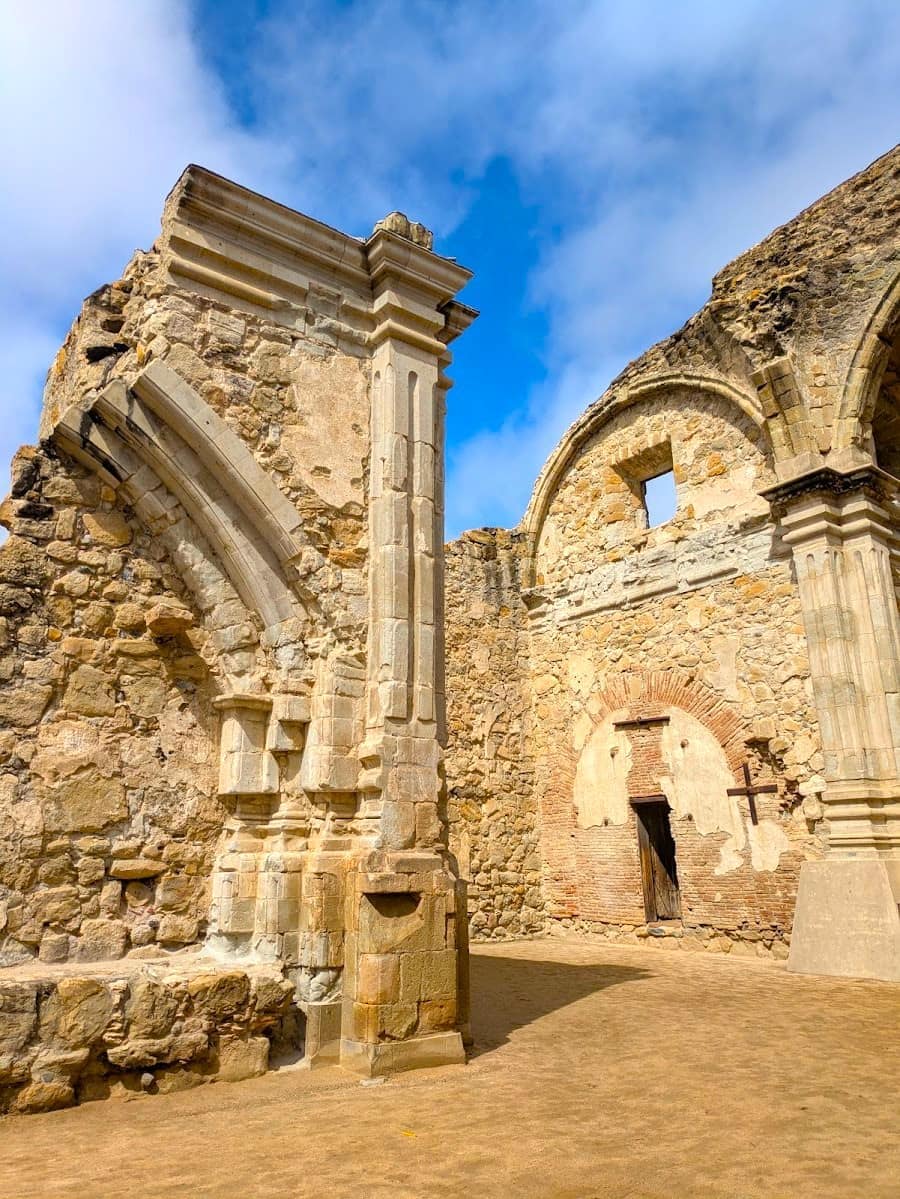
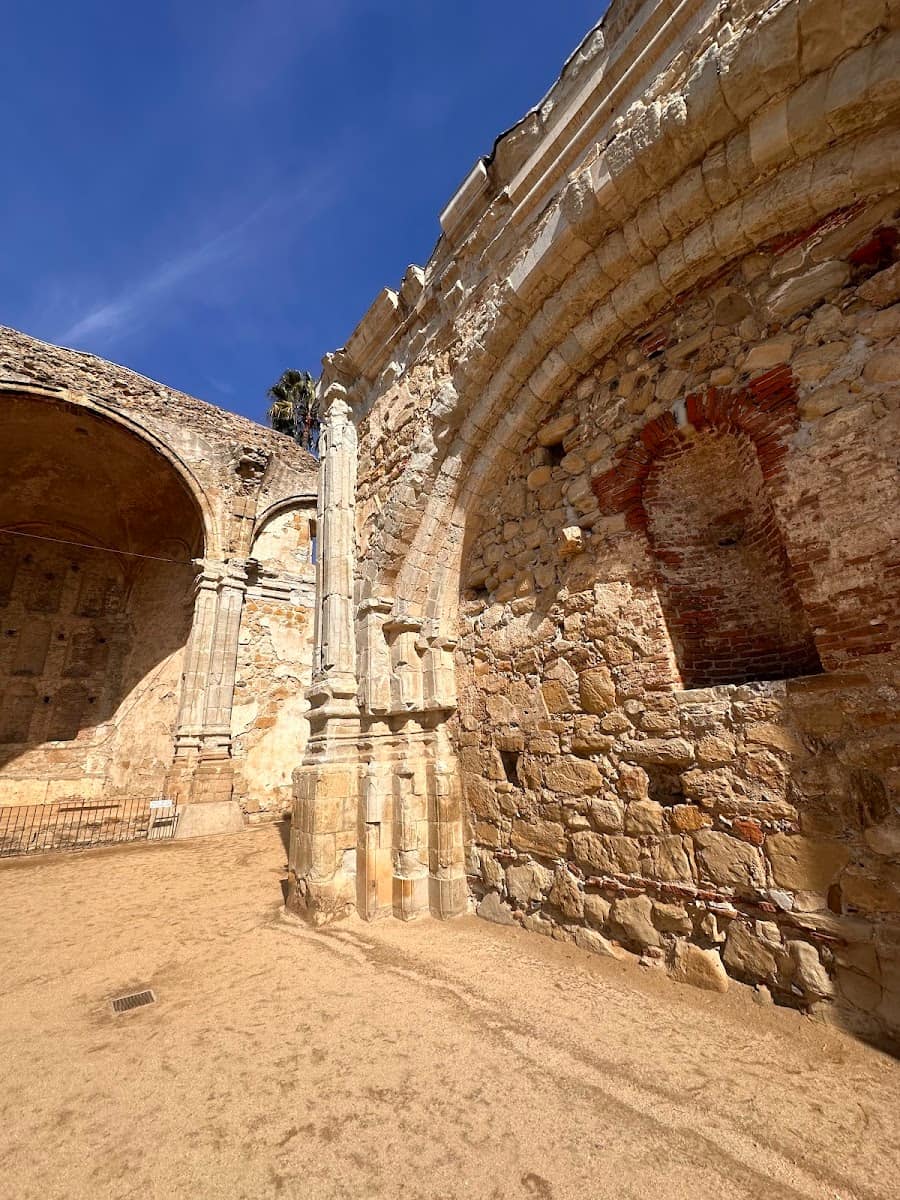
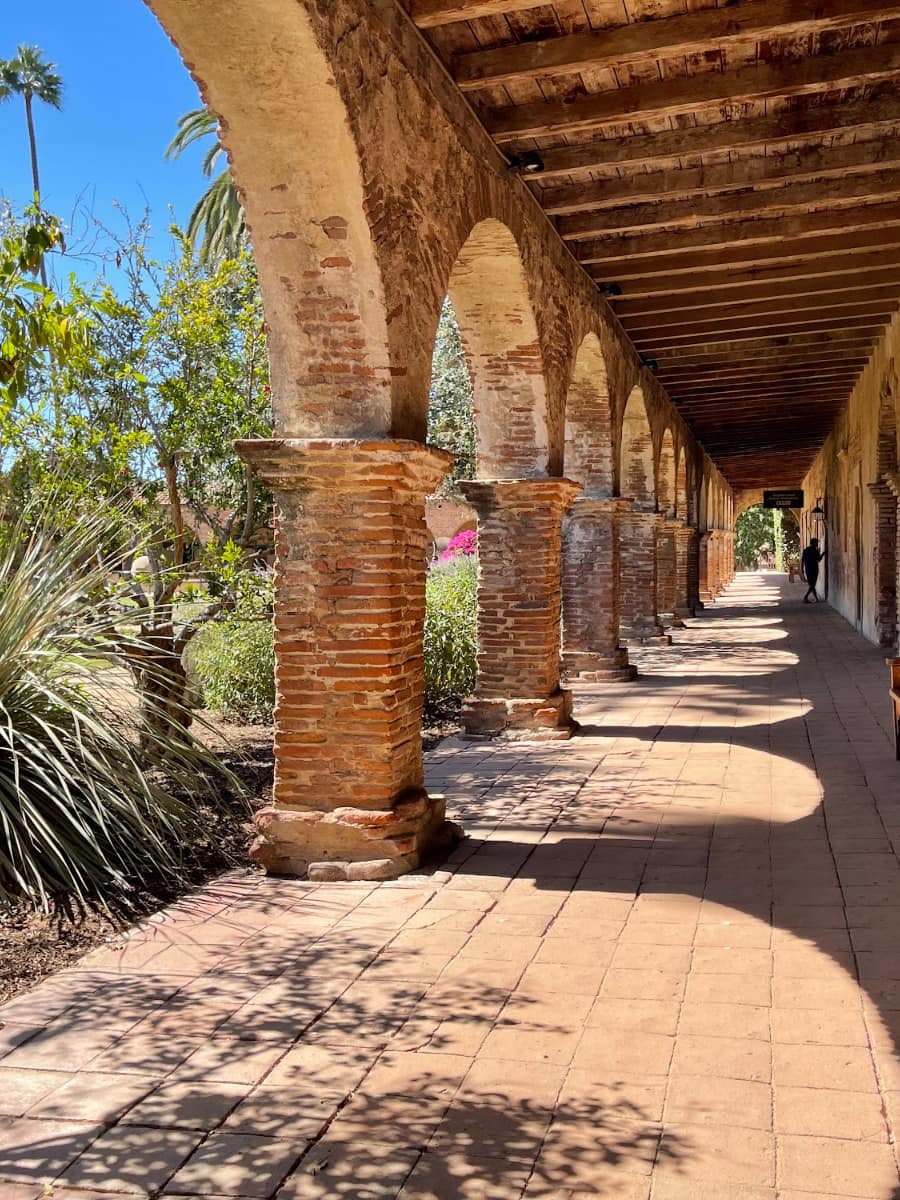
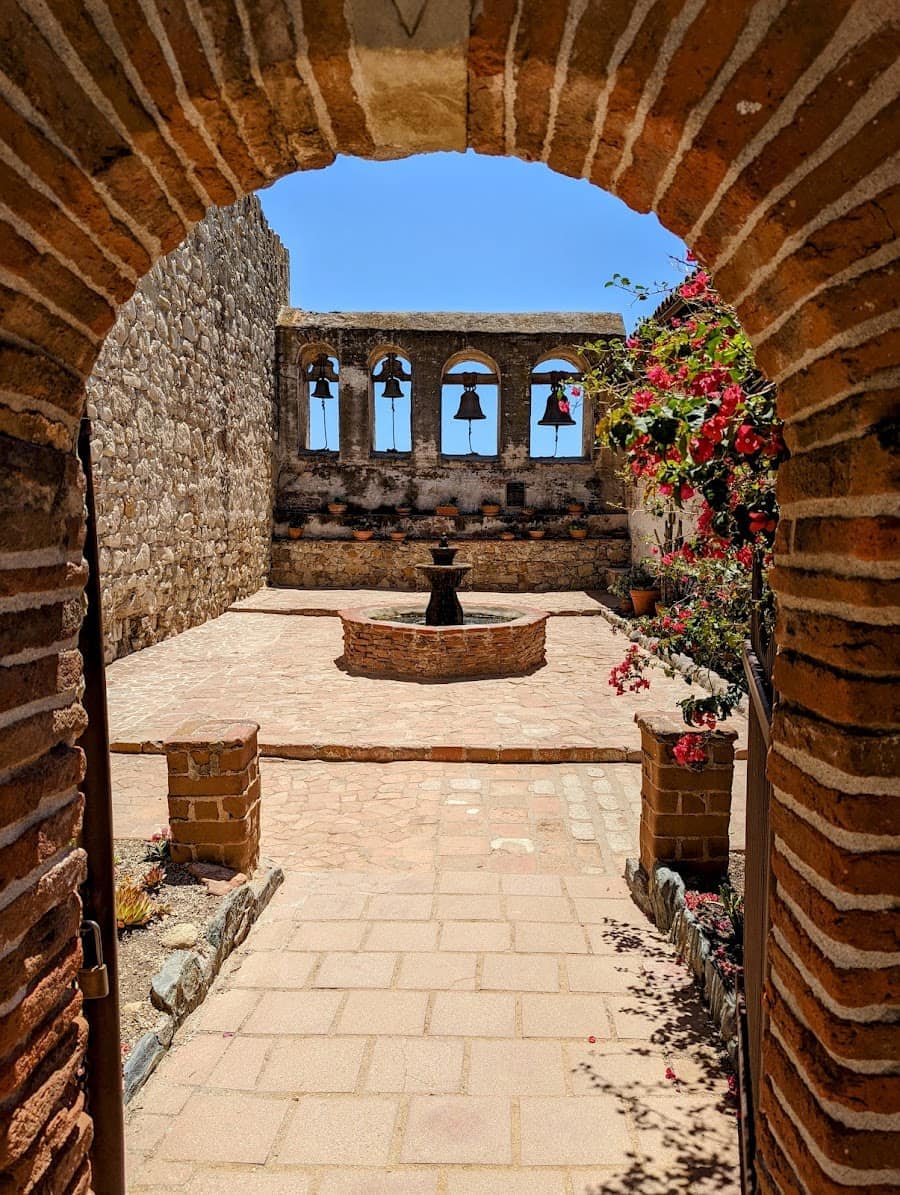
Architecture and Ruins. The mission’s buildings are a blend of Spanish, Native American, Mexican, and later American influences. The Serra Chapel, completed in 1782, is the oldest building in California still used for its original purpose. Its thick adobe walls and gold-leafed altar are stunning. The Great Stone Church, once the largest building in California, was destroyed by an earthquake in 1812—a tragedy that killed 40 parishioners and left haunting ruins that are now a powerful symbol of the region’s past. The bell wall, or Campanario, holds original and replica bells, and you might hear them ring during your visit. The surrounding Los Rios Historic District, with its preserved adobes and Victorian homes, shows how the town grew up around the mission.
Traditions, Swallows, and Community Life. This place is famous for the annual return of the cliff swallows each spring, celebrated around St. Joseph’s Day in March with parades, music, and family events. The swallows’ migration is legendary, and you can even watch them on a webcam. The site is also a hub for living history programs—basket weaving demonstrations, hands-on crafts in the Clubhouse, and guided tours in multiple languages. I loved feeding the koi in the garden fountain and joining a picnic in the central courtyard, surrounded by hummingbirds and butterflies. The museum’s exhibits include Native American art, Spanish colonial artifacts, and even a patent signed by Abraham Lincoln returning the property to the Catholic Church.
| Ticket Type | Price (USD/EUR) |
|---|---|
| Adults (18–59) | $18 (€16.50) |
| Seniors (60+) | $15 (€13.80) |
| Students/Youth (5+) | $10 (€9.20) |
| Children (4 and under) | Free |
| Member Guest | $9 (€8.30) |
⭐ Best Activities
- San Antonio World Heritage Historic Missions Tour – Explore historic Spanish colonial missions and learn about their cultural significance on this educational heritage tour.
8. Orange County Great Park
Adventures and Outdoor Fun. O.C. Great Park in Irvine is a massive urban space where I always find something new to try. The park is famous for its iconic orange hot air balloon, which rises up to 400 feet and gives you sweeping views of the city and mountains—rides cost $10 per adult, and kids ride for free with an adult. There’s also a classic carousel ($3 per ride or $10 for an all-day pass), and several themed playgrounds like Kids Rock and Adventure Play Area, perfect for families. I love walking or biking the scenic trails, which wind past sports fields, gardens, and art installations.
Sports, Events, and Entertainment. The Great Park is a hub for sports and community gatherings. It’s home to the Championship Soccer Stadium, where you can watch Orange County SC play, and there are dozens of soccer, baseball, softball, volleyball, tennis, and basketball courts. I’ve enjoyed free concerts at the outdoor amphitheater, and the park hosts everything from farmers markets (every Sunday, 10am–2pm) to cultural festivals like the Irvine Global Village Festival and Mid-Autumn Festival. Wild Rivers Waterpark, located inside the park, is a summer favorite with wave pools, tube slides, and a lazy river—tickets start at $49 (€45).
Ambitious Growth and Future Projects. Orange County Great Park is constantly evolving, and I’m always surprised by what’s new each time I visit. The park is currently the largest municipal park under development in the United States, covering nearly 1,350 acres—bigger than New York’s Central Park. Plans for the future are ambitious: the “Heart of the Park” will feature a grand promenade, a rotunda, picnic gardens, two lakes, a permanent amphitheater for up to 10,000 people, and a botanical garden. The Cultural Terrace will soon include museums like Pretend City, the Flying Leatherneck Aviation Museum, and Orange County Music & Dance, plus a new library and retail promenade. Construction is underway, with many features set to open in the coming years.
Learning, Art, and Nature.
One of my favorite spots is the Farm + Food Lab, where you can see themed gardens and get tips from master gardeners. The Palm Court Arts Complex features rotating art exhibits and a walkable historical timeline, while Hangar 244 hosts aviation displays and community events. The park is also home to the Orange County Museum of Art and the Veterans Memorial. For kids, the Great Park Ice facility has four rinks for skating and hockey, and the Kids Rock Playground teaches about conservation and ecology through hands-on play.
| Activity | Price (USD/EUR) | Notes |
|---|---|---|
| Hot Air Balloon Ride | $10 (€9) | Kids free w/adult |
| Carousel Ride | $3 (€2.80) | $10 (€9) all-day pass |
| Wild Rivers Waterpark | $49 (€45) | Separate ticket |
| Parking | Free | Preferred parking extra |
9. Dana Point Whale Watching
Dolphin Watching Capital. Dana Point is known as the Dolphin & Marine Mammal Watching Capital of the World®, and after my first trip, I understood why. The coastline here is a hotspot for ocean life all year round. I boarded a morning cruise from Dana Point Harbor and within minutes, we were surrounded by pods of dolphins leaping beside the boat. Depending on the season, you can spot gray giants (December–April), blue giants (May–November), humpbacks, finbacks, minkes, and even orcas. The area’s underwater canyons and kelp beds create the perfect environment for these animals, and the weather is usually mild and sunny, making every trip comfortable and scenic.
Conservation and Community Spirit. Dana Point is recognized as the Dolphin & Marine Mammal Watching Capital of the World, and after my first trip here, I understood why. Watching these animals isn’t just a seasonal event—it’s a year-round adventure. I joined a morning tour from Dana Point Harbor and, within minutes, saw dolphins leaping alongside the boat and the spouts of gray giants on the horizon. Depending on the time of year, you might spot blue giants (May–November), gray giants (November–April), humpbacks, finbacks, minkes, and even orcas or pilot whales. The area’s underwater canyons, kelp beds, and mild weather create the perfect environment for these giants and their dolphin companions.
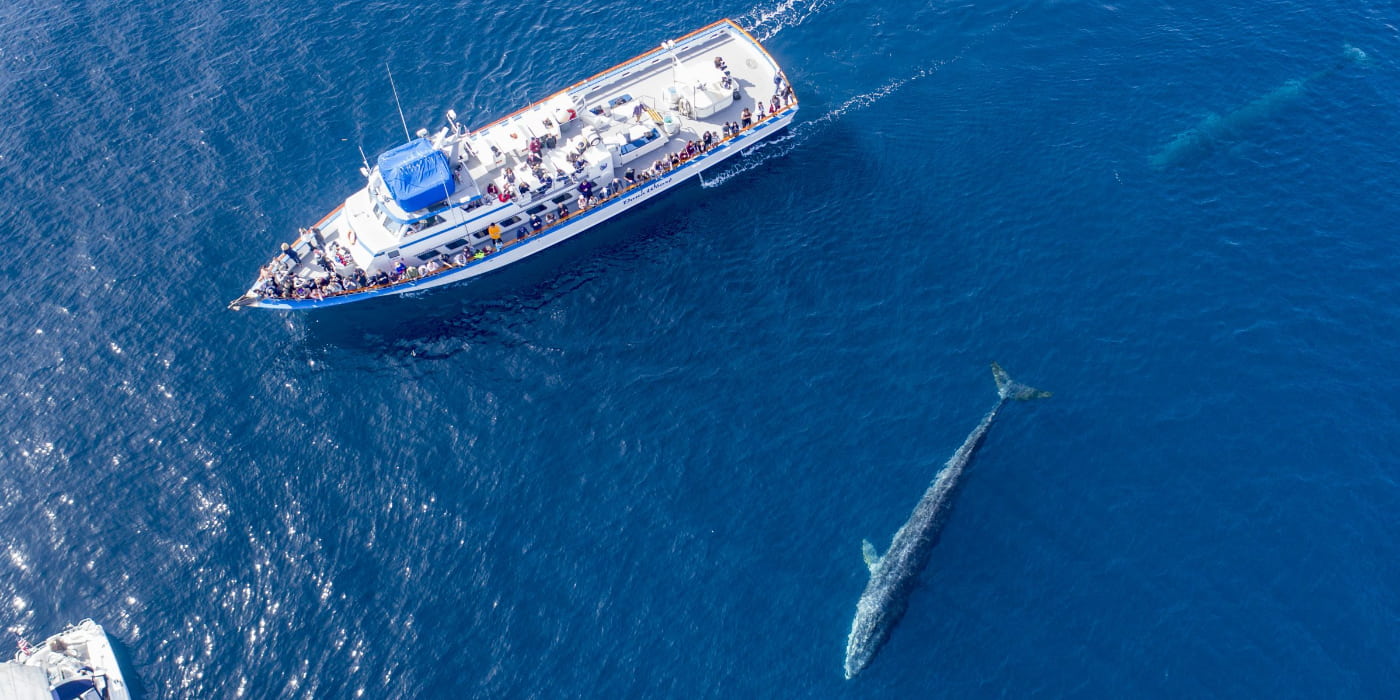
Tour Options and Unique Experiences. There’s a tour for every style and budget. I tried Captain Dave’s Dolphin Safari, which features underwater viewing pods so you can see and hear dolphins and other marine mammals up close in their own world—an experience you won’t forget. Dana Wharf, the area’s pioneer since 1971, offers a range of boats, including intimate catamarans and larger yachts with comfortable seating, restrooms, and snack bars. The Ocean Institute’s R/V Sea Explorer is perfect for families who want to learn from marine educators and even play marine biologist for a day.
Conservation and Community Spirit. Dana Point is the first Marine Heritage Area in the Americas, recognized for its commitment to sustainable ocean tourism and education. The annual Festival of the Giants in March celebrates the gray giant migration with parades, music, and special cruises. Operators like Dana Wharf guarantee sightings—if you don’t see dolphins or other marine mammals, you’ll get a rain check for another trip. The Ocean Institute also focuses on education and conservation, making every trip meaningful for visitors and the local community.
| Operator | Price (USD/EUR) | Notes |
|---|---|---|
| Dana Wharf | $49 (€45) | 2-hour cruise, narrated by experts |
| Newport Landing | $18 (€17) | 2.5-hour, multiple daily departures |
| Davey’s Locker | $36–$40 (€33–€37) | 2–2.5 hours, kids under 2 free |
| Half-Price Tuesday | $24.50 (€22.50) | Dana Wharf, every Tuesday |
Insider Tip: Morning tours usually offer the calmest seas and best light for photos. Try a smaller boat or zodiac for a more personal, up-close experience with the animals.
⭐ Best Activities
- Dana Point Whale Watching Excursion – Experience world-class whale watching from Dana Point, one of the best locations on the West Coast for spotting gray whales, blue whales, and dolphins.
10. Angel Stadium
Game Day Atmosphere and History. This classic ballpark is a must-visit for baseball fans and anyone looking for a slice of American sports culture. Opened in 1966, it’s the fourth-oldest active Major League Baseball stadium and home to the Los Angeles Angels. I love the energy here—whether you’re a die-hard fan or just in it for the hot dogs and sunshine, the vibe is always welcoming. The iconic rock waterfall in the outfield and the “Big A” sign towering over the parking lot make it instantly recognizable. With a seating capacity of 45,050, there’s room for everyone, and the sightlines from almost every seat are excellent.
Food, Drinks, and Fan Favorites. The food scene here goes way beyond peanuts and Cracker Jack. My go-to is Crafty Dawgs, where you can get loaded hot dogs with creative toppings, or grab a burger and fries at the Change Up Kitchen nearby. For local brews, Ballast Point Brewing Co. has a stand inside, and there are plenty of options for snacks, from nachos to churros. Prices are reasonable for a ballpark, and the Angels even offer a family pack—four tickets, four hot dogs, and four drinks—for just $44 at many games. Parking is $20, and you’ll find plenty of spots right outside the stadium.
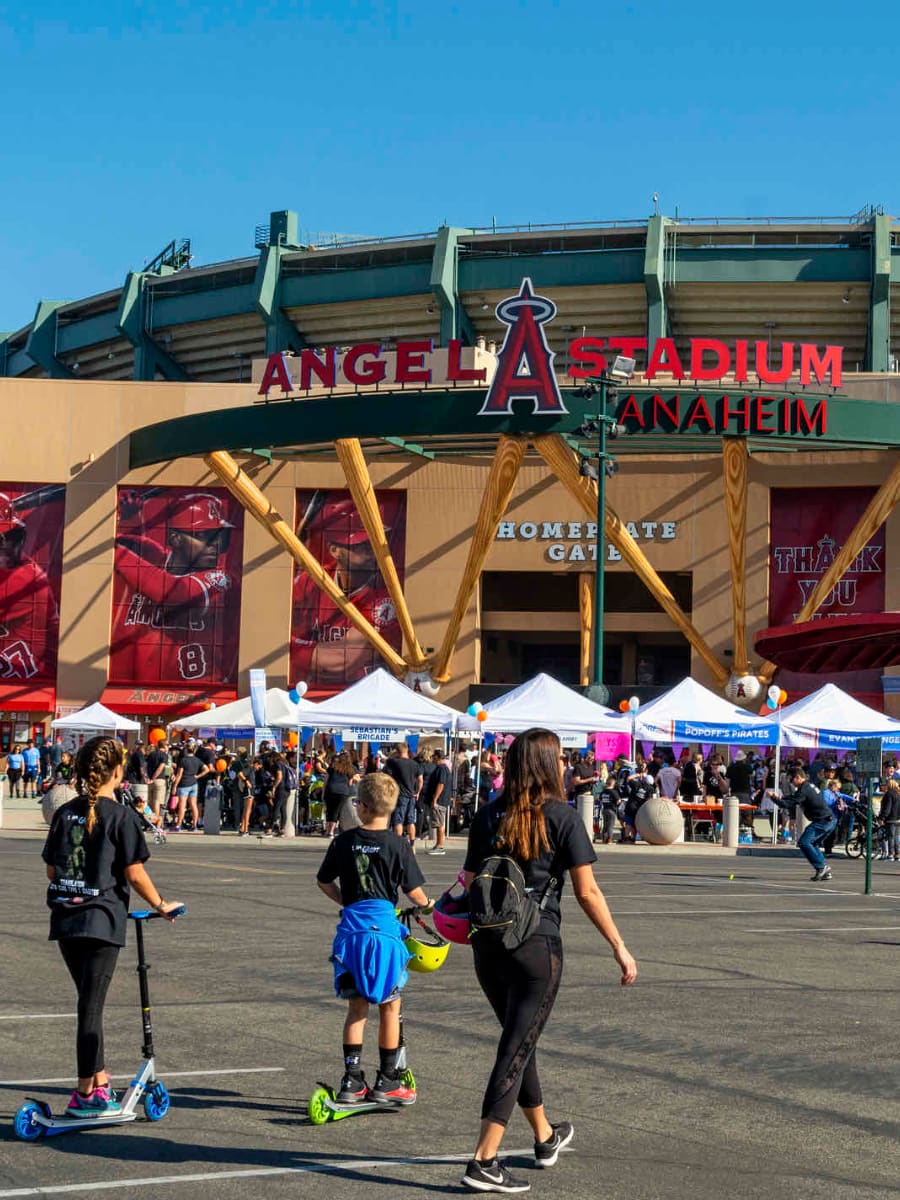
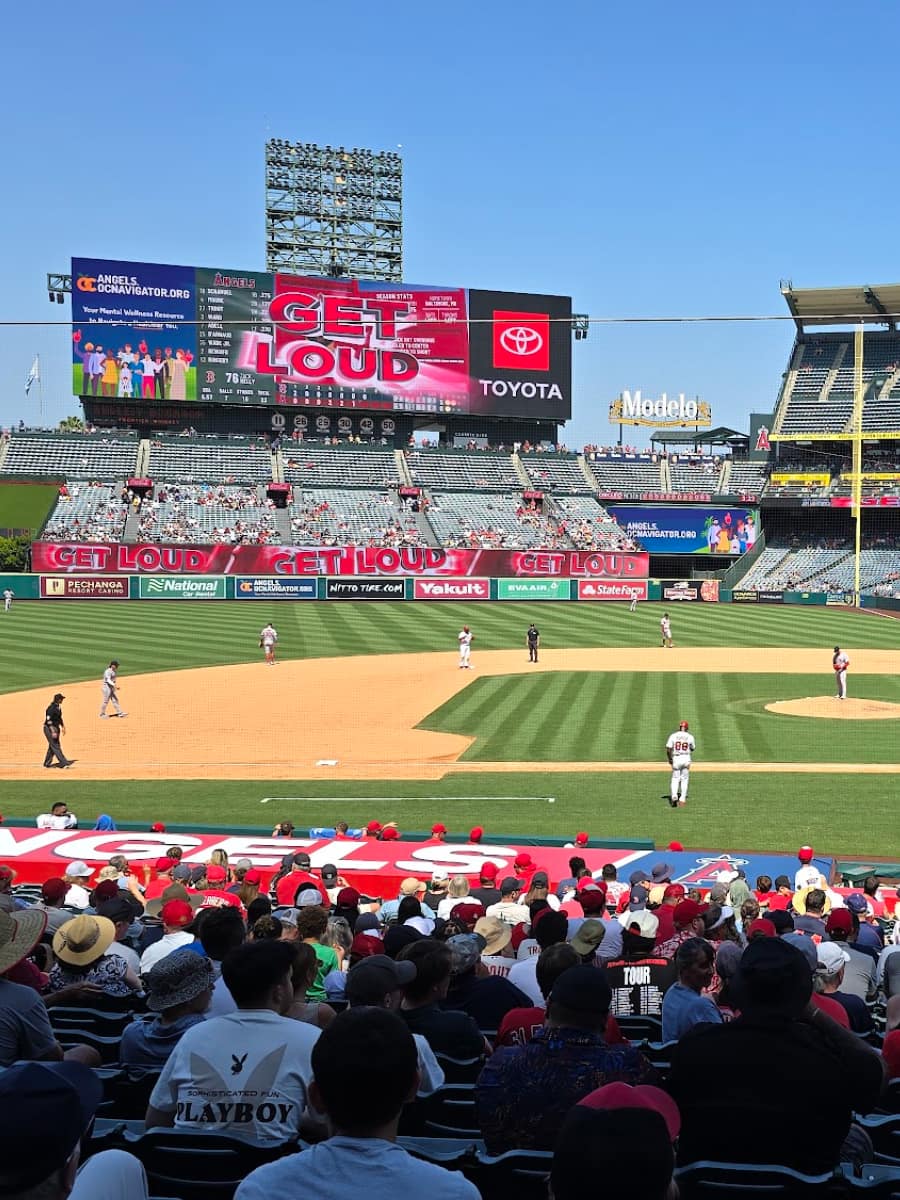
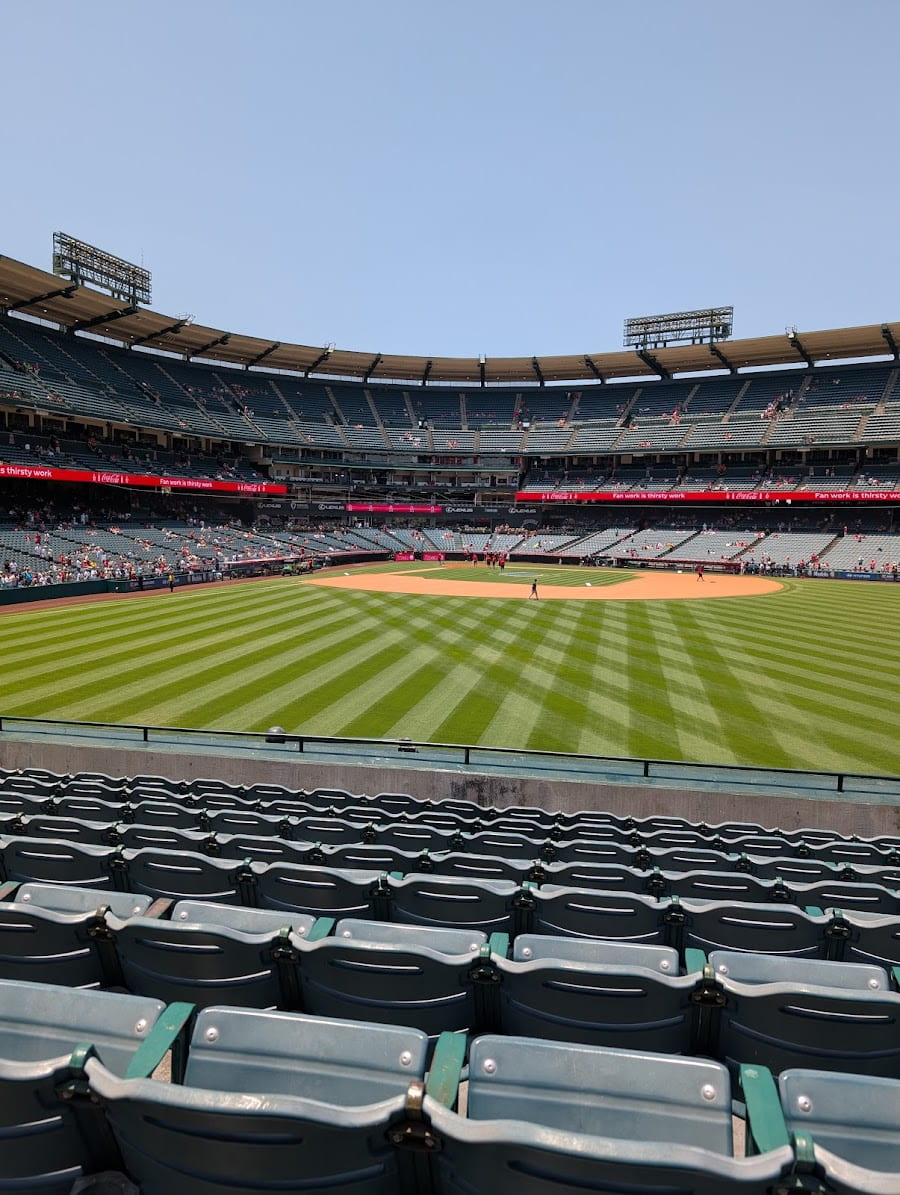
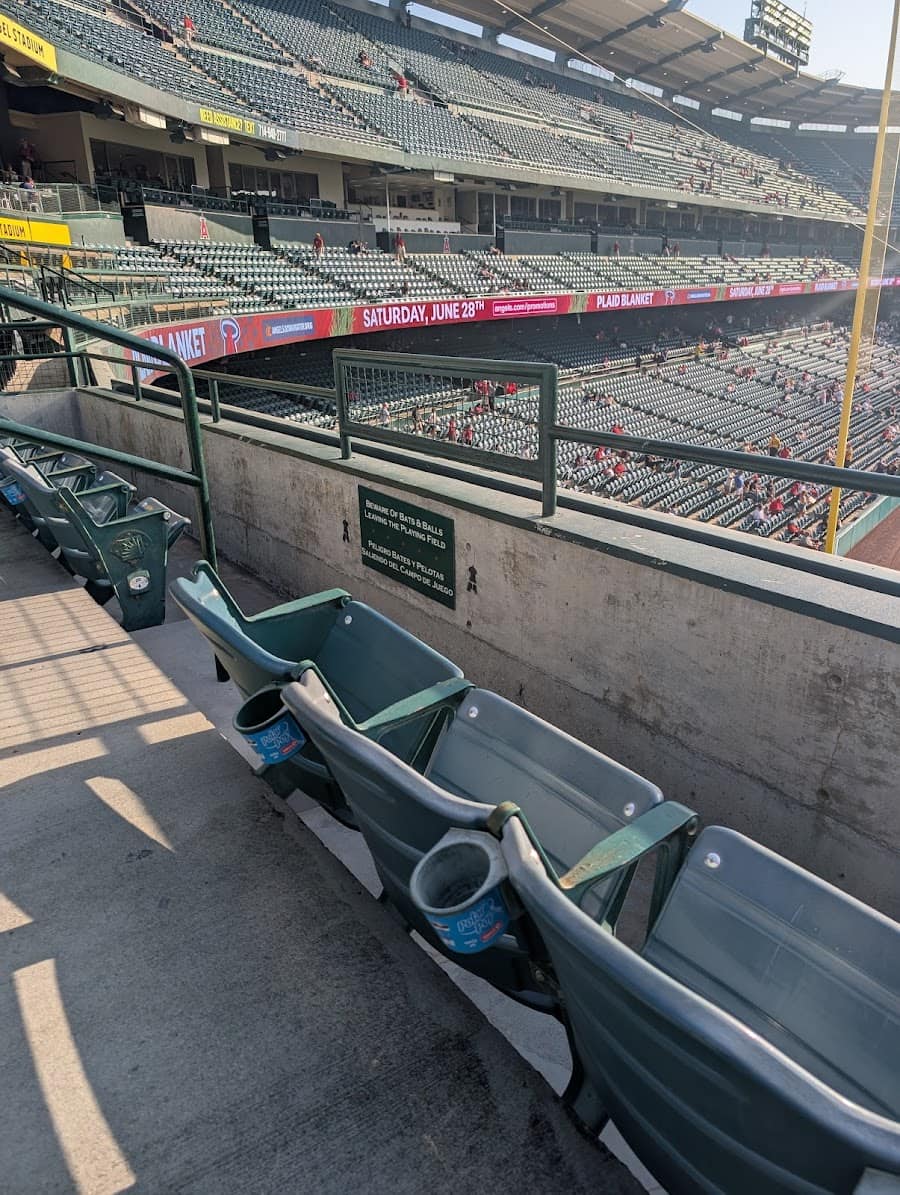
Renovations and Unique Features. The late-1990s renovation, managed by Walt Disney Imagineering and renowned architects, transformed the stadium into a state-of-the-art baseball facility. I was especially impressed by the “California Spectacular”—a rock formation with real trees, artificial rocks, and geysers that erupt for home runs and wins. The outfield’s terraced bullpens, widened concourses, and new luxury suites make the ballpark both comfortable and visually striking. The most famous landmark is the 230-foot-tall “Big A” sign in the parking lot, weighing 210 tons—it’s an Anaheim landmark you can’t miss. The stadium now seats about 45,000 fans, with excellent sightlines and family-friendly sections.
Behind-the-Scenes Tours and Unique Experiences. If you want to see more than just the field, book a behind-the-scenes tour. I got to visit the dugout, press box, and even the Angels’ clubhouse—a real treat for any baseball lover. Tours are available on select days when the team is away, and they cost $24 for adults and $19 for kids, seniors, or military. The tour lasts about 75 minutes and includes access to areas normally off-limits to fans, like the Gene Autry Suite and the broadcast booth. It’s a great way to learn about the stadium’s history and get a new perspective on game day.
What to Do at Angel Stadium:
- Watch a Los Angeles Angels game and soak up the ballpark atmosphere
- Try Crafty Dawgs, burgers, and local brews
- Take a behind-the-scenes stadium tour for a unique experience
- Shop for souvenirs and team gear (but expect long lines on busy days)
- Snap photos with the “Big A” sign and the outfield rock waterfall
- Arrive early for parking, promos, and to catch batting practice
⭐ Best Activities
- LA Angels Baseball Game Ticket at Angel Stadium – Catch America’s pastime at Angel Stadium in Anaheim and cheer on the Los Angeles Angels in this classic baseball experience.
11. Irvine Regional Park
Nature, History, and Family Fun. Irvine Regional Park is one of my favorite escapes in Southern California—a sprawling 491-acre green space in the foothills of Orange. Established in 1897, it’s the state’s first public park, and you can feel the history in the ancient oak groves and shady sycamore trees. I love wandering the nature trails, where you might spot rabbits, woodpeckers, or even a mule deer if you’re lucky. The park’s Oak Grove is perfect for a quiet picnic or just relaxing under the trees, and the small lake is a peaceful spot for fishing or watching ducks glide by.
Activities for All Ages. There’s never a dull moment here. The historic miniature train is a must—kids and adults alike love the ride through scenic landscapes, and it runs daily for $7 per person (children under 12 months ride free). For more adventure, I rented a paddle boat on the lake ($15 per half hour) and tried out a Surrey bike with friends, pedaling shaded trails past playgrounds and picnic areas[5]. The park also features pony rides, horse rentals, and the small but charming zoo, all within easy walking distance. Six playgrounds are scattered throughout, and you’ll find volleyball courts, horseshoe pits, and softball fields for group fun.
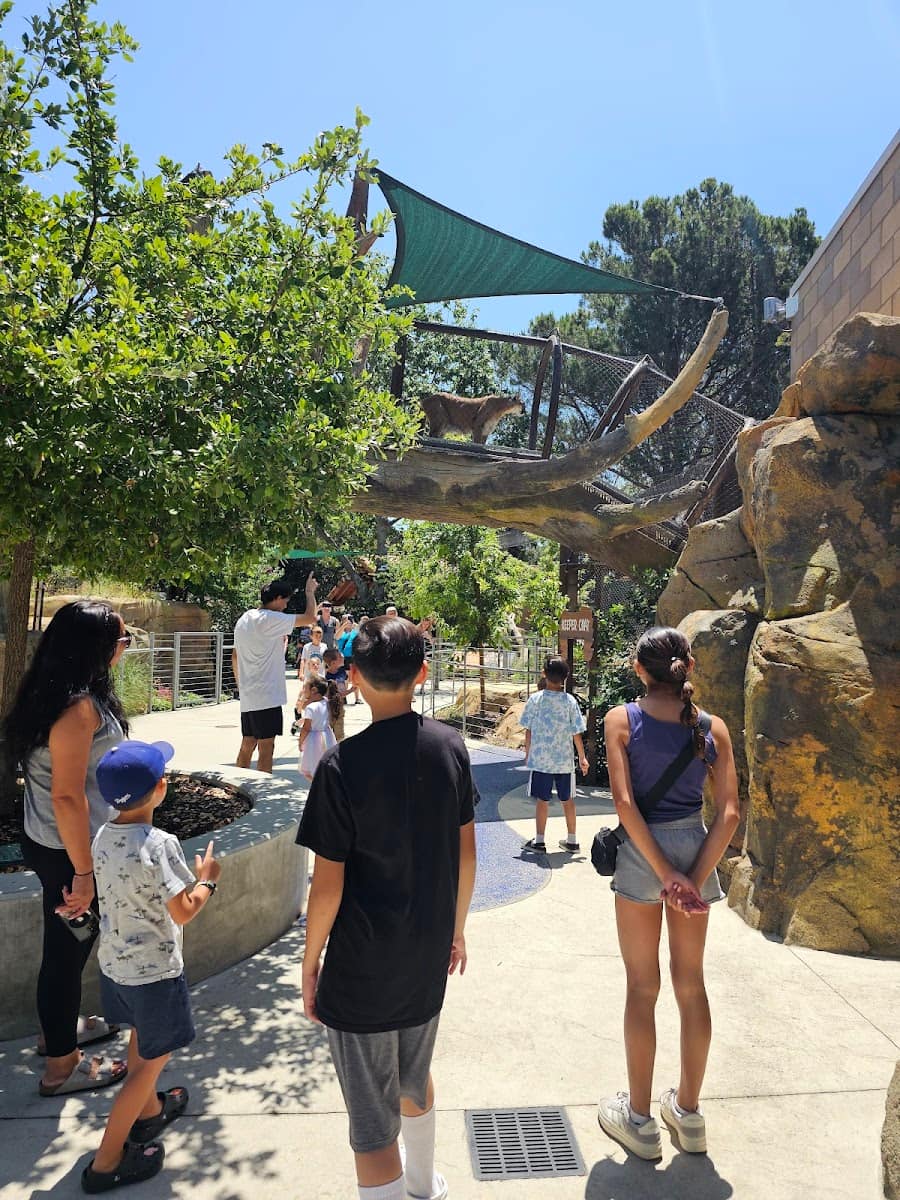
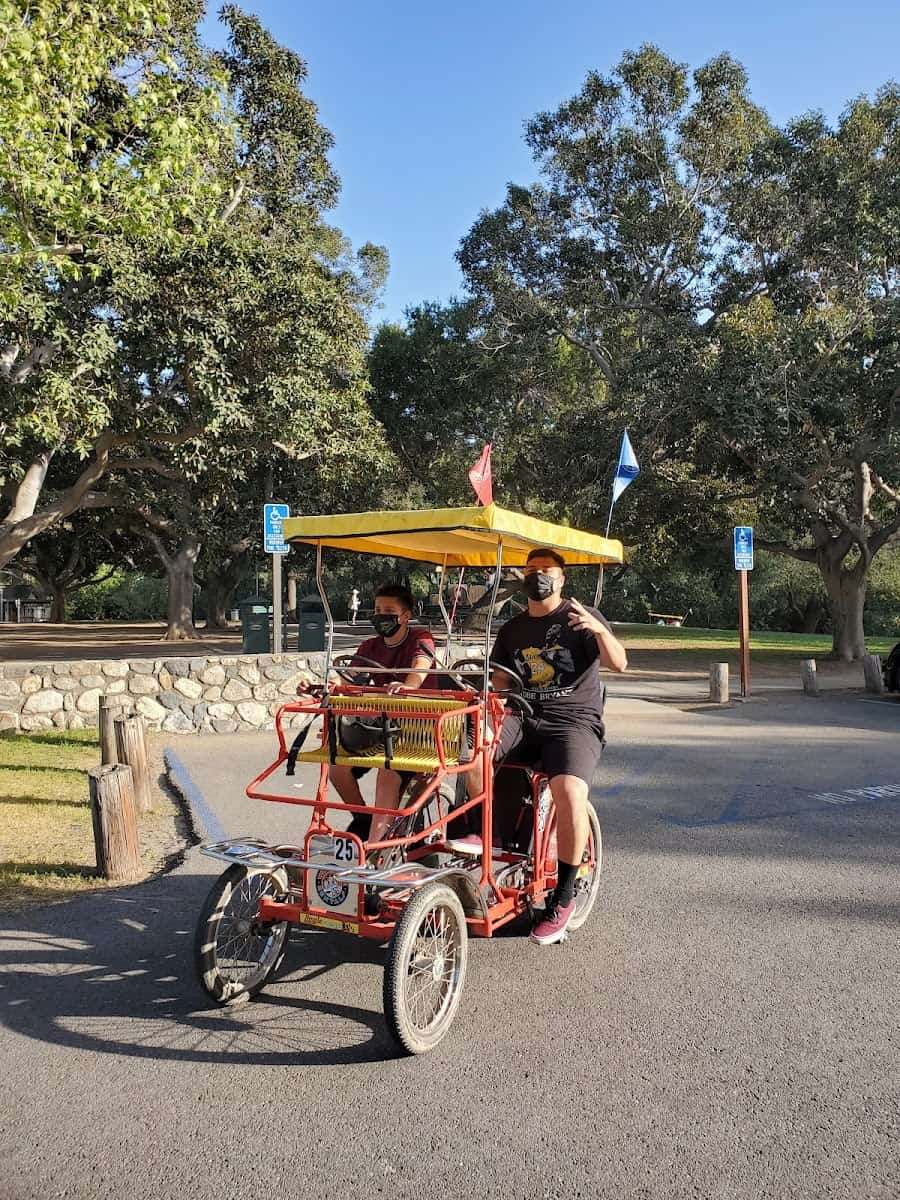
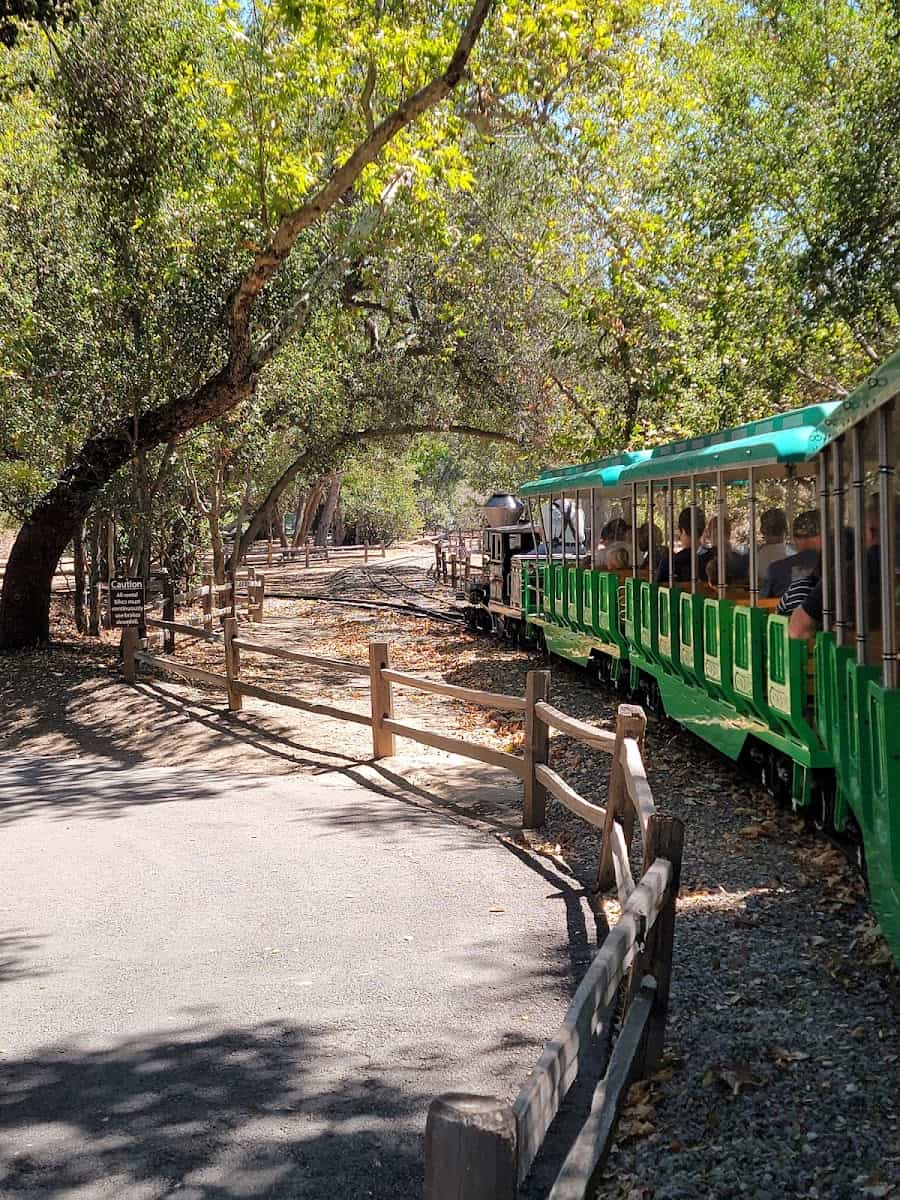
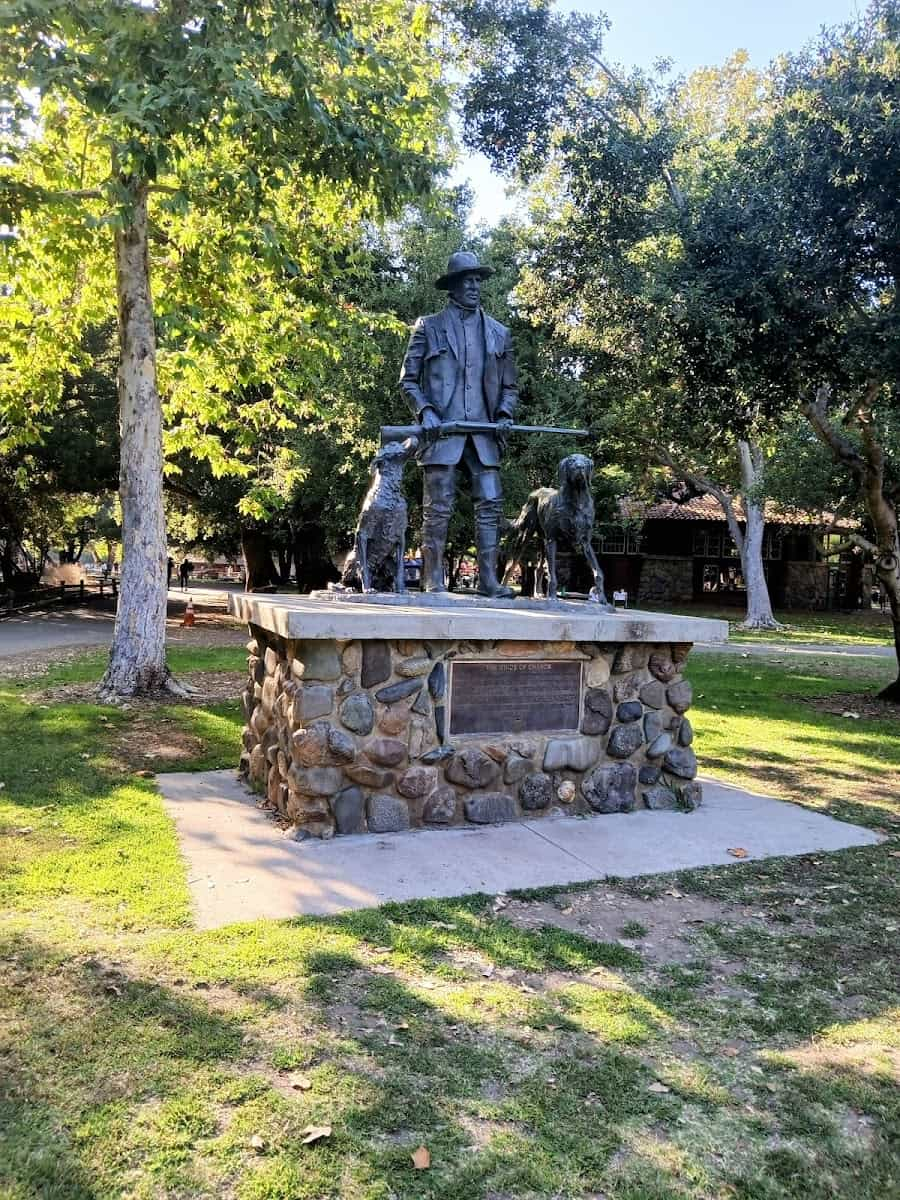
A Park Born from Preservation. Irvine Regional Park isn’t just another green space—it’s a living legacy of conservation. The park’s roots go back to the late 1800s when James Irvine, an avid outdoorsman, was determined to save a beloved grove of ancient live oaks from being lost to firewood and grazing. In 1897, the Irvine family gave 160 acres of these shady picnic grounds to the county for just $1, with strict rules to keep the area as natural as possible. Over the years, the park has grown into nearly 500 acres, but you can still feel that spirit of preservation in the massive oaks, sycamores, and tranquil pond that anchor the landscape.
Habitats, Wildlife, and Trails. Walking the trails here, I was amazed by the diversity of habitats. The park is home to some of the oldest coast live oaks in the region, and the woodlands support everything from woodpeckers and squirrels to mule deer and butterflies. The Horseshoe Loop and Roadrunner Loop offer easy, shaded hikes through oak groves, while the Santiago Creek area is rich with willows and wild grape, attracting secretive birds and chorus frogs. If you’re into birdwatching or photography, bring your binoculars—herons, hawks, and egrets are regulars, and wildflowers light up the grasslands in spring. For a taste of modern shopping and dining after your outdoor adventure, the nearby Irvine Spectrum is a great place to unwind.
| Activity | Price (USD/EUR) | Notes |
|---|---|---|
| Train ride | $7 | Under 12 months free |
| Paddle boat rental | $15/half hour | Up to 3 riders |
| Bike rental (Surrey) | Varies, ~$25/hour | Multiple sizes |
| Parking | $3–$5 | Higher on holidays |
12. Richard Nixon Presidential Library & Museum
A Walk Through History and Legacy The Richard Nixon Presidential Library & Museum in Yorba Linda is a fascinating journey through the life and times of America’s 37th president. I started my visit with a self-guided audio tour of Nixon’s original 1910 birth home—a humble farmhouse that’s been carefully preserved. Walking through the rooms where Nixon grew up, I got a real sense of his early years in rural California. The museum’s modern galleries then take you through Nixon’s entire career, from his days as a young lawyer to his rise in politics, presidency, and later years as an elder statesman.
Immersive Exhibits and Unique Artifacts Inside, the museum is packed with interactive displays, films, and more than 600 photos and artifacts. I was drawn to the “Week That Changed the World” gallery, which covers Nixon’s historic 1972 trip to China. There’s also a full-scale replica of the Oval Office, decorated in 1969 California blue and gold, where you can snap a photo behind the president’s desk. Don’t miss the presidential helicopter (Marine One), which flew Nixon and three other presidents, or the 1967 Lincoln Continental limousine on display. The museum doesn’t shy away from controversy—you’ll find in-depth coverage of the Vietnam War, Watergate, and the turbulence of the 1960s.
Special Exhibitions and Programs. The library regularly hosts special exhibitions and public programs. Right now, “The Ancient World: Unlocking the Middle East runs, exploring the region’s history up to 1979 and included with admission. There are also free school tours, scouting badge programs, and a Sunday Concert Series. The grounds are beautifully landscaped, and you can visit the final resting places of President and Mrs. Nixon, as well as stroll through the gardens and see the bronze statue of Nixon himself.
A Modern, Multimedia Museum. The Richard Nixon Presidential Library & Museum in Yorba Linda stands out as one of the most interactive and technologically advanced presidential museums in the country. After a $15 million renovation, the museum now features nearly 70 new exhibits, 30 multimedia experiences, 11 original films, and 12 custom digital interactives. I was amazed by the touchscreens, super-graphics, and immersive audio-visual stations that bring the Nixon era to life for visitors of all ages. The museum’s 22 unique spaces cover everything from Nixon’s early life to his years as president, with a special focus on the complexities and controversies of his administration.
What to Do at the Richard Nixon Presidential Library & Museum:
- Tour Nixon’s original birthplace and boyhood home
- Explore the Oval Office replica and presidential helicopter
- Visit the current special exhibition and attend a Sunday concert
- Stroll the gardens and pay respects at the Nixon family gravesites
⭐ Best Activities
- Richard Nixon Presidential Library and Museum: Fast Track – Explore the life and presidency of Richard Nixon through interactive exhibits, artifacts, and his restored birthplace home.
Best Attractions for Families
1. Discovery Cube Orange County
Hands-On Science. This Santa Ana science center is a two-story wonderland packed with interactive activities for kids and families. I loved how every corner invites you to touch, play, and experiment—whether you’re digging for dinosaur bones in Dino Quest, scanning groceries in the Eco Challenge Market, or getting your hands wet in the Sea Lab’s touch tanks. My favorite? The Physics Lab, where you can launch rockets and test out a bed of nails. The focus on STEM makes this spot a top pick for families looking for fun and learning rolled into one.
Special Events and Seasonal Fun. This center is famous for its seasonal happenings. Bubblefest in spring is a must-see, with laser bubble shows and a festival zone full of soapy science, paddle boats, and obstacle courses. Around Halloween, Pumpkin Palooza takes over with dance parties and themed activities, while winter brings gingerbread cookie decorating and Santa visits. These activities are included with general admission or a membership (starting at $79/year for two people), but some special shows require separate tickets.
Ocean Science and New Activities. Recently, the center launched two exciting, ocean-themed areas: the Sea Lab and the Ocean Encounter. I was amazed by the Sea Lab’s shark and ray touch pool, where you can actually feel the smooth skin of a ray or the roughness of a small shark. Next to it, the marine life tank lets you get hands-on with starfish and anemones—perfect for curious kids and adults alike. Upstairs, the Ocean Encounter fills a huge theater with interactive displays and live fish, all included in your entry fee ($19.95 for adults, $14.95 for ages 3–14). The goal is to inspire everyone to care for our coastal environment and learn how ocean science keeps our communities healthy.
Interactive Experiences for All Ages. Every visit here feels different because the hands-on zones are always changing. I’ve tried the earthquake simulator, launched a virtual rocket, and even designed a satellite. Kids can build box cars, play with Lego, and dress up in costumes. The Eco Challenge grocery store teaches about recycling and healthy choices, while the hockey zone and wind tunnel add a sporty twist. There’s also a jungle walk, a Mars rover mock-up, and a hands-on Physics Lab with a bed of nails and Jacob’s Ladder, making it a place where the whole family can learn and play together—even if you’re visiting with a toddler, there’s plenty to keep little hands busy.
What to Do at Discovery Cube Orange County:
- Dig for fossils in Dino Quest
- Scan groceries and recycle in Eco Challenge Discovery Market
- Touch sharks and fish in Sea Lab
- Join special events like Bubblefest or Spooky Science
- Enjoy hands-on STEM activities for all ages
2. Bowers Museum
World Cultures and Local History. This Santa Ana institution is a treasure trove for anyone curious about art, culture, and history. I was struck by the variety—one gallery held ancient Chinese jade carvings, another displayed Native American baskets and beadwork, and yet another showcased California plein-air paintings. The permanent collection features over 100,000 objects from Asia, Africa, Oceania, and the Americas, all beautifully presented. I wandered through rooms filled with African masks, Pacific Islander sculptures, and even a space devoted to the art of California’s early days.
Collections and Cultural Treasures. The permanent collection is vast and diverse, with more than 100,000 objects from Asia, Africa, Oceania, and the Americas. Highlights include ancient Chinese jade, African masks, Pacific Islander carvings, Native American baskets, and pre-Columbian pottery from Mexico and Peru. The Art of the Americas collection alone features over 24,000 objects, from prehistoric to contemporary, including basketry, beadwork, and stone tools. Special South American collections include feather works, textiles, and hunting implements, while the Pre-Columbian art section is especially strong in West Mexican sculpture and Mayan artwork.
Events, Festivals, and Community Life. This museum is more than just galleries—it’s a lively community hub. I’ve attended their free family festivals on the first Sunday of each month, which feature music, dance, crafts, and food from around the world. KCRW Summer Nights brings live DJs, pop-up bars, and kids’ activities to the courtyard for a festive evening vibe. The museum also runs lectures, film nights, art workshops, and cultural performances year-round, making every visit unique. The on-site Tangata Restaurant, with its Pacific Rim-inspired menu, is a favorite spot for lunch or brunch with a view of the gardens.
Events, Dining, and Amenities. There’s more here than just art on the walls. I joined a hands-on art workshop and watched a cultural dance performance in the courtyard. The museum hosts lectures, film nights, and family festivals year-round. Tangata, the on-site restaurant, serves lunch and brunch with a view of the garden—perfect for a midday break. The gift shop is packed with unique jewelry, books, and crafts from around the world. Parking is easy and right across from the entrance.
| Ticket Type | Price (USD/EUR) |
|---|---|
| Adults | $18 (€16.50) |
| Seniors (62+) & Students (12+) | $15 (€13.80) |
| Children under 12 | Free |
| Parking | $6.99 (€6.40) |
⭐ Best Activities
- Self-Guided Driving Adventure Through Coastal Orange County – Discover hidden gems and scenic coastal routes on this flexible self-guided driving tour through Orange County’s most beautiful areas.
3. Balboa Fun Zone
Classic Boardwalk Fun. Balboa Fun Zone in Newport Beach is a slice of old-school seaside amusement that I always recommend for families or anyone craving a bit of nostalgia. The moment I stepped onto the boardwalk, I was greeted by the cheerful sounds of arcade games and the smell of popcorn and cotton candy. The Fun Zone has been a local favorite since 1936, with carnival games, small rides, and a lively arcade that’s perfect for all ages. I tried my hand at the ring toss and played a few rounds of pinball, surrounded by the buzz of families and friends making memories by the water.
Rides, Games, and Waterfront Views. The Fun Zone is famous for its colorful rides and waterfront setting. The Happy Swing and Ocean Motion Trampoline are big hits with kids, while the raised patio offers sweeping views of Newport Harbor. For $5–$10 (€4.60–€9.20) per ride, or $20 (€18.50) for an unlimited all-day pass, you can bounce, swing, and play to your heart’s content. The boardwalk is lined with souvenir shops and classic carnival games, where you can win prizes or just enjoy the friendly competition. There’s even a local caricature artist—my drawing took less than 15 minutes and cost just $30 (€28), which is a steal compared to theme parks.
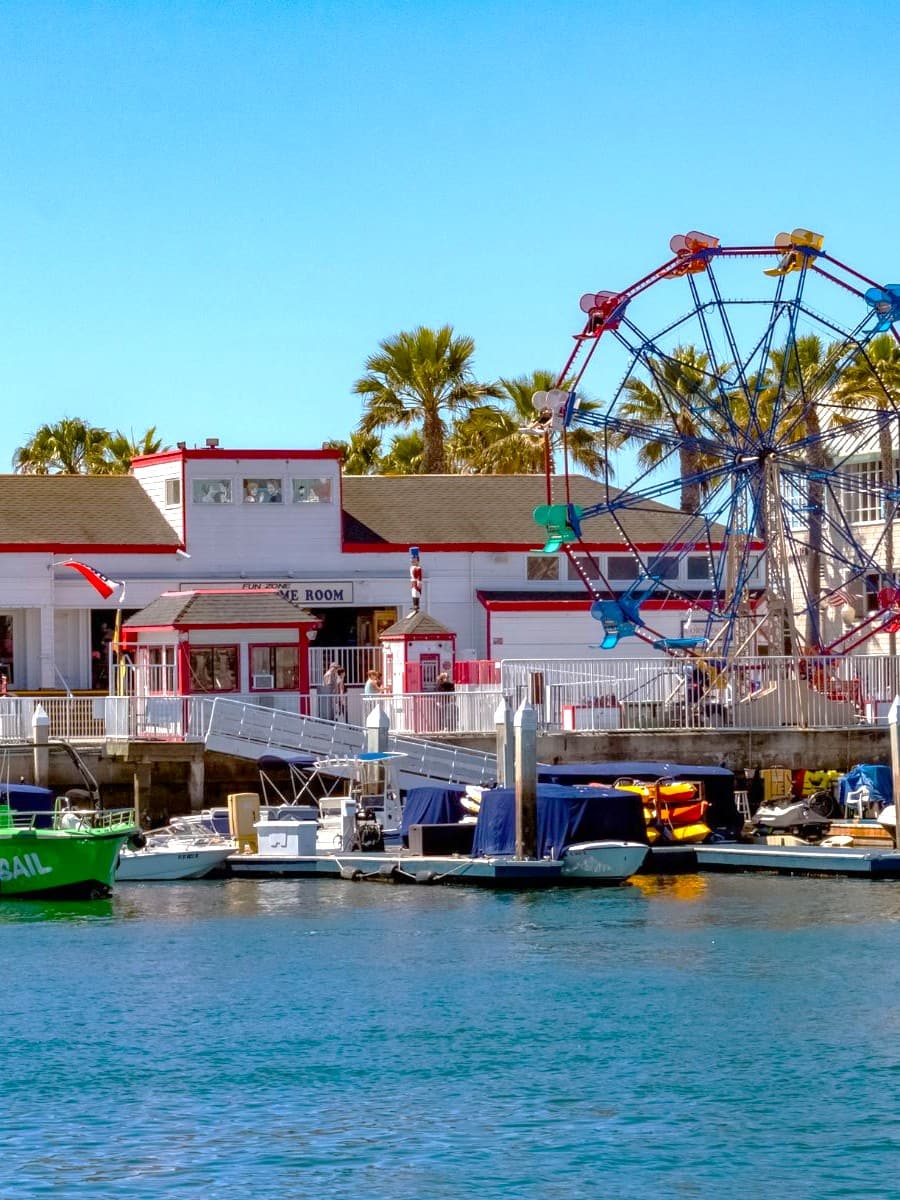
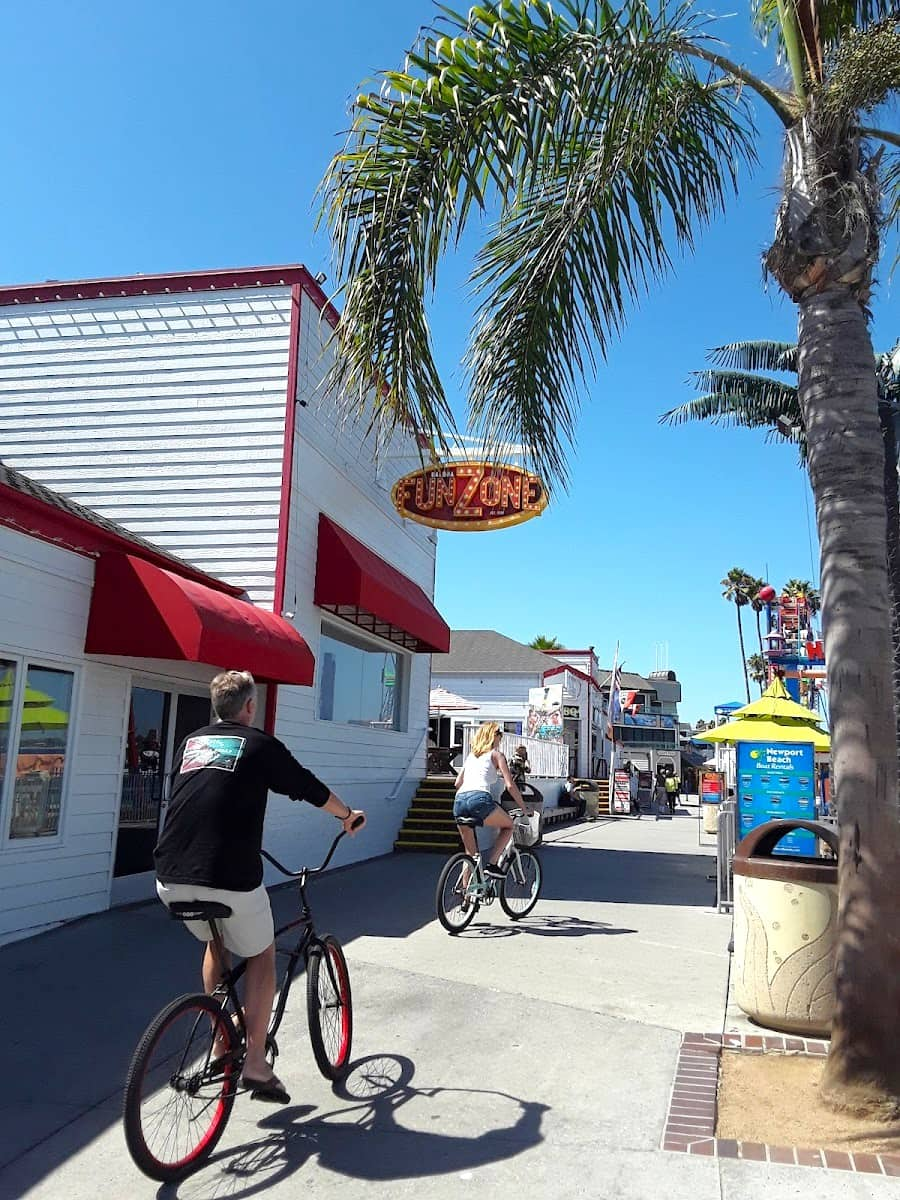
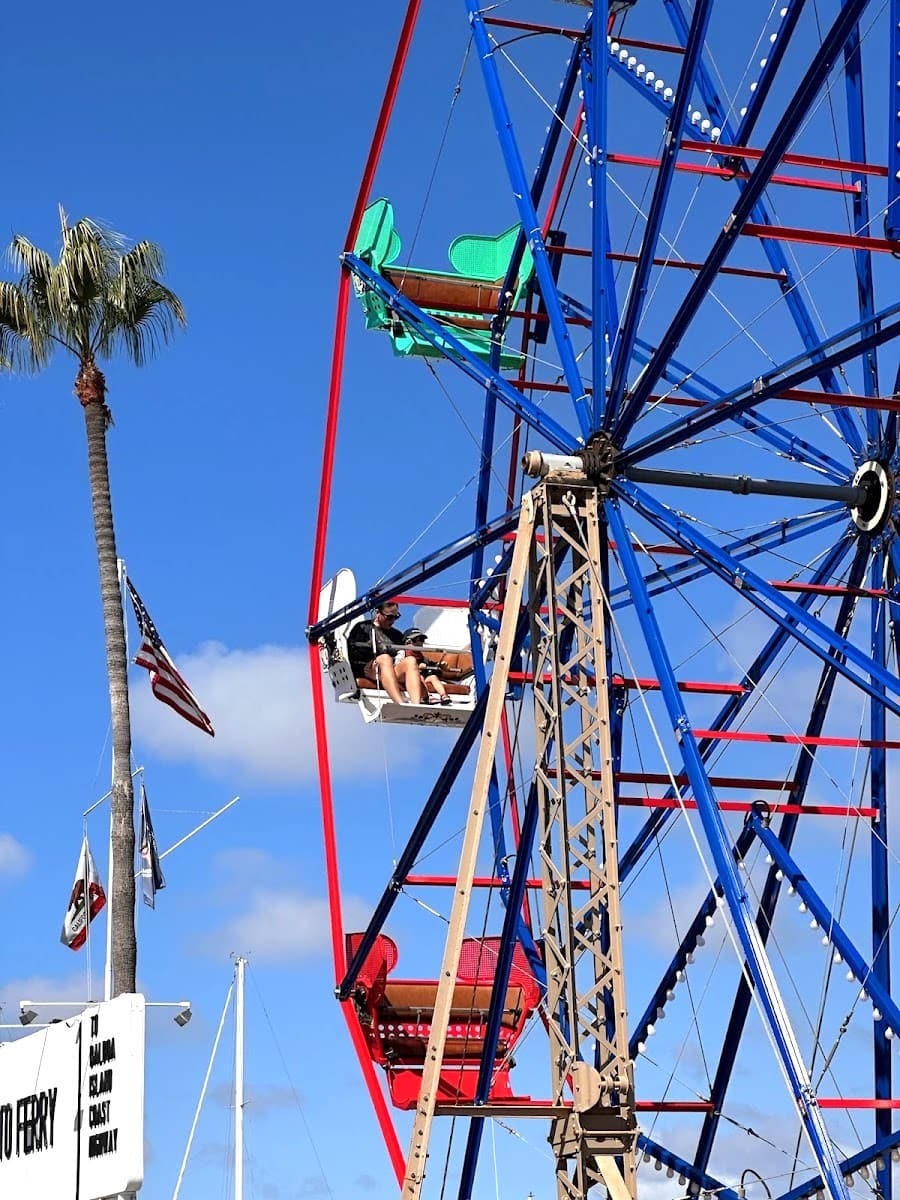
Food and Treats. After a few games, I grabbed a Balboa Bar—vanilla ice cream dipped in chocolate and rolled in toppings—from Sugar ‘n Spice. The Fun Zone is surrounded by classic eateries and snack stands. I recommend Jane’s Corndogs for a quick bite, Cowafornia for homemade ice cream, and Balboa Beach Treats for a frozen banana. If you want a sit-down meal, the area offers everything from pizza at Azar’s to tacos at Chronic Tacos and seafood at Harborside Restaurant. The boardwalk is a great spot for people-watching, and the view of boats in Newport Harbor adds to the laid-back vibe.
A Storied Waterfront Past. Balboa Fun Zone in Newport Beach has roots stretching back to 1936, when Al Anderson transformed an old boat yard into a bayside playground. Over the decades, it’s been a gathering spot for families and friends, with classic rides, arcades, and waterfront amusements. The Fun Zone has seen many changes—at one point, it almost became a condo development, but the community rallied to keep it a place for fun and nostalgia. Today, it’s owned by a local Newport Beach family, and there’s a real sense of pride in preserving its vintage vibe for new generations.
| Ride Type | Price (USD/EUR) | Notes |
|---|---|---|
| Single Ride | $5–$10 (€4.60–€9.20) | Per ride |
| All-Day Pass | $20 (€18.50) | Unlimited rides |
| Caricature Drawing | $30 (€28) | Full color, quick turnaround |
⭐ Best Activities
- Newport Beach City Cruises: Champagne Brunch Buffet Cruise – Indulge in a luxurious champagne brunch while cruising Newport Harbor with stunning coastal views and gourmet dining.
4. Shipley Nature Center
Natural Habitats and Trails. Shipley Nature Center is a peaceful escape where you can explore the wild side of Southern California. I wandered along 4,000 feet of wood-chipped trails winding through 18 acres of restored native habitats—oak woodlands, Torrey pine groves, meadows, coastal sage scrub, and the serene Blackbird Pond. The air is filled with birdsong, and in spring, the meadows burst with orange California poppies. The trails are well-marked and easy for families, and benches along the way invite you to pause and listen for hummingbirds, bees, and butterflies.
Education and Community. The center is a true community hub, offering hands-on learning for all ages. I visited the Interpretive Center, where friendly docents answered questions and pointed out seasonal highlights. The building features a diorama with local wildlife, panels on the history of the region, and a small gift shop with nature books and garden guides. School tours, summer day camps, and family programs make Shipley a favorite for local kids. The demonstration gardens—like the Butterfly Garden and Waterwise Garden—show how native plants can support pollinators and save water at home.
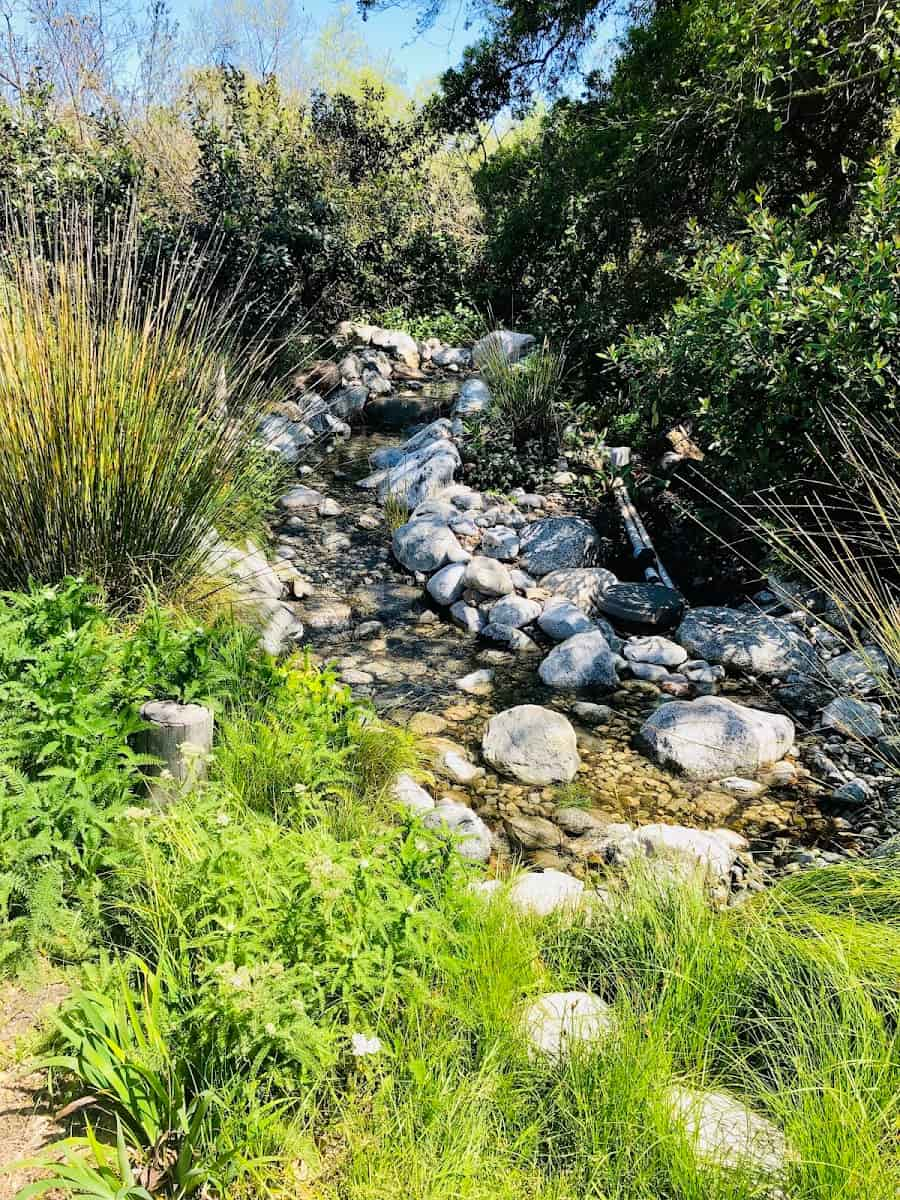
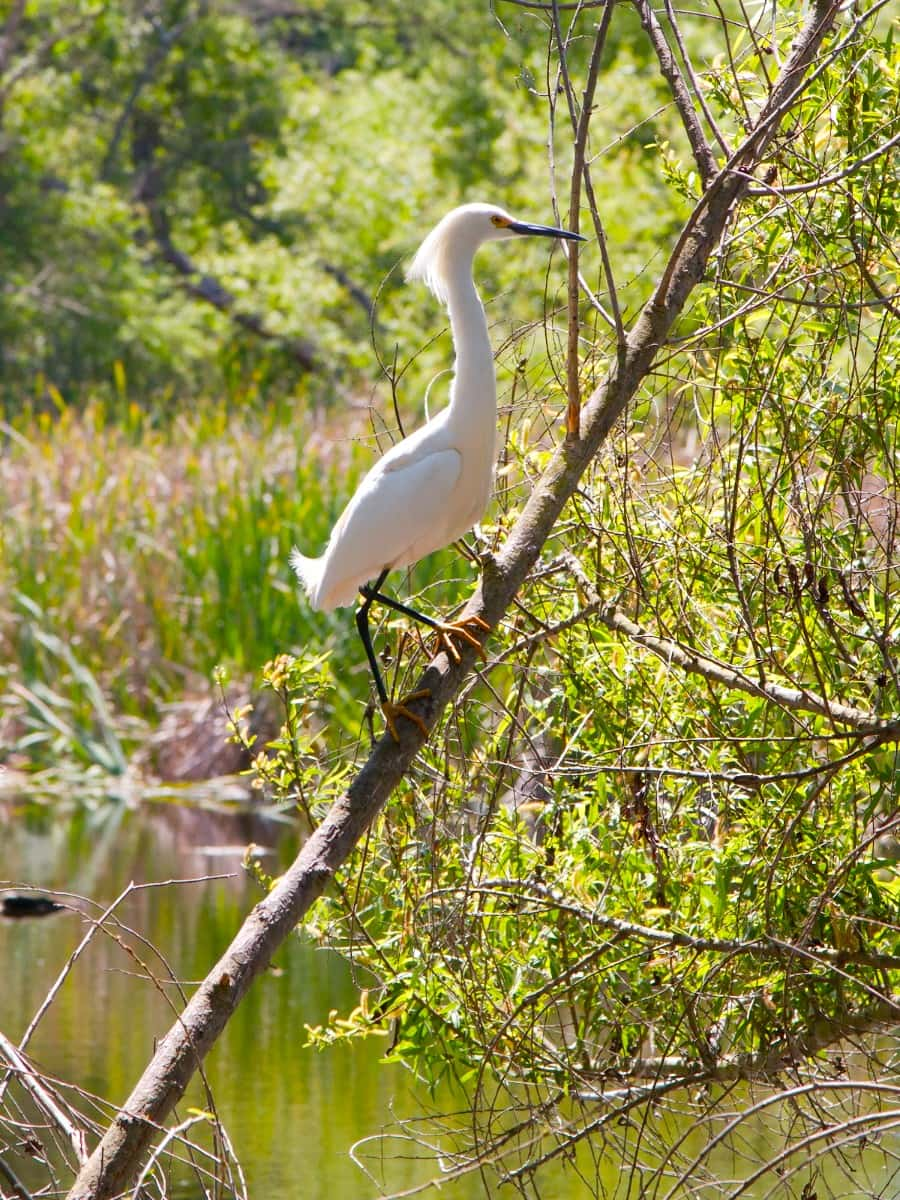
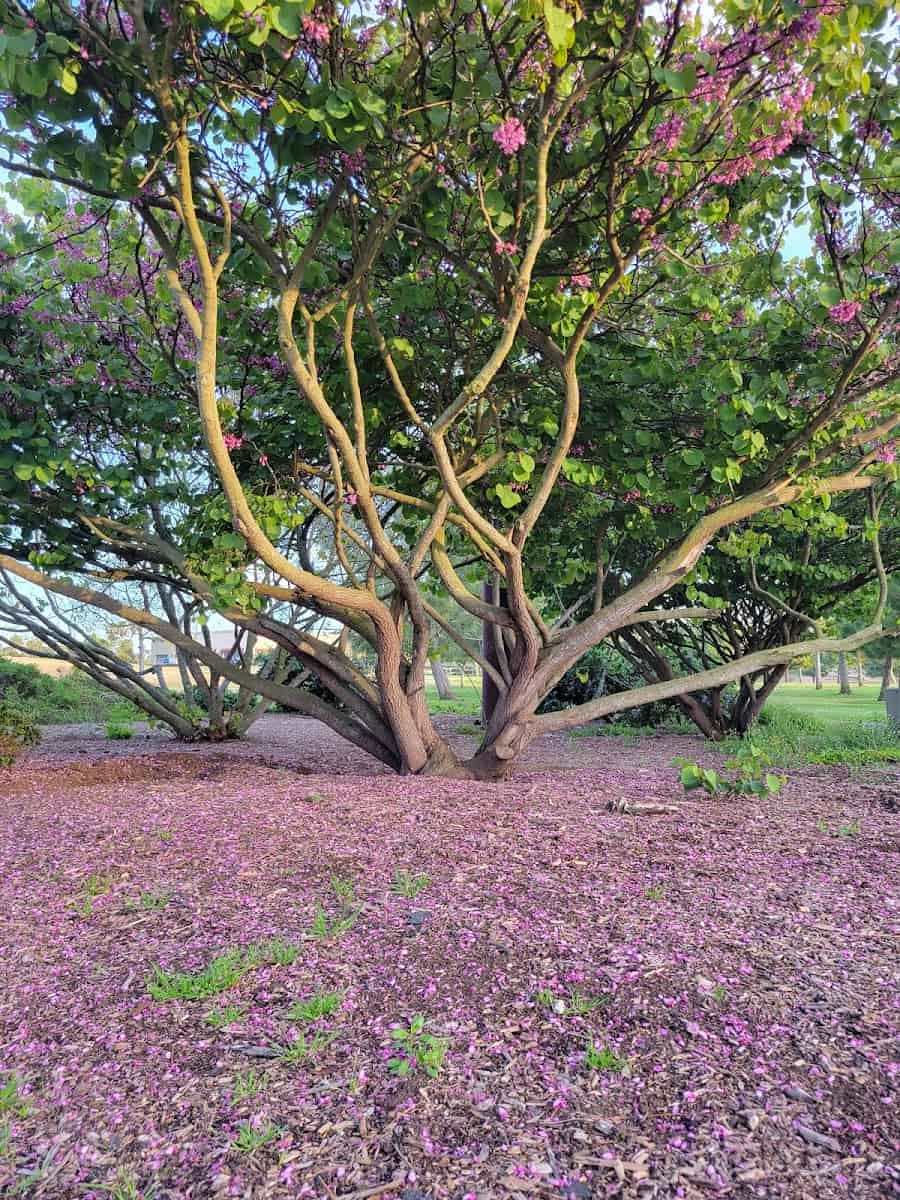
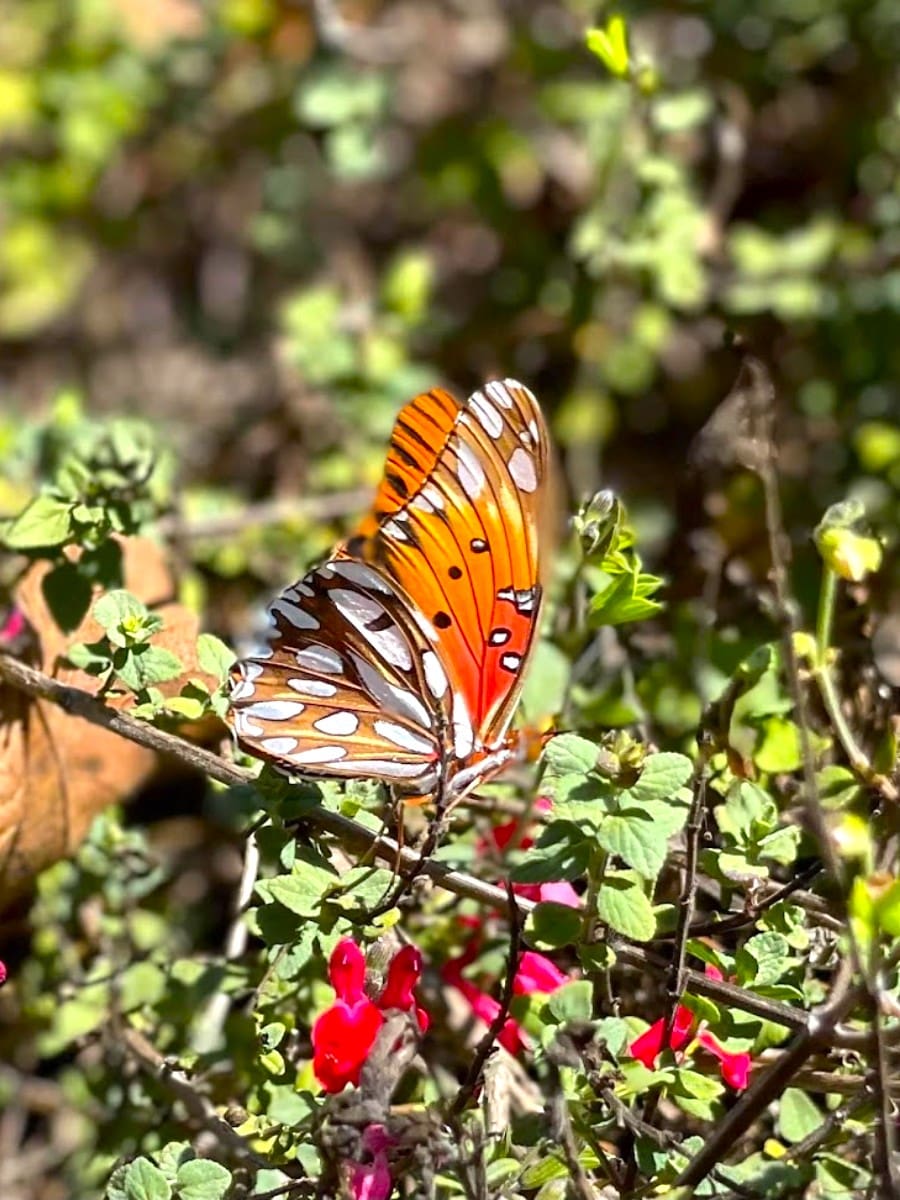
Eight Distinct Ecosystems. I was amazed by the diversity packed into 18 acres—there are eight different habitats, including Oak Woodland, Meadow, Redwood Grove, Coastal Sage Scrub, Blackbird Pond, Riparian Woodland, Torrey Pine, and Southern Oak Woodland. Each area is home to unique plants and animals, and more than 200 bird species have been spotted here. The Butterfly and Hummingbird Gardens are especially lively in spring, and the Waterwise Garden shows how to use native plants to save water at home. Interpretive signs and a 1,500-square-foot center help you learn about local wildlife and ecology as you explore.
Hours, Admission, and Practical Info. Shipley is open Tuesday, Wednesday, Friday, and Saturday from 9 am to 1 pm, with extended hours (9 am–6 pm) on the first Friday of each month. Entry is free, but a $3 donation is suggested to help keep the gates open. Parking is always free—just use the main lot at 17851 Goldenwest Street or the alternate lot at 6741 Central Park West.
What to Do at Shipley Nature Center:
- Visit the Interpretive Center for wildlife and history displays
- Explore demonstration gardens for pollinator-friendly ideas
- Join a docent-led tour or family event
- Watch for birds, butterflies, and maybe a shy coyote
- Enjoy free parking and easy access in Huntington Central Park
5. Orange County Zoo (in Irvine Regional Park)
Native Wildlife Up Close. Orange County Zoo, nestled inside Irvine Regional Park in the city of Orange, is a hidden gem for families and animal lovers. I was impressed by how the zoo focuses on animals native to the southwestern United States. As I wandered the eight-acre grounds, I saw black bears, mountain lions, bobcats, ocelots, coyotes, bald and golden eagles, red-tailed hawks, great horned owls, and even a rare island fox. Most of these animals are rescues that can’t return to the wild, and each habitat is designed to resemble their natural environment. The zoo is small enough to explore in about an hour, making it perfect for young kids or a quick nature break.
Petting Zoo and Family Activities. One of my favorite spots was the barnyard area, where you can meet and feed domestic goats, jacob sheep, pot-bellied pigs, and even doves and pheasants. Grain cups are available for purchase, and the animals are friendly and gentle. There are also picnic areas right outside the entrance, so you can bring a lunch and relax under the giant sycamores and live oaks. The zoo offers hands-on activities and animal enrichment sessions—check the daily schedule for feeding times, keeper talks, or a chance to meet an animal ambassador up close.
Education and Tours. The zoo offers one-hour docent-guided tours for $3 per person, which cover animal habitats, adaptations, and behavior. There’s also a free audio tour you can access from your phone—just dial the number and enter the animal’s code for fun facts from keepers and veterinarians. School groups are common, and the zoo’s education program meets California Science Framework standards. Interpretive signs throughout the zoo share information about animal diets, names, and rescue stories, and some signs even highlight Native American uses for local plants.
History and Setting. The Orange County Zoo is tucked inside the lush 477-acre Irvine Regional Park in the city of Orange, surrounded by oak and sycamore groves. The zoo itself covers eight acres and has a long history—animals have lived here since 1905, but the current zoo officially opened in 1985. It’s easy to miss if you don’t know where to look, but that’s part of its charm. The zoo’s focus is on animals and plants native to the southwestern United States, and each enclosure is designed to look like the animals’ natural environment.
| Ticket Type | Price (USD/EUR) | Notes |
|---|---|---|
| Ages 0–2 | Free | |
| Ages 3+ | $2 (€1.85) | General admission |
| Guided Tour | $3 (€2.80) | Per person, by request |
| Parking (Irvine Park) | $5–$7 (€4.60–€6.40) | Per car, varies by day |
Free Entertainment in Orange County
1. Laguna Beach Art Walk
Creative Community Spirit. The monthly Art Walk transforms downtown into an open-air gallery every first Thursday from 6pm to 9pm. I wandered the bustling streets, greeted by local artists, live music, and the hum of conversation. Over 40 galleries open their doors, offering free admission, snacks, and the chance to meet the creators behind the art. The event is free, and a complimentary trolley links the main gallery locations, so you can easily hop from one venue to another without worrying about parking.
Galleries, Venues, and Experiences. I started my evening at Hotel Laguna’s Art Start, where three artists showcased their work with complimentary California wine and appetizers. Then I made my way to the local art museum—admission is free during Art Walk, and the museum often features live music or dance alongside its rotating displays. The Cultural Arts Center on Forest Ave is a must for live performances and a mix of visual and performing arts. Along Pacific Coast Highway’s Gallery Row, I explored Studio 7 Gallery, Quorum Gallery, and the Plein Air Painters Gallery, each bursting with unique styles and mediums.
Artists, Conversations, and Local Flavor. What I love most about the Art Walk is the relaxed atmosphere—there’s no pressure to buy, and artists genuinely enjoy sharing their stories and creative process. I chatted with Val Carson at Studio 7 about her plein air paintings of Crystal Cove and Main Beach, and at Quorum Gallery, several artists were on hand to talk about their techniques and inspirations. Many galleries offer snacks, wine, and even live music, turning the evening into a lively social event. The event is a showcase for the city’s deep-rooted history in the arts, dating back to its founding by artists in the 1800s.
A Living Art Tradition. This beloved monthly event transforms the city’s downtown into a vibrant, open-air celebration of creativity. Held on the first Thursday of every month from 6 to 9 pm, this free event invites everyone—locals, visitors, art collectors, and families—to explore over 40 galleries and studios scattered along Pacific Coast Highway and Forest Avenue. As I wandered from one gallery to the next, I was welcomed by artists eager to talk about their work, live music drifting through the streets, and the buzz of conversation as people admired paintings, sculptures, and mixed media pieces.
What to Do at Laguna Beach Art Walk:
- Meet local artists and see live demonstrations
- Enjoy free admission to Laguna Art Museum and live music
- Ride the free trolley between venues
- Sip complimentary wine and sample snacks at select stops
- Experience the creative energy of a historic art community
2. Orange County Great Park Farmers Market
Fresh Finds and Local Flavor. The Orange County Great Park Farmers Market in Irvine is my favorite spot for a Sunday stroll and some of the freshest produce around. Open every Sunday from 10am to 2pm, the market has recently moved to Stonegate Elementary, making parking much easier and the setup more intimate. As soon as I arrived, I was greeted by the scent of ripe berries, fresh-baked bread, and the lively sounds of local musicians. The market isn’t huge, but it’s packed with quality—think juicy heirloom tomatoes, bundles of herbs, local honey, and handmade breads. Most vendors are actual farmers or artisans, and you can often sample fruit before you buy.
Vendors, Food Trucks, and Community. What makes this market stand out is the mix of certified produce stands, specialty food stalls, and food trucks. I picked up a giant cup of fresh sugar cane juice for $8 (€7.40) and grabbed lunch from a taco truck while my friends tried freeze-dried candy and honey samples. There are also bread vendors, a dog food stand, and even a spot for European kefir. The market is dog-friendly and has a family area with bounce houses and kids’ activities, so it’s easy to turn your shopping trip into a fun family outing.
A Market with Deep Roots. The Orange County Great Park Farmers Market isn’t just a place to shop—it’s a living part of the region’s agricultural story. The Great Park itself sits on land that was once Marine Corps Air Station El Toro, and before that, some of the most fertile farmland in Southern California. Today, the market is certified, which means the produce you see comes straight from local farmers, many of whom have deep family ties to the area. I love chatting with growers who can tell you exactly where your strawberries or tomatoes were picked that morning.
History and Location. The market’s location inside the Great Park is no accident. After the closure of the Marine base in the late 1990s, local voters chose to turn the land into a central park and preserve, keeping agriculture at the heart of the community. The market is now held at Stonegate Elementary, making it easy to park and stroll among the stalls. The park itself is full of history, with restored runways, a walkable timeline, and a Farm+Food Lab that shows off sustainable growing techniques. It’s a great place to bring kids or visitors who want to learn about the region’s farming past and future.
What to Do at the Orange County Great Park Farmers Market:
- Shop for fresh, locally-grown fruit, veggies, and herbs
- Enjoy food trucks and specialty snacks like sugar cane juice
- Sample honey, bread, and freeze-dried treats
- Let kids play in the bounce house and family area
- Relax with live music and a picnic on the grass
3. Heisler Park
Coastal Views and Walking Paths. Heisler Park is a stunning oceanfront park perched on the bluffs above the Pacific, stretching along Cliff Drive from Aster Street to Diver’s Cove. I love strolling the paved pathways that hug the coastline, offering postcard-worthy views at every turn. The park is filled with lush gardens, palm trees, and colorful flowers, making it a favorite spot for photographers and anyone who wants to relax in nature. Benches and grassy lawns invite you to sit and soak in the scenery, and the sunsets here are some of the best I’ve seen in Southern California.
Picnics, Barbecues, and Family Fun. This park is perfect for gatherings—there are picnic tables, barbecue grills, and large grassy areas for spreading out a blanket or tossing a frisbee. I’ve enjoyed many lazy afternoons here, watching families grill, couples share a picnic, and kids run between the gardens and the beach. The gazebo and Monument Point are popular for weddings and community gatherings, while the Veterans’ Memorial adds a touch of local history. Restrooms and drinking fountains are conveniently located, and the park is wheelchair accessible.
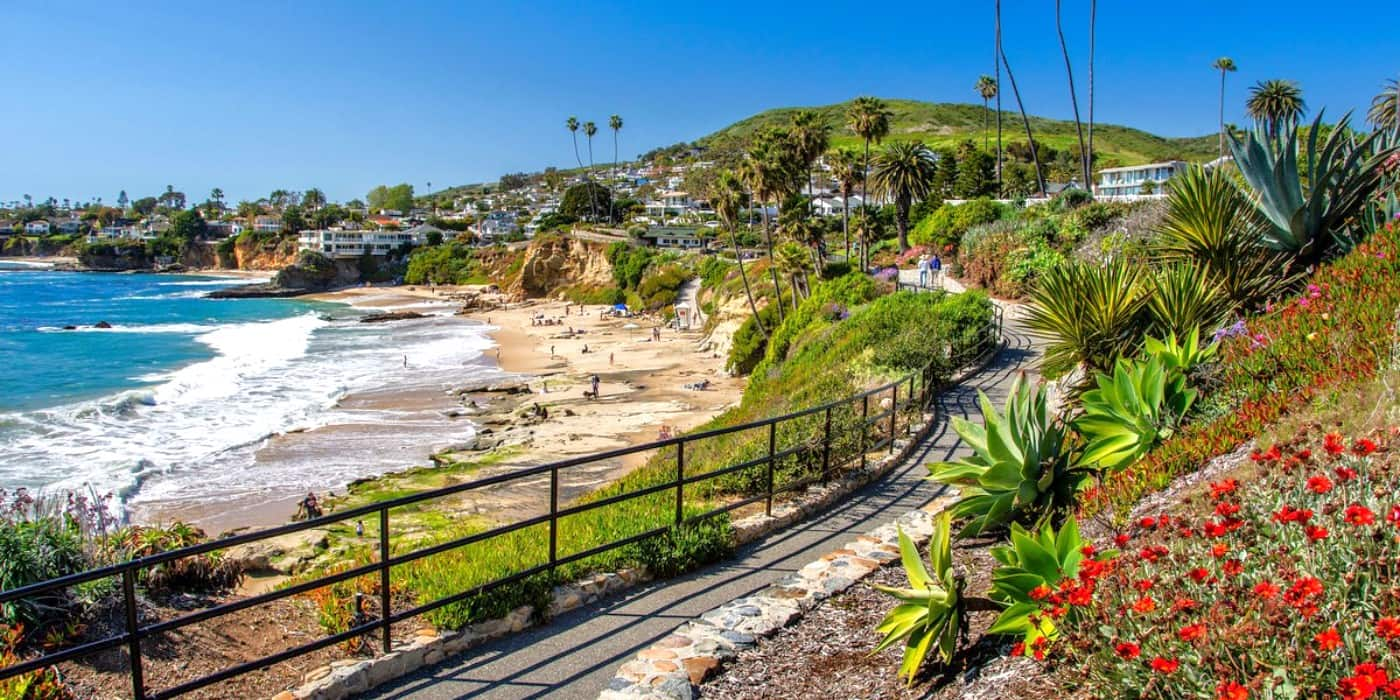
Beach Access and Marine Life. Multiple staircases lead down from the bluffs to sandy beaches below, including Picnic Beach, Diver’s Cove, and the marine reserve area. At low tide, you can explore rocky pools and spot sea stars, anemones, and hermit crabs—just remember not to disturb the wildlife, as this is a protected area. Swimmers, snorkelers, and even beginner boarders enjoy these calm coves, and you might see dolphins or sea lions offshore. Showers are available at the bottom of the stairs for rinsing off after a swim.
History and Coastal Legacy. Heisler Park is more than just a scenic bluff—it’s a piece of local history shaped by early visionaries. The land was set aside in 1906 when Howard G. Heisler and partners developed the Laguna Cliffs subdivision, making it one of the first neighborhoods in the area to offer water with every lot. By the late 1920s, there was a threat of development, but local resident Elmer Jahraus fought to keep the land public, winning a lawsuit that preserved the park for everyone. Today, Heisler Park stretches from Las Brisas Restaurant to Myrtle Street, offering meandering paths, lush gardens, and panoramic viewpoints along the bluff.
What to Do at Heisler Park:
- Walk the scenic bluff-top paths and enjoy ocean views
- Visit the Veterans’ Memorial and public art sculptures
- Snap sunset photos or have a photoshoot at the gazebo
- Use metered parking on Cliff Drive or nearby neighborhoods
4. Shipley Nature Center
Diverse Habitats and Walking Trails. Shipley Nature Center is a true hidden gem, tucked inside Central Park and spanning 18 acres of restored native California habitat. I wandered along 4,000 feet of wood-chipped trails that loop through eight different plant communities—oak woodlands, meadows bursting with poppies in spring, a peaceful redwood grove, coastal sage scrub, and the serene Blackbird Pond. Each area feels unique, and benches along the way let you pause and listen for hummingbirds, bees, and butterflies. The pond is a magnet for birds—on my last visit, I spotted a heron and a family of mallards enjoying the water.
Education, Community, and Family Fun. The center is a hub for environmental learning and community connection. The Interpretive Center has wildlife dioramas, panels about the region’s history, and a small shop with nature books and garden guides. School tours and summer day camps are popular, offering hands-on science and nature activities for kids ages 6–12. I loved seeing the demonstration gardens, which show how native plants can create beautiful, waterwise home landscapes and support pollinators. There’s even a replica Native American reed hut along the trail, connecting visitors to the area’s Gabrieliño (Tongva) heritage.
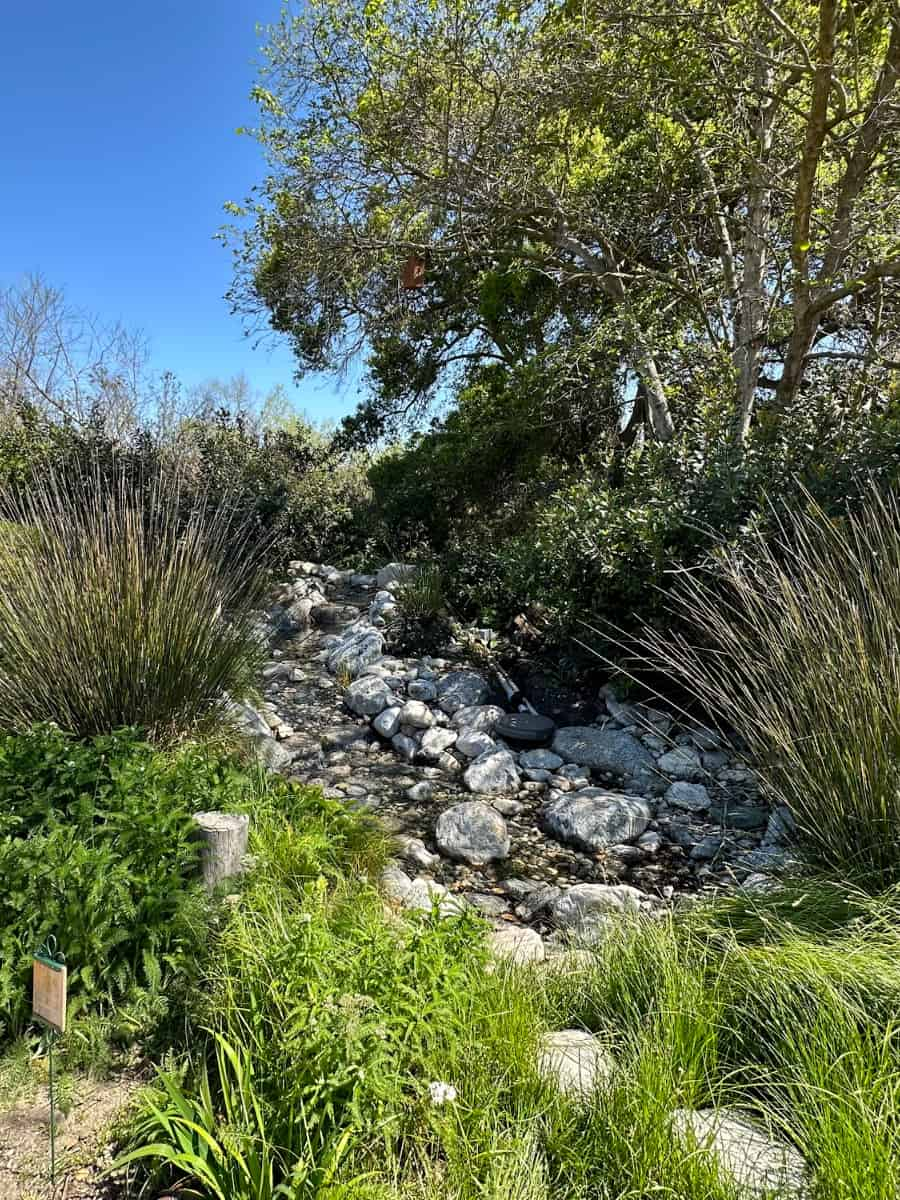
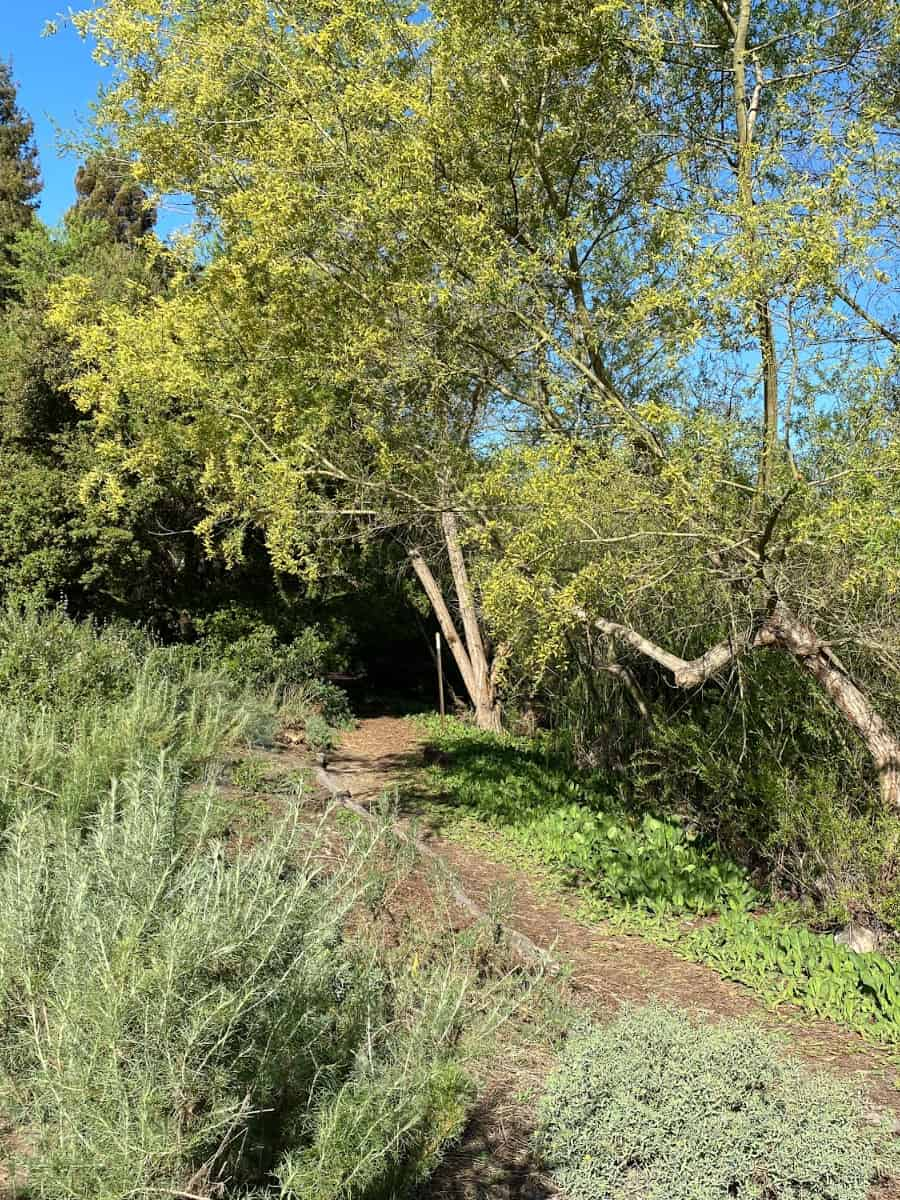

Water Conservation and Native Plants. Shipley is a showcase for waterwise gardening and sustainable living[5]. Native plants cover the grounds, needing less water than typical lawns and supporting local wildlife. The demonstration garden features a man-made stream powered by rainwater collected in a 4,000-gallon cistern—an idea you can use at home to save water and help birds and animals. Volunteers grow native plants in the on-site nursery, and you can often buy them for your own garden. Saturday mornings sometimes feature free talks by Master Gardeners on drought-tolerant landscaping.
Restoration and Early California Habitats. Shipley Nature Center was created in 1974 to show what Southern California looked like a century ago. The land was once farmland and, before that, home to the Huff family and the indigenous Gabrielino-Tongva people. Over time, invasive plants took over, and Blackbird Pond suffered from poor water quality. In the early 2000s, the Friends of Shipley Nature Center and the city led a huge restoration: they cleared out non-native plants, planted 50,000 California natives, upgraded trails, and built a drip irrigation system to save water. Today, you can walk 4,000 feet of trails through oak woodlands, redwood groves, Torrey pines, meadows, and the restored Blackbird Pond—a freshwater wetland alive with willows, sycamores, and birds.
What to Do at Shipley Nature Center:
- Walk scenic trails through eight native habitats
- Visit the Interpretive Center for wildlife and history displays
- Explore demonstration gardens and waterwise landscaping ideas
- Join a docent-led tour or family event
- Watch for birds, butterflies, and maybe a rabbit or lizard
5. Downtown Disney District
Dining for Every Taste. The district is a food lover’s paradise. I started my evening at Din Tai Fung, where I watched chefs fold their famous Xiao Long Bao dumplings through a glass kitchen window—don’t miss the spicy wontons or pork chop fried rice. For something different, I grabbed a seat at Paseo, a modern Mexican spot led by Michelin-starred chef Carlos Gaytán, and sampled tequila cocktails and upscale tacos. If you want casual bites, head to Parkside Market for fried chicken at GG’s Chicken Shop, Korean rice bowls at Seoul Sister, or a Caribbean-inspired latte at Sip & Sonder. Ballast Point Brewing Co. is perfect for craft beer and a rooftop view, while Black Tap Craft Burgers & Shakes serves wild milkshakes in a retro setting. My advice: make dinner reservations, especially on weekends.
Shopping and Souvenirs. The shopping here is just as exciting as the food. I browsed the massive World of Disney store for gifts, then stopped at The LEGO Store to see giant Disney sculptures made from bricks. For something unique, I created a custom charm bracelet at Pandora and picked up soccer gear at Pelé Soccer. The Star Wars Trading Post is a must for fans—think lightsabers, droids, and rare collectibles. I also loved WonderGround Gallery for Disney-inspired art and Lovepop for intricate pop-up cards. If you’re into beauty, Sephora has all the latest, and Sunglass Hut is great for picking up stylish shades for sunny days.
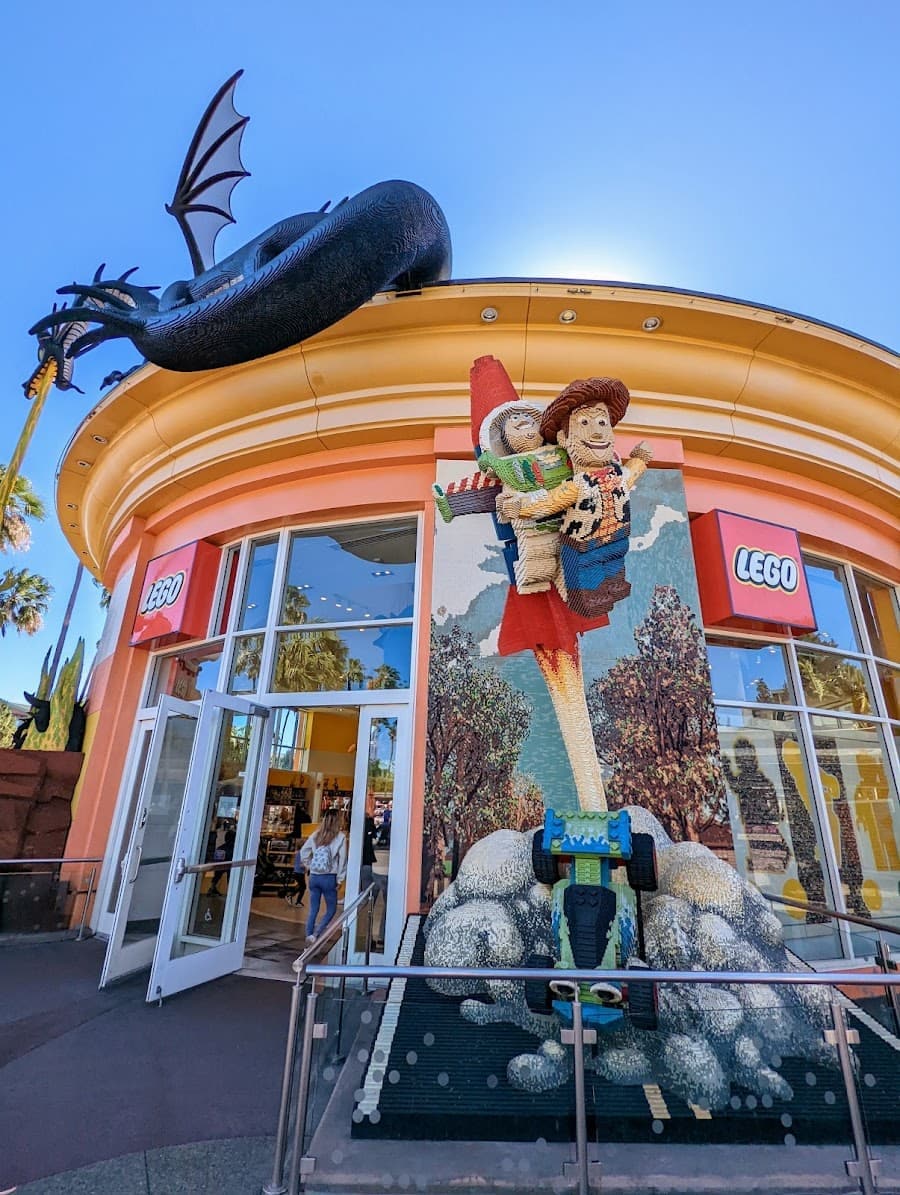
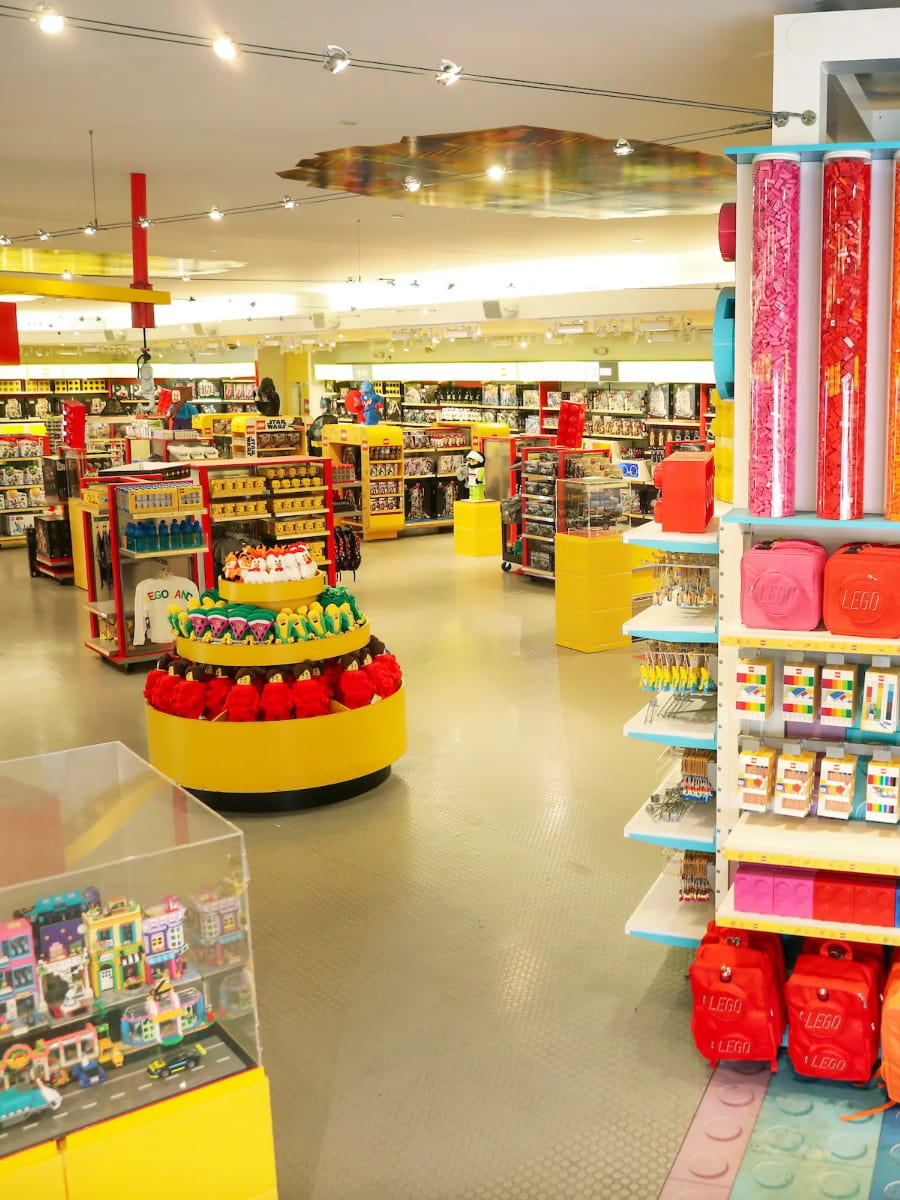
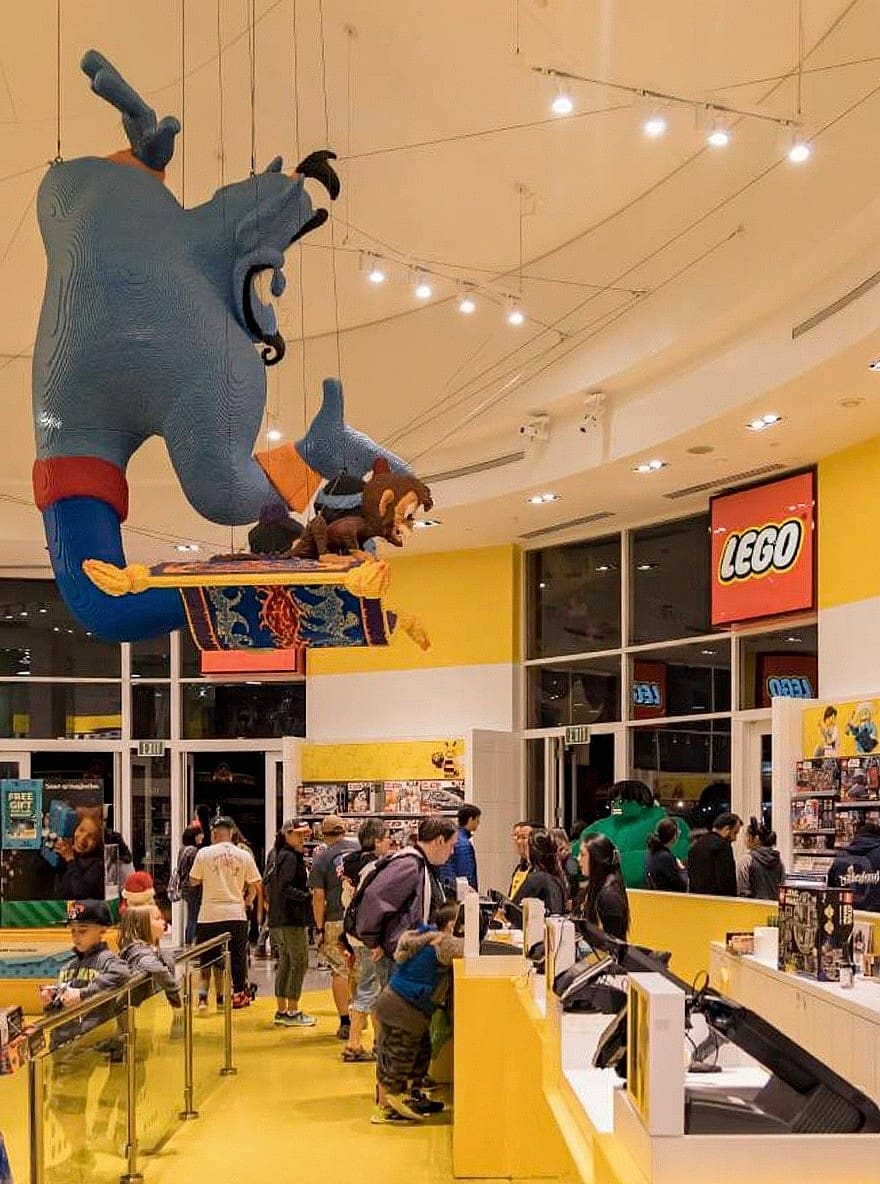
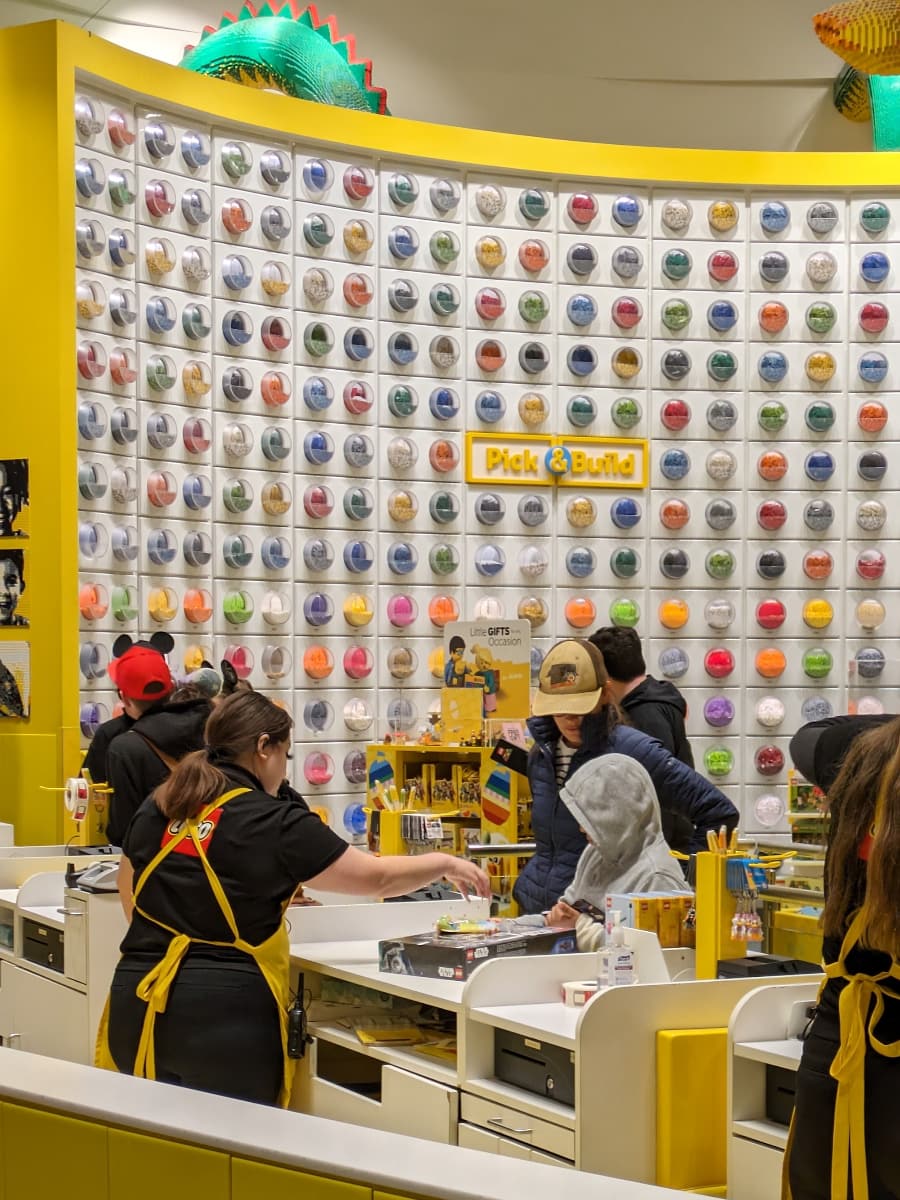
Entertainment and Activities. There’s always something happening here. I caught a live Motown band at the main outdoor stage, and later watched a street performer juggle glowing pins for a crowd of kids. Splitsville Luxury Lanes is my go-to for bowling with friends—there are 20 lanes, plus sushi, burgers, and big-screen TVs for game day. If you want a quieter evening, Jazz Kitchen Coastal Grill & Patio has live jazz and Cajun food, or you can just relax on the lawn and listen to local musicians. During the holidays, the promenade transforms with nightly snowfall and festive decorations, and there are often artist showcases and pin trading events throughout the year.
Fresh Look and Evolution. This district is celebrating nearly 25 years and is in the midst of a major transformation. The new west-end entrance features a stunning mid-century modern design, welcoming guests with vibrant colors and bold patterns. I was struck by how the area blends Disney magic with Southern California style—there are new gathering spaces, outdoor patios, and a focus on community engagement. Local businesses and world-class dining have been added, making this promenade a true destination for both locals and visitors. I learned that the district is also a hub for charity, with businesses like Din Tai Fung donating to causes such as the CHOC Walk for Children’s Hospital.
What to Do at Downtown Disney District:
- Try dumplings at Din Tai Fung or tacos at Paseo
- Shop for Disney merch, LEGO sets, and Star Wars collectibles
- Bowl at Splitsville or catch live music on the outdoor stage
- Sip craft beer at Ballast Point’s rooftop patio
- Create custom jewelry at Pandora or browse art at WonderGround Gallery
- Enjoy seasonal decorations, artist showcases, and pin trading
6. Anaheim Packing District
A Historic Food Hall with Local Flavor. This vibrant food hall and cultural hub is right in the heart of Anaheim. I was instantly charmed by the restored citrus packing house from 1919, with its bright white exterior, exposed beams, and high ceilings. The main hall is filled with dozens of food stalls, each offering something unique—think artisanal grilled cheese at Black Sheep GCB, Cajun shrimp boil and gravity noodles at 206 BCE, and Southern comfort food at Georgia’s Soul Food. The variety is impressive, from vegan pizzas at Healthy Junk to fresh fish and chips at Chippy’s, and you can easily sample bites from several vendors in one visit.
International Eats and Sweet Treats. I love how you can travel the world with your taste buds here. I tried Syrian shawarma at Mangal Mediterranean, Thai specialties at White Elephant, and street-style Indian food at ADYA. For dessert, the choices are endless—crepes at The Crepe Coop, customizable popsicles at Pop Bar, and colorful macarons at Le Parfait Paris. Mini Monster’s boba teas come in cute mason jars, perfect for sipping as you explore. Even the drinks are creative, with craft cocktails at Hammer Bar and a hidden speakeasy, The Blind Rabbit, tucked behind a bookshelf for those in the know.
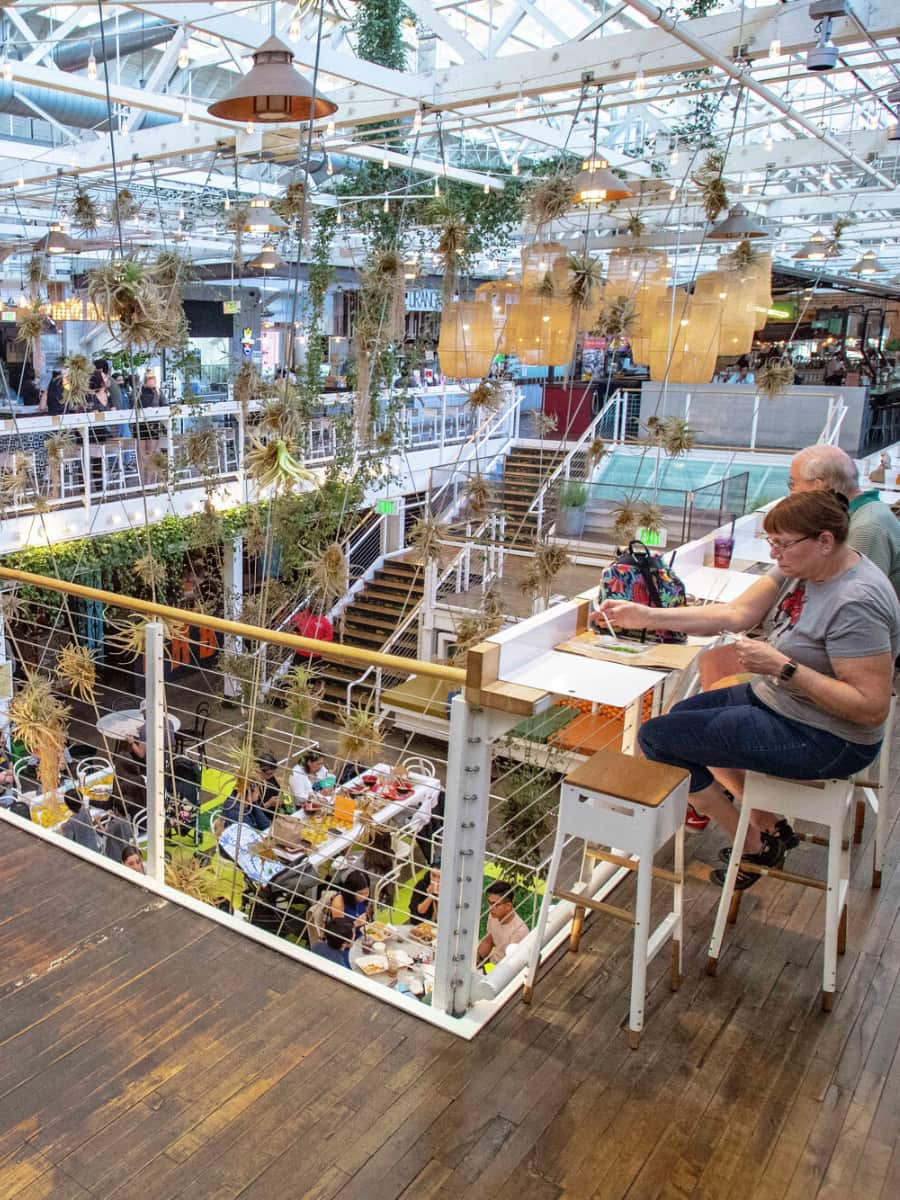
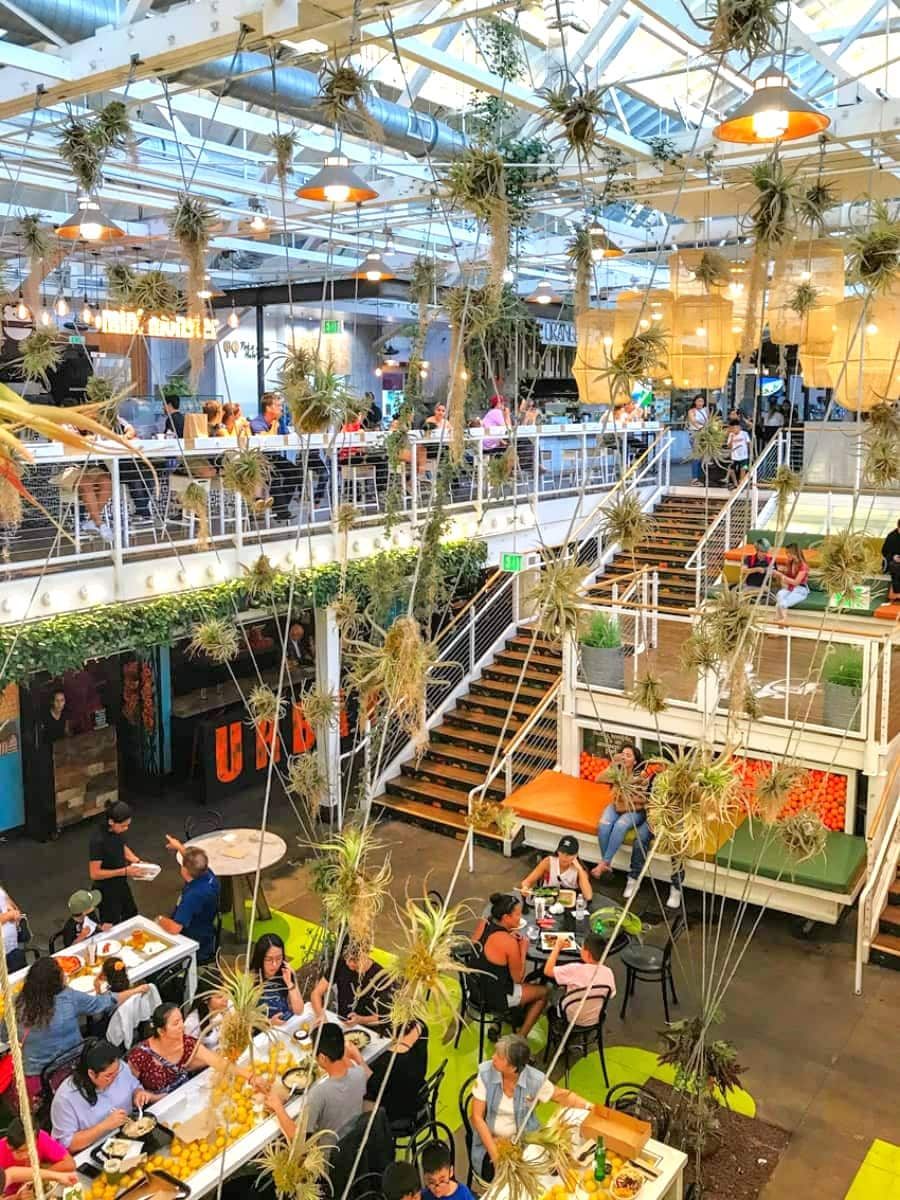
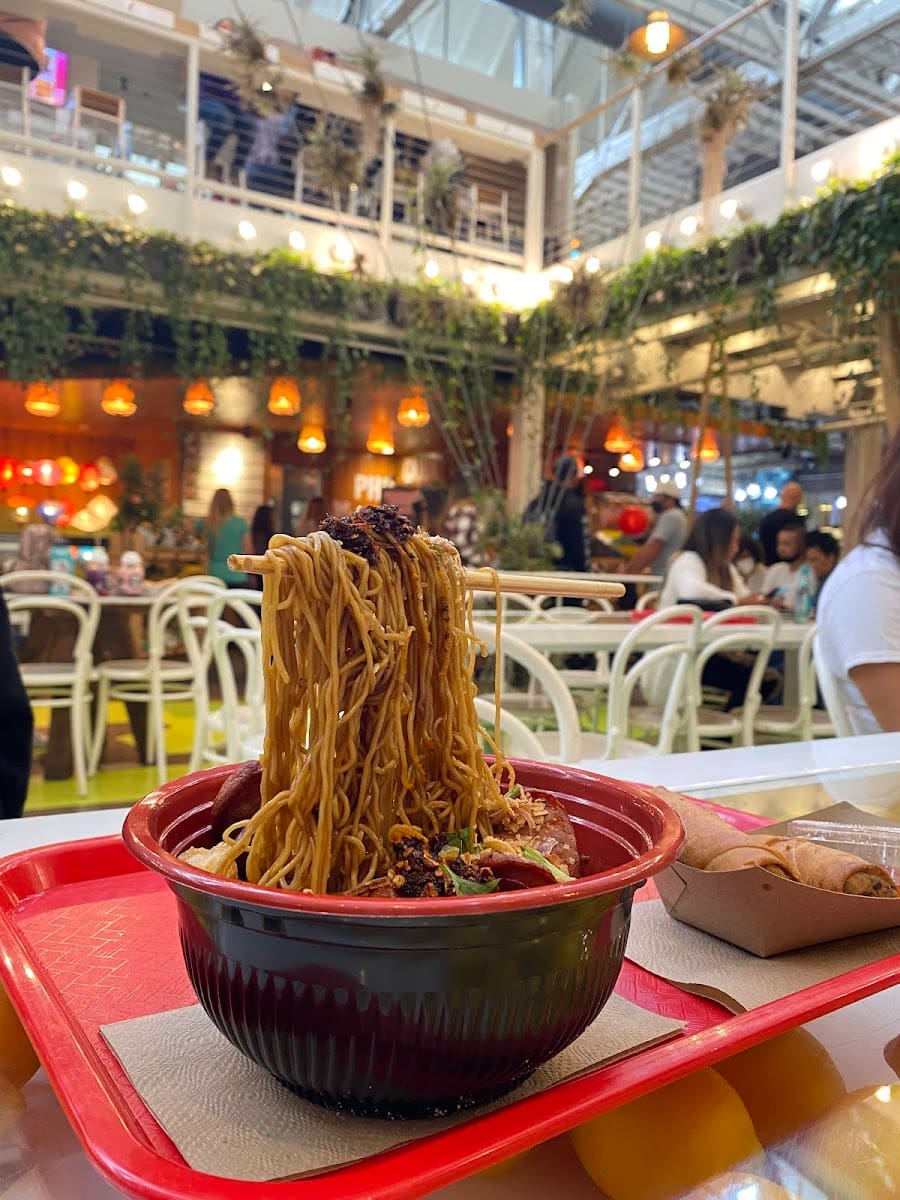
Beyond Food: Shopping, Parks, and Photo Ops. There’s more to this district than just eating. I browsed pop-up shops for handmade jewelry and candles, and strolled through Farmers Park across the street—a green space where you can catch live music or weekend markets. The MAKE Building, once a marmalade factory, now houses Unsung Brewing Co. and Pali Wine Company, perfect for a local tasting. The Packard Building, a former car showroom, is now home to Monkish Brewing and En Familia Modern Mexican Kitchen. Everywhere you look, there are Instagram-worthy backdrops, from colorful murals to a swing bench hanging in the atrium.
Live Music, Community Events, and Outdoor Spaces. One of my favorite surprises was the Mezzanine Stage, where live music fills the air every weekend. I caught a local jazz band while enjoying my dinner—there’s something magical about eating great food with live tunes in the background. The district isn’t just indoors: Farmers Park, a two-acre green space next door, is perfect for relaxing, playing ping-pong, or catching an outdoor movie. On weekends, the Makers Hive Market pops up here, with local artisans selling everything from jewelry to candles and even hosting kids’ activities.
What to Do at Anaheim Packing District:
- Sample global flavors from dozens of food stalls and bars
- Visit the Blind Rabbit speakeasy or BXCR Wine Bar in a vintage railroad car
- Stroll through Farmers Park and browse pop-up shops
- Snap photos with murals, vintage decor, and the iconic swing bench
- Enjoy craft beer at Unsung Brewing or Monkish Brewing
- Try desserts from The Crepe Coop, Pop Bar, or Le Parfait Paris
7. Hayler Park
Coastal Views and Walking Paths. Heisler Park is a stunning coastal oasis perched on a bluff above the Pacific, stretching for over a mile along Cliff Drive in Laguna Beach. I love wandering the paved walking paths that wind through lush gardens, past vibrant flower beds, and under swaying palm trees. Every few steps, you’ll find benches and scenic overlooks with jaw-dropping views of the ocean and Catalina Island on clear days. It’s a favorite spot for photographers, couples, and anyone who just wants to pause and soak in the natural beauty.
Picnics, Barbecues, and Family Fun. This park is made for gatherings and relaxation. There are plenty of picnic tables, barbecue grills, and big grassy lawns—perfect for spreading out a blanket or tossing a frisbee. I’ve spent lazy afternoons here, watching families grill, kids run between the gardens and the sand, and friends enjoying a meal with an ocean breeze. The gazebo is a popular spot for photos and quiet moments, and there’s a playground near the downtown entrance for younger kids.
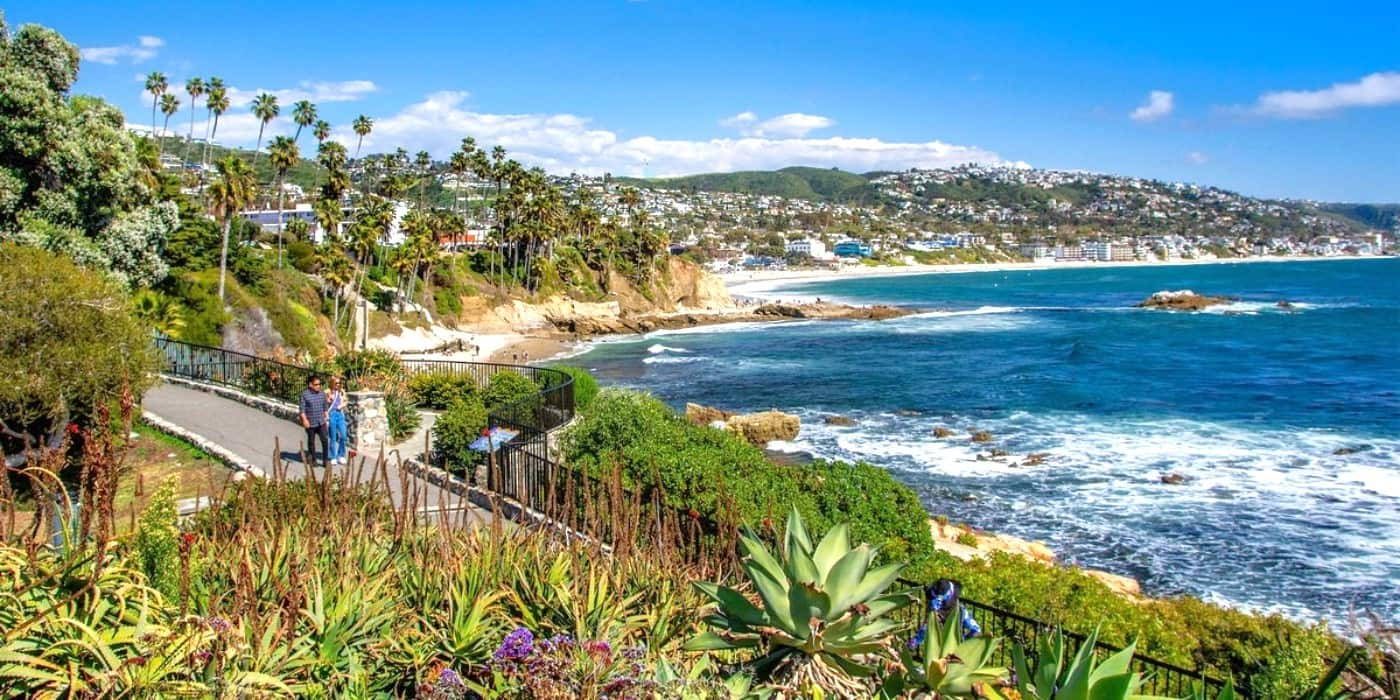
Beach Access and Marine Life. Multiple staircases lead down from the bluffs to sandy beaches below, including Diver’s Cove and Picnic Beach. At low tide, you can explore rocky pools and spot sea stars, anemones, and hermit crabs—just remember not to disturb the wildlife, as this is a protected area. Swimmers, snorkelers, and even beginner boarders enjoy these calm coves, and you might see dolphins or sea lions offshore. Showers are available at the bottom of the stairs for rinsing off after a swim.
A Park Saved by Community Spirit. Heisler Park’s story is rooted in early 20th-century ambition and local activism. The land was first set aside in 1906 as part of the Laguna Cliffs subdivision, a project by Howard G. Heisler and L.C. McKnight. Originally, it was meant to be developed, but in 1929, Heisler tried to change his mind and build on the coastal bluff. Local entrepreneur Elmer Jahraus, seeing the value of public green space, took legal action and won—ensuring the land would remain a park for everyone to enjoy. Thanks to this victory, today’s visitors can stroll along meandering paths, relax in gazebos, and take in panoramic ocean views that might have been lost to private development.
What to Do at Heisler Park:
- Walk the scenic bluff-top paths and enjoy ocean views
- Picnic or barbecue with friends and family
- Explore tide pools and swim at Diver’s Cove or Picnic Beach
- Visit the gazebo and public art sculptures
- Snap sunset photos or have a photoshoot at the gazebo
8. San Clemente Pier
Classic Coastal Walks and Ocean Views. The San Clemente boardwalk is a true Southern California icon, stretching nearly 1,300 feet into the Pacific. I love starting my day with a stroll along the weathered wooden planks, feeling the salty breeze and watching locals cast fishing lines or snap photos of the rolling waves. The boardwalk is open every day from 4 a.m. to 10 p.m., making it perfect for sunrise walks or sunset selfies. The views are spectacular—on a clear day, you can see Catalina Island on the horizon, and the sunsets here are some of the best I’ve ever witnessed.
Dining, Sweet Treats, and Local Flavor. There’s no shortage of great food nearby. I grabbed lunch at Fisherman’s Restaurant, right on the boardwalk, where fresh seafood and ocean views go hand in hand. For dinner, Pierside Kitchen + Bar offers elegant cuisine and live music on weekends, just steps from the sand. If you’re craving something sweet, South Swell ice cream shop is a local favorite—try their dipped cones or funky floats. For a quick pick-me-up, Bear Coast Coffee is always buzzing, especially on weekend mornings.
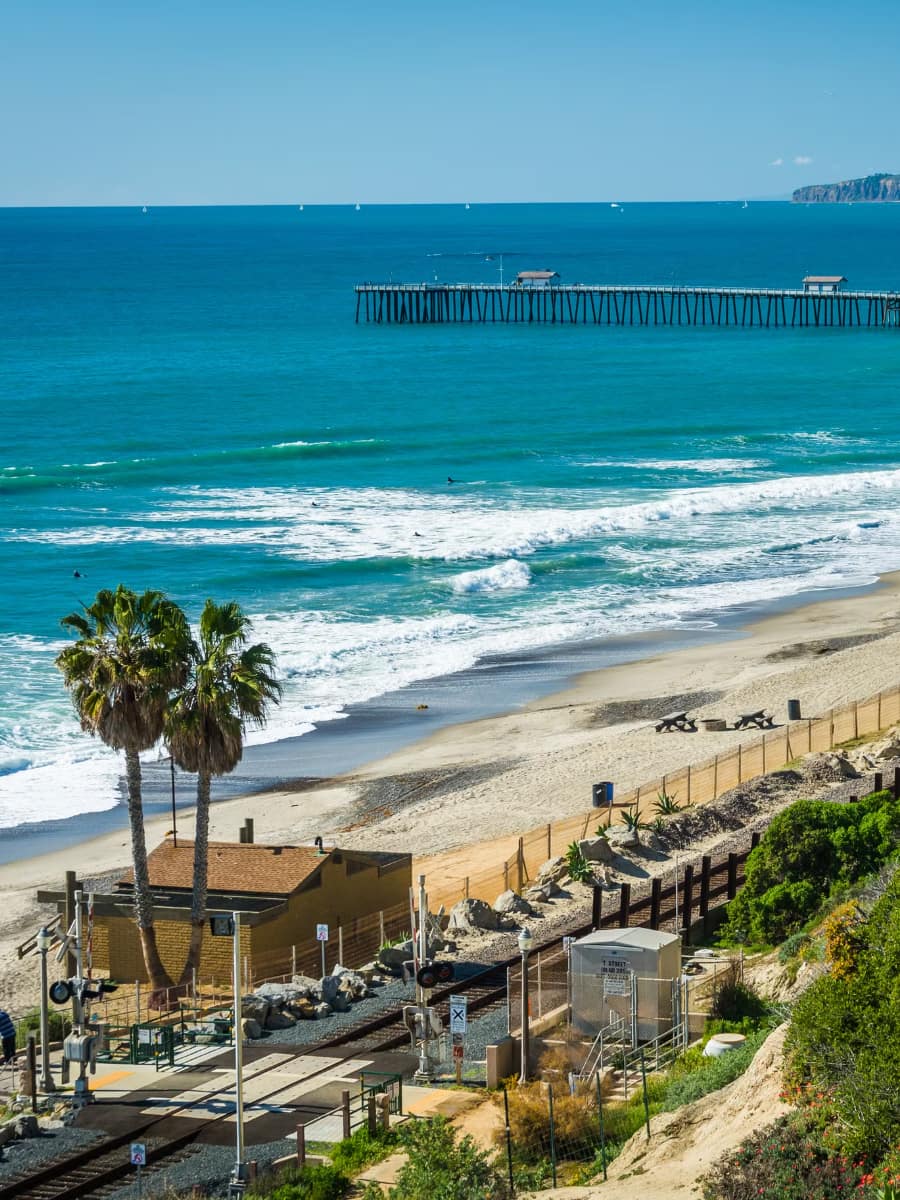
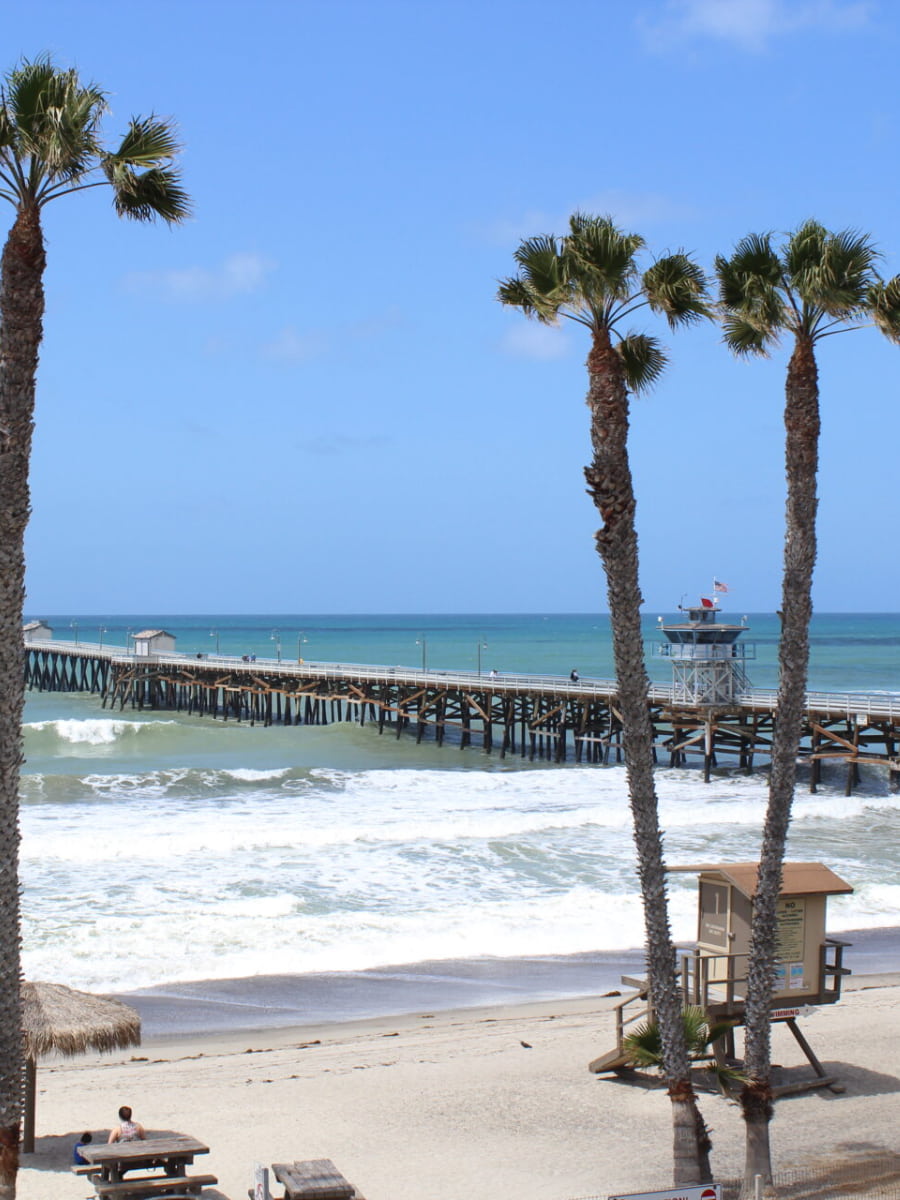
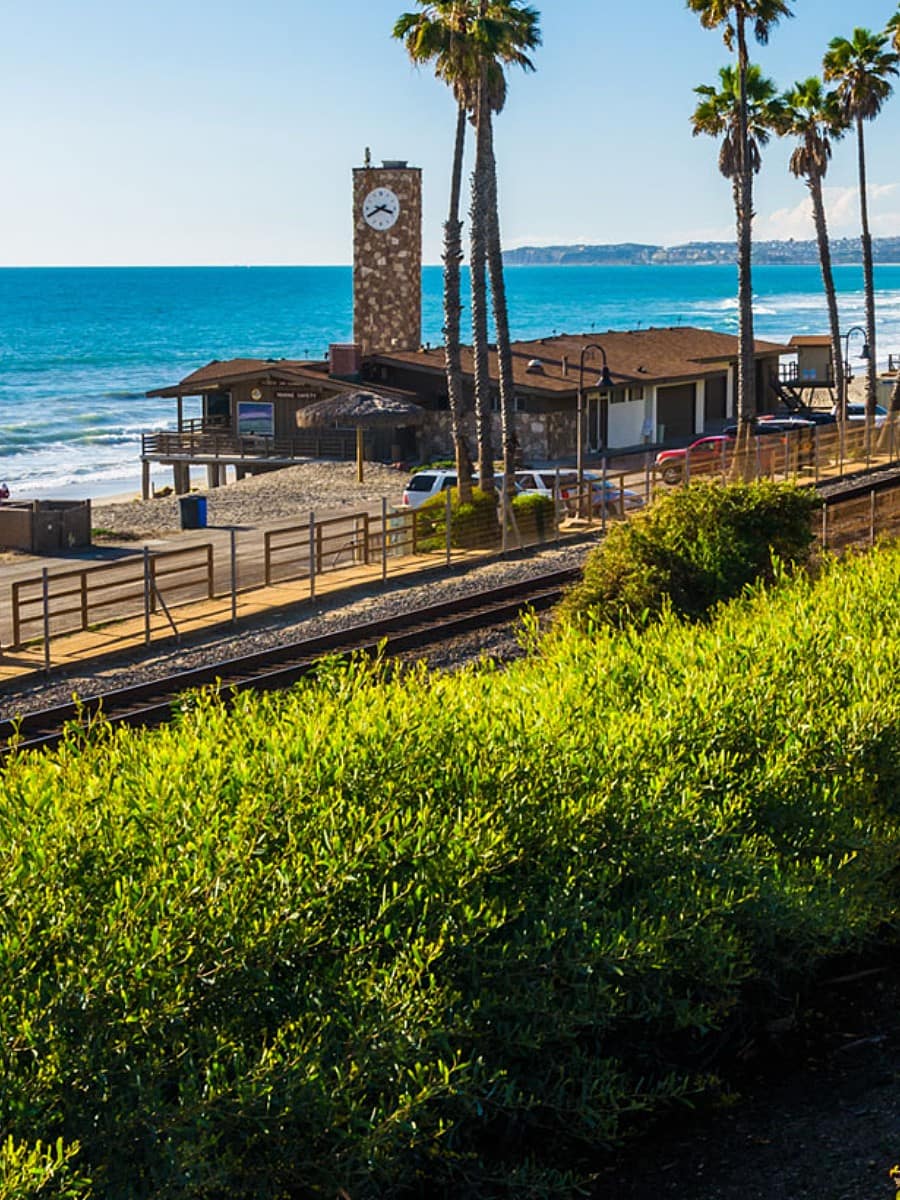
Activities for Everyone. This spot is more than just a place to walk. You can fish without a license, swim, or rent bikes and cruise the coastal trail that runs alongside the sand. The adjacent beach is great for sunbathing, swimming, and building sandcastles, while nearby shops and parks add to the fun. I’ve seen families picnicking on the sand, friends playing beach volleyball, and kids marveling at sea lions or dolphins just offshore. The area is wheelchair accessible, and the Metrolink train stops just a short walk away, making it easy to visit without a car.
A Spanish Village by the Sea. This coastal boardwalk isn’t just a scenic spot—it’s the heart of a city built on a dream. Ole Hanson, a former Seattle mayor, founded the city in 1925 as the “Spanish Village by the Sea,” designing it with red-tiled roofs, white stucco walls, and coastal views that still define the city’s charm today. The boardwalk, stretching nearly 1,300 feet into the Pacific Ocean, was first built in 1928 and has been rebuilt several times after storms, always with the community’s resilience in mind. Walking here, I’m surrounded by Spanish-style architecture, palm trees, and the gentle sound of waves—a living postcard of Southern California’s golden era.
What to Do at San Clemente Boardwalk:
- Stroll the boardwalk for ocean views and sunset photos
- Dine at Fisherman’s Restaurant or Pierside Kitchen + Bar
- Grab coffee at Bear Coast or ice cream at South Swell
- Fish, swim, or rent bikes for the coastal trail
- Watch for dolphins, sea lions, and surfers
- Explore nearby shops, parks, and the Outlets at San Clemente
Seasonal Events in Orange County
Spring: Mission San Juan Capistrano Swallows Day Parade
A Spring Tradition Returns. Every March, the Swallows Day Parade and Mercado Street Faire bring the heart of San Juan Capistrano to life. I joined the crowds early—street closures start by 10 a.m.—and felt the excitement as families, locals, and visitors filled the historic downtown. This celebration is all about the return of the cliff swallows from Argentina, a journey of over 6,000 miles that ends with their nesting in the city’s old mission. The parade and fair aren’t just about birds—they’re a joyful mix of Old West heritage, community pride, and the promise of spring.
Parade Highlights and Community Spirit. The Swallows Day Parade is one of the largest non-motorized parades in the United States. I watched as horse-drawn wagons, equestrian teams, marching bands, and even the famous Budweiser Clydesdales made their way down El Camino Real and Ortega Highway. The event is a true showcase of local culture: you’ll see cowboys, mariachi bands, dancers, and children dressed as swallows. The parade starts at 11 a.m., but the fun lasts all day, with the Mercado Street Faire running from 9 a.m. to 5 p.m. and featuring about 100 vendors selling everything from cowboy hats to tacos and sweet treats.
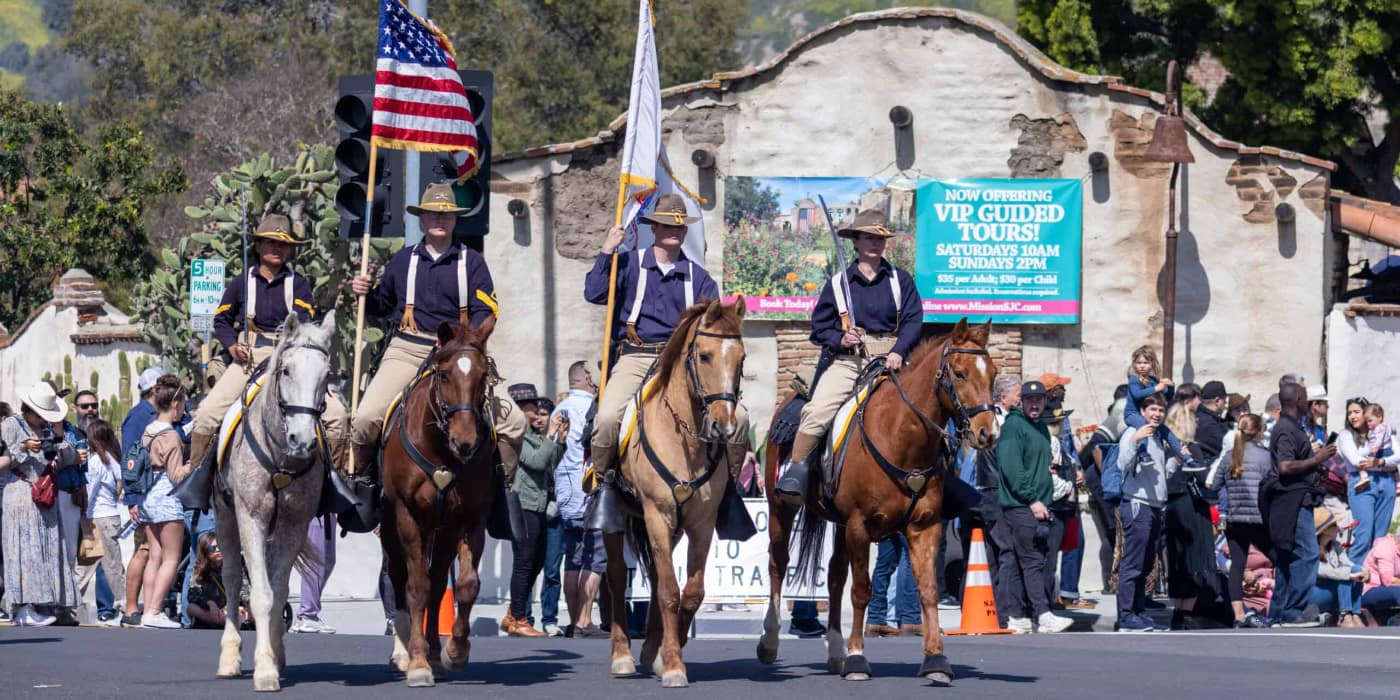
Family Fun and Local Flavor.
The Mercado isn’t just about shopping. I found live country music, a DJ, and a kids’ play zone with games and inflatables in Historic Town Center Park. The whole city feels like a festival, and you’ll see people in Western wear, kids with painted faces, and plenty of families picnicking on the grass. The parade’s roots go back to a school carnival in the 1930s, and that community spirit is still strong today—local organizations, schools, and even therapy horses from The Shea Center join in the fun.
What Makes It Stand Out. Unlike most parades, the Swallows Day Parade is strictly non-motorized—expect to see horse-drawn carriages, wagons, walking groups, marching bands, and equestrian teams, but no cars or trucks. This tradition was only broken briefly due to an equine virus, but it returned to its roots the following year. The parade’s route winds through downtown, starting at El Camino Real and Ortega Highway, and is filled with historical flair, Western costumes, mariachi bands, and adorable kids dressed as swallows. The event is organized by the San Juan Capistrano Fiesta Association and is a true showcase of local and cultural diversity.
What to Do at the Swallows Day Parade and Mercado:
- Watch the non-motorized parade with horses, bands, and local groups
- Visit the Mercado Street Faire for food, crafts, and live music
- Let kids play in the family zone with games and inflatables
- Explore the historic downtown and nearby mission grounds
- Use the free shuttle or Metrolink for easy access
Summer: Orange County Fair
Summer Fun for Everyone. The Orange County Fair in Costa Mesa is the highlight of summer for locals and visitors alike. Running from mid-July to mid-August at the fairgrounds, this festival draws over a million people every year with its mix of food, music, rides, and community spirit. I always get a thrill walking through the gates, greeted by the smell of funnel cakes and the sound of live music drifting from the Pacific Amphitheatre. The fair’s theme is “Find Your Happy!”—and honestly, it’s hard not to smile with so much to see and do.
Food, Rides, and Entertainment. The food is legendary—think giant turkey legs, deep-fried Oreos, and $5 sample-sized treats offered daily until 4 p.m. There are rows of carnival rides for all ages, heart-pounding games, and barns full of farm animals. I love checking out the blue ribbon competitions: pies, quilts, giant pumpkins, and even gingerbread houses. The fair also hosts free concerts and big-name shows at the Pacific Amphitheatre and The Hangar—your concert ticket includes fair admission, so you can catch a show and then wander the grounds.
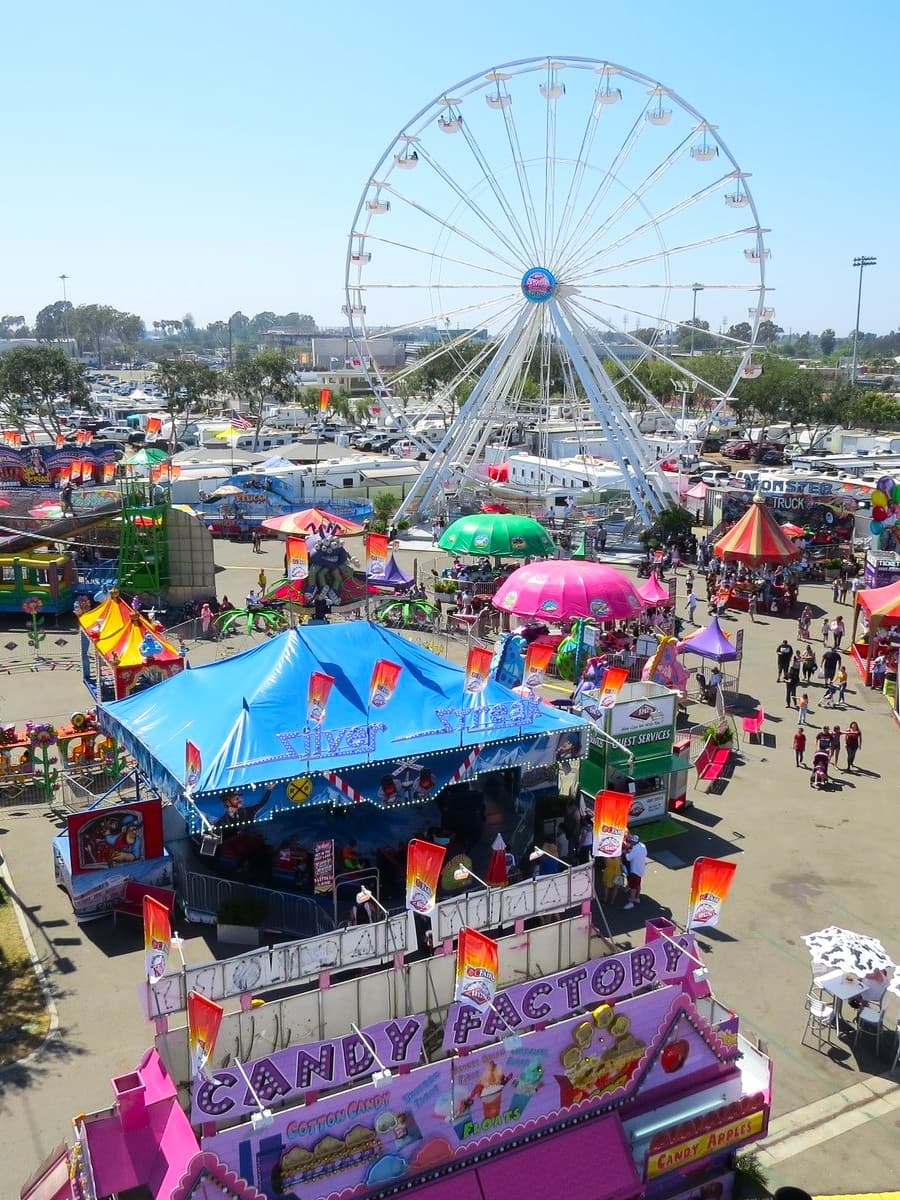
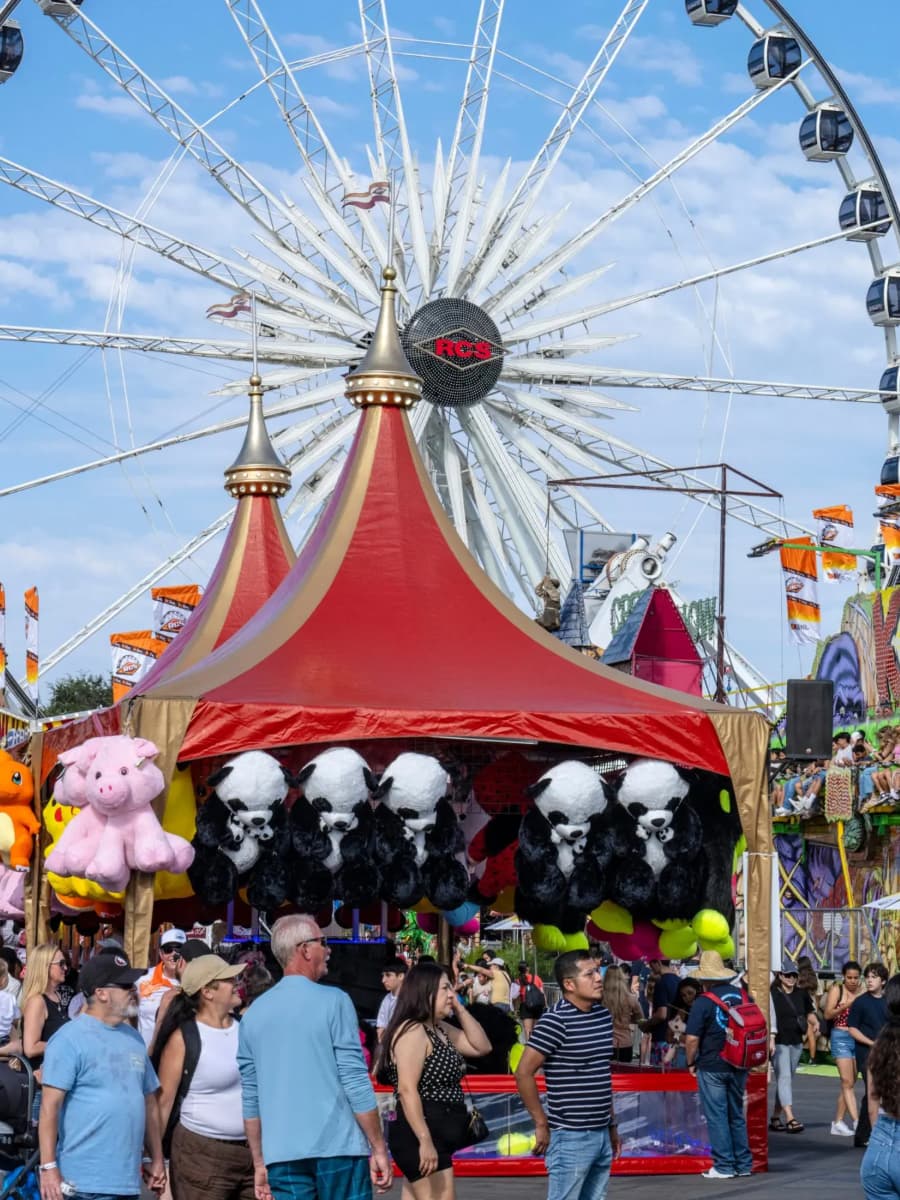
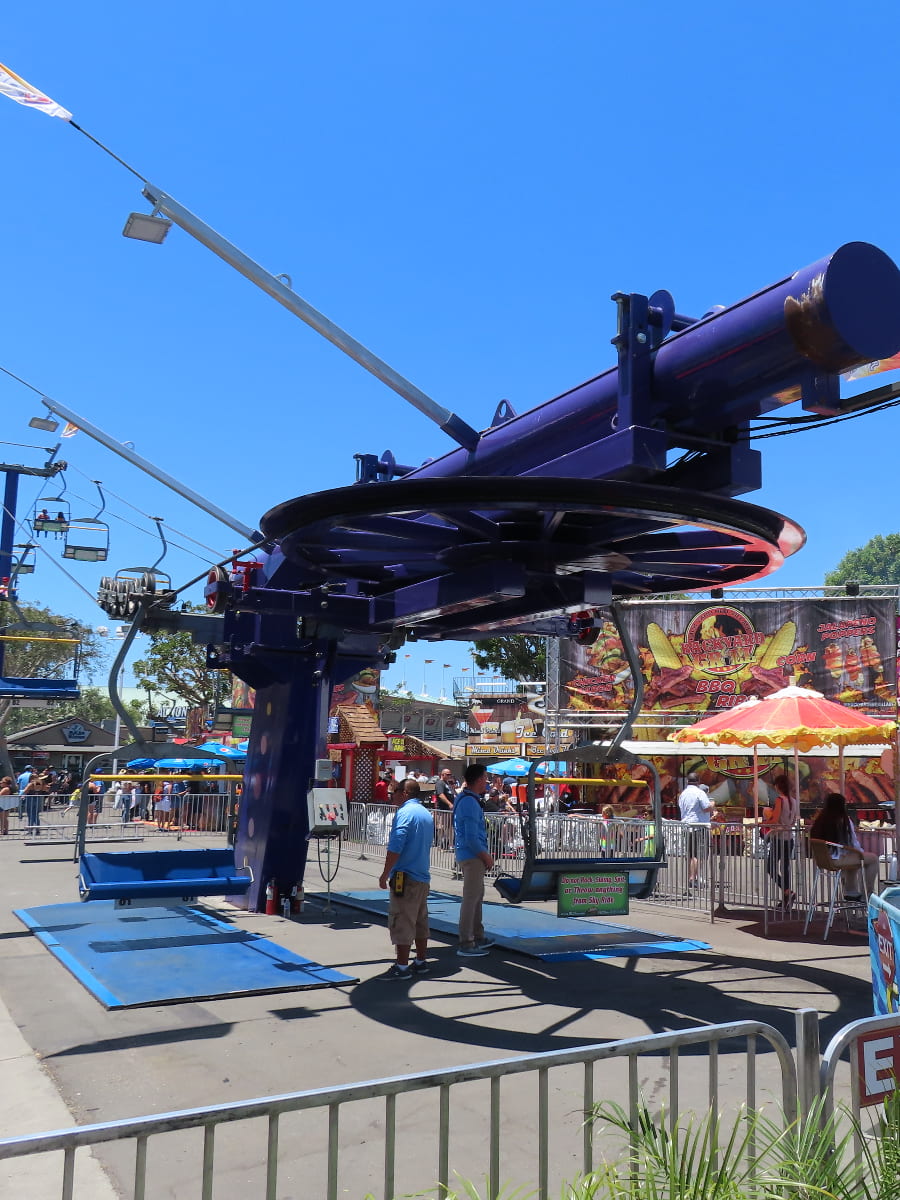
A Century-Old Summer Tradition. The Orange County Fair in Costa Mesa is more than just a festival—it’s a living piece of Southern California history. First held in 1880 as an agricultural showcase, the fair moved to its current home in the 1930s and has grown into one of the largest and most beloved county fairs in California. Its roots are still visible today: you’ll find barns full of prize-winning livestock, 4-H competitions, and hands-on farm activities like milking demonstrations and chick petting at Centennial Farm. The fair’s “Find Your Happy” theme for the upcoming season promises a joyful, community-focused experience for all ages.
A Rich Agricultural Heritage. The region’s annual fair isn’t just about wild rides and deep-fried treats—it actually started as an agricultural showcase back in the 1880s, making it one of California’s oldest celebrations of its kind. Those first gatherings were intimate affairs where local farmers proudly displayed their livestock, homegrown produce, and handmade crafts. As the community expanded, so did the fair itself, eventually settling into its current location in the 1940s and blossoming into a month-long festival of local culture, togetherness, and entertainment. Even today, agriculture remains at the heart of the experience: the Centennial Farm is a working three-acre space where you can meet animals, pet friendly creatures, and discover the area’s deep farming roots.
| Ticket Type | Price (USD/EUR) | Notes |
|---|---|---|
| Adult (Wed/Thu) | $13 (€12) | |
| Adult (Fri–Sun) | $15 (€14) | |
| Senior (60+) | $9 (€8) | |
| Youth (6–12) | $9 (€8) | |
| Kids 5 & under | Free | |
| Passport (all days) | $60 (€56) | Unlimited entry, exclusive deals |
| Parking | $12–$20 (€11–€18) | On-site, varies by lot |
Fall: Pumpkin Patches & Halloween Haunts
Pumpkin Patches for All Ages. Fall in Orange County means pumpkin patches pop up everywhere, and I love how each one offers something unique. My favorite is the Irvine Park Railroad Pumpkin Patch in Orange, open daily from mid-September to Halloween. Admission is free, and you only pay for activities—like the hay maze, haunted house, carnival games, and train rides. Activity tickets are $8 each, or you can buy a book of 15 for $100 (saving $20). Parking ranges from $3 on weekdays to $7 on holidays. Tanaka Farms in Irvine is another must-visit, especially if you want to pick your pumpkin straight off the vine. Admission is $20–$22 (kids under 2 free), with parking $10 on weekends. They offer wagon rides, a petting zoo, corn maze, and even a pumpkin cannon!
Halloween Haunts and Spooky Fun. If you’re after chills and thrills, Orange County has you covered with haunted houses and spooky mazes. The 17th Door in Fullerton is famous for its extreme scares, while Knott’s Scary Farm in Buena Park is the region’s largest Halloween event, featuring haunted mazes, scare zones, and live shows. For something more family-friendly, the Irvine Park Railroad Pumpkin Patch has a gentle haunted house and not-too-scary games, and Seasonal Adventures at the fairgrounds offers bounce houses, obstacle courses, and a petting zoo alongside their pumpkin patch.
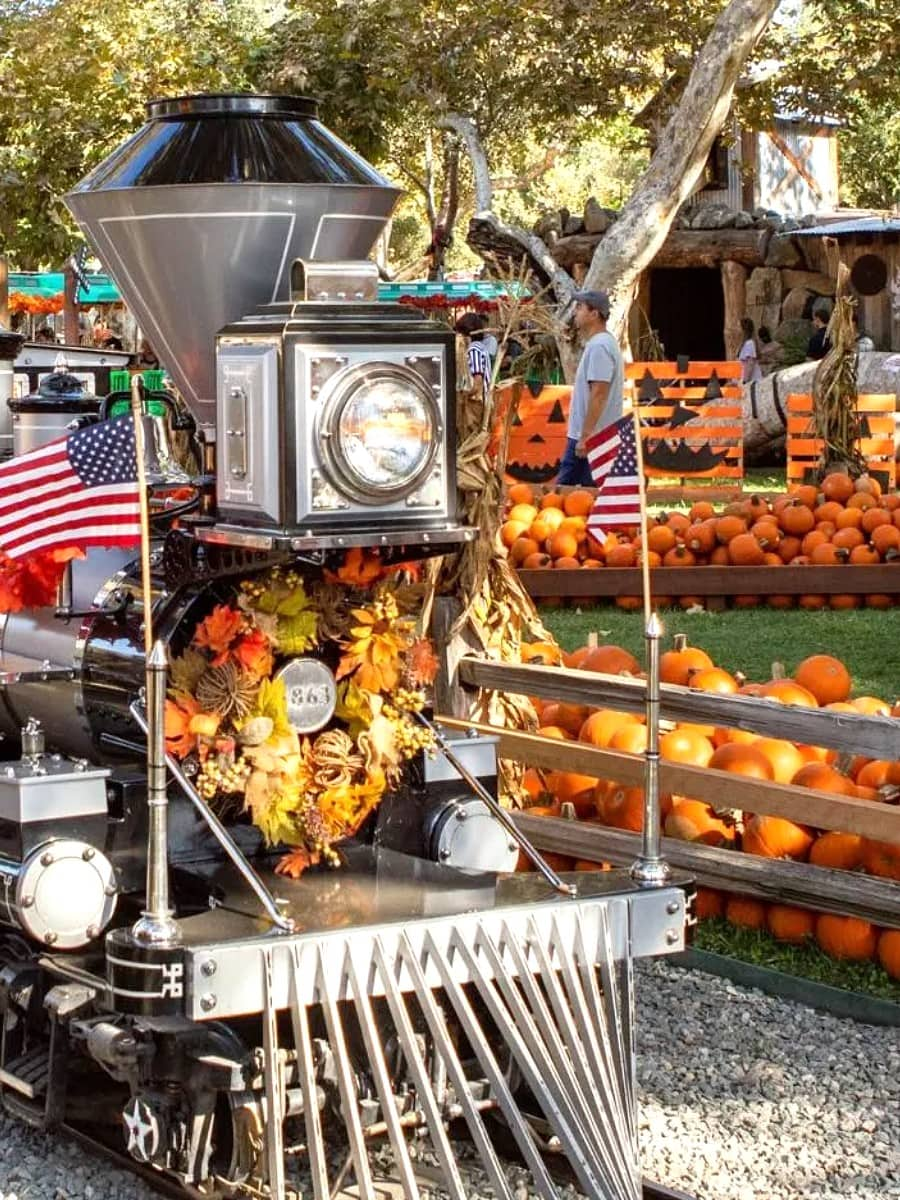
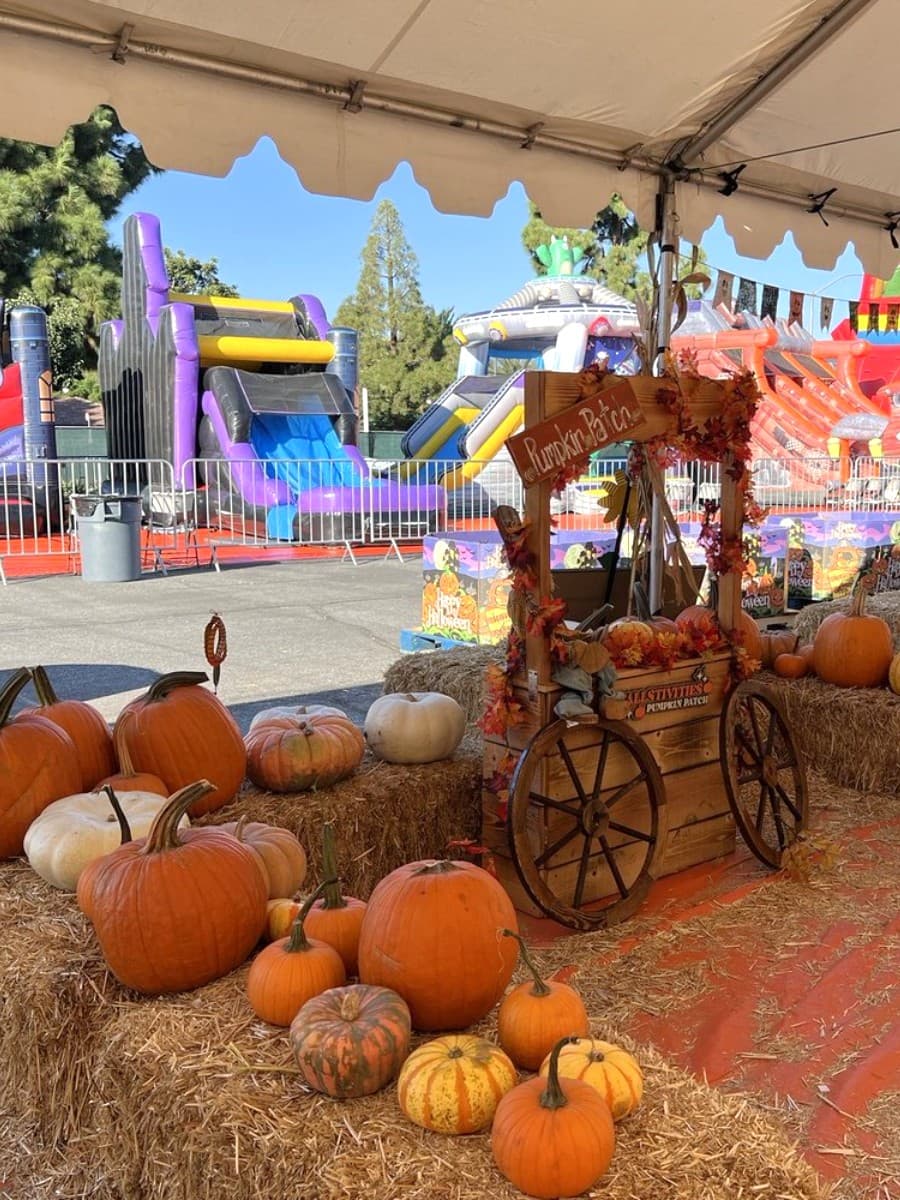
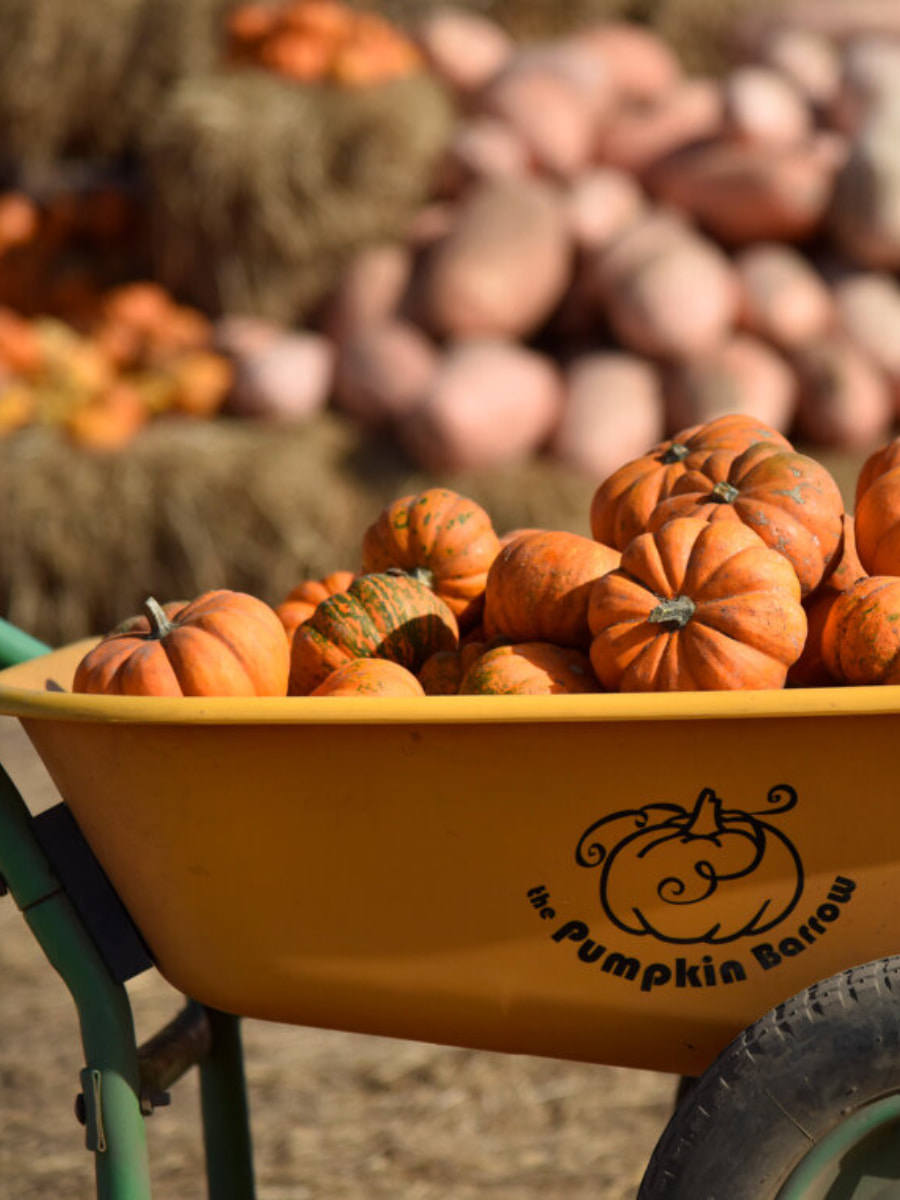
Hidden Gems and Local Favorites. The region’s pumpkin patch scene is full of variety, and each location has its own style. Tanaka Farms in Irvine is a true autumn classic, with wagon rides, a corn maze, and the chance to pick your pumpkin right from the vine. I loved seeing families hop on the tractor-pulled wagons and kids racing through the corn maze. Tanaka also has a barnyard educational area, veggie picking, and even a pumpkin cannon for extra excitement. Admission is $10 (kids under 2 free), and parking is $10 per vehicle. Activity tickets for things like the corn maze or barnyard are $6 each, or you can get a bundle for a discount.
Family Fun at Irvine Park Railroad. The Irvine Park Railroad Pumpkin Patch in Orange is another must-visit. Admission is free, and you pay only for activities—train rides, carnival games, face painting, and hay rides are all on offer. Activity tickets are $8 each, and parking is $5 on weekdays, $10 on weekends. The patch is open daily from mid-September to Halloween, and with its festive decorations and kid-friendly games, it’s easy to spend a whole afternoon here. There’s also a gentle haunted house and plenty of photo ops, making it a favorite for families with younger children.
What to Do at Pumpkin Patches & Halloween Haunts:
- Pick your pumpkin straight from the field at Tanaka Farms
- Visit Seasonal Adventures for bounce houses and petting zoos
- Snap fall family photos among the pumpkins and sunflowers
- Enjoy wagon rides, corn mazes, and pumpkin cannons
- Sample caramel apples, kettle corn, and other fall treats
Winter: Christmas Boat Parade
A Century-Old Holiday Tradition. The Christmas Boat Parade is one of Southern California’s most dazzling winter celebrations, lighting up Newport Harbor for five nights each December. I was amazed to learn this event has roots going back to 1907, when John Scarpa, an Italian gondolier, decorated his boat with lanterns and led a small procession across the bay. Today, it’s a massive spectacle: more than 100 boats—everything from luxury yachts to kayaks—cruise the harbor decked out in thousands of twinkling lights, animated displays, and holiday characters. The parade’s theme changes each year, and this season it’s “Christmas Across the Decades,” so expect everything from classic carols to modern pop and creative nods to holidays past.
Where and How to Watch. The parade runs for five consecutive nights, usually from 6:30 to 9:30 pm, following a 14-mile route around Newport Harbor. You can watch for free from public spots like Marina Park, Balboa Fun Zone, or along the harbor’s edge, but be ready for crowds—over a million people come out each year. For a more exclusive experience, I recommend booking a harbor cruise, which puts you right in the middle of the action with close-up views of the decorated boats and illuminated waterfront homes. Cruises range from $36–$62 (€33–€57) per person, and some even include snacks or drinks. Restaurants like Harborside and Rusty Pelican offer “dine and watch” packages, but you’ll need to reserve early.
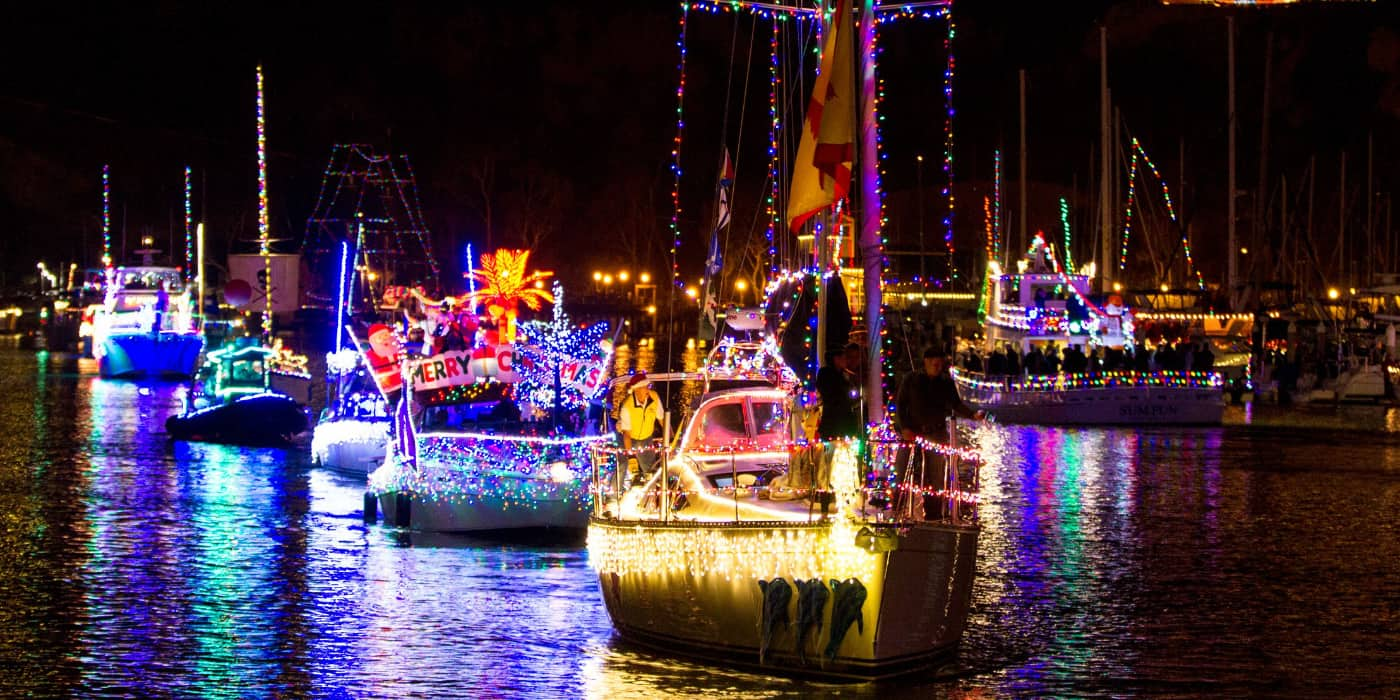
Festive Details and Local Flavor. What sets this event apart is the creativity—boats compete for prizes in categories like Best Lights, Best Animation, and Most Original. Expect to see everything from Santa and reindeer to synchronized music, dancers, and even live performers on deck. The “Ring of Lights” contest means bayfront homes, docks, and businesses are also covered in glowing decorations, creating a magical atmosphere all around the harbor. The parade kicks off and ends with fireworks, and there are nearly 50 public viewing locations along the route. The whole city gets in the spirit: you’ll find pop-up cocoa stands, carolers, and live music at various spots.
A Festival with Deep Roots. The Christmas Boat Parade is one of the oldest holiday traditions in Southern California, dating back to 1907. It all started when John Scarpa, an Italian gondolier, took visitors across the bay in a gondola decorated with Japanese lanterns. By 1908, the first official lighted boat parade featured nine vessels, and the tradition quickly grew. In the early years, the event was called the Tournament of Lights and included everything from illuminated gondolas to canoes and rowboats. The parade paused during World War I, but was revived in 1919 by Joseph Beek, who also founded the local ferry line. Over the decades, the parade has transformed into a major spectacle, now featuring up to 100 boats and drawing over a million viewers each year.
| Viewing Option | Price (USD/EUR) | Notes |
|---|---|---|
| Public viewing spots | Free | Marina Park, Balboa Fun Zone, etc. |
| Boat parade cruise | $36–$62 (€33–€57) | 75–90 min, book ahead |
| Restaurant packages | $50–$100 (€46–€92) | Pre-fixed menus, advance booking |
| Parking | $10–$25 (€9–€23) | Fills up fast, arrive early |
Day Trips from Orange County
1. Catalina Island
Adventures and Outdoor Fun. Catalina Island is a paradise for adventure lovers and anyone who wants to get outside. I started my visit with a Jeep tour into the island’s wild interior, spotting bison and taking in sweeping views of the coast and canyons. For a thrill, I booked the Zip Line Eco Tour—soaring above the hills on five separate lines while learning about the island’s conservation efforts. Kayaking, paddleboarding, and snorkeling are all easy to arrange from Avalon, and the glass-bottom and submarine boat tours let you see colorful fish and kelp forests without getting wet. If you’re feeling energetic, hike up Mount Avalon or along St. Catherine Way for some of the best views on the island.
Exploring Avalon and Two Harbors. Avalon is the main town and it’s full of charm. I loved strolling the pedestrian-friendly streets, popping into boutiques and art galleries, and grabbing a coffee at Catalina Coffee & Cookie Co. Don’t miss the iconic Catalina Casino—take a short tour to see its beautiful art deco ballroom and learn about island history. For a quieter escape, hop on the Cyclone Boat to Two Harbors, a laid-back spot with hidden coves and hiking trails. Renting a golf cart is a classic way to explore Avalon’s hills and coastline at your own pace.
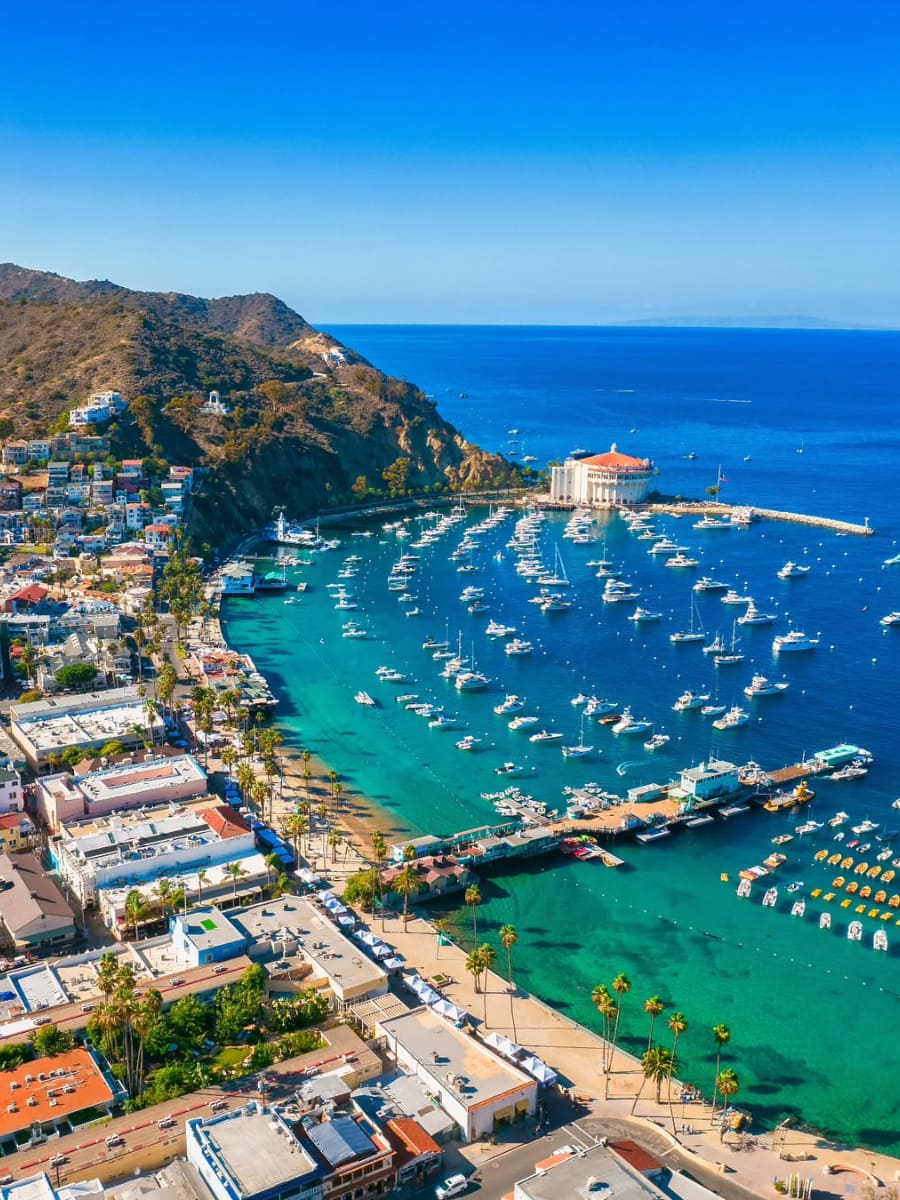
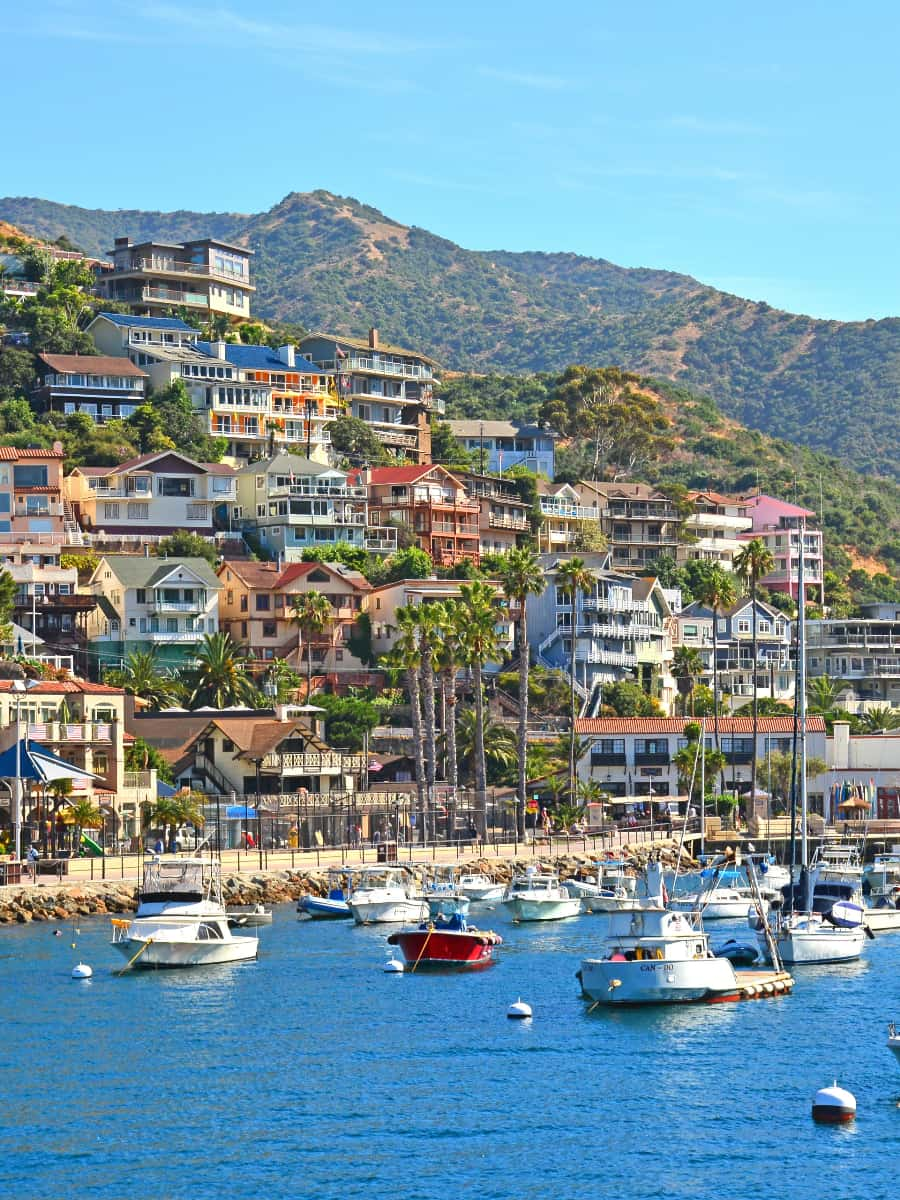
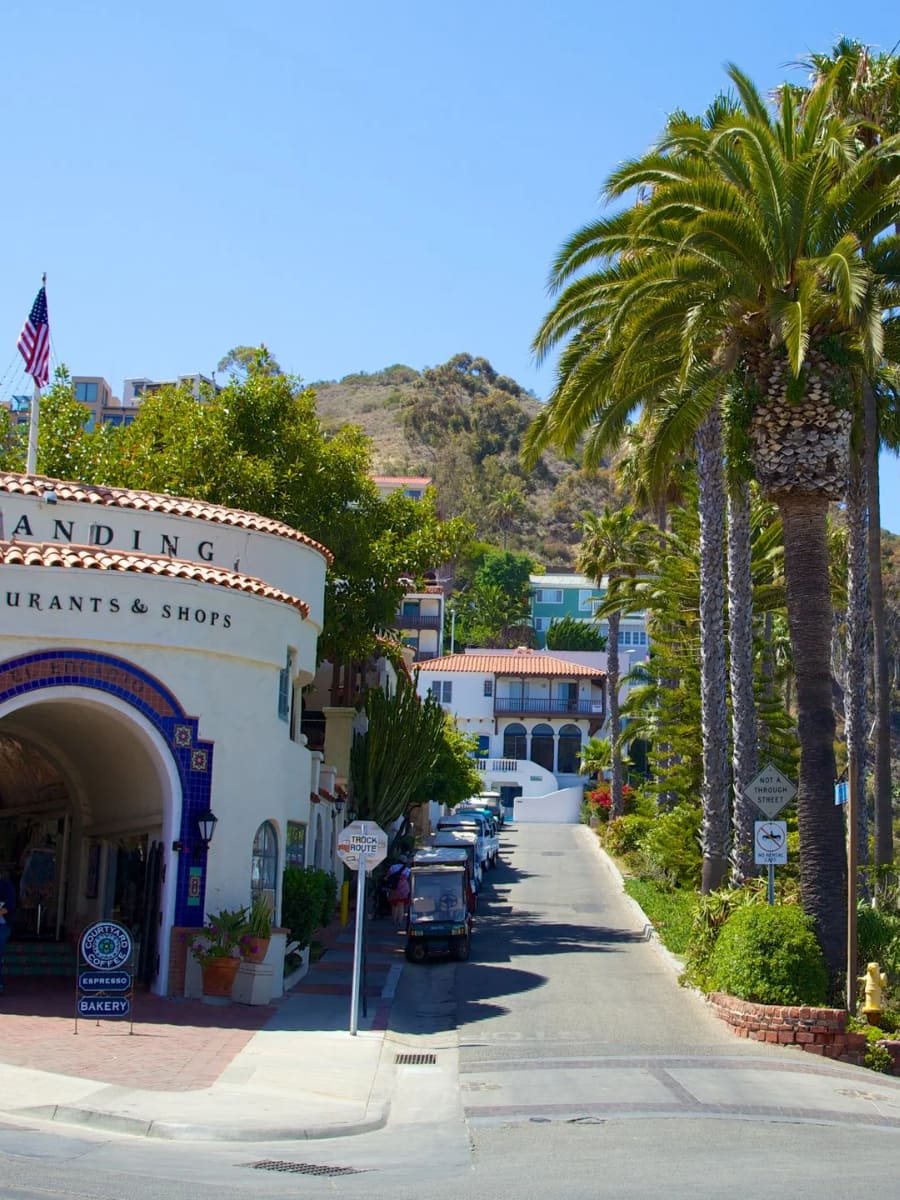
Food, Drinks, and Local Flavor. Catalina’s food scene is a treat for any traveler. I started my day with breakfast at Original Jack’s Country Kitchen, then sampled locally caught seafood at NDMK Fish House and a Bison Burger—a nod to the island’s famous herd. The Buffalo Milk cocktail, a creamy blend of banana, Kahlua, and vodka, is a must-try at Descanso Beach Club or Naughty Fox. For dessert, Lloyd’s of Avalon is legendary for salt water taffy and caramel apples, and Sailor’s Delight Ice Cream Shop serves up homemade waffle cones. Happy hour at Flx Biergarten is perfect for sunset people-watching.
History and Island Culture. Catalina Island has a rich and fascinating past. Long before it became a getaway for Southern Californians, the island was home to the Tongva people, who used it as a ceremonial center and for soapstone mining and trade. European explorers like Juan Rodríguez Cabrillo and Sebastián Vizcaíno arrived in the 1500s and 1600s, with the Spanish eventually naming it after Saint Catherine. In the early 20th century, the island was developed as a tourist destination, and you can still feel that vintage charm in Avalon’s art deco architecture and the famous Catalina Casino. The Catalina Museum for Art & History is a great stop if you want to dig deeper into the island’s story and see artifacts, art, and rotating exhibitions.
What to Do on Catalina Island:
- Jeep or Hummer tour to see bison and wild landscapes
- Zip Line Eco Tour for adrenaline and views
- Glass-bottom or submarine boat tour for marine life
- Stroll Avalon’s boardwalk, shops, and art galleries
- Eat seafood, Bison Burgers, and Buffalo Milk cocktails
⭐ Best Activities
- 2-Hour Inside Adventure Tour on Catalina Island – Explore the rugged interior of Catalina Island on this eco-adventure tour featuring wildlife, scenic vistas, and island history.
2. Los Angeles
Adventures and Action. Los Angeles is a city where you can turn any day into an adventure. I started my trip with a hike in Bronson Canyon, famous for movie scenes and the old Batcave, then took a thrilling helicopter ride over downtown at sunset. For adrenaline junkies, there’s everything from bungee jumping at the Bridge to Nowhere to roller coasters at Six Flags Magic Mountain. If you want to try something unique, book a flying trapeze lesson at Venice Beach or a Porsche driving experience in Carson. For a more relaxed afternoon, rent a bike and cruise The Strand, or hike the coastal cliffs at Rancho Palos Verdes for sunset views.
Arts, Culture, and History. LA is packed with world-class museums and vibrant neighborhoods. I spent a morning at The Broad for modern art, then wandered through Exposition Park to see dinosaur fossils at the Natural History Museum. Don’t miss the Walt Disney Concert Hall for a classical concert or the LA Opera at Dorothy Chandler Pavilion. Museum Row is a must—LACMA’s “Urban Light” is an Instagram favorite, and the Academy Museum of Motion Pictures is a film lover’s dream. For something different, take a guided tour of the Watts Towers or explore Leimert Park’s jazz and art scene. The Getty Center and Getty Villa offer masterpieces and stunning gardens, while the Petersen Automotive Museum is a car enthusiast’s paradise.
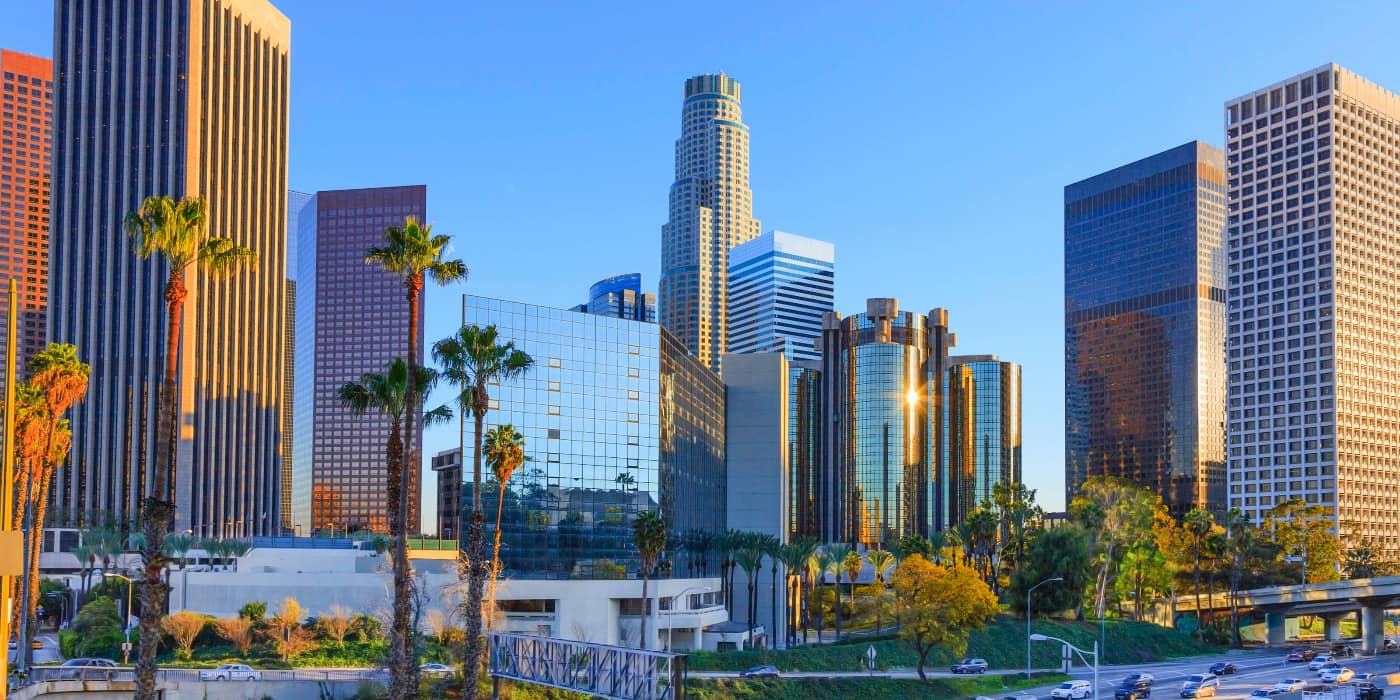
Local Cooking and Food Scene. Los Angeles is a foodie’s playground. I joined a cooking class in Hollywood and learned to make handmade gnocchi, then sampled dim sum in Woodland Hills and Thai street food in Lake Balboa. The city is famous for its food trucks—don’t leave without trying Korean BBQ tacos or a classic LA street dog. For sit-down dining, I booked a table at Bestia for Italian or Bavel for Middle Eastern in the Arts District—both are top-rated and worth the splurge. If you’re on a budget, grab a sandwich from a local deli or enjoy happy hour in West Hollywood’s trendy bars.
Nature, Hiking, and Outdoor Fun There’s no shortage of outdoor adventures in LA. I joined a guided hike up Griffith Park to the Observatory for sweeping skyline views and a lesson in local history. Runyon Canyon is another favorite for its celebrity sightings, movie history, and panoramic vistas—plus you can hike with rescue dogs and help them find new homes. For something different, I kayaked in Marina del Rey, spotting sea lions and exploring hidden corners of the marina. The city’s beaches, from Venice to Malibu, are perfect for biking, skating, or just people-watching.
What to Do in Los Angeles:
- Hike Bronson Canyon or Griffith Park for city views and movie history
- Visit The Broad, LACMA, and the Getty Center for art and culture
- Take a cooking class or sample food trucks for local flavor
- Ride roller coasters at Six Flags or bungee jump at the Bridge to Nowhere
- Explore Hollywood, Beverly Hills, Santa Monica, and Venice Beach
⭐ Best Activities
- Aquarium of the Pacific: Admission Skip-the-Line – Dive into marine wonders at one of the largest aquariums in the US, featuring over 12,000 animals from the Pacific Ocean.
- Universal Studios Hollywood – Experience movie magic at Universal Studios with thrilling rides, behind-the-scenes studio tours, and attractions based on blockbuster films.
3. San Diego
Adventures and Outdoor Fun. San Diego is a playground for outdoor lovers and adventure seekers. I started my day with a Segway tour through the Gaslamp Quarter, rolling past historic buildings and lively cafes before heading to the waterfront to see the USS Midway and the Embarcadero. For a change of pace, I joined an e-bike ride along La Jolla’s cliffs, spotting sea lions at La Jolla Cove and marveling at the ocean views from Ellen Browning Scripps Park. If you’re into hiking, Torrey Pines State Natural Reserve is a must—its trails wind through coastal bluffs with panoramic views, and it’s easy for all ages. For families, the San Diego Zoo and Safari Park are world-famous, offering up-close encounters with animals in lush, naturalistic settings.
Arts, Culture, and History. San Diego’s cultural heart beats in Balboa Park, a sprawling oasis home to 17 museums, gardens, and performing arts venues. I wandered through the Spanish Village Art Center, watched a puppet show at the Marie Hitchcock Puppet Theater, and admired classic paintings at the San Diego Museum of Art. The park’s architecture is a stunning blend of Spanish Colonial Revival and modern design, and there’s always something happening—from dance performances to outdoor art fairs. Don’t miss the Comic-Con Museum or the Mingei International Museum for a taste of pop culture and global folk art. Old Town San Diego brings history to life with adobe buildings, costumed guides, and the legendary Whaley House ghost tour.
Local Cooking and Food Scene. San Diego’s food scene is a delicious mix of flavors. I joined a hands-on class at Cucina Migrante, where we made fresh pasta and learned the secrets of Italian sauces. For a quick bite, I grabbed fish tacos at Oscars Mexican Seafood and sampled $0.99 tacos at El Zarape—both local favorites for authentic, affordable eats. The city’s farmers markets are packed with fresh produce, and Little Italy’s Mercato is perfect for foodies. For a splurge, I booked a table at Born & Raised for steak or Juniper & Ivy for California-inspired cuisine. Happy hour at Ballast Point Brewing is a great way to unwind with local craft beer and ocean views.
Hidden Neighborhoods and Local Secrets. San Diego is full of surprises once you step off the main tourist path. I explored Barrio Logan, the city’s Mexican-American heart, where Chicano Park’s vibrant murals tell stories of activism and culture. In North Park, I found indie coffee shops, record stores, and street art around every corner. For a taste of history, I visited Liberty Station—a former naval training center turned arts district, now home to galleries, artisan markets, and the lively Public Market food hall. The city’s Little Italy neighborhood is famous for its Saturday Mercato farmers market and authentic gelato.
What to Do in San Diego:
- Segway or e-bike tour through the Gaslamp Quarter and La Jolla
- Hike Torrey Pines State Natural Reserve or stroll Balboa Park
- Visit the San Diego Zoo, Safari Park, and USS Midway Museum
- Ride the ferry to Coronado for shops and beaches
- Book a hop-on, hop-off trolley tour for easy sightseeing
⭐ Best Activities
- USS Midway Museum: Skip-the-Line – Step aboard the historic USS Midway aircraft carrier and explore naval aviation history through interactive exhibits and restored aircraft.
- LEGOLAND California Resort – Perfect for families with children ages 2-12, featuring over 60 rides, shows, and attractions all designed for kids, plus amazing LEGO models.
4. Temecula Wine Country
Scenic Vineyards. Temecula Wine Country is a sun-drenched valley just an hour from the coast, famous for its rolling hills, endless vineyards, and more than 40 unique wineries. I started my day at Bel Vino Winery, perched on a hilltop with sweeping 360-degree views and a rustic tasting room that feels both welcoming and educational. Their portfolio includes over 30 wines, with gold medal reds and a Friday-to-Sunday bistro serving gourmet comfort food. Next, I visited Fazeli Cellars on the De Portola Wine Trail, where modern Moorish architecture meets Persian-inspired hospitality—don’t miss their Baba Joon’s Kitchen for lunch and a flight of award-winning boutique wines.
Wine Tasting and Tours. Tasting fees in Temecula typically range from $20–$30 per person, but you can save with a Priority Wine Pass or by visiting on weekdays for two-for-one deals. Many wineries offer guided tours, like the 90-minute “Tour de Europa” at Europa Village for $99, which includes eight tastings and food pairings in a European-inspired setting. Grapeline and Socal Wine Tours run group tours from $99–$155, covering transportation, tastings at three wineries, and sometimes lunch. If you want something different, try the Temecula Wine Trolley for a nostalgic ride or a horse-drawn carriage tour starting at $195 per person.
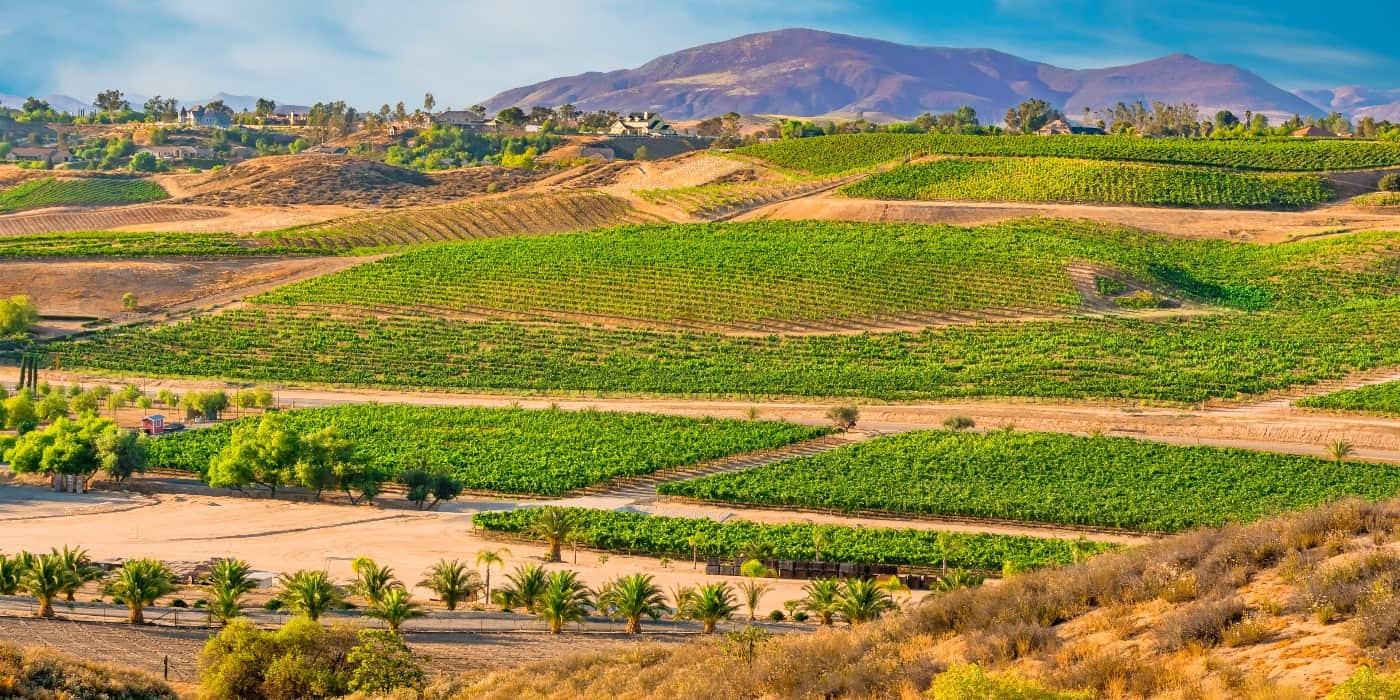
Activities and Old Town. There’s more to Temecula than just wine. I floated above the vineyards in a hot air balloon at sunrise, then biked the country roads past fields and horse ranches. Old Town Temecula is a must—its wooden boardwalks, antique shops, lively bars, and speakeasies give it a Wild West charm. I grabbed breakfast at Toast, browsed the farmers market, and caught live music at a local brewery. Many wineries host live bands on weekends, and some, like Wilson Creek, are famous for their sparkling wine flights and family-friendly atmosphere. For a break, book a spa treatment or join a yoga class among the vines.
History and Local Flavor. Temecula Wine Country is steeped in history and local charm. The region’s name comes from the indigenous Luiseño people’s word “Temeku,” meaning “place where the sun breaks through the white mist.” Wine has been a part of the valley since the 1800s, with early vineyards supplying nearby missions. Today, nearly 50 wineries dot the hills, each offering a unique experience—some are family-run estates with deep roots, like Mount Palomar Winery (one of the oldest), while others, like Callaway Vineyard & Winery, are housed in restored Victorian mansions.
What to Do in Temecula Wine Country:
- Taste award-winning wines at Bel Vino, Fazeli Cellars, and Thornton Winery
- Join a guided wine tour, trolley ride, or horse-drawn carriage adventure
- Float over the vineyards in a hot air balloon at sunrise
- Explore Old Town Temecula’s shops, bars, and live music venues
⭐ Best Activities
- Temecula Wine Country AM Balloon Ride – Soar above Temecula’s rolling vineyards and wine country in a hot air balloon for breathtaking aerial views and a magical sunrise experience.
FAQs about Visiting Orange County
How do I get around this region without a car?
Honestly, having a car is the easiest way to explore, but it’s not impossible without one. I’ve used Metrolink trains and OCTA buses to get to places like Anaheim and Newport Beach. Public transport is reliable during the day, but it can be slow and limited at night or on weekends. If you can, rent a car at John Wayne Airport for the most flexibility, but if you’re sticking to main cities, buses and trains will do the trick for day trips.
What are the best outdoor activities in this region?
There’s so much more here than just theme parks. I love renting a bike in Newport Beach and cruising along the boardwalk, or hiking the Red Rock Canyon near Irvine for some really beautiful scenery. The Headlands Trail is another favorite of mine for ocean views and wildflowers, especially in spring. My advice is to go early in the day for the best weather and fewer crowds.
Where can I find local art and culture?
The arts scene here is thriving. I recommend checking out the Segerstrom Center for the Arts or South Coast Repertory in Costa Mesa for theater and concerts. The Orange County Museum of Art is now free to visit, and it’s a fantastic place to see California artists. If you’re into history and antiques, Old Towne Orange is a great spot to wander around.
What’s the food scene like and how much should I budget?
There’s something for every taste and wallet. I love the food halls in Anaheim for their variety of food stalls, and you’ll find some of the best seafood and bakeries in the region. For a casual meal, expect to spend around $10–$18. If you want a sit-down dinner, $20–$40 is typical. Coffee and snacks are usually under $7. Look out for weekday lunch specials or happy hour deals to save a bit.
When is the best time to visit and what should I pack?
The weather is mild all year, usually between 20–28°C (68–82°F). Summer is the busiest, but I find spring and fall to be the most pleasant with fewer crowds. I always pack layers, sunscreen, and comfortable shoes because you’ll be walking or biking a lot. A reusable water bottle and some snacks are handy for beach or park days.
What are common mistakes tourists make?
A lot of people only visit the theme parks and miss out on the beaches, hikes, and art scene. Another mistake is not booking bike rentals or tours ahead of time, especially during busy seasons. Some visitors expect to see orange groves everywhere, but that’s really just a historical name! Don’t forget to check out free or low-cost cultural sites like the Orange County Museum of Art or Old Towne Orange.
What are the must-do activities in this region?
For me, renting a bike and riding along the boardwalk is a must. Hiking Red Rock Canyon or the Headlands Trail gives you a real taste of the local landscape. I also love catching a show at the Segerstrom Center or exploring antiques in Old Towne Orange. And of course, sampling local eats at the historic food hall in Anaheim is always a highlight. You really can’t go wrong with a sunny day at the beach or a walk on one of the many scenic trails.
